- Uncategorized
- September
- October 5
- October 4
- October 3
- October 28
- October 27
- October 26
- October 26
- October 25
- October 25
- October 25
- October 24
- October 24
- October 24
- October 23
- October 23
- October 23
- October 22
- October 22
- October 22
- October 21
- October 21
- October 21
- October 20
- October 20
- October 2
- October 19
- October 18
- October 17
- October 16
- October 15
- October 14
- October 13
- October 12
- June
- July
- August
- ASA Preview
- ANESTHESIOLOGY 2020 Daily
- ANESTHESIOLOGY 2019 Daily
- ANESTHESIOLOGY 2018 Daily
- ANESTHESIOLOGY 2017 Daily
- ANESTHESIOLOGY 2016 Daily
- ANESTHESIOLOGY 2015 Daily
Uncategorized, 2016
- Test storySession Name Session Time Session Location Bla bla The ANESTHESIOLOGY™ 2013 annual meeting is just around the corner, but there’s still time to register and take advantage of the early-bird registration rate. registration-button-1Don’t miss out on the largest event of the specialty, bringing you opportunities to learn the latest from preeminent leaders in patient safety. […]Read More
September, 2016
- The ANESTHESIOLOGY 2013 annual meeting is right around the corner – just three days left to save!The ANESTHESIOLOGY™ 2013 annual meeting is right around the cornerRead More
- Hands-on training on a variety of cutting-edge topics in anesthesiologyHands-on training on a variety of cutting-edge topicsRead More
- Meet and greet colleagues and the ASA leadershipMeet and greet colleagues and the ASA leadershipRead More
- ASA takes you to the cloudASA takes you to the cloudRead More
- ASA Resource Center: The nerve center at the ANESTHESIOLOGY™ Annual MeetingASA Resource Center: The nerve center at the annual meetingRead More
- ASA extends a warm welcome to global attendeesASA extends a warm welcome to global attendeesRead More
- Top 5 must do’s while in San FranciscoTop 5 must do’s while in San FranciscoRead More
October 5, 2016
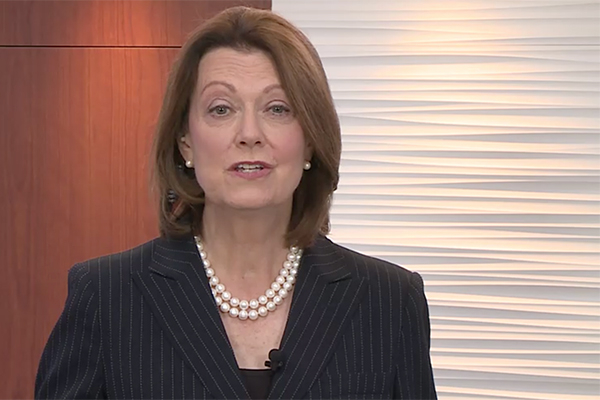 Anesthesiologists must step out and step up to leadNow is time for anesthesiologists to lead the way to gender equity and patient safety. Not despite all of the disruptions that have occurred in 2020, but because of them. “The pandemic is an example of what broad disruption looks like. It has changed our lives,” said Joanne M. Conroy, MD, President and CEO of Dartmouth-Hitchcock and Dartmouth-Hitchcock Health, during yesterday’s Rovenstine Lecture.Read More
Anesthesiologists must step out and step up to leadNow is time for anesthesiologists to lead the way to gender equity and patient safety. Not despite all of the disruptions that have occurred in 2020, but because of them. “The pandemic is an example of what broad disruption looks like. It has changed our lives,” said Joanne M. Conroy, MD, President and CEO of Dartmouth-Hitchcock and Dartmouth-Hitchcock Health, during yesterday’s Rovenstine Lecture.Read More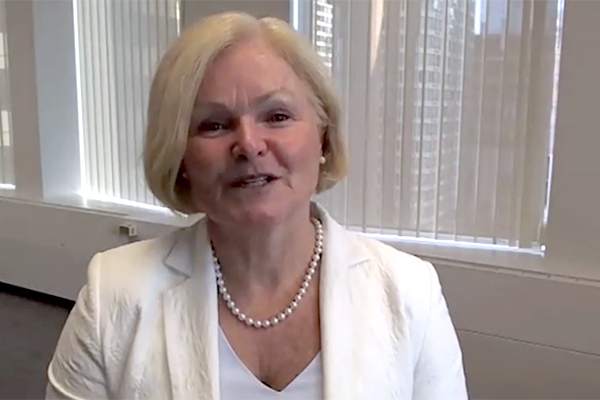 Reducing the risk of neurocognitive disorders associated with postoperative complicationsIn yesterday’s John W. Severinghaus Lecture on Translational Science, Beverley Orser, MD, PhD, FRCPC, FRSC, of the University of Toronto, encouraged anesthesiologists to reset their sights on long-term outcomes. It’s her answer to the question of how we, as anesthesiologists, can achieve our full potential.Read More
Reducing the risk of neurocognitive disorders associated with postoperative complicationsIn yesterday’s John W. Severinghaus Lecture on Translational Science, Beverley Orser, MD, PhD, FRCPC, FRSC, of the University of Toronto, encouraged anesthesiologists to reset their sights on long-term outcomes. It’s her answer to the question of how we, as anesthesiologists, can achieve our full potential.Read More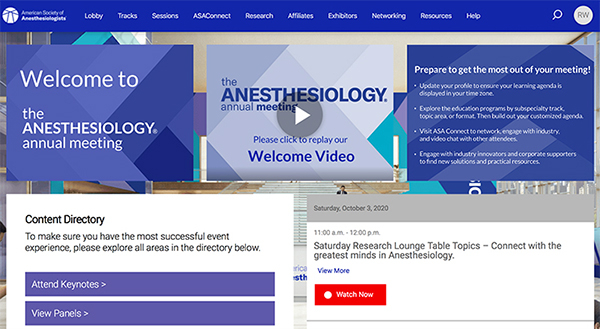 Welcome to Day 4 of ANESTHESIOLOGY 2020It’s the last day of ANESTHESIOLOGY 2020, but a full day of educational panels, Corporate Partner sessions, networking, and governance activities awaits you.Read More
Welcome to Day 4 of ANESTHESIOLOGY 2020It’s the last day of ANESTHESIOLOGY 2020, but a full day of educational panels, Corporate Partner sessions, networking, and governance activities awaits you.Read More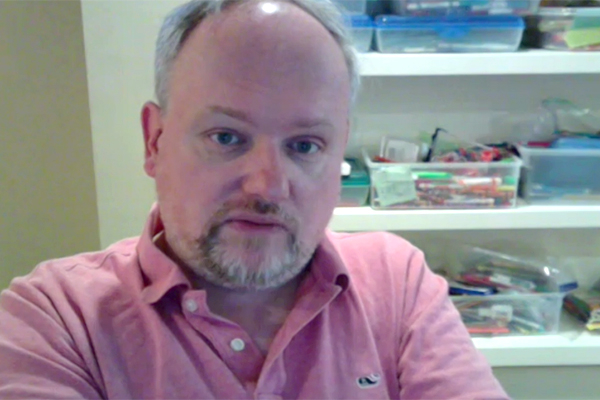 Correctly identify toxicology prior to treatmentUp to 40% of patients presenting to the emergency department may have an intoxication, but they’re not always easy to recognize. It’s important for anesthesiologists to know that there are really very few intoxications that have classic toxidromes, said Robert W. Gould, MD, Chief of Critical Care Anesthesiology and Associate Professor of Anesthesiology at the University of Minnesota in Minneapolis.Read More
Correctly identify toxicology prior to treatmentUp to 40% of patients presenting to the emergency department may have an intoxication, but they’re not always easy to recognize. It’s important for anesthesiologists to know that there are really very few intoxications that have classic toxidromes, said Robert W. Gould, MD, Chief of Critical Care Anesthesiology and Associate Professor of Anesthesiology at the University of Minnesota in Minneapolis.Read More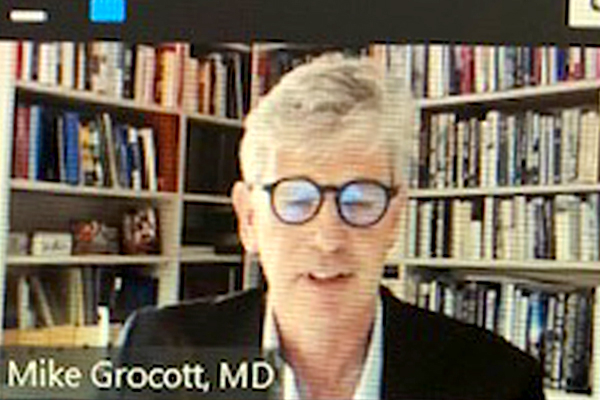 Choosing Wisely builds momentumThe Choosing Wisely campaign continues to bring improvements to health care and even shape today’s medical students who will carry out the campaign’s mission well into the future. The state of the global initiative, now eight years strong, was the focus of the Sunday session “Choosing Wisely in 2020: A Global Perspective.”Read More
Choosing Wisely builds momentumThe Choosing Wisely campaign continues to bring improvements to health care and even shape today’s medical students who will carry out the campaign’s mission well into the future. The state of the global initiative, now eight years strong, was the focus of the Sunday session “Choosing Wisely in 2020: A Global Perspective.”Read More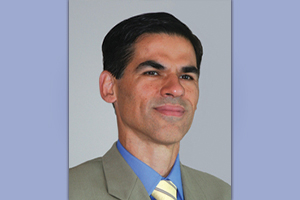 Advancing clinical trial know-howNews of clinical trials has captured the attention of the general public for months, as COVID-19 vaccines advance at record pace. That same thirst for knowledge is expected to captivate seasoned clinicians attending the annual meeting who already have a moderate to advanced understanding of clinical trials in anesthesiology.Read More
Advancing clinical trial know-howNews of clinical trials has captured the attention of the general public for months, as COVID-19 vaccines advance at record pace. That same thirst for knowledge is expected to captivate seasoned clinicians attending the annual meeting who already have a moderate to advanced understanding of clinical trials in anesthesiology.Read More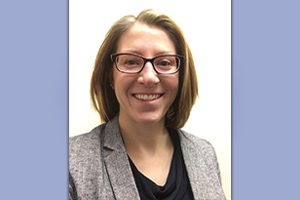 Global efforts aim to end preventable maternal deathProtecting maternal health is a priority of health care providers worldwide. Despite that, maternal morbidity and mortality rates are on the rise, even in the United States. Rachel M. Kacmar, MD, Associate Professor of Anesthesiology at the University of Colorado School of Medicine in Aurora, will address this health crisis during Monday’s session “Maternal Morbidity and Mortality: An Anesthesiologist’s Role and Perspective.”Read More
Global efforts aim to end preventable maternal deathProtecting maternal health is a priority of health care providers worldwide. Despite that, maternal morbidity and mortality rates are on the rise, even in the United States. Rachel M. Kacmar, MD, Associate Professor of Anesthesiology at the University of Colorado School of Medicine in Aurora, will address this health crisis during Monday’s session “Maternal Morbidity and Mortality: An Anesthesiologist’s Role and Perspective.”Read More Keep the conversation going in the new ASA CommunityWe hope you agree that ANESTHESIOLOGY 2020 offered more ways to converse with more colleagues than any meeting before it. We’re pleased to inform you that you can extend those conversations, and much more, with our new ASA Community – an easy-to-use networking tool where you can tap into the collective knowledge of our 50,000-plus membership.Read More
Keep the conversation going in the new ASA CommunityWe hope you agree that ANESTHESIOLOGY 2020 offered more ways to converse with more colleagues than any meeting before it. We’re pleased to inform you that you can extend those conversations, and much more, with our new ASA Community – an easy-to-use networking tool where you can tap into the collective knowledge of our 50,000-plus membership.Read More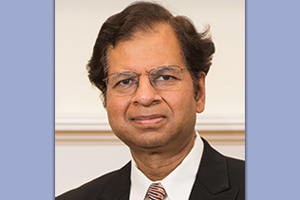 Anesthesiologists reevaluate risk reductionPerioperative infections are always a concern for anesthesiologists. Now, in the presence of COVID-19, even more effort and energy are being directed at this topic as anesthesiologists lead multidisciplinary initiatives to prevent hospital-acquired infections (HAI) by PPE, hand sanitation, and OR procedures.Read More
Anesthesiologists reevaluate risk reductionPerioperative infections are always a concern for anesthesiologists. Now, in the presence of COVID-19, even more effort and energy are being directed at this topic as anesthesiologists lead multidisciplinary initiatives to prevent hospital-acquired infections (HAI) by PPE, hand sanitation, and OR procedures.Read More
October 4, 2016
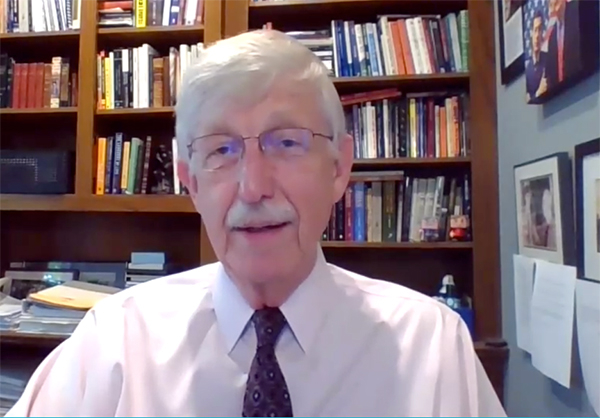 COVID-19 updates from the NIHNIH Director Francis S. Collins, MD, PhD, said in yesterday’s opening session that he’s got a “smorgasbord of issues” he’s been wanting to discuss with anesthesiologists. In what he dubbed a “romp through the NIH,” Dr. Collins walked the audience through NIH biomedical research updates in categories that included advancing neurotechnology, the opioid crisis, the need for a more diverse and innovative research workforce, and COVID-19.Read More
COVID-19 updates from the NIHNIH Director Francis S. Collins, MD, PhD, said in yesterday’s opening session that he’s got a “smorgasbord of issues” he’s been wanting to discuss with anesthesiologists. In what he dubbed a “romp through the NIH,” Dr. Collins walked the audience through NIH biomedical research updates in categories that included advancing neurotechnology, the opioid crisis, the need for a more diverse and innovative research workforce, and COVID-19.Read More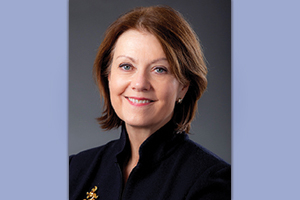 Welcome to Day 3 of ANESTHESIOLOGY 2020Don’t miss the Rovenstine Lecture at 9 a.m. CT, when Dartmouth-Hitchcock President and CEO Joanne M. Conroy, MD, discusses “Vitals Signs: Transforming 21st Century Anesthesia Practice.” Dr. Conroy was named one of the 50 most influential clinical executives in 2020 by Modern Healthcare magazine.Read More
Welcome to Day 3 of ANESTHESIOLOGY 2020Don’t miss the Rovenstine Lecture at 9 a.m. CT, when Dartmouth-Hitchcock President and CEO Joanne M. Conroy, MD, discusses “Vitals Signs: Transforming 21st Century Anesthesia Practice.” Dr. Conroy was named one of the 50 most influential clinical executives in 2020 by Modern Healthcare magazine.Read More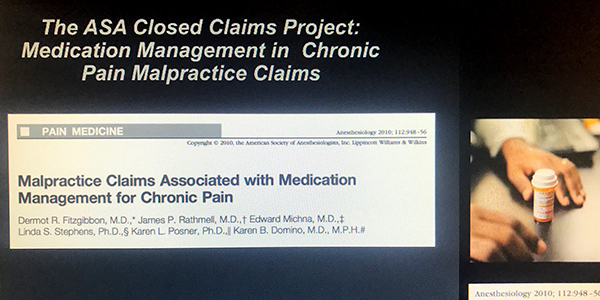 Closed claims analysis: Emerging trends in pain managementBefore 2005, there wasn’t a lot of data related to chronic pain medication management. However, with an increasing focus on ASA Closed Claims Analysis, anesthesiologists can see inherent risks and take steps to avoid liability.Read More
Closed claims analysis: Emerging trends in pain managementBefore 2005, there wasn’t a lot of data related to chronic pain medication management. However, with an increasing focus on ASA Closed Claims Analysis, anesthesiologists can see inherent risks and take steps to avoid liability.Read More Anesthesiology’s role in stroke careAnesthesiologists can play a critical role in assessing and reducing the risk of perioperative and acute ischemic stroke in non-cardiac surgery patients through careful screening, managing antithrombotic therapy and even scheduling optimal timing for elective surgery. Those considerations as well as keeping the anesthesiologist safe during the pandemic were the focus of Saturday’s session, “Stroke and the Anesthesiologist: What’s New?”Read More
Anesthesiology’s role in stroke careAnesthesiologists can play a critical role in assessing and reducing the risk of perioperative and acute ischemic stroke in non-cardiac surgery patients through careful screening, managing antithrombotic therapy and even scheduling optimal timing for elective surgery. Those considerations as well as keeping the anesthesiologist safe during the pandemic were the focus of Saturday’s session, “Stroke and the Anesthesiologist: What’s New?”Read More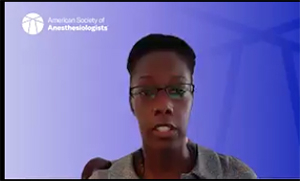 The best in breaking scienceIn a health care environment where practitioners are asked to be efficient and proficient in many clinical scenarios, it’s almost impossible for them to keep up on the latest breaking science. Saturday’s “Our 10 Favorite Papers of the Year: How Will They Affect Your Practice?” put some of the best papers front-and-center for anesthesiologists.Read More
The best in breaking scienceIn a health care environment where practitioners are asked to be efficient and proficient in many clinical scenarios, it’s almost impossible for them to keep up on the latest breaking science. Saturday’s “Our 10 Favorite Papers of the Year: How Will They Affect Your Practice?” put some of the best papers front-and-center for anesthesiologists.Read More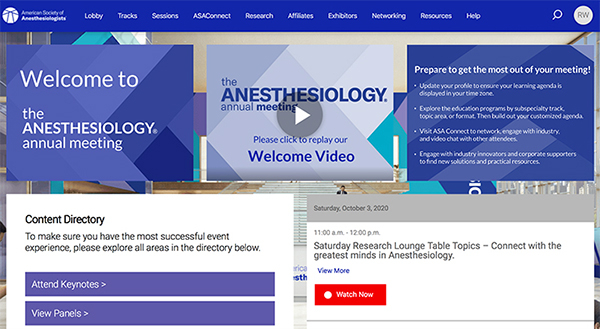 How are we doing? Please share your annual meeting experiencesIt’s day 3 of the meeting, and we want to know what you think so far. More than anything, it is your experience that matters.Read More
How are we doing? Please share your annual meeting experiencesIt’s day 3 of the meeting, and we want to know what you think so far. More than anything, it is your experience that matters.Read More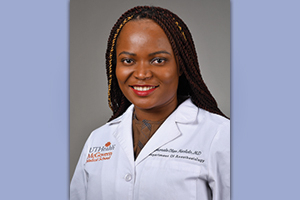 Achieving diversity and inclusion in anesthesiology departments: Whose responsibility is it?Achieving racial, ethnic, and gender diversity and inclusion has been an elusive pursuit in medicine. Defining who is ultimately responsible for developing and implementing a plan that ensures an equal opportunity for everyone could be the key to success. But who should take the lead?Read More
Achieving diversity and inclusion in anesthesiology departments: Whose responsibility is it?Achieving racial, ethnic, and gender diversity and inclusion has been an elusive pursuit in medicine. Defining who is ultimately responsible for developing and implementing a plan that ensures an equal opportunity for everyone could be the key to success. But who should take the lead?Read More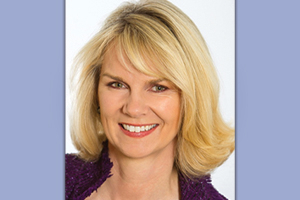 ASA brain initiative offers key resourcesThink a little brain fogginess might be something more? ASA’s Perioperative Brain Health Initiative (PBHI) is leading the charge to equip anesthesiologists with the tools they need to effectively screen and care for patients at risk for pre- and postoperative neurocognitive decline.Read More
ASA brain initiative offers key resourcesThink a little brain fogginess might be something more? ASA’s Perioperative Brain Health Initiative (PBHI) is leading the charge to equip anesthesiologists with the tools they need to effectively screen and care for patients at risk for pre- and postoperative neurocognitive decline.Read More
October 3, 2016
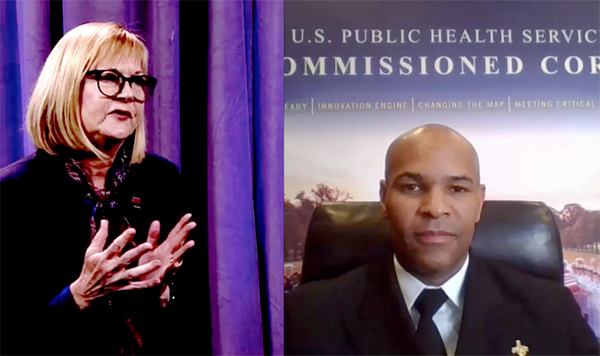 Surgeon General calls for physicians to uniteSARS-CoV-2 has shaken us to our core. Now is the time to put politics aside, reflect on the gravity of the moment, and unite against our common enemy, U.S. Surgeon General Jerome Adams, MD, MPH, FASA, told anesthesiologists during Friday’s Welcome Session, the official kick off of ANESTHESIOLOGY 2020.Read More
Surgeon General calls for physicians to uniteSARS-CoV-2 has shaken us to our core. Now is the time to put politics aside, reflect on the gravity of the moment, and unite against our common enemy, U.S. Surgeon General Jerome Adams, MD, MPH, FASA, told anesthesiologists during Friday’s Welcome Session, the official kick off of ANESTHESIOLOGY 2020.Read More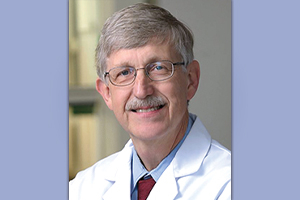 Welcome to Day 2 of the ANESTHESIOLOGY 2020 annual meetingThis morning’s Opening Session/Keynote Address at 9 a.m. CT is Saturday’s don’t-miss event! 2020 ASA President Mary Dale Peterson, MD, MHA, FACHE, FASA, opens the session with a recap of what will surely be remembered as one of the most challenging years in the specialty’s history. But there were just as many positives – 2020 was the best Match year ever for anesthesiology. Read More
Welcome to Day 2 of the ANESTHESIOLOGY 2020 annual meetingThis morning’s Opening Session/Keynote Address at 9 a.m. CT is Saturday’s don’t-miss event! 2020 ASA President Mary Dale Peterson, MD, MHA, FACHE, FASA, opens the session with a recap of what will surely be remembered as one of the most challenging years in the specialty’s history. But there were just as many positives – 2020 was the best Match year ever for anesthesiology. Read More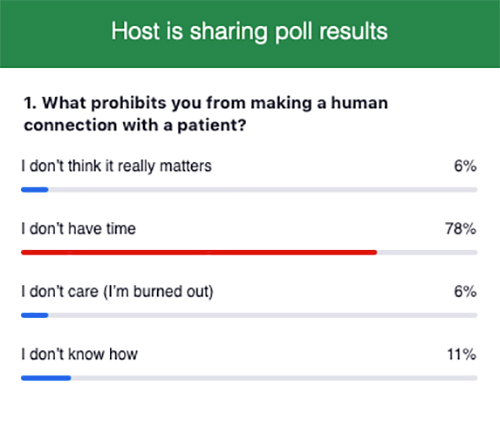 MasterClass spotlights the role of compassion in medicineTime. That is the No. 1 reason physicians report not always making a human connection with patients—and 56% of them reported that they don’t even have the time it takes to show compassion, according to Jake Poore, President and Chief Experience Officer of Integrated Loyalty Systems Inc. in Orlando.Read More
MasterClass spotlights the role of compassion in medicineTime. That is the No. 1 reason physicians report not always making a human connection with patients—and 56% of them reported that they don’t even have the time it takes to show compassion, according to Jake Poore, President and Chief Experience Officer of Integrated Loyalty Systems Inc. in Orlando.Read More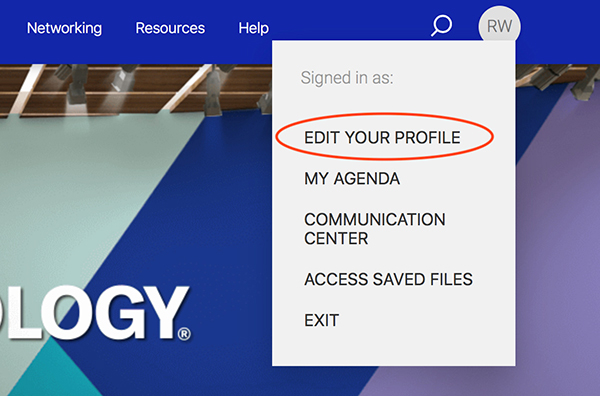 2 quick tips to enhance your virtual annual meeting experienceWe hope you’re enjoying the meeting so far and that you’re finding the interface to be intuitive and enjoyable. If you haven’t done so already, there are two very simple actions you can take to make sure your schedule and agenda are fully maximized.Read More
2 quick tips to enhance your virtual annual meeting experienceWe hope you’re enjoying the meeting so far and that you’re finding the interface to be intuitive and enjoyable. If you haven’t done so already, there are two very simple actions you can take to make sure your schedule and agenda are fully maximized.Read More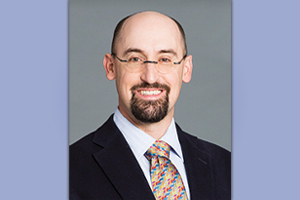 COVID: Advice from the frontlinesWhen COVID-19 numbers spiked in New York City last spring, it was bigger than anything doctors there had ever seen before. It demanded ingenuity and the ability to adapt and skillfully steer through a learning curve at record speed. Doctors are still trying to process mentally, physically, and logistically everything that has happened since then, but are ready to share some of what they learned on the frontlines.Read More
COVID: Advice from the frontlinesWhen COVID-19 numbers spiked in New York City last spring, it was bigger than anything doctors there had ever seen before. It demanded ingenuity and the ability to adapt and skillfully steer through a learning curve at record speed. Doctors are still trying to process mentally, physically, and logistically everything that has happened since then, but are ready to share some of what they learned on the frontlines.Read More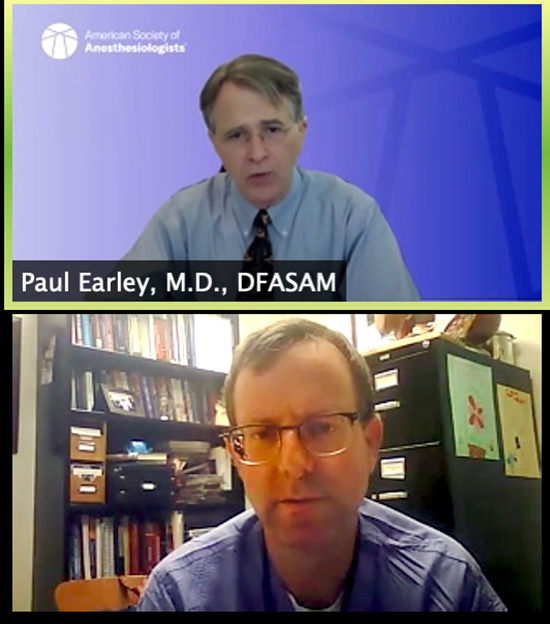 Professional health programs provide chronic disease treatmentThe current pandemic and resulting health care climate have wrought enormous amounts of stress on physicians—and sometimes, this spirals out of control, leading to substance abuse.Read More
Professional health programs provide chronic disease treatmentThe current pandemic and resulting health care climate have wrought enormous amounts of stress on physicians—and sometimes, this spirals out of control, leading to substance abuse.Read More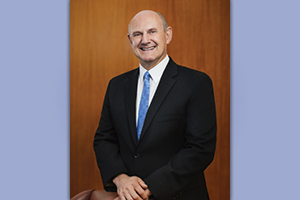 COVID-19 tops APSF’s Top 10COVID-19 has affected every conceivable facet of the heath care industry, but few have been affected more than anesthesiology. This fact informs one of the key “lessons learned” that will be featured during the Saturday session “Anesthesia Patient Safety Foundation Panel: Ten Patient Safety Issues We’ve Learned from the COVID Pandemic.”Read More
COVID-19 tops APSF’s Top 10COVID-19 has affected every conceivable facet of the heath care industry, but few have been affected more than anesthesiology. This fact informs one of the key “lessons learned” that will be featured during the Saturday session “Anesthesia Patient Safety Foundation Panel: Ten Patient Safety Issues We’ve Learned from the COVID Pandemic.”Read More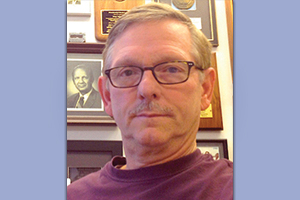 FAER-Helrich Research Lecture: Why Is Pain Such a Tough Nut to Crack?Tony Yaksh, PhD, MS, Professor and Vice Chair of Research at the University of California, San Diego, explores this pain conundrum when he delivers today’s “FAER-Helrich Research Lecture: Why Is Pain Such a Tough Nut to Crack?: A Mechanistic Perspective on Our Emphasis upon Neuraxial Processing.”Read More
FAER-Helrich Research Lecture: Why Is Pain Such a Tough Nut to Crack?Tony Yaksh, PhD, MS, Professor and Vice Chair of Research at the University of California, San Diego, explores this pain conundrum when he delivers today’s “FAER-Helrich Research Lecture: Why Is Pain Such a Tough Nut to Crack?: A Mechanistic Perspective on Our Emphasis upon Neuraxial Processing.”Read More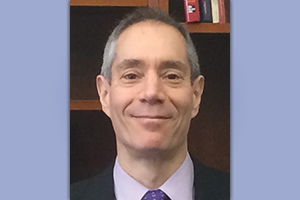 Anesthesiologists mean businessBeing a successful anesthesiologist goes beyond just being a good doctor. It’s also about being good at business. The ability to follow and even predict business trends, keep up with the compensation structures for various care team models, and analyze billing metrics to optimize financial outcomes represent a fraction of the business acumen anesthesiologists must possess to be successful in their practice. Read More
Anesthesiologists mean businessBeing a successful anesthesiologist goes beyond just being a good doctor. It’s also about being good at business. The ability to follow and even predict business trends, keep up with the compensation structures for various care team models, and analyze billing metrics to optimize financial outcomes represent a fraction of the business acumen anesthesiologists must possess to be successful in their practice. Read More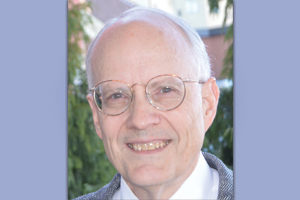 Pandemic push for innovationIf ever there were a time to ensure timely and safe access to ventilators, it’s now. That’s behind the longstanding engagement of the FDA Centers for Devices and Radiological Health (CDRH) and members of the Society for Technology in Anesthesia (STA). These collaborations that began long before COVID-19 provided a foundation for rapid response to the pandemic.Read More
Pandemic push for innovationIf ever there were a time to ensure timely and safe access to ventilators, it’s now. That’s behind the longstanding engagement of the FDA Centers for Devices and Radiological Health (CDRH) and members of the Society for Technology in Anesthesia (STA). These collaborations that began long before COVID-19 provided a foundation for rapid response to the pandemic.Read More
October 28, 2016
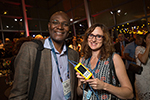 Inaugural Charitable Networking Event surpasses expectations, lays strong foundation for futureThere was a moment during Sunday’s first-ever Charitable Networking Event when Alexander A. Hannenberg, M.D., ASA Charitable Foundation Board Member, knew without question that the event’s attendees were getting a take-away message they wouldn’t soon forget:Read More
Inaugural Charitable Networking Event surpasses expectations, lays strong foundation for futureThere was a moment during Sunday’s first-ever Charitable Networking Event when Alexander A. Hannenberg, M.D., ASA Charitable Foundation Board Member, knew without question that the event’s attendees were getting a take-away message they wouldn’t soon forget:Read More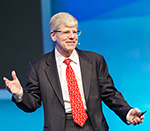 Severinghaus lecturer: Computer learning and clinical decision support coming to anesthesiologyClinical decision support from a cognitive computing system called Watson is already a reality in oncology practice. Watson, or one of its successors, will almost certainly be providing anesthesiology recommendations in the very near future.Read More
Severinghaus lecturer: Computer learning and clinical decision support coming to anesthesiologyClinical decision support from a cognitive computing system called Watson is already a reality in oncology practice. Watson, or one of its successors, will almost certainly be providing anesthesiology recommendations in the very near future.Read More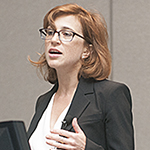 Proactive approaches can help in reducing risk of POCDThere is a “silver tsunami” of growing evidence that anesthesia could pose a greater risk of cognitive side effects for the elderly when compared to younger patients, but steps can be taken to proactively identify those patients at risk for postoperative cognitive dysfunction (POCD).Read More
Proactive approaches can help in reducing risk of POCDThere is a “silver tsunami” of growing evidence that anesthesia could pose a greater risk of cognitive side effects for the elderly when compared to younger patients, but steps can be taken to proactively identify those patients at risk for postoperative cognitive dysfunction (POCD).Read More Experience of military helping to treat severe trauma patientsCoagulopathy following traumatic injury is a threat to patients and a challenge for physician anesthesiologists, but treatment refinements — some learned from the military — are making a difference. A few of these advances were explored in a Problem-Based Learning Discussion Tuesday.Read More
Experience of military helping to treat severe trauma patientsCoagulopathy following traumatic injury is a threat to patients and a challenge for physician anesthesiologists, but treatment refinements — some learned from the military — are making a difference. A few of these advances were explored in a Problem-Based Learning Discussion Tuesday.Read More Tuesday PBLD: Down syndrome complicates tonsillectomy, adenoidectomyPediatric tonsillectomy and adenoidectomy (TNA) is a common and usually uncomplicated surgery. But adding Down syndrome to the mix can add significant difficulties.Read More
Tuesday PBLD: Down syndrome complicates tonsillectomy, adenoidectomyPediatric tonsillectomy and adenoidectomy (TNA) is a common and usually uncomplicated surgery. But adding Down syndrome to the mix can add significant difficulties.Read More Announcing #ANES2015 social media starsMany attendees have been tweeting and posting about the ANESTHESIOLOGY 2015 annual meeting education, exhibits, special events and San Diego in general. Thank you to all those who have added meaningful conversation throughout these outlets. We awarded the most active members as our “Social Media Star of the Day.”Read More
Announcing #ANES2015 social media starsMany attendees have been tweeting and posting about the ANESTHESIOLOGY 2015 annual meeting education, exhibits, special events and San Diego in general. Thank you to all those who have added meaningful conversation throughout these outlets. We awarded the most active members as our “Social Media Star of the Day.”Read More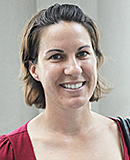 Question of the Day: ‘What’s been the highlight of your ANESTHESIOLOGY® 2015 annual meeting experience?’The meeting is almost over, so before they started planning for the 2016 meeting in Chicago, the Daily News asked ASA members to share their highlights while in San Diego.Read More
Question of the Day: ‘What’s been the highlight of your ANESTHESIOLOGY® 2015 annual meeting experience?’The meeting is almost over, so before they started planning for the 2016 meeting in Chicago, the Daily News asked ASA members to share their highlights while in San Diego.Read More- Impact of regional anesthesia on cancer survival to be debatedThere have long been questions about the impact of anesthesia used during cancer surgery on long-term survival. The evidence to date points both ways.Read More
- Better environmental stewardship improves patient safetyModern medicine has made dramatic strides in saving lives. Surgical infection rates, for example, have plummeted from nearly 90 percent in the early 19th century to about 5 percent today. At the same time, pollution from the health care industry continues to be a concern. Research suggests that health care-related pollution may be responsible for about as many deaths as medical errors, yet are currently unaccounted for.Read More
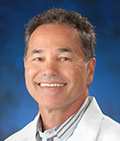 Transition from preoperative to perioperative clinic presents challenges and opportunitiesMore preoperative clinics are looking at becoming perioperative clinics and becoming part of a Perioperative Surgical Home (PSH) program. A session today will feature four presentations looking at what is required in that transition and what hurdles may need to be cleared in the process.Read More
Transition from preoperative to perioperative clinic presents challenges and opportunitiesMore preoperative clinics are looking at becoming perioperative clinics and becoming part of a Perioperative Surgical Home (PSH) program. A session today will feature four presentations looking at what is required in that transition and what hurdles may need to be cleared in the process.Read More
October 27, 2016
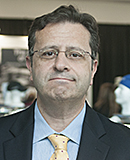 Question of the day: ‘How important do you feel political advocacy is to the specialty?’Advocacy for the specialty and the safety of our patients remains one of the highest priorities of ASA. The Daily News asked meeting attendees how important advocacy was to them.Read More
Question of the day: ‘How important do you feel political advocacy is to the specialty?’Advocacy for the specialty and the safety of our patients remains one of the highest priorities of ASA. The Daily News asked meeting attendees how important advocacy was to them.Read More ‘Nothing is too esteemed at this meeting to not be overshadowed by this message’: Protect Safe VA Care NOWThat quote in the headline is the assessment of ASA First Vice President Jeffrey S. Plagenhoef, M.D., as he urged all ASA members to submit their comments in support of the nation’s Veterans, whose care is being threatened by the coming VHA Nursing Handbook.Read More
‘Nothing is too esteemed at this meeting to not be overshadowed by this message’: Protect Safe VA Care NOWThat quote in the headline is the assessment of ASA First Vice President Jeffrey S. Plagenhoef, M.D., as he urged all ASA members to submit their comments in support of the nation’s Veterans, whose care is being threatened by the coming VHA Nursing Handbook.Read More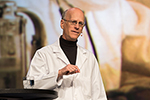 Rovenstine lecturer: Physician anesthesiologists need to add art to practice of scienceAnesthesia, and every physician anesthesiologist, needs the right balance of science and compassion. It is not enough to be a great scientist or a great humanitarian to provide good care; one must integrate elements of both.Read More
Rovenstine lecturer: Physician anesthesiologists need to add art to practice of scienceAnesthesia, and every physician anesthesiologist, needs the right balance of science and compassion. It is not enough to be a great scientist or a great humanitarian to provide good care; one must integrate elements of both.Read More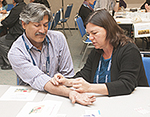 Acupuncture workshops show increased acceptance of treatmentsFor the 15th consecutive year, the annual meeting featured an acupuncture workshop to introduce physician anesthesiologists to treatments once scoffed at by Western physicians but that are now becoming mainstream.Read More
Acupuncture workshops show increased acceptance of treatmentsFor the 15th consecutive year, the annual meeting featured an acupuncture workshop to introduce physician anesthesiologists to treatments once scoffed at by Western physicians but that are now becoming mainstream.Read More Deep brain stimulation becoming more common in anesthesiaMonitored anesthesia care is an everyday affair at many hospitals. But when sedation is needed to place electrodes for deep brain stimulation (DBS), the case can become more complicated.Read More
Deep brain stimulation becoming more common in anesthesiaMonitored anesthesia care is an everyday affair at many hospitals. But when sedation is needed to place electrodes for deep brain stimulation (DBS), the case can become more complicated.Read More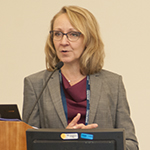 Myths and facts related to in-hospital falls examinedMore than 1 million falls occur in hospitals each year, with as many as half resulting in at least minor injury and up to 10 percent resulting in major injury. A session Monday looked at whether many of those are preventable.Read More
Myths and facts related to in-hospital falls examinedMore than 1 million falls occur in hospitals each year, with as many as half resulting in at least minor injury and up to 10 percent resulting in major injury. A session Monday looked at whether many of those are preventable.Read More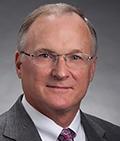 Session to focus on secondary data research for health servicesLearn about using large secondary data sets for health services research that could affect health policy and the delivery of care by attending “Aiming for a More Evidence-Based Approach to Medical Practice — How to Get There Using Secondary Data for Outcomes Research” from 10 a.m. to noon tomorrow in Upper 24A-C.Read More
Session to focus on secondary data research for health servicesLearn about using large secondary data sets for health services research that could affect health policy and the delivery of care by attending “Aiming for a More Evidence-Based Approach to Medical Practice — How to Get There Using Secondary Data for Outcomes Research” from 10 a.m. to noon tomorrow in Upper 24A-C.Read More Improve inhaled anesthetic depth with Gas ManPhysician anesthesiologists don’t always control the patient’s depth of anesthesia when using inhaled drugs as effectively as they would like to. Practitioners may be familiar with drug kinetics, but end-tidal concentrations can vary based on encumbrance of low fresh gas flow and failing to observe graphic trends of concentration.Read More
Improve inhaled anesthetic depth with Gas ManPhysician anesthesiologists don’t always control the patient’s depth of anesthesia when using inhaled drugs as effectively as they would like to. Practitioners may be familiar with drug kinetics, but end-tidal concentrations can vary based on encumbrance of low fresh gas flow and failing to observe graphic trends of concentration.Read More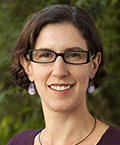 Sessions to share evidence on implementing emergency manualsIn the last decade, several anesthesia emergency manuals have been developed for improving actions during critical events, and simulation-based studies have shown their effectiveness. You can learn more about the availability of manuals and data about their successful implementation during two sessions Tuesday.Read More
Sessions to share evidence on implementing emergency manualsIn the last decade, several anesthesia emergency manuals have been developed for improving actions during critical events, and simulation-based studies have shown their effectiveness. You can learn more about the availability of manuals and data about their successful implementation during two sessions Tuesday.Read More
October 26, 2016
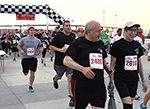 Run for the Warriors finishes strong for its sixth straight yearThe second largest contingent of participants in the event's history got up before the sun to participate in the 2015 ASA Run for the Warriors® 5K — at the very same place the run/walk began six years ago. A total of 551 individuals registered, second only to the 569 counted in Washington, D.C., in 2013.Read More
Run for the Warriors finishes strong for its sixth straight yearThe second largest contingent of participants in the event's history got up before the sun to participate in the 2015 ASA Run for the Warriors® 5K — at the very same place the run/walk began six years ago. A total of 551 individuals registered, second only to the 569 counted in Washington, D.C., in 2013.Read More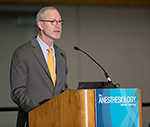 Marx Lecture: Communication key to reducing errorsUsing large doses of humor and real examples of O.R.-related mistakes, David J. Birnbach, M.D., M.P.H., made the case that health care professionals need to greatly improve communication to reduce errors when he delivered the SOAP/FAER Gertie Marx Plenary Lecture Sunday.Read More
Marx Lecture: Communication key to reducing errorsUsing large doses of humor and real examples of O.R.-related mistakes, David J. Birnbach, M.D., M.P.H., made the case that health care professionals need to greatly improve communication to reduce errors when he delivered the SOAP/FAER Gertie Marx Plenary Lecture Sunday.Read More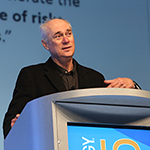 Wright Lecture: Anesthesia and the potential for cognitive dysfunctionThree months after surgery with general anesthesia, between 10 and 15 percent of patients may have cognitive deficits. The first paper linking anesthesia and cognitive disorders was published in 1887, but physician anesthesiologists and surgeons rarely ask about postoperative cognitive dysfunction (POCD), and patients seldom mention it. A new patient safety initiative focusing on reducing delirium and cognitive disorders following anesthesia addresses 170 years of what is now recognized as POCD.Read More
Wright Lecture: Anesthesia and the potential for cognitive dysfunctionThree months after surgery with general anesthesia, between 10 and 15 percent of patients may have cognitive deficits. The first paper linking anesthesia and cognitive disorders was published in 1887, but physician anesthesiologists and surgeons rarely ask about postoperative cognitive dysfunction (POCD), and patients seldom mention it. A new patient safety initiative focusing on reducing delirium and cognitive disorders following anesthesia addresses 170 years of what is now recognized as POCD.Read More Discussion looks at options to control PDNV and long QT syndromeAll surgical patients are at risk for postoperative and post-discharge nausea and vomiting (PDNV). Physician anesthesiologists have a wide range of interventions to minimize nausea and vomiting, but many prolong the QT interval.Read More
Discussion looks at options to control PDNV and long QT syndromeAll surgical patients are at risk for postoperative and post-discharge nausea and vomiting (PDNV). Physician anesthesiologists have a wide range of interventions to minimize nausea and vomiting, but many prolong the QT interval.Read More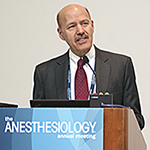 The great debate: Are physicians and industry allies or adversaries?One of the great debates in health care was addressed Sunday when two physicians discussed the relationship between physicians and industry during “Commercialism: Conflict of Interest or Critical Ally?”Read More
The great debate: Are physicians and industry allies or adversaries?One of the great debates in health care was addressed Sunday when two physicians discussed the relationship between physicians and industry during “Commercialism: Conflict of Interest or Critical Ally?”Read More Question of the Day: ‘What is the most important issue facing anesthesia in the next few years?’The specialty faces a great many challenges and opportunities now and in the near future. The Daily News asked ASA members to reveal the most pressing issue facing their practice.Read More
Question of the Day: ‘What is the most important issue facing anesthesia in the next few years?’The specialty faces a great many challenges and opportunities now and in the near future. The Daily News asked ASA members to reveal the most pressing issue facing their practice.Read More- Interventional procedures affecting practices, finances of physician anesthesiologistsAdvances in technology have moved an increasing number of interventional procedures from the O.R. to other venues, affecting the way anesthesiologists practice and their business plans. Strategies to cope with these changes will be discussed during a session today.Read More
- Education, not medicine, can help in treating abdominal painAbnormal physiology, not anatomy, may be the cause of chronic abdominal pain, a condition known as functional abdominal pain that needs to be treated with patient education in the form of “mental rehabilitation,” not with medication.Read More
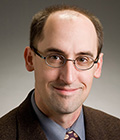 ‘Weaponization’ session to examine how good is used in negative ways“The Weaponization of Medical Infrastructure” may be the most intriguing title of any session at the ANESTHESIOLOGY® 2015 annual meeting, and it promises to be an interesting look at how positive ideas could have negative effects.Read More
‘Weaponization’ session to examine how good is used in negative ways“The Weaponization of Medical Infrastructure” may be the most intriguing title of any session at the ANESTHESIOLOGY® 2015 annual meeting, and it promises to be an interesting look at how positive ideas could have negative effects.Read More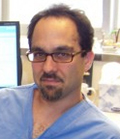 Attention to fundamentals key in stopping acute kidney injuryAcute kidney injury (AKI) is one of the greatest dangers in the perioperative environment. When it occurs on top of another organ failure, mortality is 70 percent, and even a mild AKI without other organ failure increases the risk of death by sixfold to eightfold.Read More
Attention to fundamentals key in stopping acute kidney injuryAcute kidney injury (AKI) is one of the greatest dangers in the perioperative environment. When it occurs on top of another organ failure, mortality is 70 percent, and even a mild AKI without other organ failure increases the risk of death by sixfold to eightfold.Read More
October 26, 2016
 ACT session addresses ratio of anesthesiologists to cases supervisedProblems physician anesthesiologists encounter in implementing anesthesia care teams (ACT) came under scrutiny Tuesday when medical executives from several national and regional anesthesia practices joined 2017 ASA President Jeffrey Plagenhoef, M.D., and Past President John Zerwas, M.D. (2013), to address issues raised by anesthesiologists attending a session, “The Future of the Anesthesia Care Team in the Era of Increased Competition.”Read More
ACT session addresses ratio of anesthesiologists to cases supervisedProblems physician anesthesiologists encounter in implementing anesthesia care teams (ACT) came under scrutiny Tuesday when medical executives from several national and regional anesthesia practices joined 2017 ASA President Jeffrey Plagenhoef, M.D., and Past President John Zerwas, M.D. (2013), to address issues raised by anesthesiologists attending a session, “The Future of the Anesthesia Care Team in the Era of Increased Competition.”Read More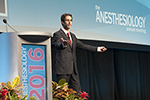 Severinghaus Lecture: Anesthesiologists can help reduce postoperative mortalityPreventable mortality associated with anesthesia is almost nonexistent after efforts by anesthesiologists and others to reduce intraoperative mortality over the past 30 years, according to Daniel Sessler, M.D., who presented Tuesday’s John W. Severinghaus Lecture on Translational Science.Read More
Severinghaus Lecture: Anesthesiologists can help reduce postoperative mortalityPreventable mortality associated with anesthesia is almost nonexistent after efforts by anesthesiologists and others to reduce intraoperative mortality over the past 30 years, according to Daniel Sessler, M.D., who presented Tuesday’s John W. Severinghaus Lecture on Translational Science.Read More Announcing #ANES16 Social Media StarsNearly 2,000 ANESTHESIOLOGY 2016 attendees tweeted and posted about the scientific program, featured sessions, special events and their overall #ANES16 experience.Read More
Announcing #ANES16 Social Media StarsNearly 2,000 ANESTHESIOLOGY 2016 attendees tweeted and posted about the scientific program, featured sessions, special events and their overall #ANES16 experience.Read More Podcasts help improve teaching to millennialsEducation has changed greatly since most anesthesiology faculty members were students, but many of them continue to use teaching methods from their youth that do not succeed with millennials studying medicine today. To their credit, faculty members are trying to adapt by using digital formats, such as videos and podcasts.Read More
Podcasts help improve teaching to millennialsEducation has changed greatly since most anesthesiology faculty members were students, but many of them continue to use teaching methods from their youth that do not succeed with millennials studying medicine today. To their credit, faculty members are trying to adapt by using digital formats, such as videos and podcasts.Read More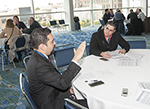 Controlling BP, glucose key in treating patients with SAHA subarachnoid hemorrhage (SAH) is a life-threatening event that also can cause neurological damage, making quick, effective action vital. Anesthesiologists are at the center of these events in controlling blood pressure and glucose levels that can affect outcomes.Read More
Controlling BP, glucose key in treating patients with SAHA subarachnoid hemorrhage (SAH) is a life-threatening event that also can cause neurological damage, making quick, effective action vital. Anesthesiologists are at the center of these events in controlling blood pressure and glucose levels that can affect outcomes.Read More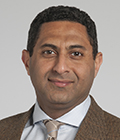 Planning is key in managing extubation failureExtubation is an elective process that requires careful planning and preparation. Following safe airway extubation strategies that can help improve outcomes will be the focus of a Wednesday fundamentals of anesthesiology session.Read More
Planning is key in managing extubation failureExtubation is an elective process that requires careful planning and preparation. Following safe airway extubation strategies that can help improve outcomes will be the focus of a Wednesday fundamentals of anesthesiology session.Read More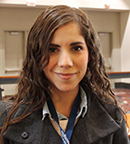 ‘What ASA member benefit is most valuable to you?’From a hugely popular Rovenstine Lecture, to standing-room-only Medically Challenging Cases sessions, to routinely packed poster areas, ANESTHESIOLOGY 2016 has again offered attendees the best science, education, entertainment and value available anywhere in the specialty.Read More
‘What ASA member benefit is most valuable to you?’From a hugely popular Rovenstine Lecture, to standing-room-only Medically Challenging Cases sessions, to routinely packed poster areas, ANESTHESIOLOGY 2016 has again offered attendees the best science, education, entertainment and value available anywhere in the specialty.Read More
October 25, 2016
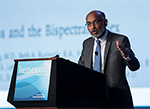 Severinghaus Lecture: EEG a key to understanding anesthesiaMany mysteries about the brain and its workings remain to be solved, and anesthesiologists play a big role in increasing that understanding. Emery N. Brown, M.D., Ph.D., is a leader in that effort, and one of his key tools is the EEG. Wednesday, he used the John W. Severinghaus Lecture on Translational Science to explain what we have learned through EEGs.Read More
Severinghaus Lecture: EEG a key to understanding anesthesiaMany mysteries about the brain and its workings remain to be solved, and anesthesiologists play a big role in increasing that understanding. Emery N. Brown, M.D., Ph.D., is a leader in that effort, and one of his key tools is the EEG. Wednesday, he used the John W. Severinghaus Lecture on Translational Science to explain what we have learned through EEGs.Read More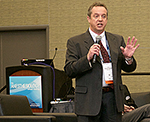 ‘Swimming with the Sharks’ is a big success“Swimming With the Sharks” showcased to a packed audience the medical device or drug products of five anesthesiologist inventors. The first session of its kind at the ANESTHESIOLOGY meeting, the Tuesday session simulated how pharmaceutical and medical devices are developed and brought to market in real life. No winner was selected from the presentations.Read More
‘Swimming with the Sharks’ is a big success“Swimming With the Sharks” showcased to a packed audience the medical device or drug products of five anesthesiologist inventors. The first session of its kind at the ANESTHESIOLOGY meeting, the Tuesday session simulated how pharmaceutical and medical devices are developed and brought to market in real life. No winner was selected from the presentations.Read More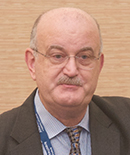 Better monitoring, guidelines key to reducing complicationsPostoperative complications are a problem area in anesthesia, but studies define a road to help reduce them. During Tuesday’s “Neuromuscular Physiology, Pharmacology and Monitoring: Debunking the Myths,” four anesthesiologists examined the need for better guidelines, the use of scientific methods to assess anesthesia recovery, objective monitoring and debunking myths about operating conditions to improve treatment.Read More
Better monitoring, guidelines key to reducing complicationsPostoperative complications are a problem area in anesthesia, but studies define a road to help reduce them. During Tuesday’s “Neuromuscular Physiology, Pharmacology and Monitoring: Debunking the Myths,” four anesthesiologists examined the need for better guidelines, the use of scientific methods to assess anesthesia recovery, objective monitoring and debunking myths about operating conditions to improve treatment.Read More Colorado Society takes action to help Veterans receive timely careLast week, several articles were published reporting that “since early August” the Denver VA Medical Center has cancelled or postponed “65-90 non-emergent surgeries” because of a “shortage of staff, specifically anesthesiologists and nurse anesthetists.” ASA is committed to ensuring our nations’ Veterans have access to safe, high-quality care and was deeply concerned by these claims.Read More
Colorado Society takes action to help Veterans receive timely careLast week, several articles were published reporting that “since early August” the Denver VA Medical Center has cancelled or postponed “65-90 non-emergent surgeries” because of a “shortage of staff, specifically anesthesiologists and nurse anesthetists.” ASA is committed to ensuring our nations’ Veterans have access to safe, high-quality care and was deeply concerned by these claims.Read More- Dec. 31 is the deadline to claim CME creditsDue to new claiming requirements, all credits for live meetings now must be claimed in the calendar year in which the meeting took place. That means that your credits from ANESTHESIOLOGY 2017 must be claimed by midnight on Dec. 31, 2017.Read More
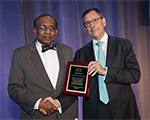 Celebration of Research recognizes best and brightestSponsored by the Foundation for Anesthesia Education and Research and the journal Anesthesiology, the 2017 Celebration of Research honored individuals who have made notable contributions to the science that drives our specialty.Read More
Celebration of Research recognizes best and brightestSponsored by the Foundation for Anesthesia Education and Research and the journal Anesthesiology, the 2017 Celebration of Research honored individuals who have made notable contributions to the science that drives our specialty.Read More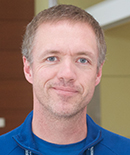 ‘What has been the highlight of your ANESTHESIOLOGY 2017?’“The hands-on workshops. I have taken more advantage of them this year than in previous years. There were some difficult airway workshops as well as thoracic anesthesia and lung isolation workshops. They had equipment my hospital doesn’t have or have access to, so I was able to touch that for the first time.”Read More
‘What has been the highlight of your ANESTHESIOLOGY 2017?’“The hands-on workshops. I have taken more advantage of them this year than in previous years. There were some difficult airway workshops as well as thoracic anesthesia and lung isolation workshops. They had equipment my hospital doesn’t have or have access to, so I was able to touch that for the first time.”Read More- Limited resources a challenge during inflight medical emergenciesAny medical emergency is challenge, but if it occurs on a plane, the challenges are multiplied. What medical equipment is available? Is an experienced health care professional available to assist you? What is your professional liability? What is your ethical responsibility?Read More
- Ethics review: How to deal with disruptive behaviorsBad behavior in the workplace is difficult to manage, but it becomes more problematic when it has the potential to affect patient outcomes. A Wednesday ethics session will use scenarios and presentations to examine how to deal with disruptive behavior.Read More
October 25, 2016
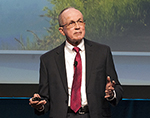 Rovenstine Lecture: Professionalism requires a lifetime commitmentIn a soul-searching Emery A. Rovenstine Memorial Lecture on Monday, David Chestnut, M.D., examined the key attributes of professionalism and his own journey on the road to professionalism in anesthesiology.Read More
Rovenstine Lecture: Professionalism requires a lifetime commitmentIn a soul-searching Emery A. Rovenstine Memorial Lecture on Monday, David Chestnut, M.D., examined the key attributes of professionalism and his own journey on the road to professionalism in anesthesiology.Read More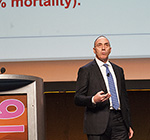 FAER Lecture: Changes in culture, technology improving care in ICUsEarly in their history, ICUs were almost a waiting room for mortality, but that attitude is long gone because of changes in culture as much as changes in treatment. In his FAER-Helrich Research Monday, Michael A. Gropper, M.D., Ph.D., reviewed the positive effects of those changes.Read More
FAER Lecture: Changes in culture, technology improving care in ICUsEarly in their history, ICUs were almost a waiting room for mortality, but that attitude is long gone because of changes in culture as much as changes in treatment. In his FAER-Helrich Research Monday, Michael A. Gropper, M.D., Ph.D., reviewed the positive effects of those changes.Read More Academic medical practice undergoing fundamental changeBig changes are taking place in academic medical practice as the line between academic and private practice begins to blur. Today, more and more academic practices are being run by for-profit groups and community practices are being run by academic institutions.Read More
Academic medical practice undergoing fundamental changeBig changes are taking place in academic medical practice as the line between academic and private practice begins to blur. Today, more and more academic practices are being run by for-profit groups and community practices are being run by academic institutions.Read More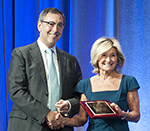 Celebration of Research honors specialty’s top scholarsA few of the specialty’s best and brightest were honored with research awards Monday during the annual Celebration of Research event. Highlights included recognition of the following individuals:Read More
Celebration of Research honors specialty’s top scholarsA few of the specialty’s best and brightest were honored with research awards Monday during the annual Celebration of Research event. Highlights included recognition of the following individuals:Read More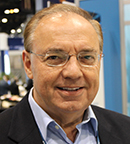 ‘What’s been the highlight of ANESTHESIOLOGY 2016 so far?’There are still lots of sessions and events remaining at ANESTHESIOLOGY 2016, but we thought we’d ask ASA members what has stood out for them so far.Read More
‘What’s been the highlight of ANESTHESIOLOGY 2016 so far?’There are still lots of sessions and events remaining at ANESTHESIOLOGY 2016, but we thought we’d ask ASA members what has stood out for them so far.Read More- Challenges arise with increased use of neuroanesthesia outside the O.R.The development of new interventional procedures has increased the use of neuroanesthesia and moved some of those procedures out of the operating suite to remote locations in the hospital, creating challenges for general anesthesiologists. A Tuesday session will look at how to deal with the challenges of those procedures.Read More
 Health care can learn from Fortune 500 companiesFortune 500 companies have developed tremendously successful business models that many health care organizations could emulate. A Tuesday session will look at how some of those business practices should be adopted in medicine.Read More
Health care can learn from Fortune 500 companiesFortune 500 companies have developed tremendously successful business models that many health care organizations could emulate. A Tuesday session will look at how some of those business practices should be adopted in medicine.Read More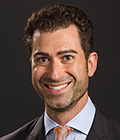 In-flight emergencies: Limited resources in a challenging situationWhile traveling in 2014, anesthesiologist Philip Rubin, M.D., tried to assist a fellow passenger who suffered a heart attack on a domestic flight. He was surprised by the limited resources available on board a large passenger jet for a medical emergency and has since been working to improve the equipment available on planes in the U.S.Read More
In-flight emergencies: Limited resources in a challenging situationWhile traveling in 2014, anesthesiologist Philip Rubin, M.D., tried to assist a fellow passenger who suffered a heart attack on a domestic flight. He was surprised by the limited resources available on board a large passenger jet for a medical emergency and has since been working to improve the equipment available on planes in the U.S.Read More- Aging anesthesiologists can still play a key roleThe “gray tsunami” of aging baby boomers is reflected in the specialty of anesthesiology as much as in any other segment of the population. The number of practicing anesthesiologists over age 65 has increased from 10 percent to close to 15 percent in the last 10 years. Those senior anesthesiologists, though, still have a lot to offer.Read More
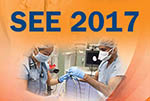 Do you SEE yourself as a question writer?The ASA’s Self-Education and Evaluation (SEE) program is one of the society’s most popular and valuable educational tools. That’s because SEE is one of the best ways for physician anesthesiologists to stay at the forefront of the latest knowledge and techniques that help enhance patient care.Read More
Do you SEE yourself as a question writer?The ASA’s Self-Education and Evaluation (SEE) program is one of the society’s most popular and valuable educational tools. That’s because SEE is one of the best ways for physician anesthesiologists to stay at the forefront of the latest knowledge and techniques that help enhance patient care.Read More
October 25, 2016
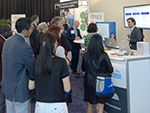 Masterclasses offer you a world of global humanitarian experiences in short, informal sessionsPerhaps you’ve considered getting involved in humanitarian work in low-resource settings, but you have lots of questions about what to expect.Read More
Masterclasses offer you a world of global humanitarian experiences in short, informal sessionsPerhaps you’ve considered getting involved in humanitarian work in low-resource settings, but you have lots of questions about what to expect.Read More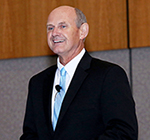 Physician anesthesiologists best-equipped to improve perioperative patient safetyAnesthesiologists have long taken the lead in improving intraoperative patient safety. However, now is the time to take the lead in improving patient safety throughout the perioperative period.Read More
Physician anesthesiologists best-equipped to improve perioperative patient safetyAnesthesiologists have long taken the lead in improving intraoperative patient safety. However, now is the time to take the lead in improving patient safety throughout the perioperative period.Read More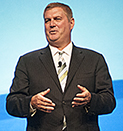 Abrashoff: Focus your efforts on things you can influenceMichael Abrashoff was faced with taking one of the worst-performing ships in the U.S. Navy and completely changing its culture with the same crew and no power over the budget. It is easy to compare that situation to similar dilemmas health care professionals face at their institutions, and on Saturday morning, Abrashoff explained how to tackle such a tough job.Read More
Abrashoff: Focus your efforts on things you can influenceMichael Abrashoff was faced with taking one of the worst-performing ships in the U.S. Navy and completely changing its culture with the same crew and no power over the budget. It is easy to compare that situation to similar dilemmas health care professionals face at their institutions, and on Saturday morning, Abrashoff explained how to tackle such a tough job.Read More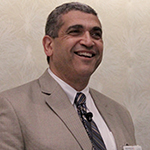 Myth buster: Analysis shoots down economic notions in anesthesiaPhysician anesthesiologists are constantly battered by conventional economic wisdom. Focusing on turnover time will improve O.R. throughput. Anesthesia providers prefer longer surgeries because anesthesia revenue includes time. Moving from physician-only staffing to medical-direction staffing will reduce staffing costs. Per-provider benchmarks based on FTEs allow accurate comparisons of productivity.Read More
Myth buster: Analysis shoots down economic notions in anesthesiaPhysician anesthesiologists are constantly battered by conventional economic wisdom. Focusing on turnover time will improve O.R. throughput. Anesthesia providers prefer longer surgeries because anesthesia revenue includes time. Moving from physician-only staffing to medical-direction staffing will reduce staffing costs. Per-provider benchmarks based on FTEs allow accurate comparisons of productivity.Read More Learning resilience may help you cope with stressDealing with life-and-death situations in the O.R. can be stressful, taking their toll over the course of time. Counteracting that stress could be achieved by learning to be resilient, a theory that was the subject of a Problem-Based Learning Discussion (PBLD) Saturday.Read More
Learning resilience may help you cope with stressDealing with life-and-death situations in the O.R. can be stressful, taking their toll over the course of time. Counteracting that stress could be achieved by learning to be resilient, a theory that was the subject of a Problem-Based Learning Discussion (PBLD) Saturday.Read More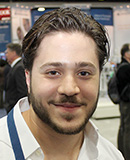 Question of the Day: ‘What brought you to the exhibits today?’The companies that exhibit at the ANESTHESIOLOGY annual meeting each year contribute greatly to its success. Their support is crucial to the vitality and viability of the meeting experience. The Daily News asked Connection Center attendees what brought them to the exhibit hall.Read More
Question of the Day: ‘What brought you to the exhibits today?’The companies that exhibit at the ANESTHESIOLOGY annual meeting each year contribute greatly to its success. Their support is crucial to the vitality and viability of the meeting experience. The Daily News asked Connection Center attendees what brought them to the exhibit hall.Read More- Weight-loss drugs can complicate anesthesia in patients with obesityProviding anesthesia or treating pain in patients who are overweight or obese can be difficult, and it can be complicated if the patient is using weight-loss drugs, especially drugs that may contain opioid antagonists. These issues will be discussed today in “The Newest Weight Loss Miracle Drug — Coming Soon to an O.R. Near You.”Read More
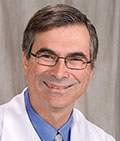 Helrich Lecture: The struggle to measure quality, reduce costsIn its attempts to improve health care and reduce its cost, CMS is redesigning its reimbursement system to incentivize the quality of care instead of the volume of care. Monday’s FAER Helrich Research Lecture will address the limitations of quality measurement and whether payment reform will lead to better patient outcomes.Read More
Helrich Lecture: The struggle to measure quality, reduce costsIn its attempts to improve health care and reduce its cost, CMS is redesigning its reimbursement system to incentivize the quality of care instead of the volume of care. Monday’s FAER Helrich Research Lecture will address the limitations of quality measurement and whether payment reform will lead to better patient outcomes.Read More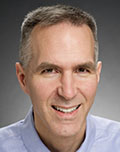 Best of Abstracts: Interesting basic science research featuredNine abstracts chosen as the best basic science papers submitted for the ANESTHESIOLOGY™ 2015 annual meeting will be presented Sunday. They address pulmonary physiology, the molecular mechanisms of anesthetic function, neuroprotection, the consequences of pain and burn injuries. These presentations complement Saturday’s more clinically oriented “Best of Abstracts” session.Read More
Best of Abstracts: Interesting basic science research featuredNine abstracts chosen as the best basic science papers submitted for the ANESTHESIOLOGY™ 2015 annual meeting will be presented Sunday. They address pulmonary physiology, the molecular mechanisms of anesthetic function, neuroprotection, the consequences of pain and burn injuries. These presentations complement Saturday’s more clinically oriented “Best of Abstracts” session.Read More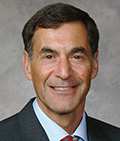 Mentors Workshop to discuss how to become an independent investigatorThe path to becoming an independent scientific investigator will be explained for both mentors and trainees during the “FAER Academy of Research Mentors Workshop,” tomorrow from 2:10 to 4:10 p.m. in Hall H.Read More
Mentors Workshop to discuss how to become an independent investigatorThe path to becoming an independent scientific investigator will be explained for both mentors and trainees during the “FAER Academy of Research Mentors Workshop,” tomorrow from 2:10 to 4:10 p.m. in Hall H.Read More
October 24, 2016
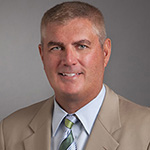 Former Navy commander Michael Abrashoff to speak on transformative leadership at Opening SessionThe ANESTHESIOLOGY® 2015 annual meeting will get off to an inspirational start at 9 a.m. this morning as Michael Abrashoff addresses attendees on leadership and organizational transformation.Read More
Former Navy commander Michael Abrashoff to speak on transformative leadership at Opening SessionThe ANESTHESIOLOGY® 2015 annual meeting will get off to an inspirational start at 9 a.m. this morning as Michael Abrashoff addresses attendees on leadership and organizational transformation.Read More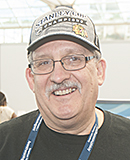 Question of the day: ‘Why does ASA membership matter to you?’Membership Matters is a communications campaign highlighting the value of ASA membership for all providers of anesthesia care, so the ASA Daily News asked attendees about the value of joining ASA.Read More
Question of the day: ‘Why does ASA membership matter to you?’Membership Matters is a communications campaign highlighting the value of ASA membership for all providers of anesthesia care, so the ASA Daily News asked attendees about the value of joining ASA.Read More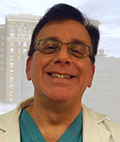 Moving toward optimal post-op pain managementA new vision in pain management is sweeping through anesthesiology. More effective pain management before, during and long after surgery can translate directly into improved outcomes, shorter length of stay, reduced costs and improved patient satisfaction.Read More
Moving toward optimal post-op pain managementA new vision in pain management is sweeping through anesthesiology. More effective pain management before, during and long after surgery can translate directly into improved outcomes, shorter length of stay, reduced costs and improved patient satisfaction.Read More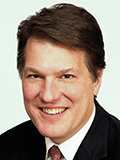 Hospitals redesigning the way anesthesia care is deliveredDelivering anesthesia care isn’t always as efficient as it can be. It is not always the fault of anesthesiologists, surgeons or the team in the operating room (O.R.). Key drivers of inefficient care often come directly from having to deliver care in an inefficient environment. In recent years, process and architectural design specialists have been transforming the way health care is delivered.Read More
Hospitals redesigning the way anesthesia care is deliveredDelivering anesthesia care isn’t always as efficient as it can be. It is not always the fault of anesthesiologists, surgeons or the team in the operating room (O.R.). Key drivers of inefficient care often come directly from having to deliver care in an inefficient environment. In recent years, process and architectural design specialists have been transforming the way health care is delivered.Read More DNR: Negotiating and respecting patient goals in surgeryAdvance directives are not always helpful. Take the patient who needs a palliative surgery but has a do not resuscitate (DNR) order. Safely administering anesthesia is difficult enough without a DNR order in place. If the patient is 15, old enough to voice considered opinions about resuscitation but not old enough to give legal consent, the physician anesthesiologist can be in a difficult position.Read More
DNR: Negotiating and respecting patient goals in surgeryAdvance directives are not always helpful. Take the patient who needs a palliative surgery but has a do not resuscitate (DNR) order. Safely administering anesthesia is difficult enough without a DNR order in place. If the patient is 15, old enough to voice considered opinions about resuscitation but not old enough to give legal consent, the physician anesthesiologist can be in a difficult position.Read More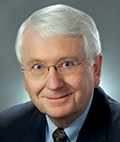 APSF videos an excellent way to help improve patient safetyEvery physician anesthesiologist should know which patients are at elevated risk for fire hazards — surgery above T5 and the use of an ignition source in proximity to an oxidizer-enriched atmosphere. Yet despite the knowledge, surgical fires are a continuing hazard to patients, to health care providers and to facilities.Read More
APSF videos an excellent way to help improve patient safetyEvery physician anesthesiologist should know which patients are at elevated risk for fire hazards — surgery above T5 and the use of an ignition source in proximity to an oxidizer-enriched atmosphere. Yet despite the knowledge, surgical fires are a continuing hazard to patients, to health care providers and to facilities.Read More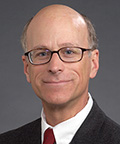 ANESTHESIOLOGY™ 2015 launches simultaneous publication of trialsASA is unveiling three major clinical trials Sunday with simultaneous publication in major medical journals. This is the first year the Society is presenting key results on the day of publication.Read More
ANESTHESIOLOGY™ 2015 launches simultaneous publication of trialsASA is unveiling three major clinical trials Sunday with simultaneous publication in major medical journals. This is the first year the Society is presenting key results on the day of publication.Read More- Session to present update on malpractice issuesBad things can happen to good anesthesiologists. But bad patient outcomes don’t have to translate into bad legal and financial outcomes. Every physician anesthesiologist can take a few basic steps to protect their patients and themselves.Read More
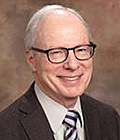 Managing work hours for the good of our patients — and ourselvesEvery physician anesthesiologist remembers the long, fatigue-filled and sometimes difficult hours of residency. A growing body of evidence suggests that fatigue is more than feeling tired. Fatigue can be an important factor in patient safety and physician health.Read More
Managing work hours for the good of our patients — and ourselvesEvery physician anesthesiologist remembers the long, fatigue-filled and sometimes difficult hours of residency. A growing body of evidence suggests that fatigue is more than feeling tired. Fatigue can be an important factor in patient safety and physician health.Read More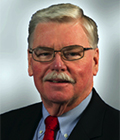 American Hospital Association CMO to discuss ‘Integrated Leadership in Healthcare’ SundayThe health care system of the future will demand delivery of greater value at reduced costs. The leaders of this system will need new skill sets and the ability to adapt to an ever-changing variety of market forces.Read More
American Hospital Association CMO to discuss ‘Integrated Leadership in Healthcare’ SundayThe health care system of the future will demand delivery of greater value at reduced costs. The leaders of this system will need new skill sets and the ability to adapt to an ever-changing variety of market forces.Read More
October 24, 2016
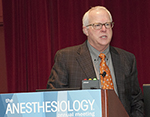 Lean: Applying manufacturing efficiencies to reduce health care costsThe U.S. has the highest cost of health care in the world, and government and industry have long struggled to find ways to improve efficiency. One option gaining attention is the adoption of lean principles started by auto manufacturers in Japan. A Sunday session, “Kaizen! Employing Lean Principles in the Ambulatory Setting,” looked at the potential of lean.Read More
Lean: Applying manufacturing efficiencies to reduce health care costsThe U.S. has the highest cost of health care in the world, and government and industry have long struggled to find ways to improve efficiency. One option gaining attention is the adoption of lean principles started by auto manufacturers in Japan. A Sunday session, “Kaizen! Employing Lean Principles in the Ambulatory Setting,” looked at the potential of lean.Read More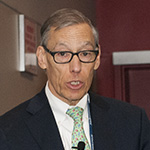 Expensive care in bad situations an ethical dilemma for physiciansThe amount of care to provide to a patient when the chances for survival are limited creates an ethical quandary for physicians. What physicians are required to do for their patients and the impact of that care on cost were discussed Sunday in “I Don’t Care How Much It Costs — I Want It for My Patient!”Read More
Expensive care in bad situations an ethical dilemma for physiciansThe amount of care to provide to a patient when the chances for survival are limited creates an ethical quandary for physicians. What physicians are required to do for their patients and the impact of that care on cost were discussed Sunday in “I Don’t Care How Much It Costs — I Want It for My Patient!”Read More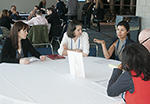 Roundtable discussion ponders how to address DNR orders in O.R.A Sunday Problem-Based Learning Discussion featured a freewheeling roundtable discussion of how to deal with a decompensating neonate in the O.R. when a do-not-resuscitate (DNR) order is in place for the newborn.Read More
Roundtable discussion ponders how to address DNR orders in O.R.A Sunday Problem-Based Learning Discussion featured a freewheeling roundtable discussion of how to deal with a decompensating neonate in the O.R. when a do-not-resuscitate (DNR) order is in place for the newborn.Read More Should anesthesiologists participate in terminal live organ donation procedures?In a Problem-Based Learning Discussion Sunday, members of a roundtable discussion group were asked to think about whether they would participate in a procedure harvesting organs from a living organ donor who was close to death.Read More
Should anesthesiologists participate in terminal live organ donation procedures?In a Problem-Based Learning Discussion Sunday, members of a roundtable discussion group were asked to think about whether they would participate in a procedure harvesting organs from a living organ donor who was close to death.Read More MACRA panel aims to help ease transformation of Medicare paymentIf you find the new rules and regulations associated with the Medicare Access and CHIP Reauthorization Act (MACRA) daunting or confusing, you’re not alone.Read More
MACRA panel aims to help ease transformation of Medicare paymentIf you find the new rules and regulations associated with the Medicare Access and CHIP Reauthorization Act (MACRA) daunting or confusing, you’re not alone.Read More ASA Monitor: By you, for youThe ASA Monitor has gone through some big changes over the last year. It got a new name (it had long grown out of its ASA Newsletter designation). It has its own website. And its content is now being accompanied by informative and entertaining podcasts.Read More
ASA Monitor: By you, for youThe ASA Monitor has gone through some big changes over the last year. It got a new name (it had long grown out of its ASA Newsletter designation). It has its own website. And its content is now being accompanied by informative and entertaining podcasts.Read More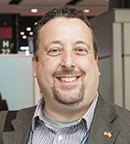 ‘The Cubs are in the World Series; What will be the next epic event for anesthesiology?’ Tens of millions of Chicago Cubs fans the world over woke up on Sunday morning and scanned their respective horizons, looking to see if the sun would rise. When it did, they realized they truly had witnessed a historic event – the Cubs first World Series appearance in 70 years.Read More
‘The Cubs are in the World Series; What will be the next epic event for anesthesiology?’ Tens of millions of Chicago Cubs fans the world over woke up on Sunday morning and scanned their respective horizons, looking to see if the sun would rise. When it did, they realized they truly had witnessed a historic event – the Cubs first World Series appearance in 70 years.Read More ASA Run for the Warriors® closes seventh year in Chicago-styleIt was a chilly morning, but the skies were crystal clear and an unmistakable Cubbie blue for what turned out to be another highly successful charity event supported by ASA and Hope for the Warriors®, an organization dedicated to enhancing the quality of life for post-9/11 service members and the families of those who sustained physical and psychological wounds in the line of duty.Read More
ASA Run for the Warriors® closes seventh year in Chicago-styleIt was a chilly morning, but the skies were crystal clear and an unmistakable Cubbie blue for what turned out to be another highly successful charity event supported by ASA and Hope for the Warriors®, an organization dedicated to enhancing the quality of life for post-9/11 service members and the families of those who sustained physical and psychological wounds in the line of duty.Read More- Panel to address top questions in obstetric anesthesiaThe development of new guidelines in obstetric anesthesiology and other issues affecting the specialty have raised questions for many anesthesiologists. The questions will be addressed in an education session Monday.Read More
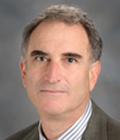 Mindfulness helps some deal with stress, burnoutStress and burnout are threats to all health care professionals, who increasingly are exploring different avenues to cope with those issues. A Monday workshop will look at the benefits of mindfulness that an increasing number of medical professionals use to deal with challenges in work and life.Read More
Mindfulness helps some deal with stress, burnoutStress and burnout are threats to all health care professionals, who increasingly are exploring different avenues to cope with those issues. A Monday workshop will look at the benefits of mindfulness that an increasing number of medical professionals use to deal with challenges in work and life.Read More
October 24, 2016
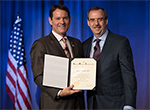 Rovenstine Lecture: Moving beyond measurementUsing measurement to improve outcomes is all the rage in modern medicine. Many medical specialties, including anesthesia, are collecting data, so the next step is to coordinate those measurements and include the feedback of patients, said Lee A. Fleisher, M.D., on Monday during the Emery A. Rovenstine Memorial Lecture.Read More
Rovenstine Lecture: Moving beyond measurementUsing measurement to improve outcomes is all the rage in modern medicine. Many medical specialties, including anesthesia, are collecting data, so the next step is to coordinate those measurements and include the feedback of patients, said Lee A. Fleisher, M.D., on Monday during the Emery A. Rovenstine Memorial Lecture.Read More Future of specialty does not lie in status quoDuring the question-and-answer portion of Monday’s “Strategic Dialogue on the Future of Anesthesiology” session, former ASA Vice President for Scientific Affairs Arnold J. Berry, M.D., M.P.H., began his comments by paraphrasing Ronald Reagan: “Status quo is Latin for ‘what got us into this mess.’”Read More
Future of specialty does not lie in status quoDuring the question-and-answer portion of Monday’s “Strategic Dialogue on the Future of Anesthesiology” session, former ASA Vice President for Scientific Affairs Arnold J. Berry, M.D., M.P.H., began his comments by paraphrasing Ronald Reagan: “Status quo is Latin for ‘what got us into this mess.’”Read More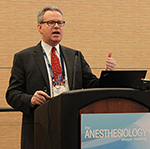 Improving O.R. efficiency means reducing over-utilizationIn the O.R., time is money. To run an O.R. efficiently, “reduce your hours of over-utilization,” said Franklin Dexter, M.D., Ph.D. In other words, do what you can to avoid ending later than scheduled.Read More
Improving O.R. efficiency means reducing over-utilizationIn the O.R., time is money. To run an O.R. efficiently, “reduce your hours of over-utilization,” said Franklin Dexter, M.D., Ph.D. In other words, do what you can to avoid ending later than scheduled.Read More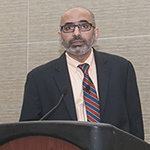 Anesthesia adjustments needed when treating the elderlyThe perioperative treatment of geriatric patients is a challenge because increases in frailty and comorbidities affect how the elderly react to anesthesia and the insult of surgery. Two speakers examined the effects of aging on patients and how to deal with them during Monday’s education session, “The Quick and Dirty on Anesthesia Care for the Complex Geriatric Patient.”Read More
Anesthesia adjustments needed when treating the elderlyThe perioperative treatment of geriatric patients is a challenge because increases in frailty and comorbidities affect how the elderly react to anesthesia and the insult of surgery. Two speakers examined the effects of aging on patients and how to deal with them during Monday’s education session, “The Quick and Dirty on Anesthesia Care for the Complex Geriatric Patient.”Read More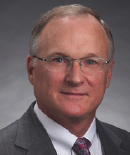 Worthy CAWS: Lecture on workforce data and research seeks questions and answers“All numbers being presented are wrong.”
That’s the disclosure attendees will receive at the opening of today’s Refresher Course Lecture titled “U.S. Anesthesia Workforce and Group Practice Trends: Data Sources and Research Questions.”Read More
Worthy CAWS: Lecture on workforce data and research seeks questions and answers“All numbers being presented are wrong.”
That’s the disclosure attendees will receive at the opening of today’s Refresher Course Lecture titled “U.S. Anesthesia Workforce and Group Practice Trends: Data Sources and Research Questions.”Read More Battling burnoutPhysicians are expected to improve or save the lives of their patients, yet a growing number of physicians are struggling to enhance their own lives. It is estimated that 400 U.S. physicians a year commit suicide and thousands of others struggle with burnout. An interactive Tuesday workshop aims to address these issues and provide tools for resilience at work.Read More
Battling burnoutPhysicians are expected to improve or save the lives of their patients, yet a growing number of physicians are struggling to enhance their own lives. It is estimated that 400 U.S. physicians a year commit suicide and thousands of others struggle with burnout. An interactive Tuesday workshop aims to address these issues and provide tools for resilience at work.Read More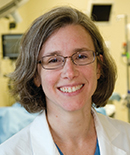 Assessing physician fitness a challengeGauging a physician’s competency does not end with residency. Supervisors must assess fitness to practice whether an anesthesiologist is just beginning residency training or approaching retirement. Tips to improve the assessment process will be presented during a Tuesday panel assembled by the Society for Education in Anesthesia.Read More
Assessing physician fitness a challengeGauging a physician’s competency does not end with residency. Supervisors must assess fitness to practice whether an anesthesiologist is just beginning residency training or approaching retirement. Tips to improve the assessment process will be presented during a Tuesday panel assembled by the Society for Education in Anesthesia.Read More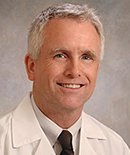 Processes should not change for NORAAnesthesia is increasingly being used outside the operating room in suites designed for less invasive procedures. The change of scenery still requires the use of standard anesthesiology processes and creates new challenges, which will be explored in a Tuesday education session.Read More
Processes should not change for NORAAnesthesia is increasingly being used outside the operating room in suites designed for less invasive procedures. The change of scenery still requires the use of standard anesthesiology processes and creates new challenges, which will be explored in a Tuesday education session.Read More
October 23, 2016
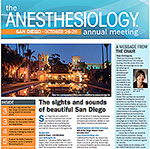 ASA Daily News and Registration News put ANESTHESIOLOGY® 2015 at your fingertipsWhether you’re on site or you couldn’t make it to San Diego this year, the electronic ASA Daily offers the news and information you need to stay informed on what’s happening at the ANESTHESIOLOGY 2015 annual meeting.Read More
ASA Daily News and Registration News put ANESTHESIOLOGY® 2015 at your fingertipsWhether you’re on site or you couldn’t make it to San Diego this year, the electronic ASA Daily offers the news and information you need to stay informed on what’s happening at the ANESTHESIOLOGY 2015 annual meeting.Read More Take action to protect safe VA careDuring the ANESTHESIOLOGY 2015 annual meeting, ASA members will have a unique opportunity to take action to protect safe VA care – the first time members have been offered the opportunity to participate in a top advocacy initiative on site. As leaders in patient safety, ASA members will be asked to act on behalf of their patients and specialty by preparing comments in anticipation of the release of the proposed VHA Nursing Handbook. Read More
Take action to protect safe VA careDuring the ANESTHESIOLOGY 2015 annual meeting, ASA members will have a unique opportunity to take action to protect safe VA care – the first time members have been offered the opportunity to participate in a top advocacy initiative on site. As leaders in patient safety, ASA members will be asked to act on behalf of their patients and specialty by preparing comments in anticipation of the release of the proposed VHA Nursing Handbook. Read More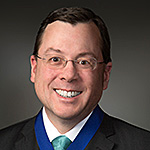 Dr. Abenstein reflects on year as presidentJ.P. Abenstein, M.S.E.E., M.D., 2015 ASA President, talked with the ASA Daily News about what he learned from his term, how the ACA and MACRA will affect health care, and where he sees the specialty headed in a rapidly changing health care system.Read More
Dr. Abenstein reflects on year as presidentJ.P. Abenstein, M.S.E.E., M.D., 2015 ASA President, talked with the ASA Daily News about what he learned from his term, how the ACA and MACRA will affect health care, and where he sees the specialty headed in a rapidly changing health care system.Read More Support ASA’s international outreach efforts at Sunday Charitable Networking EventAt the ANESTHESIOLOGY® 2015 annual meeting this year, you won’t have to travel far to make a world of difference to ASA’s Charitable Foundation and its global humanitarian outreach efforts.Read More
Support ASA’s international outreach efforts at Sunday Charitable Networking EventAt the ANESTHESIOLOGY® 2015 annual meeting this year, you won’t have to travel far to make a world of difference to ASA’s Charitable Foundation and its global humanitarian outreach efforts.Read More Explore the exhibits and so much more at the ASA Connection CenterThe largest anesthesia-related educational event in the world is going to feel pretty small when you’re in the new and improved ASA Connection Center. With so many sessions and events demanding your time, we’ve redesigned the Connection Center so you can maximize your experience with the minimum amount of time and effort.Read More
Explore the exhibits and so much more at the ASA Connection CenterThe largest anesthesia-related educational event in the world is going to feel pretty small when you’re in the new and improved ASA Connection Center. With so many sessions and events demanding your time, we’ve redesigned the Connection Center so you can maximize your experience with the minimum amount of time and effort.Read More Picture this: Professional headshots offered to ASA members in Connection CenterThey say you don’t get a second chance to make a first impression. During exhibit hall hours, you’ll have the opportunity to take a big step toward a good first impression by having a professional portrait taken for free at Booth #4842 in the Connection Center.Read More
Picture this: Professional headshots offered to ASA members in Connection CenterThey say you don’t get a second chance to make a first impression. During exhibit hall hours, you’ll have the opportunity to take a big step toward a good first impression by having a professional portrait taken for free at Booth #4842 in the Connection Center.Read More Self-Study program: CME on your own time, at your own paceA quality education isn’t supposed to be easy, but ASA’s new Self-Study Station program takes a lot of the inconvenience out of traditional learning formats and lets you focus on what matters most: advancing your knowledge.Read More
Self-Study program: CME on your own time, at your own paceA quality education isn’t supposed to be easy, but ASA’s new Self-Study Station program takes a lot of the inconvenience out of traditional learning formats and lets you focus on what matters most: advancing your knowledge.Read More Sunday ABA sessions give you open forum on ABA MOCA 2.0™ and ABA Primary CertificationDon’t know what the ABA MOCA Minute™ is? If you can spare an hour on Sunday afternoon, you’ll learn that and so much more at two American Board of Anesthesiology (ABA) open forums in Hall H.Read More
Sunday ABA sessions give you open forum on ABA MOCA 2.0™ and ABA Primary CertificationDon’t know what the ABA MOCA Minute™ is? If you can spare an hour on Sunday afternoon, you’ll learn that and so much more at two American Board of Anesthesiology (ABA) open forums in Hall H.Read More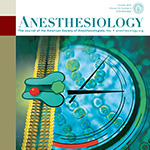 Anesthesiology journal again making big impact at ANESTHESIOLOGY Annual MeetingAnesthesiology, the publication with the highest impact factor among all anesthesiology journals (5.879), has a jam-packed agenda worthy of its reputation at the ANESTHESIOLOGY® 2015 annual meeting.Read More
Anesthesiology journal again making big impact at ANESTHESIOLOGY Annual MeetingAnesthesiology, the publication with the highest impact factor among all anesthesiology journals (5.879), has a jam-packed agenda worthy of its reputation at the ANESTHESIOLOGY® 2015 annual meeting.Read More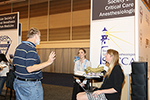 Affiliated Subspecialty Society Pavilion returns for ANESTHESIOLOGY® 2015ASA continues to strengthen its relationships with its affiliated subspecialties, as evidenced by the robust presence of these organizations assembled at the Affiliated Subspecialty Society Pavilion – which returns for its second straight year.
Read More
Affiliated Subspecialty Society Pavilion returns for ANESTHESIOLOGY® 2015ASA continues to strengthen its relationships with its affiliated subspecialties, as evidenced by the robust presence of these organizations assembled at the Affiliated Subspecialty Society Pavilion – which returns for its second straight year.
Read More
October 23, 2016
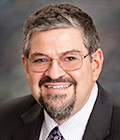 Population health coordinated care at important junctureHealth care is moving from a fee-based to a value-based approach in which reimbursement has been a focus despite the key role of patient management in the change. A Self-Study course available for CME during the ANESTHESIOLOGY 2016 annual meeting focuses on changes in patient management in the value environment.Read More
Population health coordinated care at important junctureHealth care is moving from a fee-based to a value-based approach in which reimbursement has been a focus despite the key role of patient management in the change. A Self-Study course available for CME during the ANESTHESIOLOGY 2016 annual meeting focuses on changes in patient management in the value environment.Read More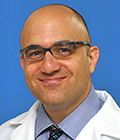 Ketamine showing unique potential beyond anesthesiaIn its 50 years of clinical use, ketamine has become established as an effective drug with unique effects on the brain that distinguish it from other anesthetics. Ketamine has also been found to be an effective antidepressant for psychiatric use, which will be examined in an education session Sunday.Read More
Ketamine showing unique potential beyond anesthesiaIn its 50 years of clinical use, ketamine has become established as an effective drug with unique effects on the brain that distinguish it from other anesthetics. Ketamine has also been found to be an effective antidepressant for psychiatric use, which will be examined in an education session Sunday.Read More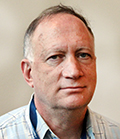 Poster discussion addresses induction technique that may reduce redistribution hypothermiaAccording to Jonathan V. Roth, M.D., anesthesiologists may be capable of reducing the incidence of hypothermia in patients aged 18-55 to 16 percent, and to 28 percent in patients over 55 by utilizing a different induction technique.Read More
Poster discussion addresses induction technique that may reduce redistribution hypothermiaAccording to Jonathan V. Roth, M.D., anesthesiologists may be capable of reducing the incidence of hypothermia in patients aged 18-55 to 16 percent, and to 28 percent in patients over 55 by utilizing a different induction technique.Read More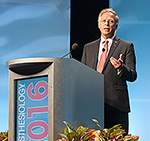 Pierce lecturer addresses challenges to patient safety in developing worldIn his Ellison C. Pierce, Jr., Memorial Lecture Saturday, Alexander A. Hannenberg, M.D., provided a comprehensive look at the patient safety challenges facing developing nations in surgery and the administration of anesthesia, saying that about 5 billion people in developing countries lack access to surgical care and 7 million die or become disabled from surgical complications.Read More
Pierce lecturer addresses challenges to patient safety in developing worldIn his Ellison C. Pierce, Jr., Memorial Lecture Saturday, Alexander A. Hannenberg, M.D., provided a comprehensive look at the patient safety challenges facing developing nations in surgery and the administration of anesthesia, saying that about 5 billion people in developing countries lack access to surgical care and 7 million die or become disabled from surgical complications.Read More- System to report adverse events in anesthesia is improving practiceA system of confidentially reporting adverse events in anesthesia has been in use for several years in the United States, Australia and New Zealand. A review of that reporting system and how it can improve practice will be presented during a Monday education session.Read More
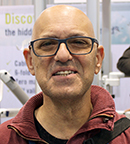 Question of the day: What does the annual meeting do best?On the first full day of the meeting, the ASA Daily News talked to a few attendees to learn what they thought the ANESTHESIOLOGY annual meeting does best.Read More
Question of the day: What does the annual meeting do best?On the first full day of the meeting, the ASA Daily News talked to a few attendees to learn what they thought the ANESTHESIOLOGY annual meeting does best.Read More Process review: How a PSH was successfully implementedImplementing a perioperative surgical home can be a challenge, but UAB Hospital at the University of Alabama at Birmingham has had success with its efforts, which were reviewed by three team members Saturday during “Challenges in Implementation of the Perioperative Surgical Home.”Read More
Process review: How a PSH was successfully implementedImplementing a perioperative surgical home can be a challenge, but UAB Hospital at the University of Alabama at Birmingham has had success with its efforts, which were reviewed by three team members Saturday during “Challenges in Implementation of the Perioperative Surgical Home.”Read More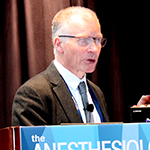 Experts explore use of oxygen for hypoxemia and other conditionsOxygen administration is critical to treating surgical patients with hypoxemia, but should it be used for patients with other conditions, such as cardiac arrest, acute MI or stroke?Read More
Experts explore use of oxygen for hypoxemia and other conditionsOxygen administration is critical to treating surgical patients with hypoxemia, but should it be used for patients with other conditions, such as cardiac arrest, acute MI or stroke?Read More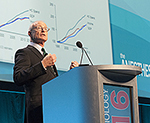 Porter: Focus on value for patients will transform health careHealth care is moving toward a system of value-based reimbursement that is changing practice — to the consternation of some medical professionals. However, after many attempts to improve treatments and reduce costs, that push for value is clearly the way to go, according to Saturday’s Opening Session keynote speaker, Michael Porter, a leading professor of business strategy.Read More
Porter: Focus on value for patients will transform health careHealth care is moving toward a system of value-based reimbursement that is changing practice — to the consternation of some medical professionals. However, after many attempts to improve treatments and reduce costs, that push for value is clearly the way to go, according to Saturday’s Opening Session keynote speaker, Michael Porter, a leading professor of business strategy.Read More
October 23, 2016
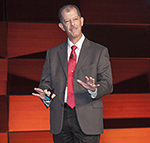 Marx Lecture: Data key to improving obstetric anesthesiology outcomesIn 1939, when Gertie Marx, M.D., the “mother of obstetric anesthesia,” practiced medicine, obstetric anesthesiology didn’t exist. She pioneered the practice. She also was an early advocate of saddle block, the use of caudal catheters and a supporter of permitting fathers in the delivery room. What were the complications rates back then? We can assume they were much higher than today. But no one was keeping track.Read More
Marx Lecture: Data key to improving obstetric anesthesiology outcomesIn 1939, when Gertie Marx, M.D., the “mother of obstetric anesthesia,” practiced medicine, obstetric anesthesiology didn’t exist. She pioneered the practice. She also was an early advocate of saddle block, the use of caudal catheters and a supporter of permitting fathers in the delivery room. What were the complications rates back then? We can assume they were much higher than today. But no one was keeping track.Read More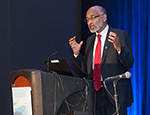 Wright Lecture: Neuroscience, anesthesia need to work togetherResearch on how the brain works is the realm of anesthesiologists and neuroscientists who often interact but do not work together to share their knowledge. Renowned anesthesia researcher Emery N. Brown, M.D., Ph.D., wants that to change.Read More
Wright Lecture: Neuroscience, anesthesia need to work togetherResearch on how the brain works is the realm of anesthesiologists and neuroscientists who often interact but do not work together to share their knowledge. Renowned anesthesia researcher Emery N. Brown, M.D., Ph.D., wants that to change.Read More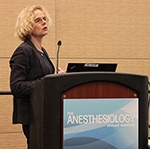 Journal Symposium: Strategies primed to tackle opioid crisisDespite efforts to curb opioid prescriptions, the Centers for Disease Control and Prevention reports that synthetic opioid related fatalities increased 22 percent in 2016, surpassing deaths related to heroin or prescription opioids.Read More
Journal Symposium: Strategies primed to tackle opioid crisisDespite efforts to curb opioid prescriptions, the Centers for Disease Control and Prevention reports that synthetic opioid related fatalities increased 22 percent in 2016, surpassing deaths related to heroin or prescription opioids.Read More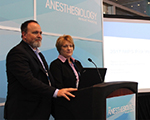 Last-chance MACRA reporting questions answered at Industry TheaterPractices that have not yet determined how to meet 2017 MACRA reporting requirements are not alone. More important, they are not too late to learn about last-minute reporting options through the Anesthesia Quality Institute’s (AQI’s) National Anesthesia Clinical Outcomes Registry (NACOR).Read More
Last-chance MACRA reporting questions answered at Industry TheaterPractices that have not yet determined how to meet 2017 MACRA reporting requirements are not alone. More important, they are not too late to learn about last-minute reporting options through the Anesthesia Quality Institute’s (AQI’s) National Anesthesia Clinical Outcomes Registry (NACOR).Read More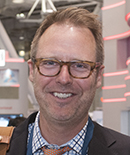 ‘What interesting or useful products have you seen in the Connection Center?’“For me, it is a lot of the small things. It’s great that there are machines and ultrasound etc., but the average practicing anesthesiologist does not purchase the big equipment. I like seeing items like pre-made bite blocks or I.V. extension things that are small and easily obtained but can make big differences in our daily workflow.”Read More
‘What interesting or useful products have you seen in the Connection Center?’“For me, it is a lot of the small things. It’s great that there are machines and ultrasound etc., but the average practicing anesthesiologist does not purchase the big equipment. I like seeing items like pre-made bite blocks or I.V. extension things that are small and easily obtained but can make big differences in our daily workflow.”Read More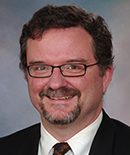 ACE & SEE Live: Changing your practiceGet the latest updates on a variety of patient safety issues Tuesday during a fast-paced, interactive session led by editors of ASA’s ACE and SEE education programs.Read More
ACE & SEE Live: Changing your practiceGet the latest updates on a variety of patient safety issues Tuesday during a fast-paced, interactive session led by editors of ASA’s ACE and SEE education programs.Read More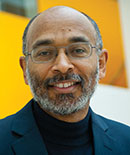 Severinghaus Lecture: Role of EEG, future of brain researchThe electroencephalogram (EEG) has been foundational for the study of the effects of anesthesia on the brain for 80 years, since the publication of a landmark study of its use. In Tuesday’s John W. Severinghaus Lecture, renowned anesthesiologist and researcher Emery N. Brown, M.D., Ph.D., will examine the history of EEG, its impact on science and the future of studying the effects of anesthesia.Read More
Severinghaus Lecture: Role of EEG, future of brain researchThe electroencephalogram (EEG) has been foundational for the study of the effects of anesthesia on the brain for 80 years, since the publication of a landmark study of its use. In Tuesday’s John W. Severinghaus Lecture, renowned anesthesiologist and researcher Emery N. Brown, M.D., Ph.D., will examine the history of EEG, its impact on science and the future of studying the effects of anesthesia.Read More FAER-Helrich Lecture: Learning from consciousness at near-deathWhat happens to humans in the moments surrounding death might be one of the most intriguing mysteries of life. Monday’s FAER-Helrich Research Lecture will explore that mystery as well as the role anesthesiologists could play in solving it.Read More
FAER-Helrich Lecture: Learning from consciousness at near-deathWhat happens to humans in the moments surrounding death might be one of the most intriguing mysteries of life. Monday’s FAER-Helrich Research Lecture will explore that mystery as well as the role anesthesiologists could play in solving it.Read More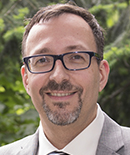 Interventions can help prevent PTSDRecurrent exposure to violence and life-threatening situations can link physicians with soldiers, firefighters and police officers in the form of post-traumatic stress disorder (PTSD). It also can link physicians with patients who have experienced traumatic illness or injury.Read More
Interventions can help prevent PTSDRecurrent exposure to violence and life-threatening situations can link physicians with soldiers, firefighters and police officers in the form of post-traumatic stress disorder (PTSD). It also can link physicians with patients who have experienced traumatic illness or injury.Read More Preparing for emergencies in smaller facilitiesA growing number of surgical procedures are performed on healthy children in ambulatory surgery centers and satellite hospitals where emergencies are rare. Emergencies do happen, so anesthesiologists need to be prepared.Read More
Preparing for emergencies in smaller facilitiesA growing number of surgical procedures are performed on healthy children in ambulatory surgery centers and satellite hospitals where emergencies are rare. Emergencies do happen, so anesthesiologists need to be prepared.Read More
October 22, 2016
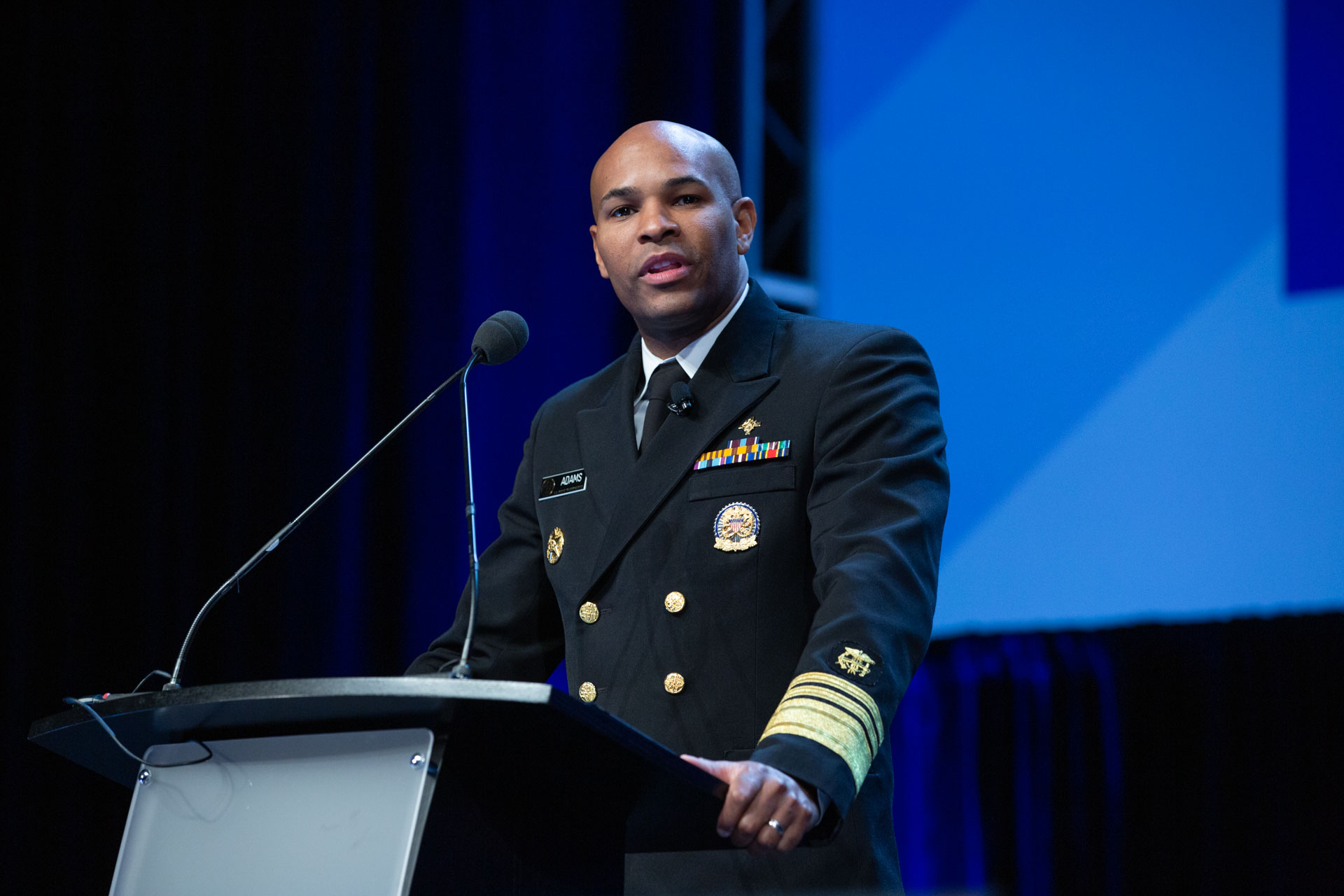 Anesthesiologists: Be physicians, not proceduralistsU.S. Surgeon General Jerome Adams, M.D., M.P.H., is calling on anesthesiologists to improve the health in their communities by championing their roles as physicians over that of proceduralists.Read More
Anesthesiologists: Be physicians, not proceduralistsU.S. Surgeon General Jerome Adams, M.D., M.P.H., is calling on anesthesiologists to improve the health in their communities by championing their roles as physicians over that of proceduralists.Read More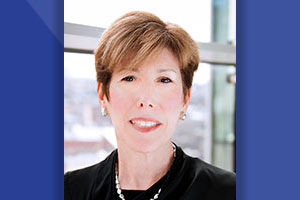 Severinghaus Lecture: No two lungs are alikeJeanine P. Wiener-Kronish, M.D., understands physiology from bench to bedside to operating table. For 11 years, she’s been Chair of Anesthesia, Critical Care and Pain Medicine at Massachusetts General Hospital. But she also spent 35 years doing clinical research.Read More
Severinghaus Lecture: No two lungs are alikeJeanine P. Wiener-Kronish, M.D., understands physiology from bench to bedside to operating table. For 11 years, she’s been Chair of Anesthesia, Critical Care and Pain Medicine at Massachusetts General Hospital. But she also spent 35 years doing clinical research.Read More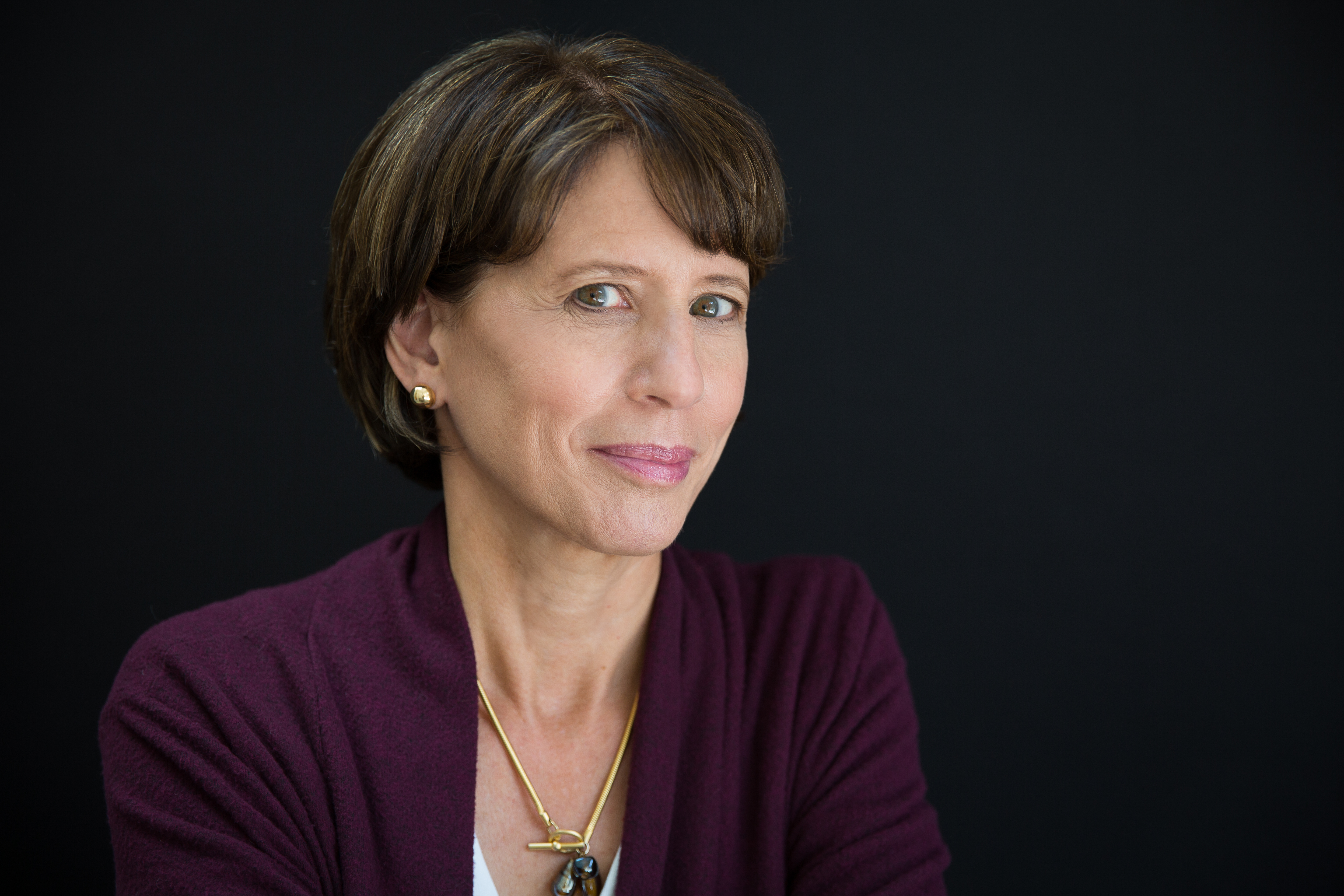 The power of women anesthesiologistsFemale physician anesthesiologists shouldn’t have to break a glass ceiling to achieve success. Women can stand shoulder-to-shoulder with their male counterparts with confidence and improved negotiation skills.Read More
The power of women anesthesiologistsFemale physician anesthesiologists shouldn’t have to break a glass ceiling to achieve success. Women can stand shoulder-to-shoulder with their male counterparts with confidence and improved negotiation skills.Read More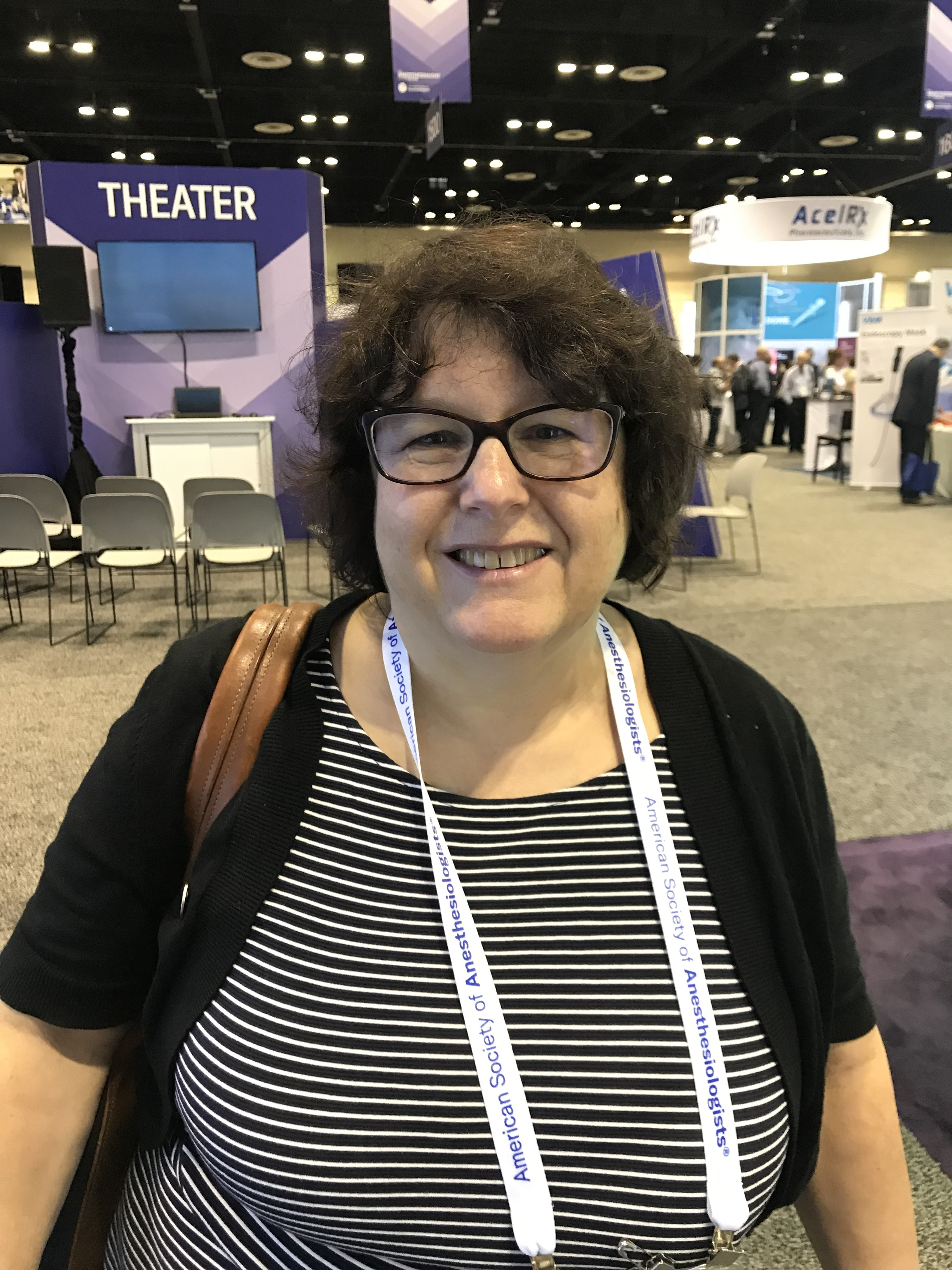 Question of the Day: What has been the highlight of the meeting for you?On this final day of ANESTHESIOLOGY® 2019, the ASA Daily News staff asked attendees to reflect on their time at the annual meeting.Read More
Question of the Day: What has been the highlight of the meeting for you?On this final day of ANESTHESIOLOGY® 2019, the ASA Daily News staff asked attendees to reflect on their time at the annual meeting.Read More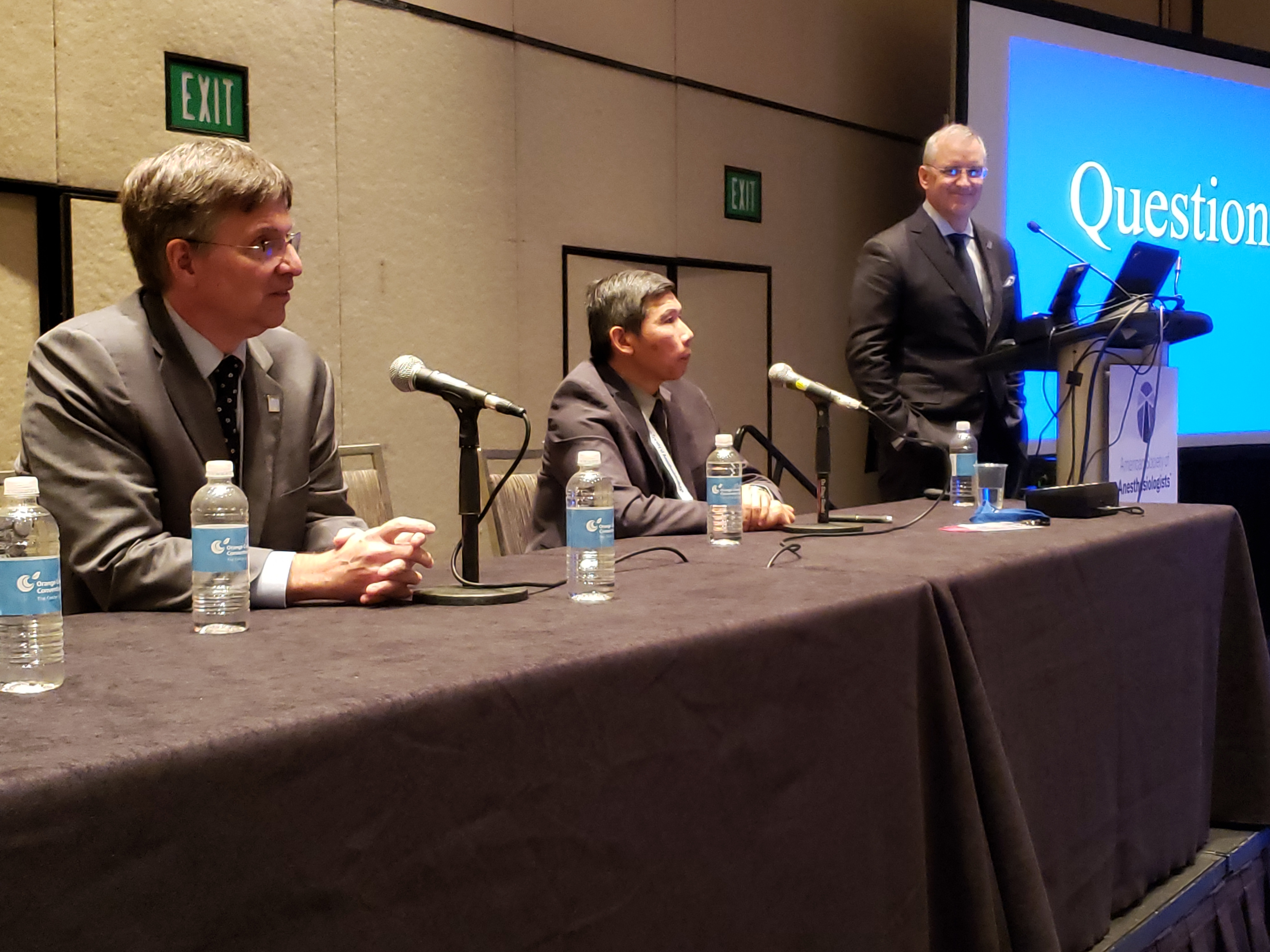 Does MIPS reporting improve quality?Health care professionals are divided over the current Merit-Based Incentive Payment System (MIPS) program that determines Medicare payment adjustments based on provider care. Read More
Does MIPS reporting improve quality?Health care professionals are divided over the current Merit-Based Incentive Payment System (MIPS) program that determines Medicare payment adjustments based on provider care. Read More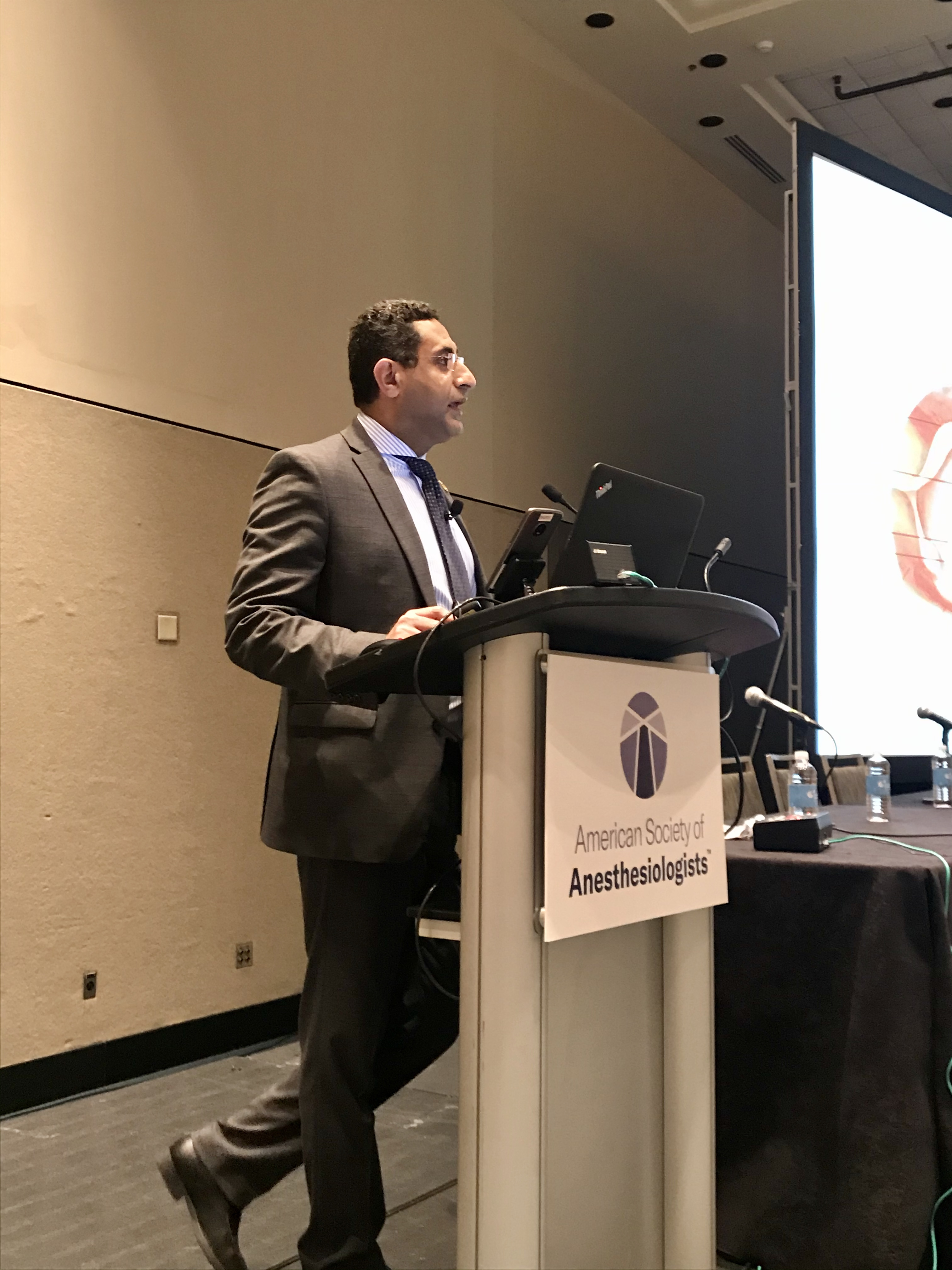 Having a plan and sticking to it can help reduce extubation failuresDeath and permanent brain damage still occur in a number of patients with extubation failure. That’s the word from the ASA Closed Claims Project Database and the focus of Monday’s session “Extubation of the Difficult Airway with a Focus on Patient Outcomes.”Read More
Having a plan and sticking to it can help reduce extubation failuresDeath and permanent brain damage still occur in a number of patients with extubation failure. That’s the word from the ASA Closed Claims Project Database and the focus of Monday’s session “Extubation of the Difficult Airway with a Focus on Patient Outcomes.”Read More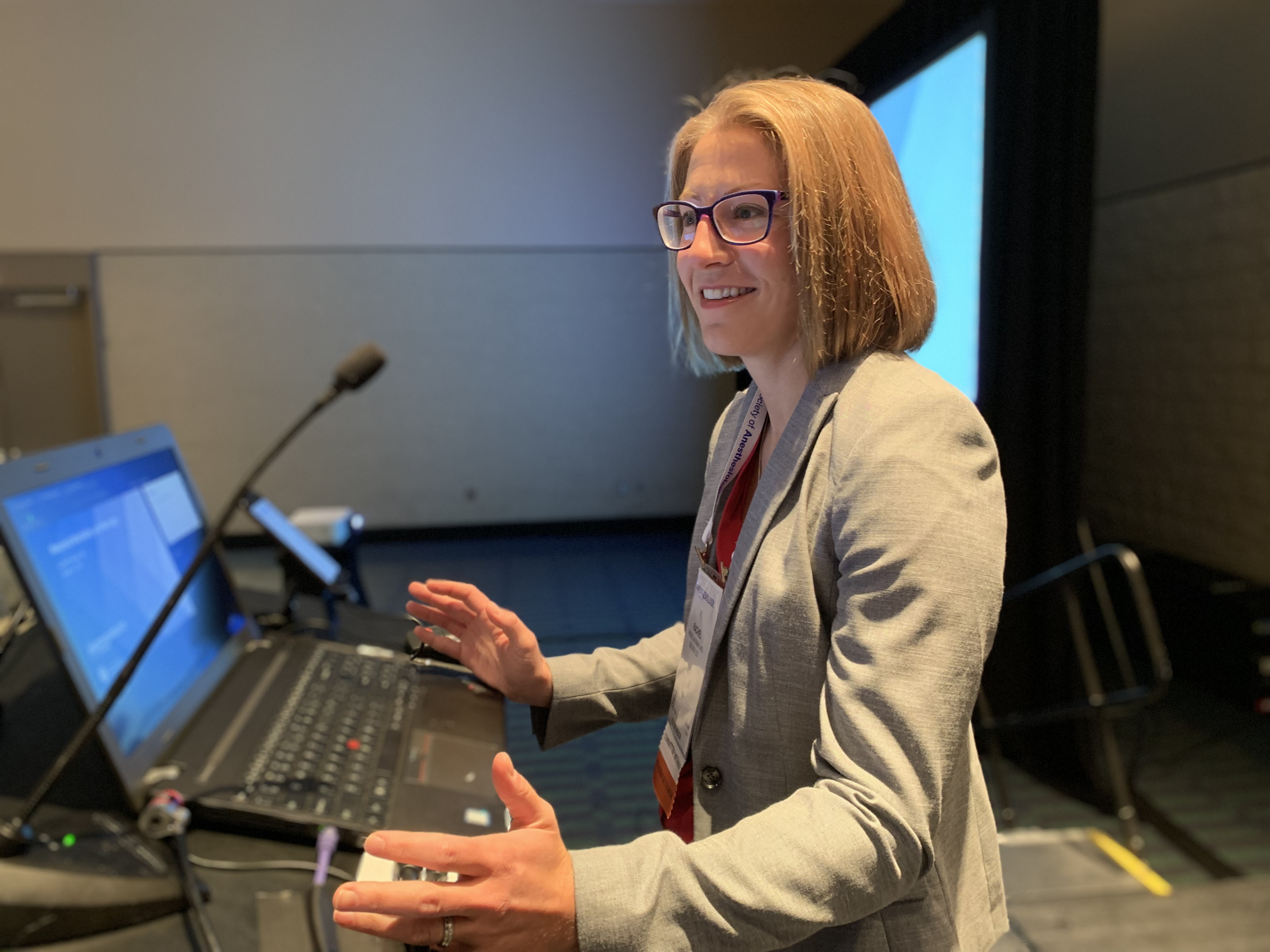 The anesthesiologist’s role in reducing maternal mortality and morbidityIt could be a headline straight out of the pioneer days, when maternal mortality rates were abysmal. Yet in 2019, news headlines about maternal morbidity and mortality remain modern-day health care problems.Read More
The anesthesiologist’s role in reducing maternal mortality and morbidityIt could be a headline straight out of the pioneer days, when maternal mortality rates were abysmal. Yet in 2019, news headlines about maternal morbidity and mortality remain modern-day health care problems.Read More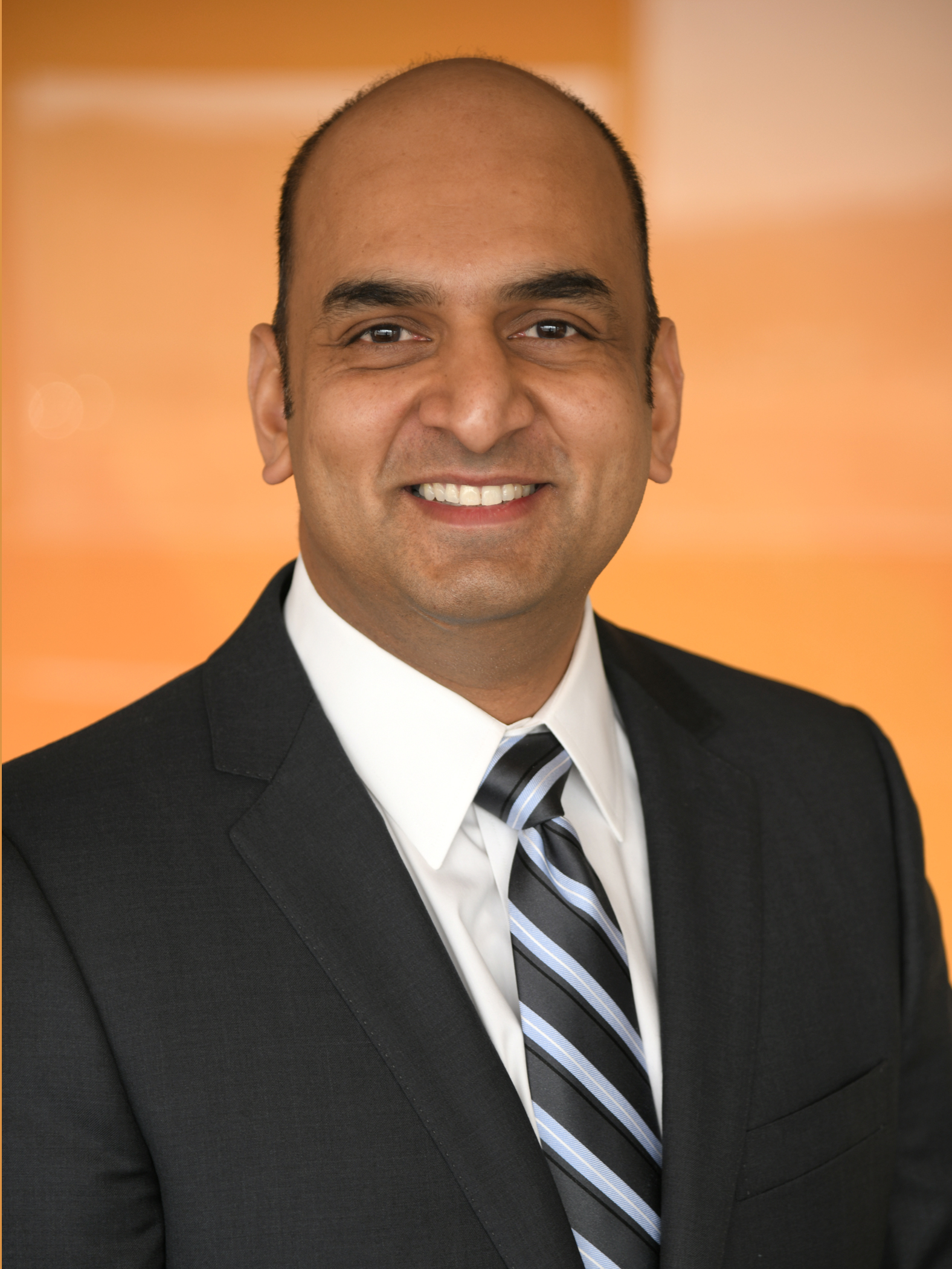 A spoonful of honeyA spoonful of sugar may help the medicine go down, but two spoonfuls of honey every 10 minutes on the way to the emergency department can minimize necrotic damage in a child who has ingested a button battery.Read More
A spoonful of honeyA spoonful of sugar may help the medicine go down, but two spoonfuls of honey every 10 minutes on the way to the emergency department can minimize necrotic damage in a child who has ingested a button battery.Read More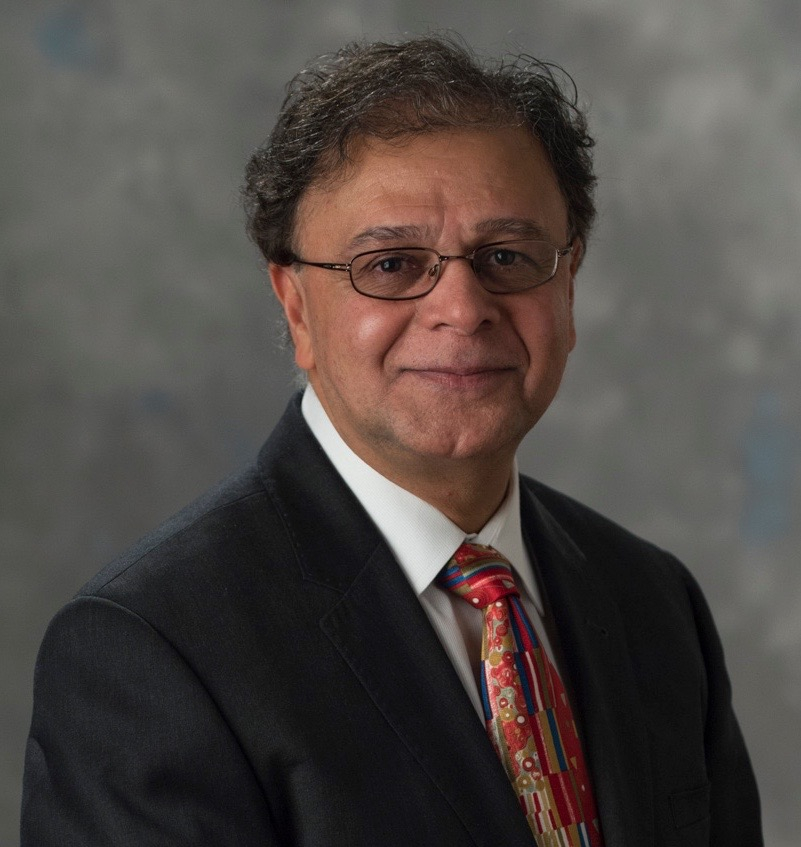 Reducing same-day nausea and cognitive declineIn and out the same day might sound nice to patients undergoing ambulatory surgery. But it may put them at a risk of post-discharge nausea and vomiting (PDNV) and post-operative cognitive dysfunction (POCD).Read More
Reducing same-day nausea and cognitive declineIn and out the same day might sound nice to patients undergoing ambulatory surgery. But it may put them at a risk of post-discharge nausea and vomiting (PDNV) and post-operative cognitive dysfunction (POCD).Read More
October 22, 2016
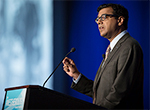 Keynote Address: Teamwork a foundation for improved outcomesAnesthesia and sterile environments are seen as the first two foundations of improved outcomes in surgery, but teamwork is establishing itself as an equally important part of that foundation. Atul Gawande, M.D., explained that vision Saturday during his ANESTHESIOLOGY 2017 Keynote Address.Read More
Keynote Address: Teamwork a foundation for improved outcomesAnesthesia and sterile environments are seen as the first two foundations of improved outcomes in surgery, but teamwork is establishing itself as an equally important part of that foundation. Atul Gawande, M.D., explained that vision Saturday during his ANESTHESIOLOGY 2017 Keynote Address.Read More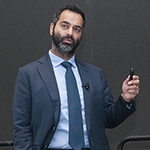 Non-pharmacologic options still mainstay for delirium managementDelirium is associated with increased morbidity and mortality in older surgical patients, and its causes and treatments are not well understood. Recent research, though, has produced advances in recognition of the condition.Read More
Non-pharmacologic options still mainstay for delirium managementDelirium is associated with increased morbidity and mortality in older surgical patients, and its causes and treatments are not well understood. Recent research, though, has produced advances in recognition of the condition.Read More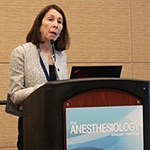 Self-awareness helps manage implicit bias in health careAll Italian moms are wonderful cooks; girls aren’t good at math; older people aren’t proficient with technology. Those are just a few of the examples of how implicit bias exists in society and affects how we perceive and treat others. Implicit bias is an unconscious assumption about someone based on race, ethnicity, gender, weight, ability, age or sexual orientation.Read More
Self-awareness helps manage implicit bias in health careAll Italian moms are wonderful cooks; girls aren’t good at math; older people aren’t proficient with technology. Those are just a few of the examples of how implicit bias exists in society and affects how we perceive and treat others. Implicit bias is an unconscious assumption about someone based on race, ethnicity, gender, weight, ability, age or sexual orientation.Read More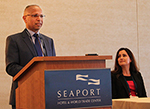 Private versus academic practice: Which track will you choose?Medical students and residents got a realistic glimpse of the triumphs and challenges of an anesthesiologist in private versus academic practice Saturday during “A Day in the Life of a Physician Anesthesiologist.” The contrast is stark.Read More
Private versus academic practice: Which track will you choose?Medical students and residents got a realistic glimpse of the triumphs and challenges of an anesthesiologist in private versus academic practice Saturday during “A Day in the Life of a Physician Anesthesiologist.” The contrast is stark.Read More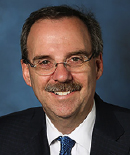 Rovenstine Lecture: Expand measurementQuality measurement in anesthesiology began in 1935 with the launch of the Anesthesia Study Commissions, and it has grown as quality has become linked to reimbursement. Still, there are gaps in measurement — and in the response to patient requests.Read More
Rovenstine Lecture: Expand measurementQuality measurement in anesthesiology began in 1935 with the launch of the Anesthesia Study Commissions, and it has grown as quality has become linked to reimbursement. Still, there are gaps in measurement — and in the response to patient requests.Read More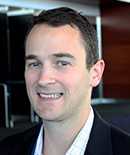 ‘What did you take away from the Keynote Address by Dr. Gawande?’“As a medical student, it was good to hear his insight on the future as well as how important safety is to the operating room environment. His whole discussion of checklist implementation, the development and all the countries that are using it.”Read More
‘What did you take away from the Keynote Address by Dr. Gawande?’“As a medical student, it was good to hear his insight on the future as well as how important safety is to the operating room environment. His whole discussion of checklist implementation, the development and all the countries that are using it.”Read More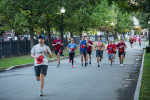 5K offers healthiest of competitionIn the span of about an hour, the eighth annual Hope For The Warriors — Run For The Warriors 5K Run/Walk was history. The brevity of this popular charity event stood in direct contrast to the lasting and far-reaching effects it leaves behind each year.Read More
5K offers healthiest of competitionIn the span of about an hour, the eighth annual Hope For The Warriors — Run For The Warriors 5K Run/Walk was history. The brevity of this popular charity event stood in direct contrast to the lasting and far-reaching effects it leaves behind each year.Read More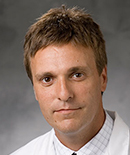 Developing a good O.R. cardiac teamGood chemistry is required in medicine — not just in pharmaceutical treatments but among the members of the treatment team. The qualities of a good team and how they can be developed will be examined in a Refresher Course session Sunday.Read More
Developing a good O.R. cardiac teamGood chemistry is required in medicine — not just in pharmaceutical treatments but among the members of the treatment team. The qualities of a good team and how they can be developed will be examined in a Refresher Course session Sunday.Read More Workshop to explain MACRA reporting requirementsThe collection and reporting of practice data as required by MACRA has raised questions and concerns among physicians who need to update their reporting processes for reimbursement. A Sunday seminar is geared to answer the questions of anesthesiologists and help them learn to meet the new requirements.Read More
Workshop to explain MACRA reporting requirementsThe collection and reporting of practice data as required by MACRA has raised questions and concerns among physicians who need to update their reporting processes for reimbursement. A Sunday seminar is geared to answer the questions of anesthesiologists and help them learn to meet the new requirements.Read More- Is evening elective surgery safe?In an era where quality measurements are used to grade and reimburse physicians, perioperative teams are in the spotlight if outcomes are less than optimal. One area drawing attention is elective surgeries performed late in the day, when perioperative teams could be tired and resources may be relatively scarce.Read More
October 22, 2016
 Texting for a cause: Donate to ASA foundations with your smartphoneASA’s text-to-donate program makes supporting your foundations as easy as 5-0-1-5-5.Read More
Texting for a cause: Donate to ASA foundations with your smartphoneASA’s text-to-donate program makes supporting your foundations as easy as 5-0-1-5-5.Read More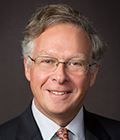 Pierce Lecture: ‘Patient Safety Beyond Our Borders’One of today’s most respected and accomplished patient safety advocates will honor one of the founding fathers of the patient safety movement during the ASA/APSF Ellison C. Pierce, Jr., Patient Safety Memorial Lecture Saturday morning.Read More
Pierce Lecture: ‘Patient Safety Beyond Our Borders’One of today’s most respected and accomplished patient safety advocates will honor one of the founding fathers of the patient safety movement during the ASA/APSF Ellison C. Pierce, Jr., Patient Safety Memorial Lecture Saturday morning.Read More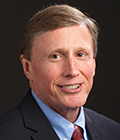 Reimbursement to change with the advent of MACRAMACRA is coming. The Medicare Access and CHIP Reauthorization Act finally discards 17 years of Sustainable Growth Rate gyrations for Medicare reimbursement. MACRA is an improvement over SGR, but it has its own challenges surrounding data reporting and physician quality improvement.Read More
Reimbursement to change with the advent of MACRAMACRA is coming. The Medicare Access and CHIP Reauthorization Act finally discards 17 years of Sustainable Growth Rate gyrations for Medicare reimbursement. MACRA is an improvement over SGR, but it has its own challenges surrounding data reporting and physician quality improvement.Read More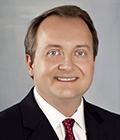 Preparation is key for office-based emergenciesEvery anesthesiologist has heard that bad things happen to good people. It’s a hackneyed phrase, but also a very accurate prediction. No anesthesiologist can prevent misadventures such as a hidden medical problem. But every anesthesiologist can, and must, control the outcome of those misadventures.Read More
Preparation is key for office-based emergenciesEvery anesthesiologist has heard that bad things happen to good people. It’s a hackneyed phrase, but also a very accurate prediction. No anesthesiologist can prevent misadventures such as a hidden medical problem. But every anesthesiologist can, and must, control the outcome of those misadventures.Read More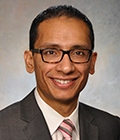 Anesthesiologists well-suited for the C-suitePhysician executive has a nice ring to it. Anesthesiologist executive sounds even better. And increasingly, anesthesiologists are recognizing the C-suite as an appropriate and attainable goal.Read More
Anesthesiologists well-suited for the C-suitePhysician executive has a nice ring to it. Anesthesiologist executive sounds even better. And increasingly, anesthesiologists are recognizing the C-suite as an appropriate and attainable goal.Read More Self-Study course addresses new strategies to improve management of neuropathic painNeuropathic pain can be difficult and expensive to manage, but new guidelines and strategies based on evidence-based decision-making are leading to improved outcomes. Those new approaches are explained in a Self-Study course available for CME during the ANESTHESIOLOGY 2016 annual meeting.Read More
Self-Study course addresses new strategies to improve management of neuropathic painNeuropathic pain can be difficult and expensive to manage, but new guidelines and strategies based on evidence-based decision-making are leading to improved outcomes. Those new approaches are explained in a Self-Study course available for CME during the ANESTHESIOLOGY 2016 annual meeting.Read More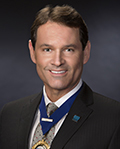 Advocacy crucial to the careers of residentsAnesthesiologists who are not active politically are risking their own futures — and the futures of other anesthesiologists. Advocacy is the only way to secure the future.Read More
Advocacy crucial to the careers of residentsAnesthesiologists who are not active politically are risking their own futures — and the futures of other anesthesiologists. Advocacy is the only way to secure the future.Read More Privacy pits teen patient’s rights against parents’ rightsConsent and privacy can be tricky issues for anesthesiologists, especially when minors are involved. Parents or guardians must generally give consent for surgeries performed on patients who are teens, and those adults generally expect to be informed about every aspect of the case. However, there are occasions when a teenage patient’s right to privacy trumps the parental right to know.Read More
Privacy pits teen patient’s rights against parents’ rightsConsent and privacy can be tricky issues for anesthesiologists, especially when minors are involved. Parents or guardians must generally give consent for surgeries performed on patients who are teens, and those adults generally expect to be informed about every aspect of the case. However, there are occasions when a teenage patient’s right to privacy trumps the parental right to know.Read More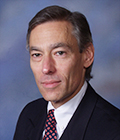 Debate: Should anesthesiologists lead goals-of-care discussions?The Centers for Medicare & Medicaid Services has approved payment for discussing goals of care with patients. The change was part of the Affordable Care Act, although the implications for anesthesiologists remains unclear. The pros and cons of the new policy will be debated Saturday during “Now That Medicare Pays for Discussions About Goals of Care, Should They Become a Routine Part of Preoperative Consent?”Read More
Debate: Should anesthesiologists lead goals-of-care discussions?The Centers for Medicare & Medicaid Services has approved payment for discussing goals of care with patients. The change was part of the Affordable Care Act, although the implications for anesthesiologists remains unclear. The pros and cons of the new policy will be debated Saturday during “Now That Medicare Pays for Discussions About Goals of Care, Should They Become a Routine Part of Preoperative Consent?”Read More- Professionalism vital in your online presenceYour online image counts, sometimes more than your physical image. Patients decide whether to keep a referral appointment based on what they see and read about you online. Potential employers evaluate your online presence during the hiring process. So do fellowship and residency directors.Read More
October 21, 2016
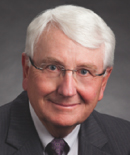 Pierce Lecture: Improving patient safetyA founding father of the patient safety movement, Robert K. Stoelting, M.D., will review the origins of the movement, discuss why it is still relevant and examine today’s challenges and steps needed to improve safety when he presents the Pierce Lecture.Read More
Pierce Lecture: Improving patient safetyA founding father of the patient safety movement, Robert K. Stoelting, M.D., will review the origins of the movement, discuss why it is still relevant and examine today’s challenges and steps needed to improve safety when he presents the Pierce Lecture.Read More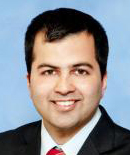 Measuring performance a key to reimbursementWith national health expenditures topping $3.35 trillion in 2016, the U.S. leads the world in health care costs, yet is just 26th in the world for life expectancy and ranks poorly on other quality of life indicators.Read More
Measuring performance a key to reimbursementWith national health expenditures topping $3.35 trillion in 2016, the U.S. leads the world in health care costs, yet is just 26th in the world for life expectancy and ranks poorly on other quality of life indicators.Read More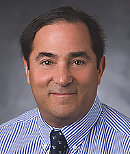 Using preoperative clinics to improve outcomesAnesthesiologists are expanding their perioperative role to improve patient care. A Saturday session will explore how they can establish preoperative clinics to proactively manage complex medical problems that contribute to risk in the operating room.Read More
Using preoperative clinics to improve outcomesAnesthesiologists are expanding their perioperative role to improve patient care. A Saturday session will explore how they can establish preoperative clinics to proactively manage complex medical problems that contribute to risk in the operating room.Read More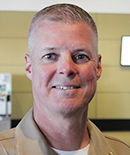 What are you most looking forward to at ANESTHESIOLOGY 2017?“I am looking to learn about upgrades in technology, the Perioperative Surgical Home and corresponding with colleagues as I get closer to retirement."Read More
What are you most looking forward to at ANESTHESIOLOGY 2017?“I am looking to learn about upgrades in technology, the Perioperative Surgical Home and corresponding with colleagues as I get closer to retirement."Read More- Dec. 31 is the deadline to claim CME creditsDue to new reporting requirements, all credits for live meetings now must be claimed in the calendar year in which the meeting took place. That means that your credits from ANESTHESIOLOGY 2017 must be claimed by midnight on Dec. 31, 2017.Read More
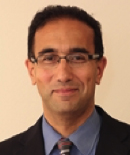 Recovering from total knee arthroplastyJoint technology and aging baby boomers are driving the surge in knee replacement surgery. Speakers at a Saturday session will explore how following Perioperative Surgical Home processes can expedite recovery and improve outcomes for patients undergoing total knee arthroplasty.Read More
Recovering from total knee arthroplastyJoint technology and aging baby boomers are driving the surge in knee replacement surgery. Speakers at a Saturday session will explore how following Perioperative Surgical Home processes can expedite recovery and improve outcomes for patients undergoing total knee arthroplasty.Read More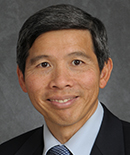 New approaches to pain managementNew classes of opioids, combinations of long-acting local anesthetics and analgesics, and pain monitors are being used to improve pain management. They will be examined in three presentations during a Saturday education session.Read More
New approaches to pain managementNew classes of opioids, combinations of long-acting local anesthetics and analgesics, and pain monitors are being used to improve pain management. They will be examined in three presentations during a Saturday education session.Read More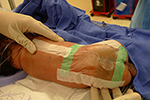 Using epidural analgesia in infantsPain management in sick infants poses a challenge when the options all seem to have significant risks. Using continuous epidural analgesia is a consideration that will be explored Sunday during a Problem-Based Learning Discussion.Read More
Using epidural analgesia in infantsPain management in sick infants poses a challenge when the options all seem to have significant risks. Using continuous epidural analgesia is a consideration that will be explored Sunday during a Problem-Based Learning Discussion.Read More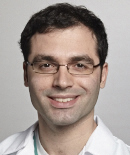 Customized simulation key in retraining anesthesiologistsSimulation has become a popular and effective method of assessing the competency of anesthesiologists returning to practice after time off. It also is used to assess the skills of physicians whose professionalism is in question. An Anesthesiology 2017 Self-Study course explains how to develop a retraining simulator program.Read More
Customized simulation key in retraining anesthesiologistsSimulation has become a popular and effective method of assessing the competency of anesthesiologists returning to practice after time off. It also is used to assess the skills of physicians whose professionalism is in question. An Anesthesiology 2017 Self-Study course explains how to develop a retraining simulator program.Read More- Director of ‘The Checklist Effect’ opens up about award-winning surgical/anesthesia documentaryOn Sunday, ANESTHESIOLOGY 2017 attendees are invited to attend a reception and screening of “The Checklist Effect,” which features this year’s meeting keynote speaker and Lifebox chair Atul Gawande, M.D.Read More
October 21, 2016
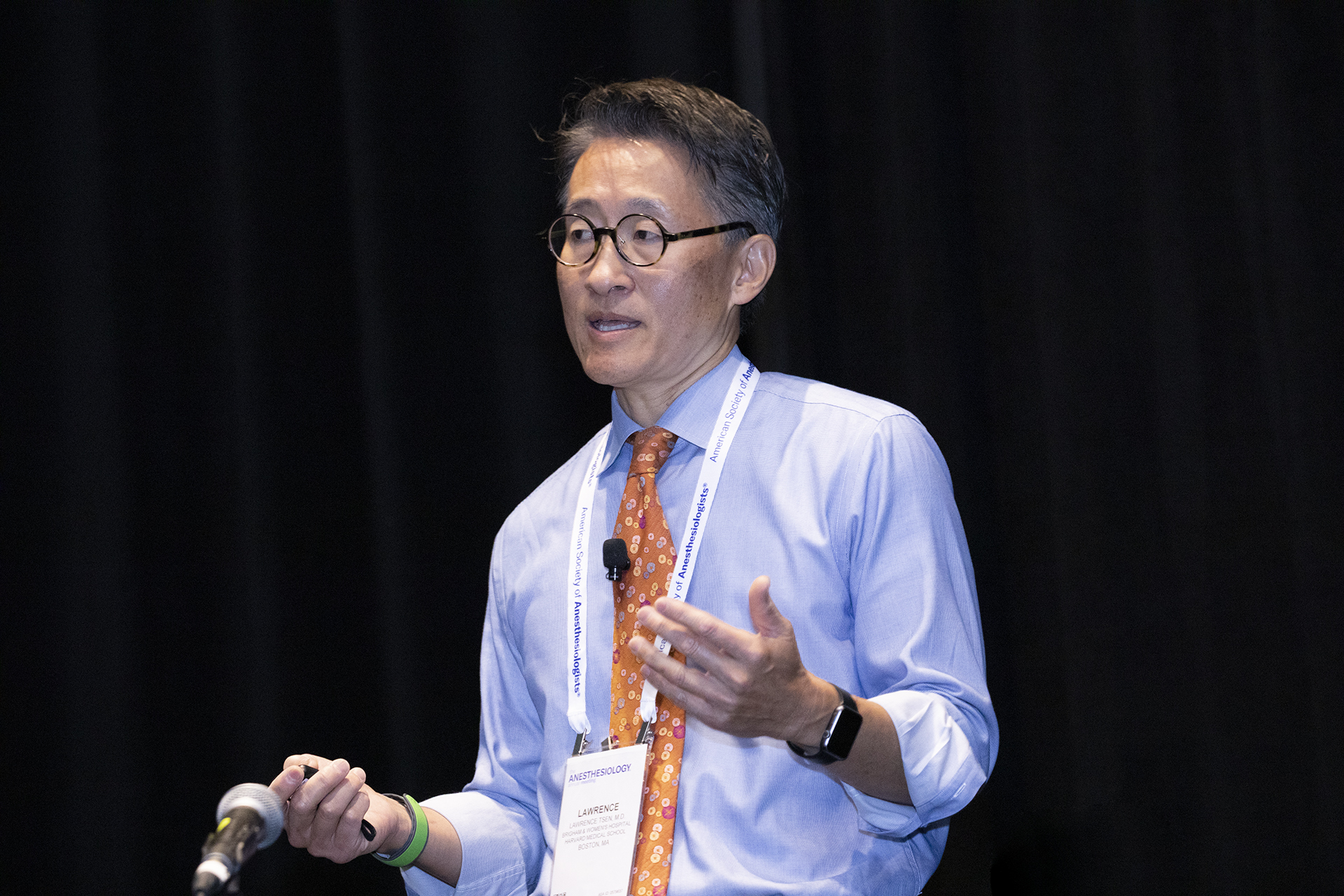 Anesthesiology and Pixar: An unlikely but fitting pair in Gertie Marx LectureDisney and Pixar are not only popular in Orlando, each was a part of the theme for Sunday’s “SOAP Gertie Marx Honorary Lecture – Obstetric Anesthesia: Are We There Yet?”Read More
Anesthesiology and Pixar: An unlikely but fitting pair in Gertie Marx LectureDisney and Pixar are not only popular in Orlando, each was a part of the theme for Sunday’s “SOAP Gertie Marx Honorary Lecture – Obstetric Anesthesia: Are We There Yet?”Read More Compensation of men vs. women in anesthesia: Exploring gender pay equityIs there a pay disparity between male and female anesthesiologists? Unfortunately, the answer is yes. The newest data ASA has on this issue and strategies for change are the focus of the Monday session “Compensation Trends in Anesthesiology: A Report on the ASA Survey.”Read More
Compensation of men vs. women in anesthesia: Exploring gender pay equityIs there a pay disparity between male and female anesthesiologists? Unfortunately, the answer is yes. The newest data ASA has on this issue and strategies for change are the focus of the Monday session “Compensation Trends in Anesthesiology: A Report on the ASA Survey.”Read More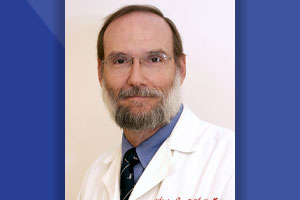 FAER-Helrich Lecture: The perioperative neurotoxicity puzzleIt may be years before the scientific community arrives at any conclusions about the relationship between anesthetics and Alzheimer’s disease. But that doesn’t let today’s anesthesiologists off the hook.Read More
FAER-Helrich Lecture: The perioperative neurotoxicity puzzleIt may be years before the scientific community arrives at any conclusions about the relationship between anesthetics and Alzheimer’s disease. But that doesn’t let today’s anesthesiologists off the hook.Read More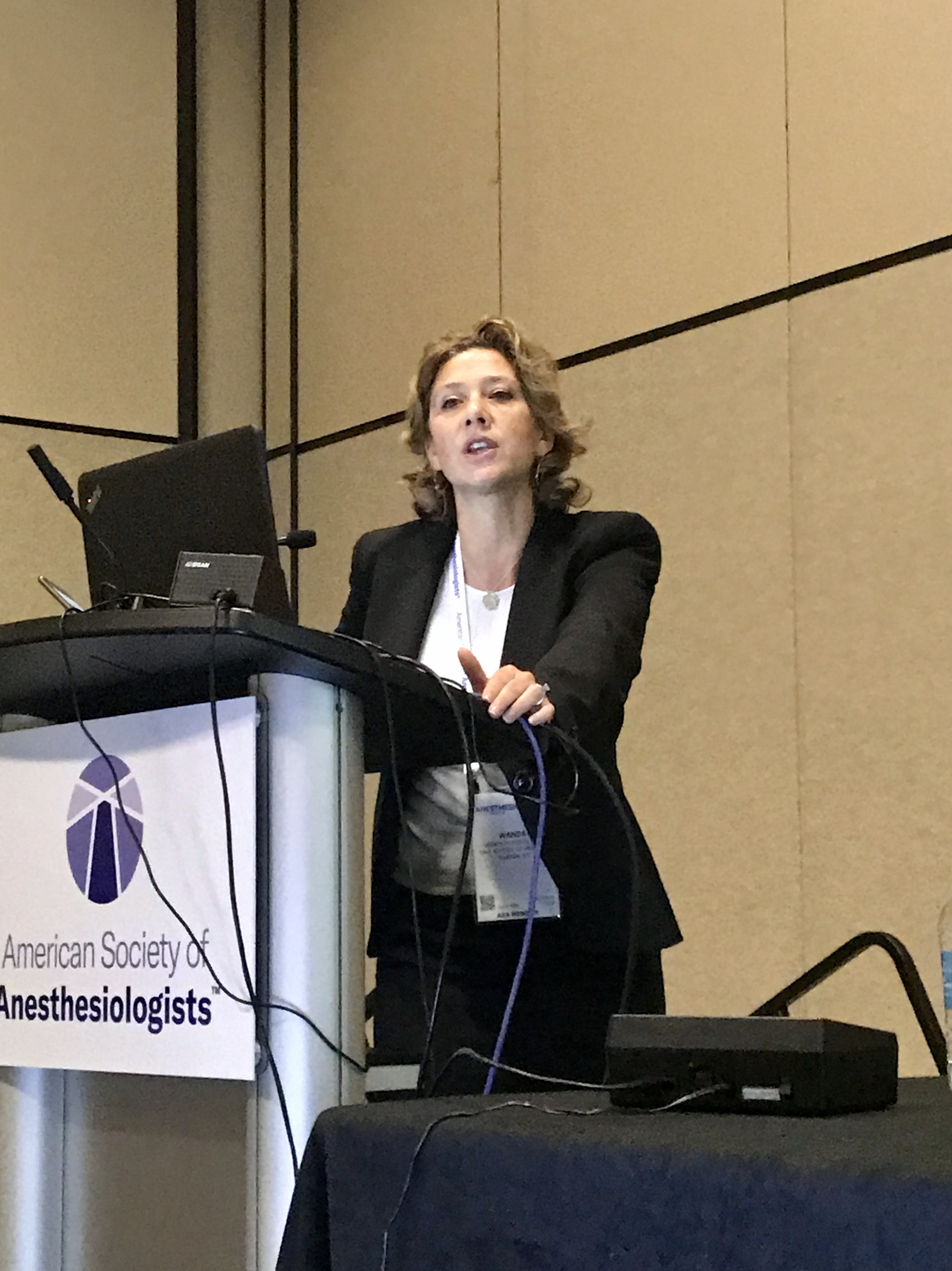 Enhanced recovery after lung surgery is a marathon, not a sprintIn January 2019, the Enhanced Recovery After Surgery (ERAS) Society and the European Society of Thoracic Surgeons (ESTS) published guidelines for enhanced recovery after lung surgery. It was a much-needed set of principles.Read More
Enhanced recovery after lung surgery is a marathon, not a sprintIn January 2019, the Enhanced Recovery After Surgery (ERAS) Society and the European Society of Thoracic Surgeons (ESTS) published guidelines for enhanced recovery after lung surgery. It was a much-needed set of principles.Read More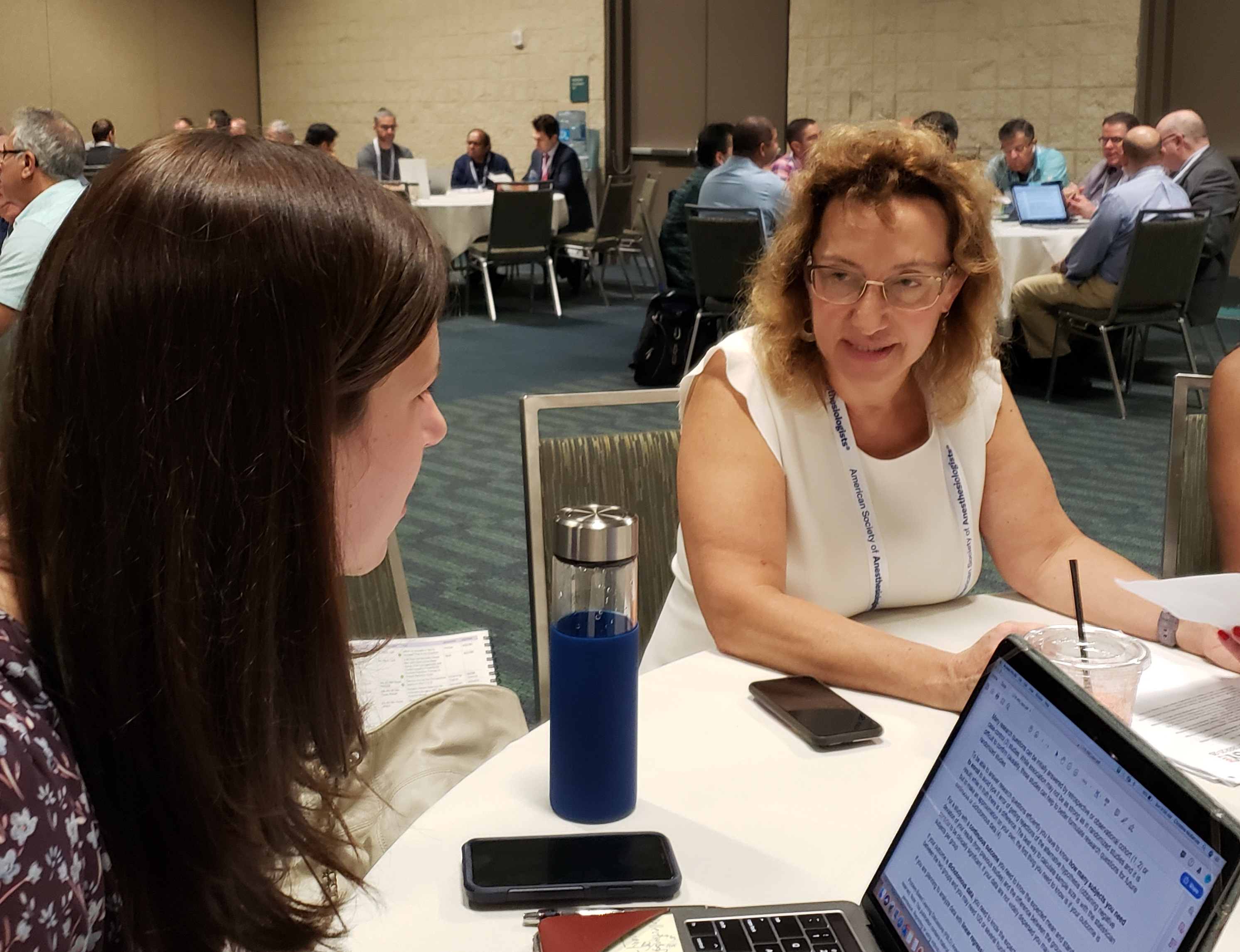 Researching without a grant requires resourcefulnessResearch is a critical component for furthering medical treatment, but it can seem almost impossible to undertake without the support of a grant. With the right resources and type of study, launching a research project is not only possible, it may be the best way to secure grant money for your next project.Read More
Researching without a grant requires resourcefulnessResearch is a critical component for furthering medical treatment, but it can seem almost impossible to undertake without the support of a grant. With the right resources and type of study, launching a research project is not only possible, it may be the best way to secure grant money for your next project.Read More Question of the Day: Do you believe political advocacy is important for anesthesiology?The ASA Daily News wants to know if you believe political advocacy is important for anesthesiology. How do you advocate or plan to advocate for the specialty?Read More
Question of the Day: Do you believe political advocacy is important for anesthesiology?The ASA Daily News wants to know if you believe political advocacy is important for anesthesiology. How do you advocate or plan to advocate for the specialty?Read More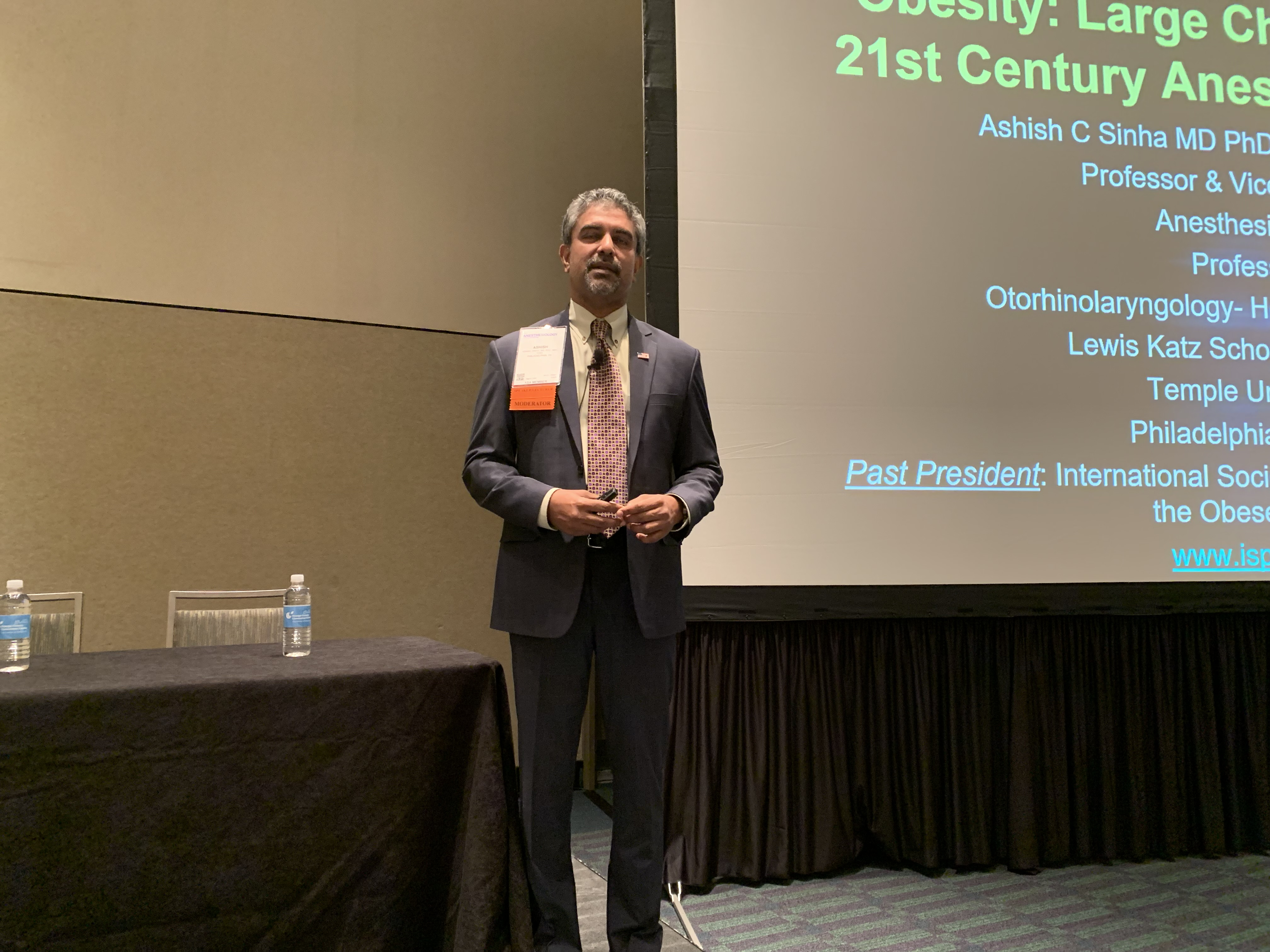 Anesthesia challenges for morbidly obese patientsObesity is far too common in the United States. Predictably, morbid obesity – even ultra-obesity – is steadily becoming a regular health care challenge for patients and their physicians.Read More
Anesthesia challenges for morbidly obese patientsObesity is far too common in the United States. Predictably, morbid obesity – even ultra-obesity – is steadily becoming a regular health care challenge for patients and their physicians.Read More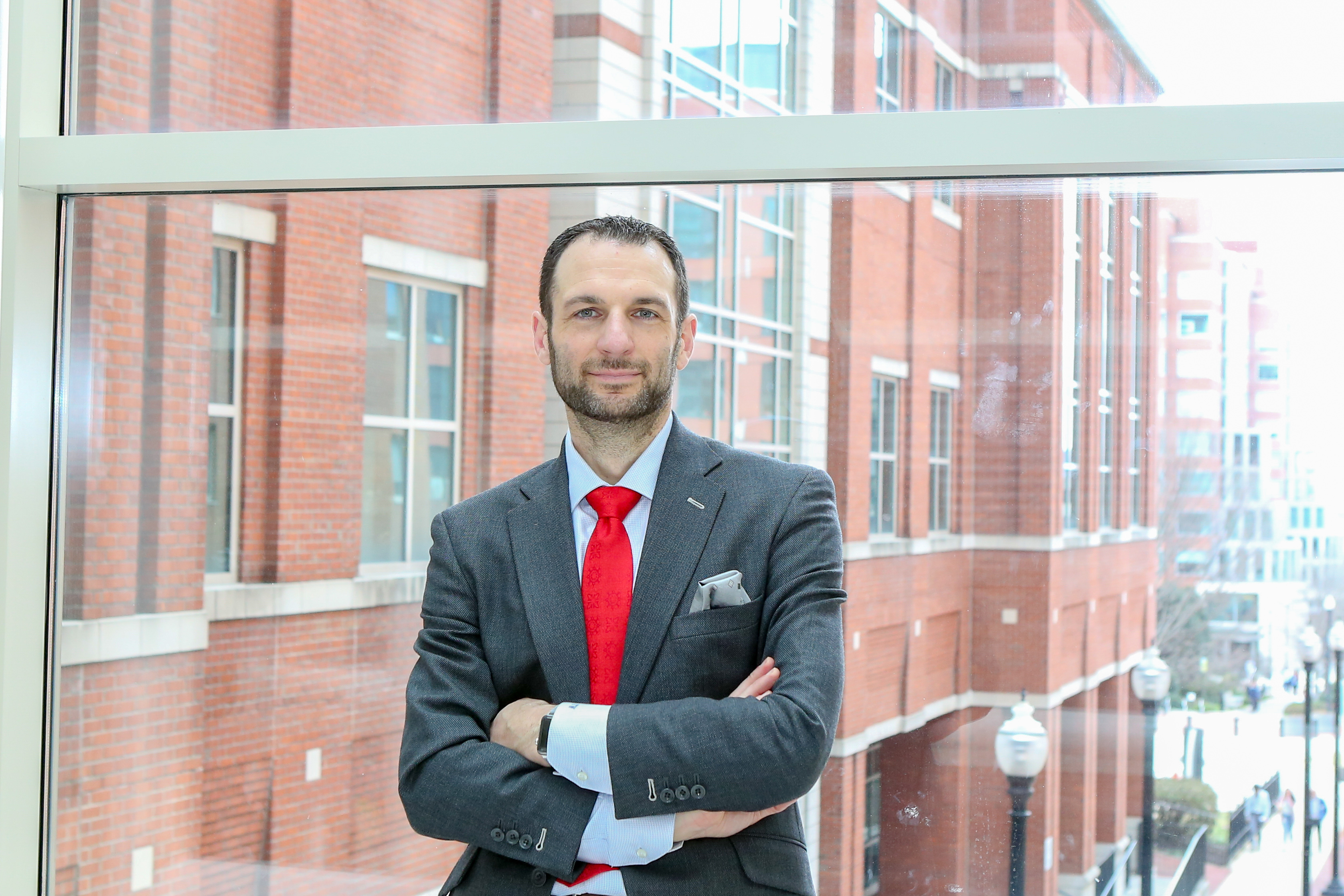 Outsmart burnoutJob burnout isn’t a medical diagnosis listed in the DSM-5. In fact, it can be hard to define. The usual description includes emotional exhaustion, a sense of detachment and a feeling of disillusionment caused by chronic work stress.Read More
Outsmart burnoutJob burnout isn’t a medical diagnosis listed in the DSM-5. In fact, it can be hard to define. The usual description includes emotional exhaustion, a sense of detachment and a feeling of disillusionment caused by chronic work stress.Read More Truth or dogma?When medical traditions and dogma clash with research and evidence, it’s time to consider the clinical implications to patient care. Not everything is what it seems.Read More
Truth or dogma?When medical traditions and dogma clash with research and evidence, it’s time to consider the clinical implications to patient care. Not everything is what it seems.Read More The how and why of hemorrhage controlTraumatic injuries are a leading cause of death and disability throughout the world. War, gun violence, suicide attempts, road traffic injuries and falls can result in critical hemorrhage.Read More
The how and why of hemorrhage controlTraumatic injuries are a leading cause of death and disability throughout the world. War, gun violence, suicide attempts, road traffic injuries and falls can result in critical hemorrhage.Read More
October 21, 2016
- Experience a new approach to postoperative pain management!With the opioid epidemic rising in the U.S., it’s imperative to use a multimodal approach to minimize abuse. Four new e-learning modules address the opioid crisis and demonstrate how to best treat patients for better postoperative outcomes. These modules are free to all ANESTHESIOLOGY 2016 annual meeting registrants.Read More
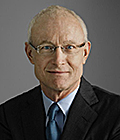 ‘Father of modern business strategy’ to kick off ANESTHESIOLOGY 2016Fortune magazine has called Harvard business strategist Michael Porter “the most famous and influential business professor who has ever lived.”Read More
‘Father of modern business strategy’ to kick off ANESTHESIOLOGY 2016Fortune magazine has called Harvard business strategist Michael Porter “the most famous and influential business professor who has ever lived.”Read More SimSTAT to offer simulation tools for educationYou’re invited to come see the future of anesthetic emergency management training from 8 a.m. to 5 p.m. Sunday at Hyatt McCormick Place, Clark A.Read More
SimSTAT to offer simulation tools for educationYou’re invited to come see the future of anesthetic emergency management training from 8 a.m. to 5 p.m. Sunday at Hyatt McCormick Place, Clark A.Read More OnDemand offers 450 hours of educational programmingAlmost 19 calendar days of educational programming.
When it debuts at the conclusion of the meeting this year, that’s what ANESTHESIOLOGY OnDemand is going to offer you.Read More
OnDemand offers 450 hours of educational programmingAlmost 19 calendar days of educational programming.
When it debuts at the conclusion of the meeting this year, that’s what ANESTHESIOLOGY OnDemand is going to offer you.Read More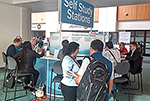 Self-Study sessions double in size and convenienceThe ANESTHESIOLOGY 2016 annual meeting has a big problem — there’s just too much quality content for any one individual to digest. One of the ways ASA is addressing this issue is through its ever-growing Self-Study program.Read More
Self-Study sessions double in size and convenienceThe ANESTHESIOLOGY 2016 annual meeting has a big problem — there’s just too much quality content for any one individual to digest. One of the ways ASA is addressing this issue is through its ever-growing Self-Study program.Read More ASA Monitor sounds off with 2016 podcast initiativeAll ears are on the ASA Monitor these days, as thousands of members continue to tune in to the Monitor’s exciting new podcast program – a media initiative that began in April 2016.Read More
ASA Monitor sounds off with 2016 podcast initiativeAll ears are on the ASA Monitor these days, as thousands of members continue to tune in to the Monitor’s exciting new podcast program – a media initiative that began in April 2016.Read More ASA-ePreop collaboration an advance in quality reportingReporting to CMS through the sometimes challenging Medicare Access and CHIP Reauthorization (MACRA) payment systems just got easier for ASA members.Read More
ASA-ePreop collaboration an advance in quality reportingReporting to CMS through the sometimes challenging Medicare Access and CHIP Reauthorization (MACRA) payment systems just got easier for ASA members.Read More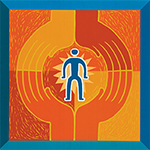 Experience a new approach to postoperative pain managementWith the opioid epidemic rising in the U.S., it’s imperative to use a multimodal approach to minimize abuse. Four new e-learning modules address the opioid crisis and demonstrate how to best treat patients for better postoperative outcomes. These modules are free to all ANESTHESIOLOGY 2016 annual meeting registrants.Read More
Experience a new approach to postoperative pain managementWith the opioid epidemic rising in the U.S., it’s imperative to use a multimodal approach to minimize abuse. Four new e-learning modules address the opioid crisis and demonstrate how to best treat patients for better postoperative outcomes. These modules are free to all ANESTHESIOLOGY 2016 annual meeting registrants.Read More PSH Consult helps incorporate PSH into practiceIncorporating a Perioperative Surgical Home (PSH) into your practice can be challenging, but there has never been a better time than now to receive expert support from thought-leaders within this burgeoning model of care.Read More
PSH Consult helps incorporate PSH into practiceIncorporating a Perioperative Surgical Home (PSH) into your practice can be challenging, but there has never been a better time than now to receive expert support from thought-leaders within this burgeoning model of care.Read More
October 20, 2016
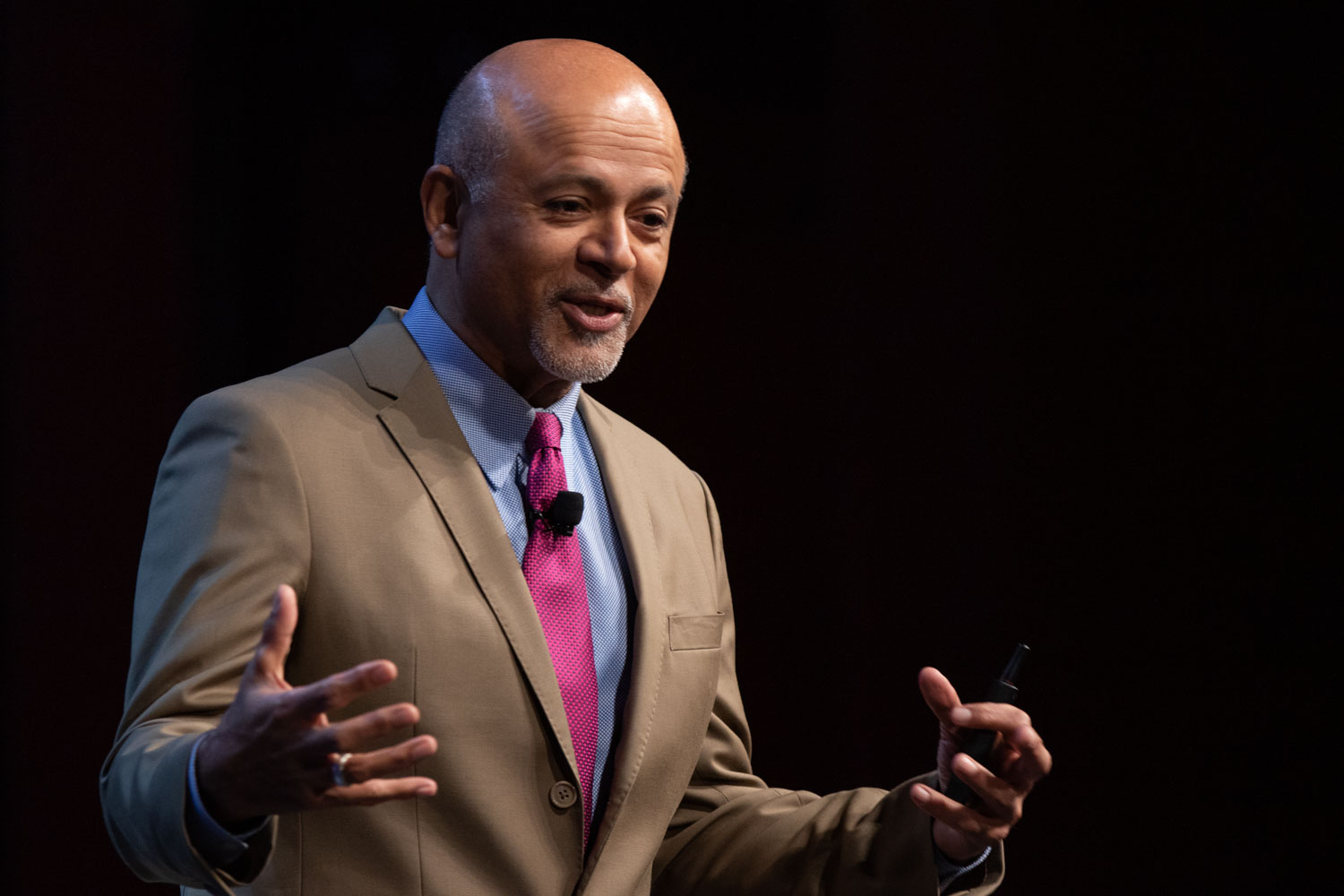 The key to quality patient care is connectionA doctor’s ability to keenly observe a patient in detail is part of a ritual that has, for centuries, connected doctors with their patients. But this process is becoming endangered as the demands of Big Data threaten this critical component of the diagnostic process.Read More
The key to quality patient care is connectionA doctor’s ability to keenly observe a patient in detail is part of a ritual that has, for centuries, connected doctors with their patients. But this process is becoming endangered as the demands of Big Data threaten this critical component of the diagnostic process.Read More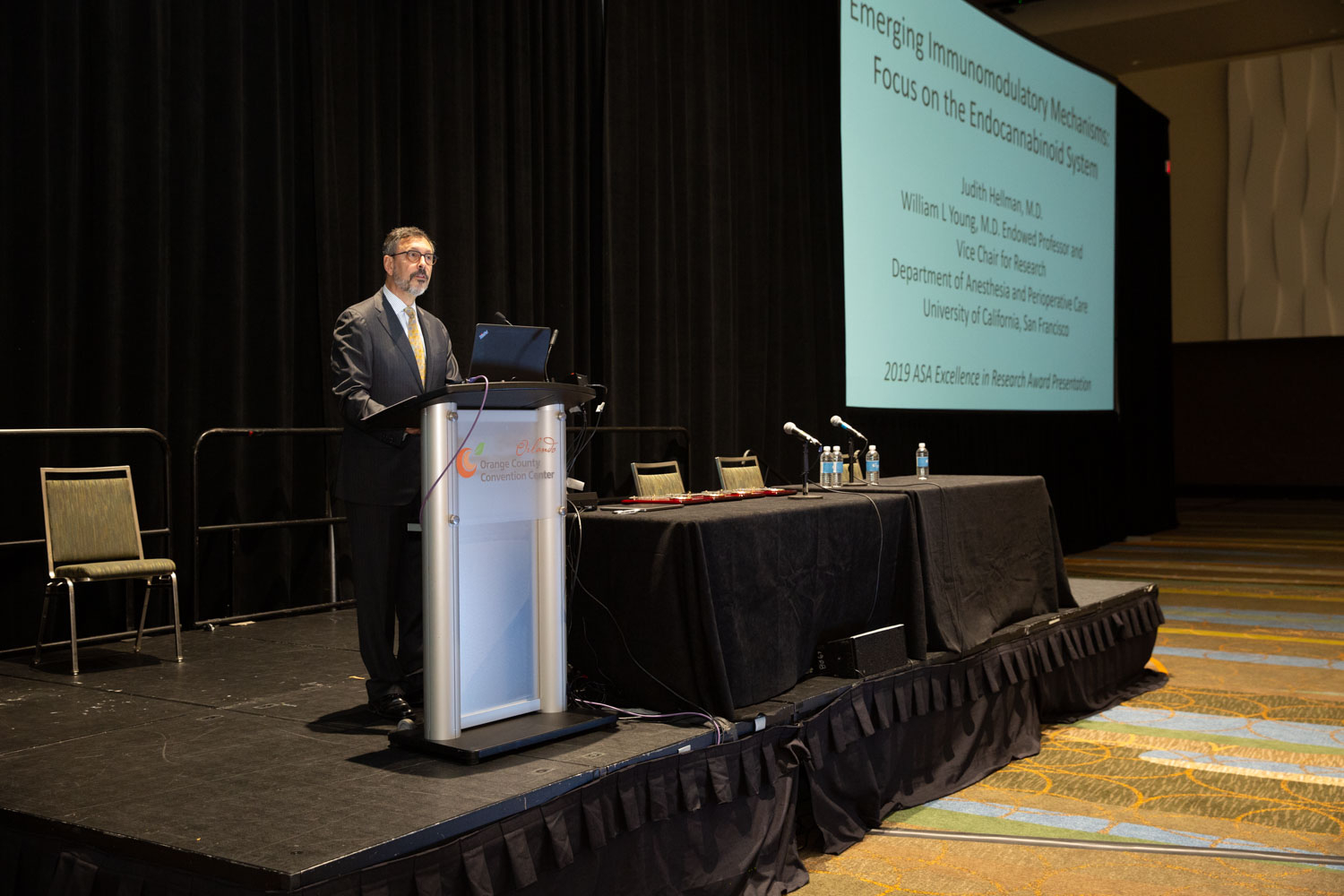 Novel research earns top ASA and peer recognitionOn Saturday, ASA recognized this year’s recipients of the 2019 Award for Excellence in Research and the James E. Cottrell, M.D., Presidential Scholar Award. Anesthesiology Editor-in-Chief Evan D. Kharasch, M.D., Ph.D., introduced the recipients.Read More
Novel research earns top ASA and peer recognitionOn Saturday, ASA recognized this year’s recipients of the 2019 Award for Excellence in Research and the James E. Cottrell, M.D., Presidential Scholar Award. Anesthesiology Editor-in-Chief Evan D. Kharasch, M.D., Ph.D., introduced the recipients.Read More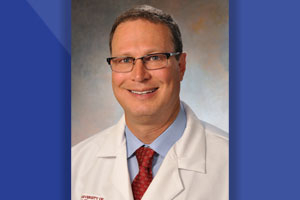 Bright-eyed and bushy-tailed? Maybe not after overnight callAnesthesiology residents typically work between 64 and 70 hours per week. With on-call duty, that can mean working up to 24 hours straight with little or no sleep. Of course, residents aren’t the only ones rubbing their eyes. Many practicing anesthesiologists work long hours and overnights, too.Read More
Bright-eyed and bushy-tailed? Maybe not after overnight callAnesthesiology residents typically work between 64 and 70 hours per week. With on-call duty, that can mean working up to 24 hours straight with little or no sleep. Of course, residents aren’t the only ones rubbing their eyes. Many practicing anesthesiologists work long hours and overnights, too.Read More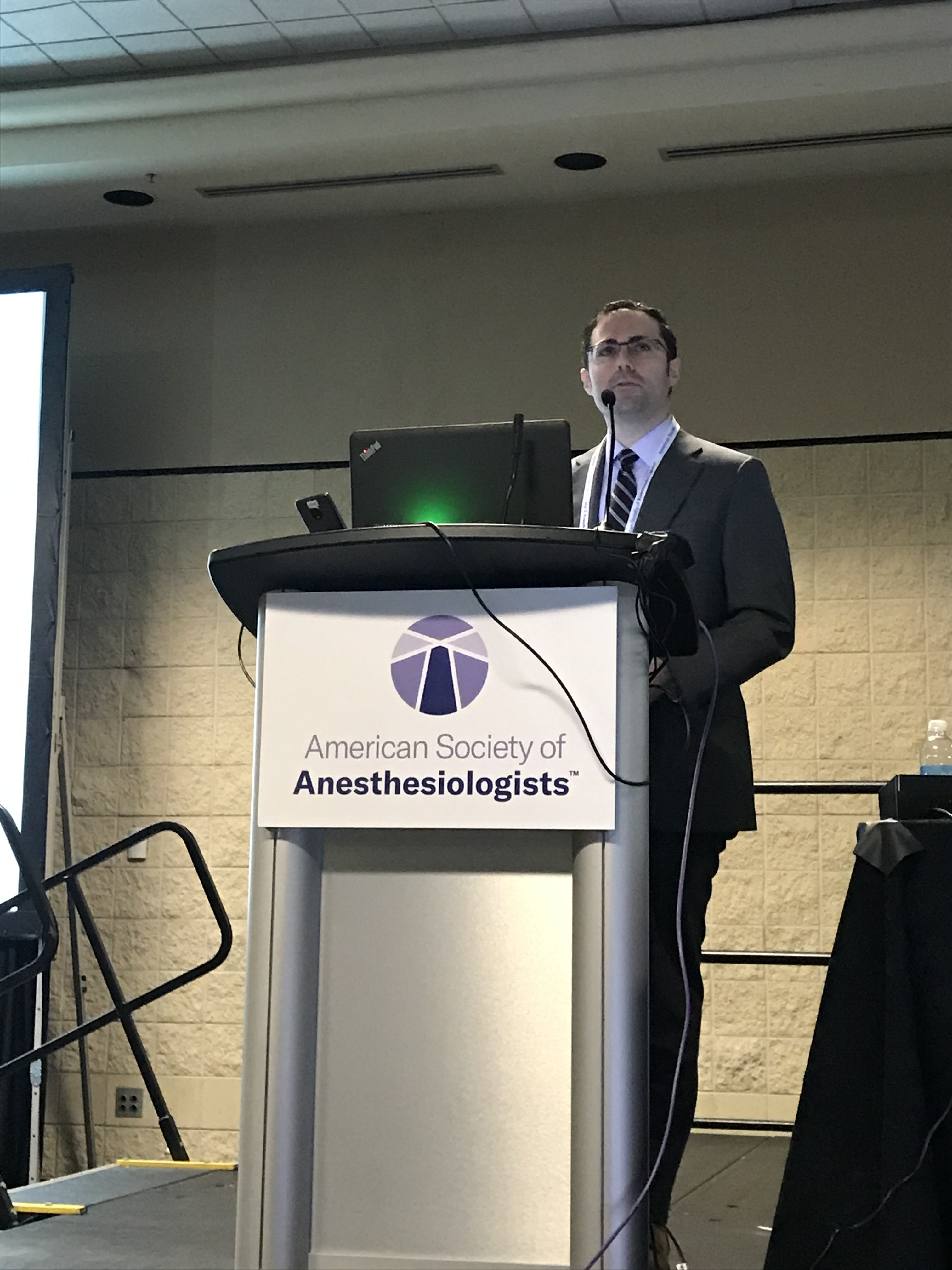 Anesthesiology in the heat of the intraoperative momentAnesthesiologists are frequently called upon to make game-time decisions, the consequences of which can be life and death for the patients on the table. In yesterday’s session “Intraoperative Critical Care: How Best to Succeed When All Seems Lost,” three panelists shared wisdom on how to manage three particularly challenging scenarios.Read More
Anesthesiology in the heat of the intraoperative momentAnesthesiologists are frequently called upon to make game-time decisions, the consequences of which can be life and death for the patients on the table. In yesterday’s session “Intraoperative Critical Care: How Best to Succeed When All Seems Lost,” three panelists shared wisdom on how to manage three particularly challenging scenarios.Read More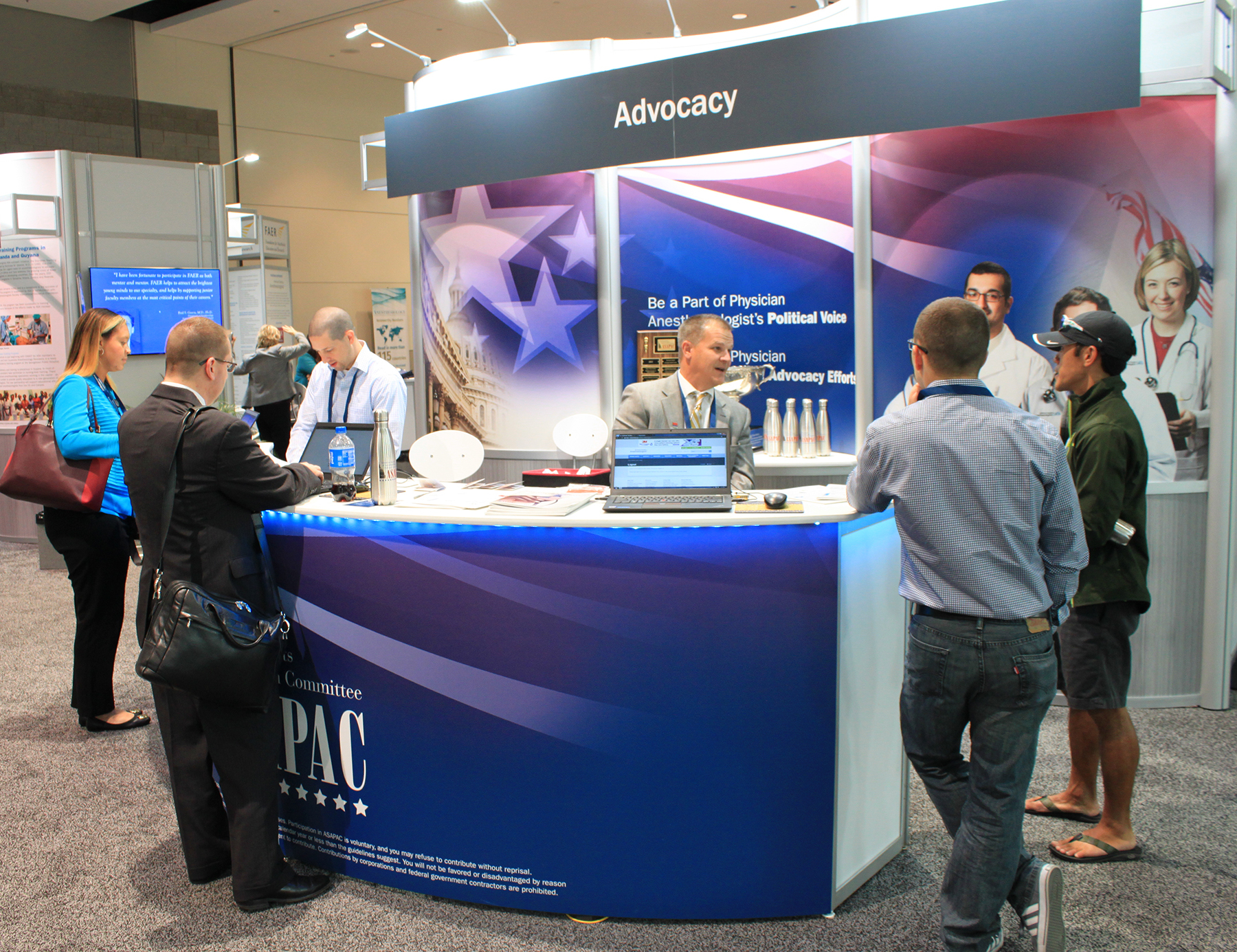 Advocacy continues in Orlando; New mobile technology used in surprise medical bill fightASA members continued their dedication to advocacy and patient safety during ANESTHESIOLOGY 2019. In addition to continued support for advancing the specialty, attendees have been using new mobile technology to advocate for a top policy priority–ending surprise medical bills.Read More
Advocacy continues in Orlando; New mobile technology used in surprise medical bill fightASA members continued their dedication to advocacy and patient safety during ANESTHESIOLOGY 2019. In addition to continued support for advancing the specialty, attendees have been using new mobile technology to advocate for a top policy priority–ending surprise medical bills.Read More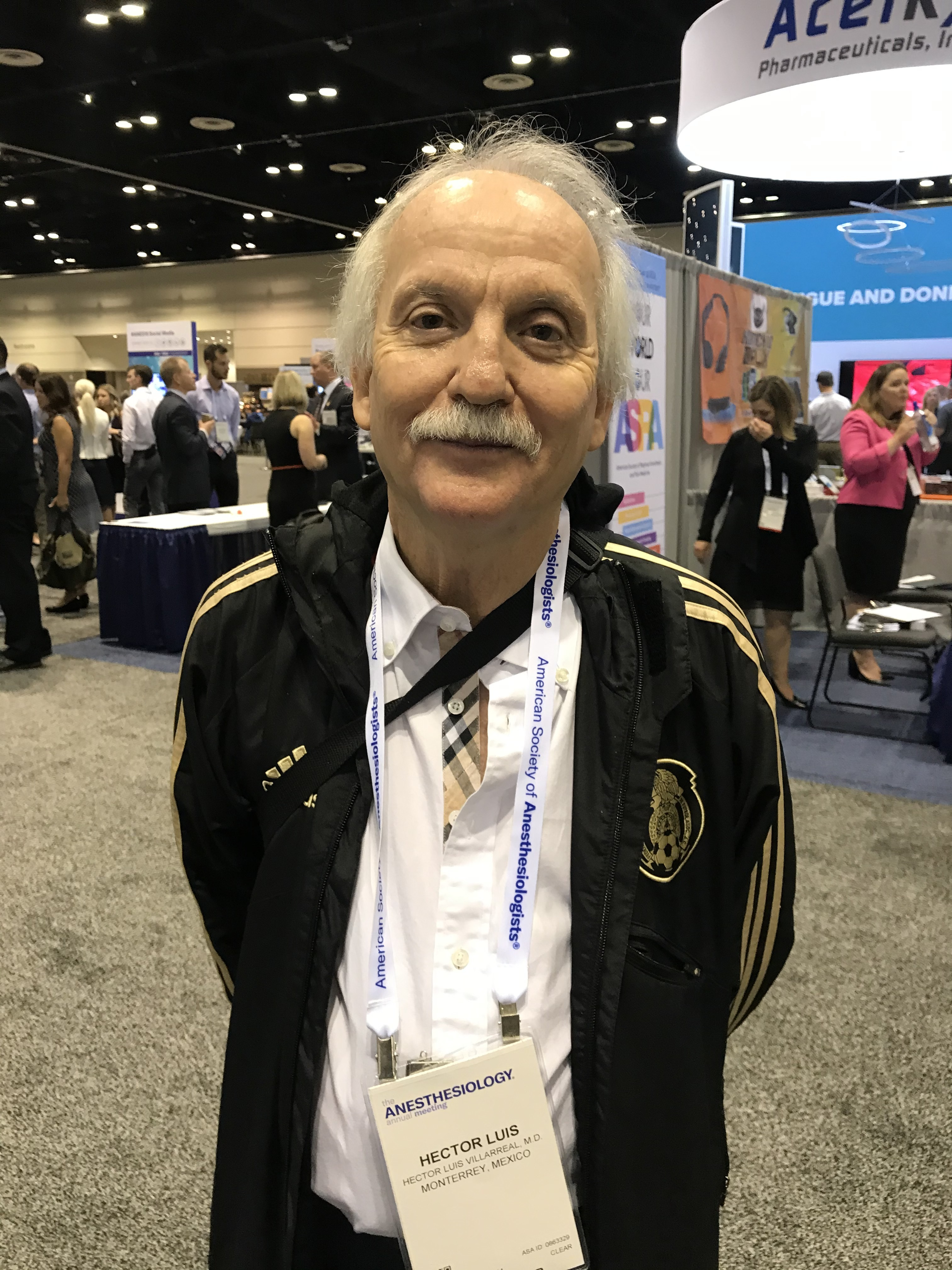 Question of the Day: Why is the ANESTHESIOLOGY annual meeting valuable to you?The ASA Daily News asks: Why is the ANESTHESIOLOGY annual meeting valuable to you?Read More
Question of the Day: Why is the ANESTHESIOLOGY annual meeting valuable to you?The ASA Daily News asks: Why is the ANESTHESIOLOGY annual meeting valuable to you?Read More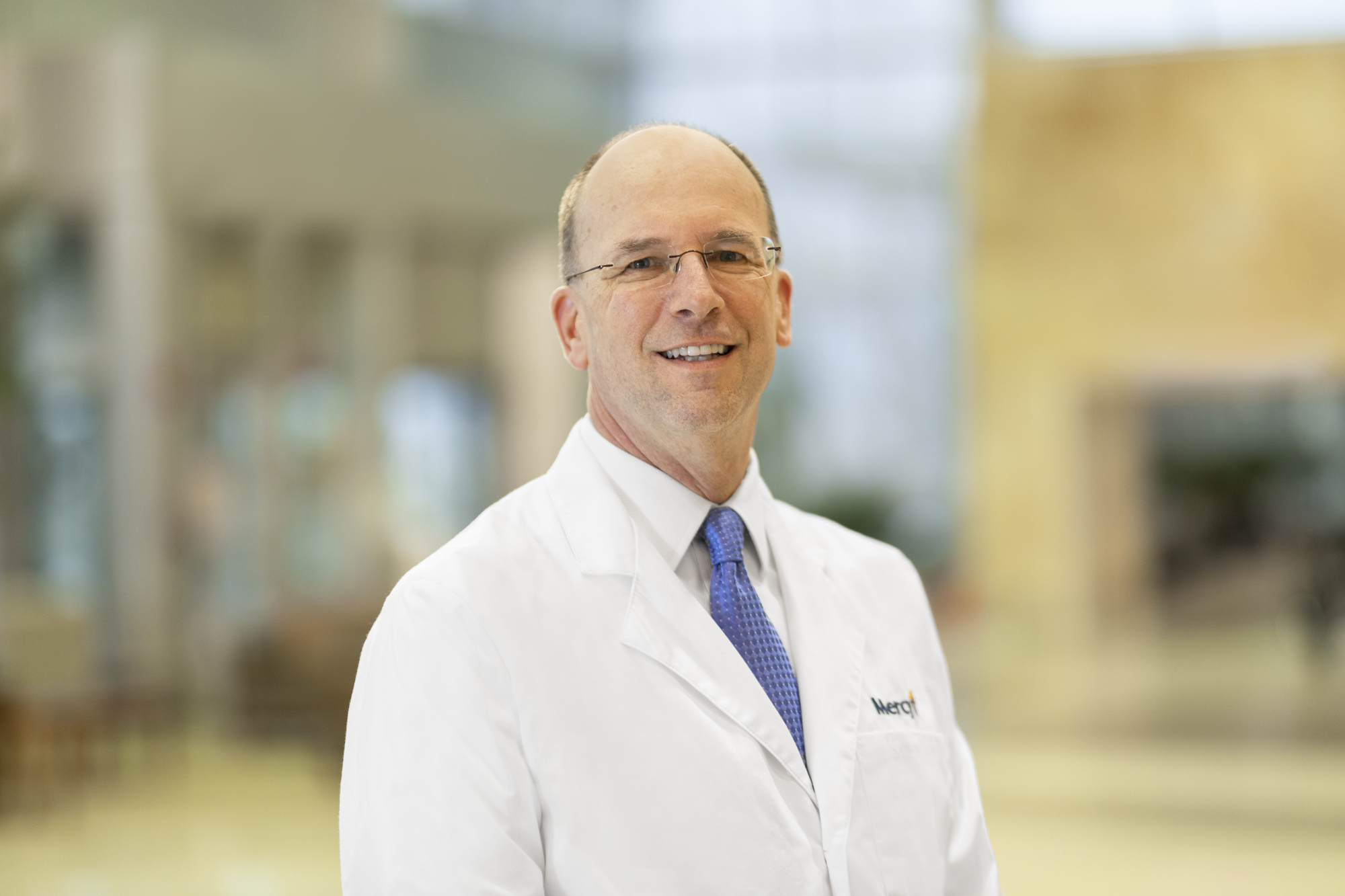 The importance of physician-led anesthesia carePhysician-led anesthesia care has become a hot topic in many discussions and education sessions at ANESTHESIOLOGY 2019. By design, ASA is focusing attention on this important topic as a means to improve patient care.Read More
The importance of physician-led anesthesia carePhysician-led anesthesia care has become a hot topic in many discussions and education sessions at ANESTHESIOLOGY 2019. By design, ASA is focusing attention on this important topic as a means to improve patient care.Read More Going forward with a nod to the pastMedical history books spotlight important discoveries and innovations in anesthesiology, but many more scientific advances and scientists go unnoticed.Read More
Going forward with a nod to the pastMedical history books spotlight important discoveries and innovations in anesthesiology, but many more scientific advances and scientists go unnoticed.Read More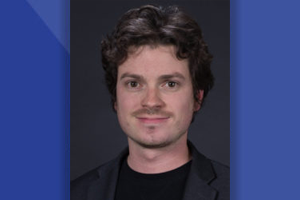 What the hack?There’s no debating it. Medical technology is a must-have today and will be in the future. From electronic anesthetic records to wireless infusion pumps, pacemakers, and other implanted devices, clinicians place implicit trust in the functionality and security of these technologies.Read More
What the hack?There’s no debating it. Medical technology is a must-have today and will be in the future. From electronic anesthetic records to wireless infusion pumps, pacemakers, and other implanted devices, clinicians place implicit trust in the functionality and security of these technologies.Read More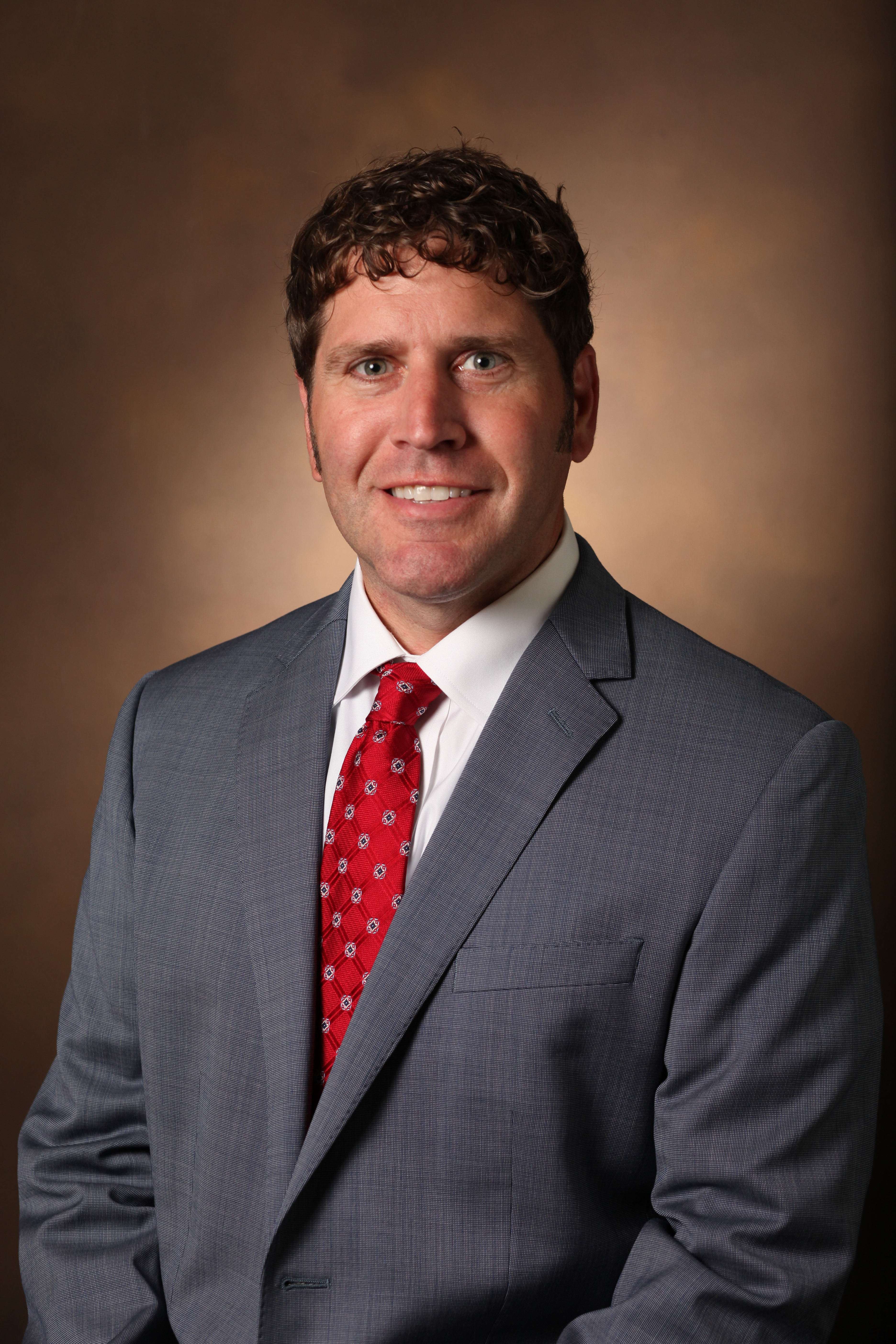 Is surviving enough?Anesthesiologists are sometimes referred to as the guardian angels of the O.R. They watch over and protect patients through life-saving procedures and through critical illness in the ICUs. But their guardian role is often fleeting.Read More
Is surviving enough?Anesthesiologists are sometimes referred to as the guardian angels of the O.R. They watch over and protect patients through life-saving procedures and through critical illness in the ICUs. But their guardian role is often fleeting.Read More
October 20, 2016
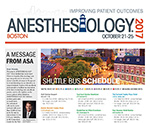 ANESTHESIOLOGY 2017 OnSite News: Information centralNo doubt you’ll be picking up lots of material over the course of ANESTHESIOLOGY 2017, and some of it will probably be left behind.Read More
ANESTHESIOLOGY 2017 OnSite News: Information centralNo doubt you’ll be picking up lots of material over the course of ANESTHESIOLOGY 2017, and some of it will probably be left behind.Read More- Dec. 31 is the deadline to claim CME creditsDue to new reporting requirements, all credits for live meetings now must be claimed in the calendar year in which the meeting took place. That means that your credits from ANESTHESIOLOGY 2017 must be claimed by midnight on Dec. 31, 2017.Read More
 ASA launches Perioperative Brain Health InitiativeDetails of the ASA’s new public safety campaign, the Perioperative Brain Health Initiative, will be explained during a special session Saturday afternoon. It will feature six presentations about the Society’s efforts to reduce cognitive changes and delirium following surgery.Read More
ASA launches Perioperative Brain Health InitiativeDetails of the ASA’s new public safety campaign, the Perioperative Brain Health Initiative, will be explained during a special session Saturday afternoon. It will feature six presentations about the Society’s efforts to reduce cognitive changes and delirium following surgery.Read More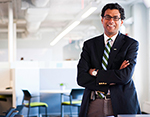 Keynote: Navigating the challenges of medicineHe has given inspirational commencement addresses at Stanford University, the University of Chicago, the California Institute of Technology and Williams College. He has been a staff writer for The New Yorker since 1998. And he has written three best-selling books, one of which was a finalist for the National Book Award. Atul Gawande, M.D., is such a powerful communicator and tireless advocate for health and science that it’s easy to forget that he still finds time to practice surgery at Brigham and Women’s Hospital in Boston.Read More
Keynote: Navigating the challenges of medicineHe has given inspirational commencement addresses at Stanford University, the University of Chicago, the California Institute of Technology and Williams College. He has been a staff writer for The New Yorker since 1998. And he has written three best-selling books, one of which was a finalist for the National Book Award. Atul Gawande, M.D., is such a powerful communicator and tireless advocate for health and science that it’s easy to forget that he still finds time to practice surgery at Brigham and Women’s Hospital in Boston.Read More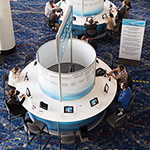 Self-Study program expands to 12 modulesThe ASA’s Self-Study program debuted at ANESTHESIOLOGY 2015 with just four modules. This year, there are 12 modules offering in-depth exploration of everything from multimodal therapy in pain management to the “Juggles and Struggles of Women in Anesthesiology.”Read More
Self-Study program expands to 12 modulesThe ASA’s Self-Study program debuted at ANESTHESIOLOGY 2015 with just four modules. This year, there are 12 modules offering in-depth exploration of everything from multimodal therapy in pain management to the “Juggles and Struggles of Women in Anesthesiology.”Read More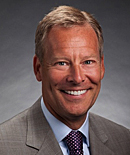 Be recognized as an ASA FellowAre you dedicated to your profession and patients? Are you proud of your years of educational development? Do you see yourself as a leader in medicine? If so, then you deserve to be formally recognized as a Fellow of the American Society of Anesthesiologists Read More
Be recognized as an ASA FellowAre you dedicated to your profession and patients? Are you proud of your years of educational development? Do you see yourself as a leader in medicine? If so, then you deserve to be formally recognized as a Fellow of the American Society of Anesthesiologists Read More Lifebox Masterclasses offer global perspectives, and a word from Resident Challenge winnerFor the fourth year in a row, Lifebox will present its increasingly popular Masterclass series on global anesthesia at its booth in the ASA Resource Center, in the North Lobby of Level 1 in the Boston Convention and Exhibition Center.Read More
Lifebox Masterclasses offer global perspectives, and a word from Resident Challenge winnerFor the fourth year in a row, Lifebox will present its increasingly popular Masterclass series on global anesthesia at its booth in the ASA Resource Center, in the North Lobby of Level 1 in the Boston Convention and Exhibition Center.Read More Run For The Warriors moves up to SaturdaySigning up for Saturday morning’s Run For The Warriors® 5K Run/Walk in Boston Common affords you some impressive bragging rights. You can say you ran in the oldest park in the United States within the city that hosts the world’s oldest annual marathon.Read More
Run For The Warriors moves up to SaturdaySigning up for Saturday morning’s Run For The Warriors® 5K Run/Walk in Boston Common affords you some impressive bragging rights. You can say you ran in the oldest park in the United States within the city that hosts the world’s oldest annual marathon.Read More- Industry, meeting supporters offer Satellite SymposiaTen Satellite Symposia will be presented by ASA’s Industry Supporters, Annual Meeting Supporters and exhibitors from Saturday through Monday. All programs provide cutting-edge medical and scientific education and are not product-specific. The symposia are led by noted scientists and clinicians from leading institutions around the world and cover topics ranging from “Improving Patient Safety with […]Read More
October 2, 2016
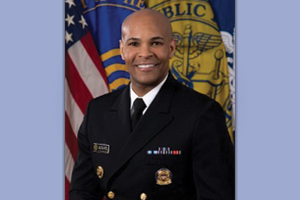 ANESTHESIOLOGY 2020 launches todayThis year, the largest educational and scientific meeting in the specialty has been re-envisioned to fit onto your laptop or mobile device. We’ve been working non-stop to make your virtual experience as efficient and enjoyable as possible.Read More
ANESTHESIOLOGY 2020 launches todayThis year, the largest educational and scientific meeting in the specialty has been re-envisioned to fit onto your laptop or mobile device. We’ve been working non-stop to make your virtual experience as efficient and enjoyable as possible.Read More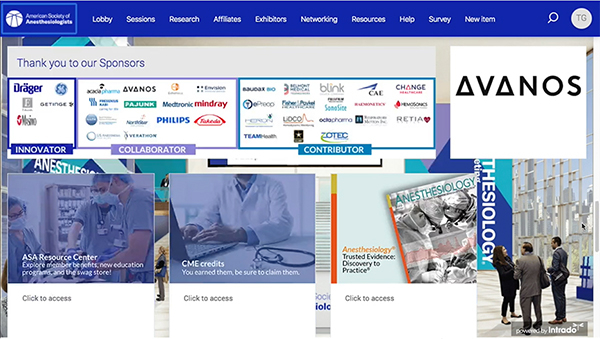 More opportunities than ever before to engage with corporate partnersLike many other aspects of ANESTHESIOLOGY 2020, the exhibitor activities planned for this year will be unlike any other—not just because they are all virtual, but because they offer more opportunity for engagement than any meeting before it.Read More
More opportunities than ever before to engage with corporate partnersLike many other aspects of ANESTHESIOLOGY 2020, the exhibitor activities planned for this year will be unlike any other—not just because they are all virtual, but because they offer more opportunity for engagement than any meeting before it.Read More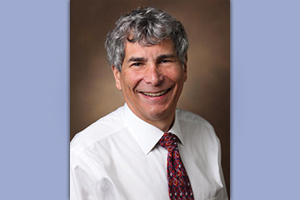 Pierce Lecture: ‘Is Safety Becoming the Poor Stepchild of Quality?’According to 2020 Pierce Lecturer Matthew B. Weinger, MD, MS, patient safety is being threatened by competing pressures within health care to deliver more and better care at lower cost.Read More
Pierce Lecture: ‘Is Safety Becoming the Poor Stepchild of Quality?’According to 2020 Pierce Lecturer Matthew B. Weinger, MD, MS, patient safety is being threatened by competing pressures within health care to deliver more and better care at lower cost.Read More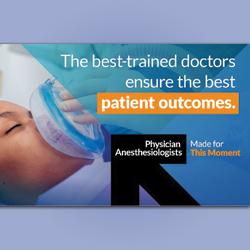 Physician anesthesiologists are Made for this MomentAs physician anesthesiologists, you make a difference in the moments that matter most to your patients. This is more evident than ever as the country battles an unprecedented pandemic—and you have been leaders, innovators, and lifesavers. And just as you were made for this moment, you are made for the ones that happen every day as you safeguard patients and advocate for quality care.Read More
Physician anesthesiologists are Made for this MomentAs physician anesthesiologists, you make a difference in the moments that matter most to your patients. This is more evident than ever as the country battles an unprecedented pandemic—and you have been leaders, innovators, and lifesavers. And just as you were made for this moment, you are made for the ones that happen every day as you safeguard patients and advocate for quality care.Read More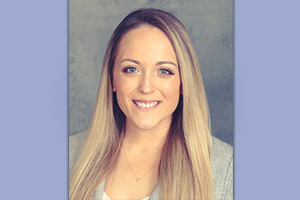 Medical students prep for transitionThe transition from medical school to a residency in anesthesiology is a well-deserved honor. But it comes with a number of future considerations, from ranking residency programs to student loans. Saturday’s Medical Student Program explores a wide spectrum of decision-making.Read More
Medical students prep for transitionThe transition from medical school to a residency in anesthesiology is a well-deserved honor. But it comes with a number of future considerations, from ranking residency programs to student loans. Saturday’s Medical Student Program explores a wide spectrum of decision-making.Read More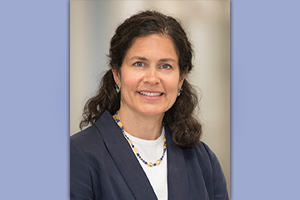 Reducing neurocognitive complications after cardiac surgeryPostoperative delirium and cognitive decline following heart surgery are valid concerns among patients and physicians alike. Efforts to reduce postoperative neurocognitive complications, which include preoperative screening for risk factors and leveraging optimal anesthetic techniques, may reduce postoperative mortality, shorten hospital stays, and decrease the need for long-term care.Read More
Reducing neurocognitive complications after cardiac surgeryPostoperative delirium and cognitive decline following heart surgery are valid concerns among patients and physicians alike. Efforts to reduce postoperative neurocognitive complications, which include preoperative screening for risk factors and leveraging optimal anesthetic techniques, may reduce postoperative mortality, shorten hospital stays, and decrease the need for long-term care.Read More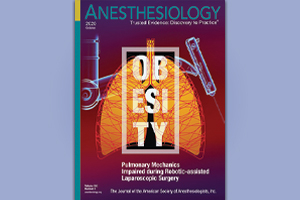 Don’t miss the Journal-sponsored sessions at ANESTHESIOLOGY 2020As in previous years, Anesthesiology is sponsoring several sessions during ANESTHESIOLOGY 2020. Take advantage of this outstanding opportunity to join Anesthesiology for all the great content planned.Read More
Don’t miss the Journal-sponsored sessions at ANESTHESIOLOGY 2020As in previous years, Anesthesiology is sponsoring several sessions during ANESTHESIOLOGY 2020. Take advantage of this outstanding opportunity to join Anesthesiology for all the great content planned.Read More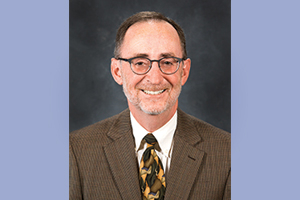 Prevent perioperative outcomes from going up in smokeSmoking and vaping come with a long list of warnings. Among them, the not-so-secret increased risk of heart disease and lung cancer. But it’s the surgical risks that should concern anesthesiologists, who are obligated to encourage patients to quit smoking or vaping before surgery.Read More
Prevent perioperative outcomes from going up in smokeSmoking and vaping come with a long list of warnings. Among them, the not-so-secret increased risk of heart disease and lung cancer. But it’s the surgical risks that should concern anesthesiologists, who are obligated to encourage patients to quit smoking or vaping before surgery.Read More
October 19, 2016
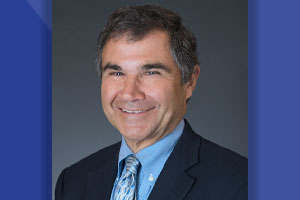 Say yes to NOThe story of Warren M. Zapol, M.D., could easily be the subject of an award-winning documentary on Netflix. This legendary anesthesiologist pioneered advances in extracorporeal membrane oxygenation and he discovered a life-saving use for a poisonous gas.Read More
Say yes to NOThe story of Warren M. Zapol, M.D., could easily be the subject of an award-winning documentary on Netflix. This legendary anesthesiologist pioneered advances in extracorporeal membrane oxygenation and he discovered a life-saving use for a poisonous gas.Read More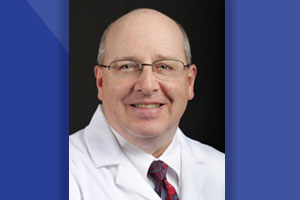 On the front lines of careIn the aftermath of a mass casualty, first responders are critical to treating injuries and saving lives. Anesthesiologists can be a valuable asset on the front lines of care.Read More
On the front lines of careIn the aftermath of a mass casualty, first responders are critical to treating injuries and saving lives. Anesthesiologists can be a valuable asset on the front lines of care.Read More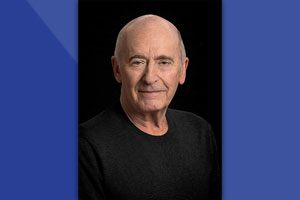 Respect among professionals improves patient safetyReshaping stereotypes can improve professional relationships and, ultimately, patient safety. Jeffrey B. Cooper, Ph.D., delivers that impassioned message during today’s “ASA/APSF Ellison C. Pierce Memorial Lecture: Respectful, Trusting Relationships Are Essential for Patient Safety, Especially the Surgeon-Anesthesiologist Dyad.”Read More
Respect among professionals improves patient safetyReshaping stereotypes can improve professional relationships and, ultimately, patient safety. Jeffrey B. Cooper, Ph.D., delivers that impassioned message during today’s “ASA/APSF Ellison C. Pierce Memorial Lecture: Respectful, Trusting Relationships Are Essential for Patient Safety, Especially the Surgeon-Anesthesiologist Dyad.”Read More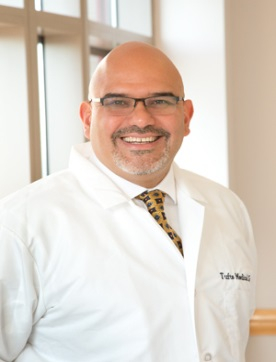 The boomers are comingBy 2030, the number of boomers 65 and older will reach 84 million, nearly twice their number today. While the elderly represent less than 20% of the U.S. population, they receive 35% or more of all surgical procedures.Read More
The boomers are comingBy 2030, the number of boomers 65 and older will reach 84 million, nearly twice their number today. While the elderly represent less than 20% of the U.S. population, they receive 35% or more of all surgical procedures.Read More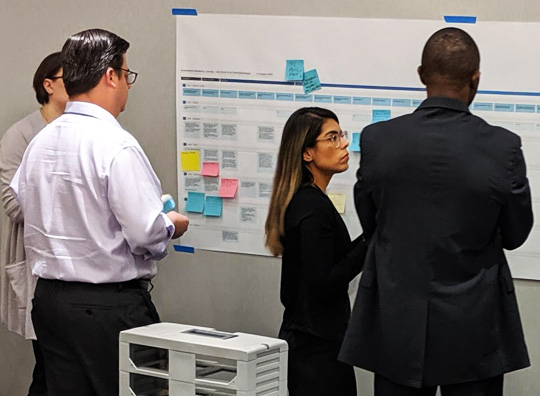 Help us understand the anesthesiology resident journey!ASA wants to better understand the journeys of its anesthesiology residents so we can improve your member experience during residency and beyond. Read More
Help us understand the anesthesiology resident journey!ASA wants to better understand the journeys of its anesthesiology residents so we can improve your member experience during residency and beyond. Read More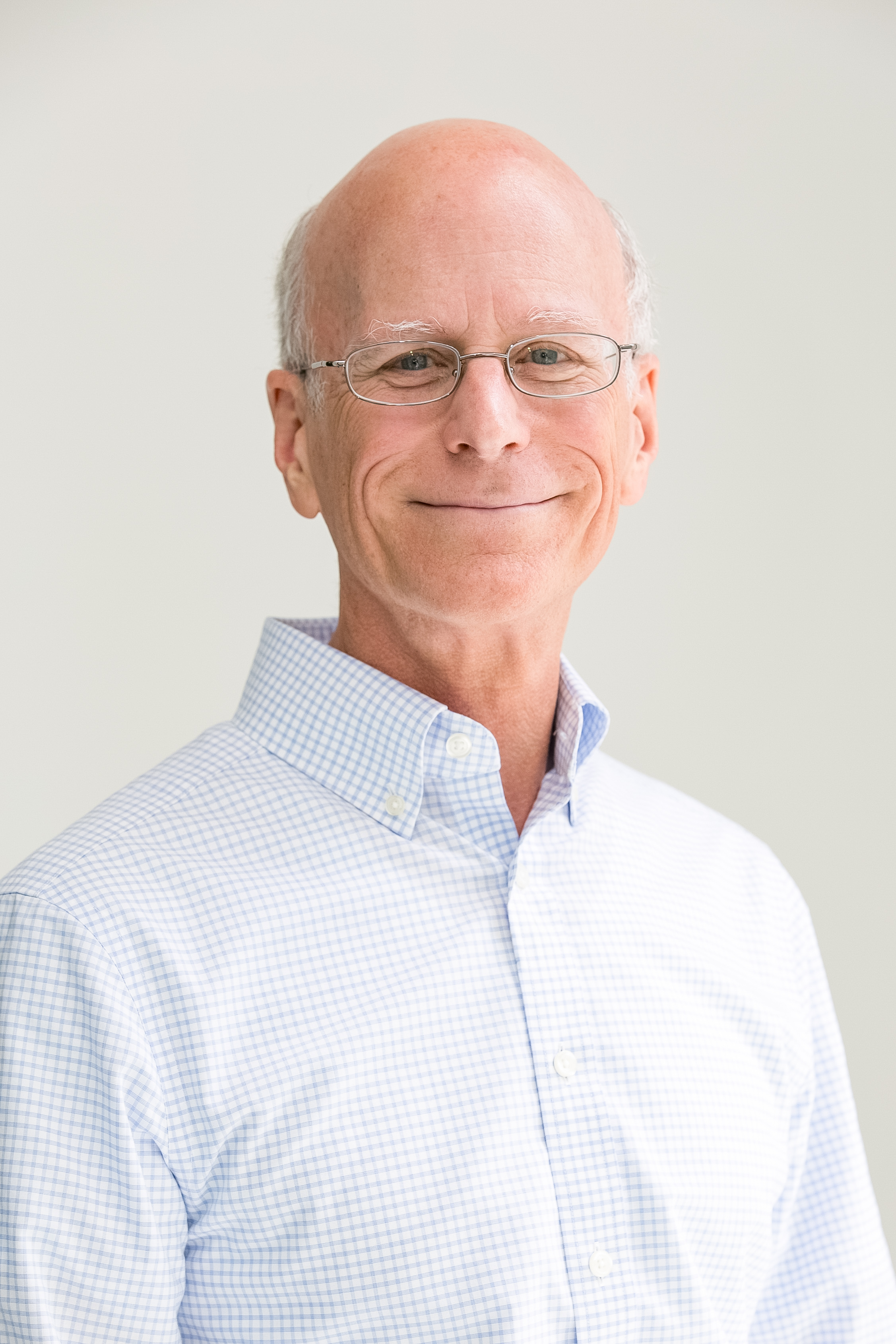 A Day for New ResearchersThis year, the Foundation for Anesthesia Education and Research (FAER) is partnering with Early-Stage Anesthesia Scholars (eSAS) for the first “A Day for New Researchers” event.Read More
A Day for New ResearchersThis year, the Foundation for Anesthesia Education and Research (FAER) is partnering with Early-Stage Anesthesia Scholars (eSAS) for the first “A Day for New Researchers” event.Read More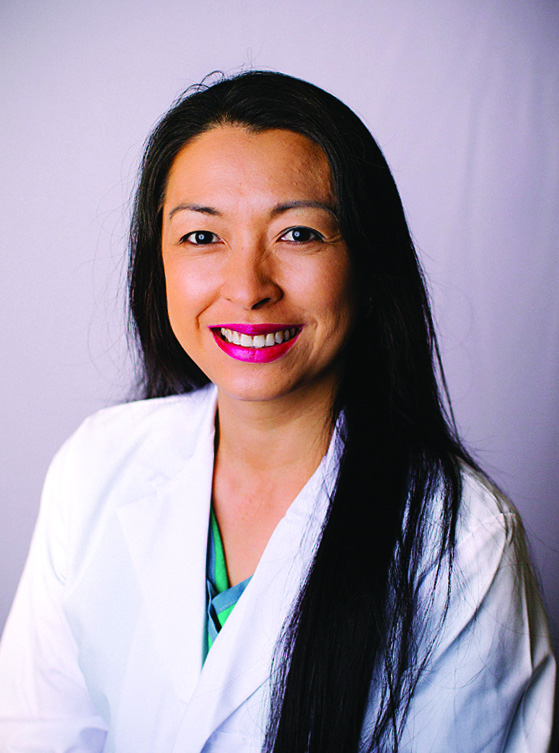 Single ventricle babies grow upSingle ventricle defects form a subgroup of critical congenital heart disorders. Before 1968, most affected babies struggled to live past infancy. That is when Francois Marie Fontan, M.D., and Guillermo Kreutzer, M.D., revolutionized treatment for these patients.Read More
Single ventricle babies grow upSingle ventricle defects form a subgroup of critical congenital heart disorders. Before 1968, most affected babies struggled to live past infancy. That is when Francois Marie Fontan, M.D., and Guillermo Kreutzer, M.D., revolutionized treatment for these patients.Read More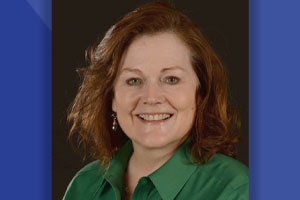 Earn patient-safety credit hours and have fun doing itCOME ON DOWN for the ACE and SEE Live! presentation. It’s going to be as much fun as a game show and far more enlightening. Each audience member will become a contestant in this fast-paced test of anesthesiology knowledge.Read More
Earn patient-safety credit hours and have fun doing itCOME ON DOWN for the ACE and SEE Live! presentation. It’s going to be as much fun as a game show and far more enlightening. Each audience member will become a contestant in this fast-paced test of anesthesiology knowledge.Read More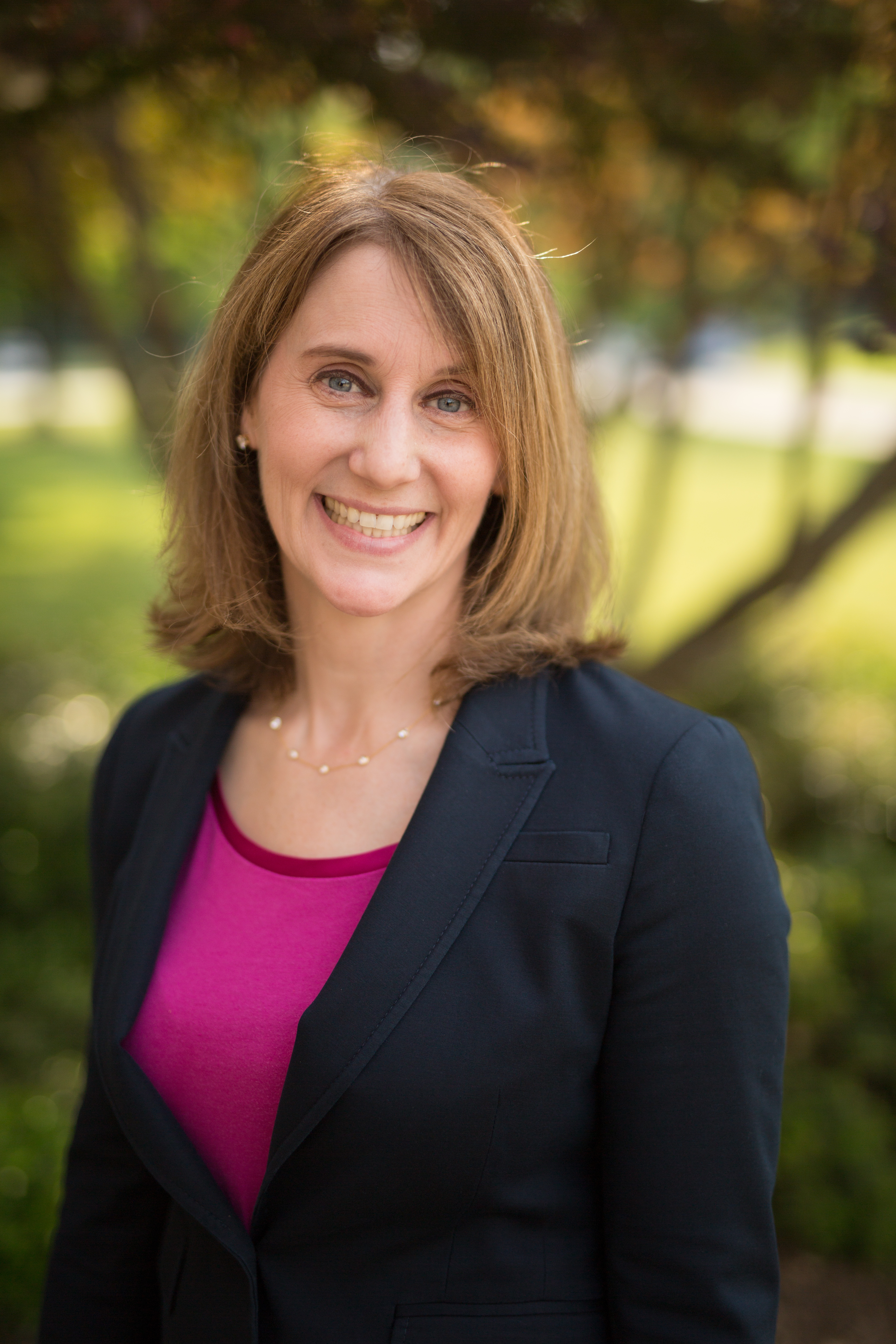 Take your child to workIf you’ve ever been challenged by explaining the job of an anesthesiologist to your children, this is the session for you. You’re encouraged to bring your children to Sunday’s fun, interactive workshop “A Day in the Life of an Anesthesiologist.”Read More
Take your child to workIf you’ve ever been challenged by explaining the job of an anesthesiologist to your children, this is the session for you. You’re encouraged to bring your children to Sunday’s fun, interactive workshop “A Day in the Life of an Anesthesiologist.”Read More The jury is out on peer reviewDespite advanced training and conscientious attention to detail, anesthesiologists aren’t immune from errors on occasion. What they do after an error is the subject of Sunday’s point-counterpoint session “Peer Review: Blame Game or Quality Improvement?”Read More
The jury is out on peer reviewDespite advanced training and conscientious attention to detail, anesthesiologists aren’t immune from errors on occasion. What they do after an error is the subject of Sunday’s point-counterpoint session “Peer Review: Blame Game or Quality Improvement?”Read More
October 18, 2016
 Welcome to ANESTHESIOLOGY 2019!Welcome to Orlando and ANESTHESIOLOGY 2019, the only meeting that unites more than 14,000 clinicians, thought leaders and professionals from around the world. As you get settled and prepare for the next four days ahead, we encourage you to take a moment to read through today’s edition of the ASA Daily News.Read More
Welcome to ANESTHESIOLOGY 2019!Welcome to Orlando and ANESTHESIOLOGY 2019, the only meeting that unites more than 14,000 clinicians, thought leaders and professionals from around the world. As you get settled and prepare for the next four days ahead, we encourage you to take a moment to read through today’s edition of the ASA Daily News.Read More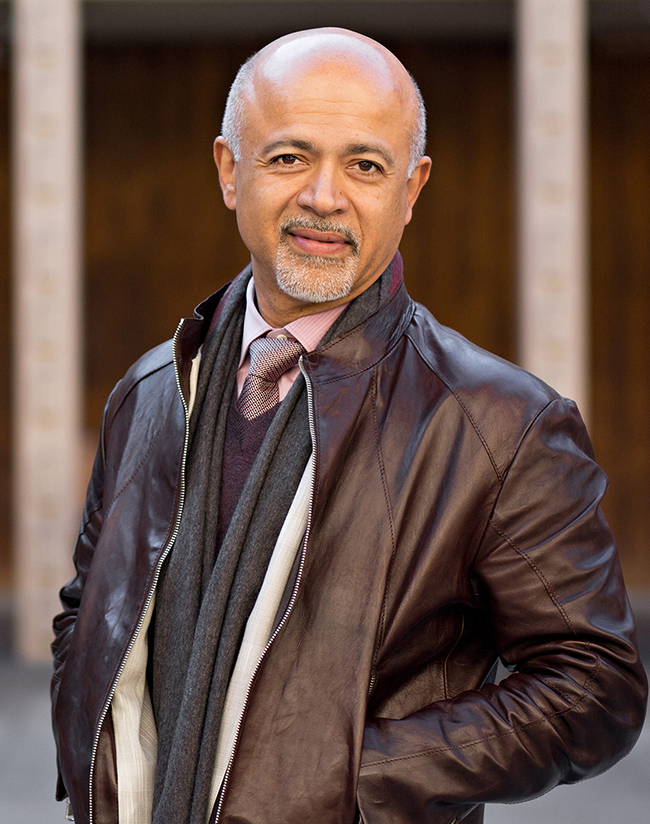 Face-to-face in a digital ageAccording to Abraham Verghese, M.D., it might be the most critical moment in an individual’s life – lying on a gurney, almost ready for surgery, and then the anesthesiologist comes to visit.Read More
Face-to-face in a digital ageAccording to Abraham Verghese, M.D., it might be the most critical moment in an individual’s life – lying on a gurney, almost ready for surgery, and then the anesthesiologist comes to visit.Read More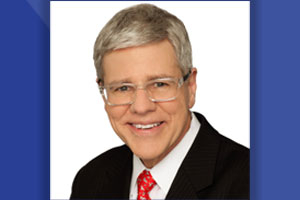 FAER-Swimming with SharksBack by popular demand, ANESTHESIOLOGY 2019 will host the Saturday session “FAER-Swimming with Sharks: How Anesthesiologist Inventors Can Move Their Ideas Forward.”Read More
FAER-Swimming with SharksBack by popular demand, ANESTHESIOLOGY 2019 will host the Saturday session “FAER-Swimming with Sharks: How Anesthesiologist Inventors Can Move Their Ideas Forward.”Read More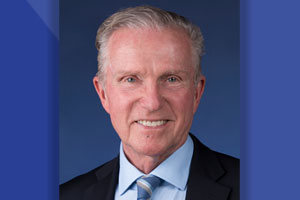 Physician heal thyself … and colleaguesIt’s an important public service message that bears repeating among physician anesthesiologists – if you or someone you know is struggling with depression or suicide, call or text the National Suicide Prevention Lifeline at 1-800-273-TALK (8255) or 741-741.Read More
Physician heal thyself … and colleaguesIt’s an important public service message that bears repeating among physician anesthesiologists – if you or someone you know is struggling with depression or suicide, call or text the National Suicide Prevention Lifeline at 1-800-273-TALK (8255) or 741-741.Read More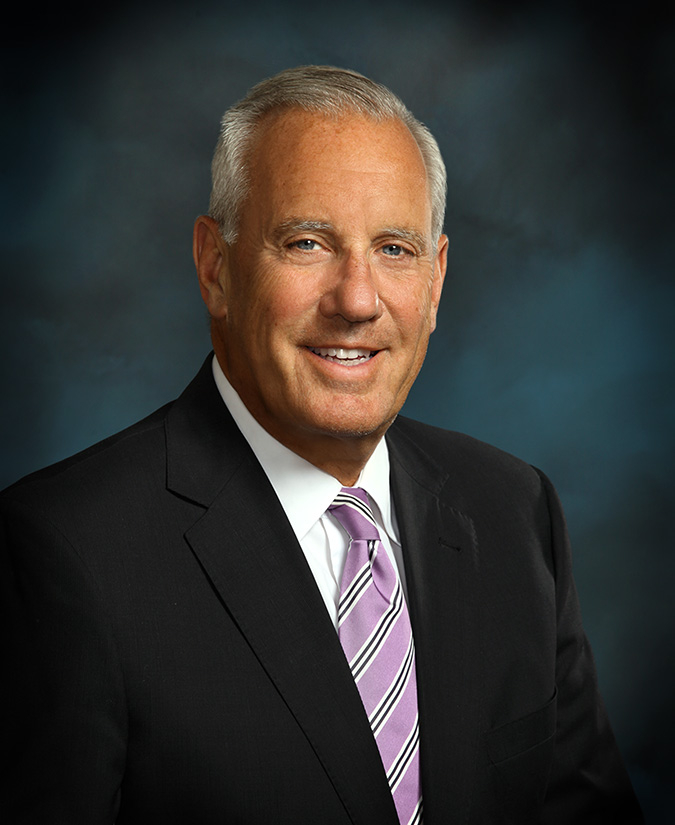 The business of medicineFor physicians, the business of the day is about caring for patients. But there is that nagging aspect of practice that is truly business in nature – staff supervision, contract negotiation and conflict resolution. Read More
The business of medicineFor physicians, the business of the day is about caring for patients. But there is that nagging aspect of practice that is truly business in nature – staff supervision, contract negotiation and conflict resolution. Read More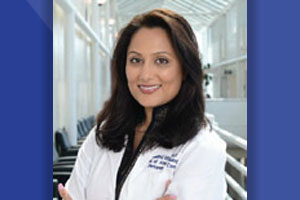 Opioids and anesthesiologistsWith the opioid crisis still affecting the nation, it’s important that anesthesiologists are well-educated about the problem – and about potential solutions.Read More
Opioids and anesthesiologistsWith the opioid crisis still affecting the nation, it’s important that anesthesiologists are well-educated about the problem – and about potential solutions.Read More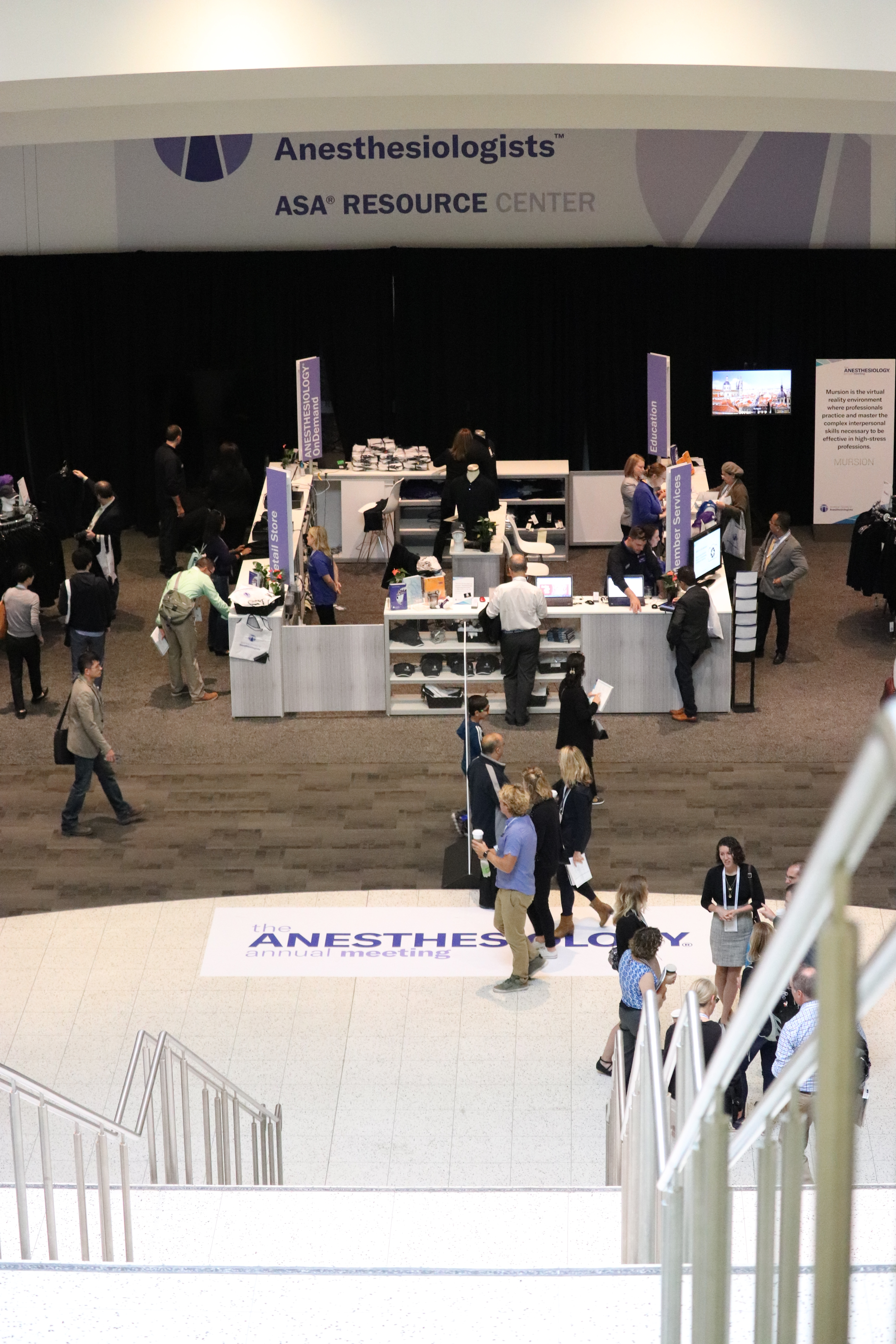 Get the most from your membership at the Resource CenterLearn how to optimize your practice, advance your skills and support your specialty at the ASA Resource Center, located at Booth 1259 in the Exhibit Hall (Level 2 West Hall A3-B2).Read More
Get the most from your membership at the Resource CenterLearn how to optimize your practice, advance your skills and support your specialty at the ASA Resource Center, located at Booth 1259 in the Exhibit Hall (Level 2 West Hall A3-B2).Read More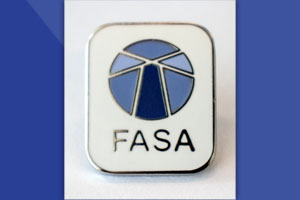 Follow up on FASA at Member Services boothInterested in earning the FASA? Find out everything you need to know about FASA eligibility at Member Services in the ASA Resource Center in the Exhibit Hall (Level 2 West Hall A3-B2).Read More
Follow up on FASA at Member Services boothInterested in earning the FASA? Find out everything you need to know about FASA eligibility at Member Services in the ASA Resource Center in the Exhibit Hall (Level 2 West Hall A3-B2).Read More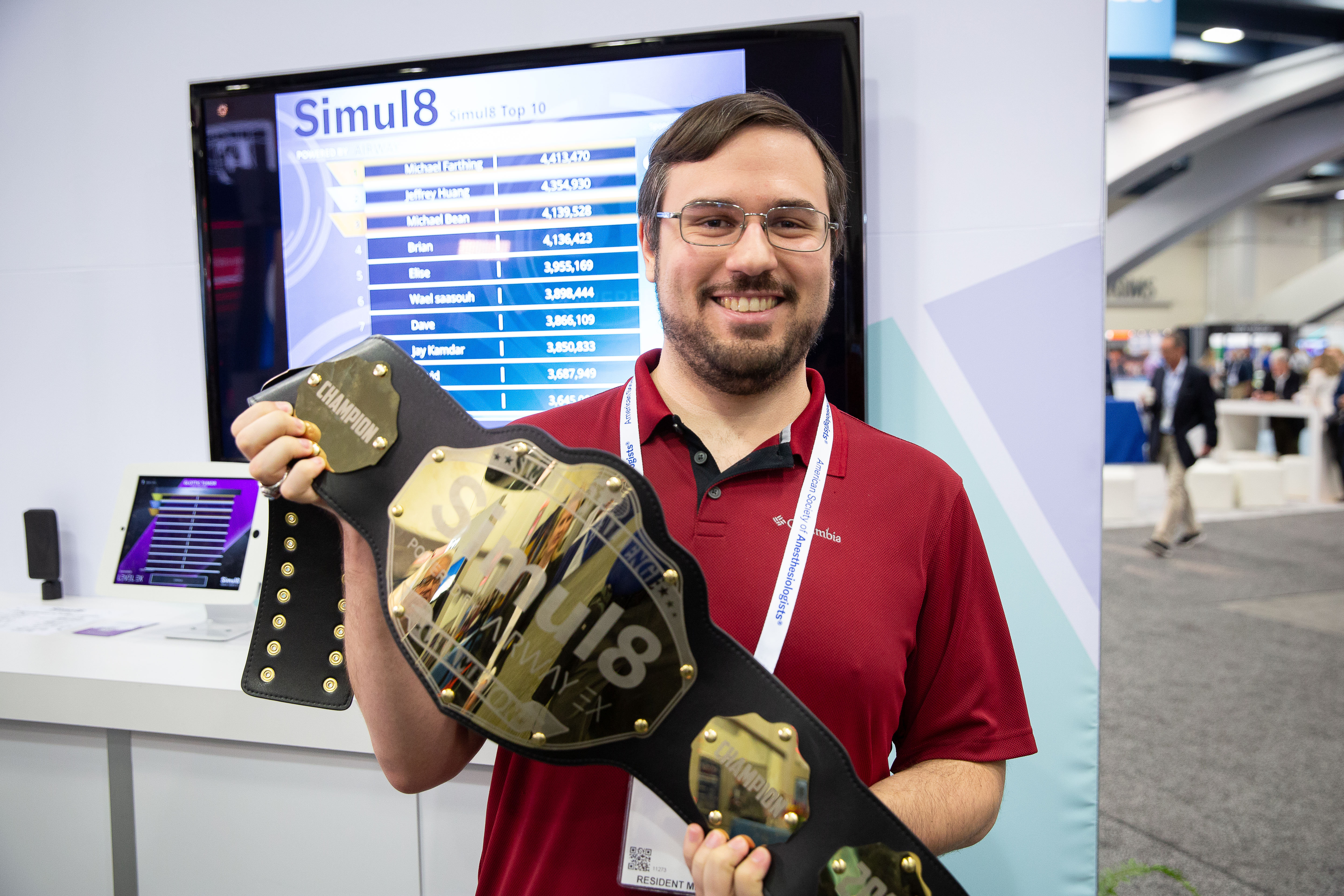 Take the Simul8 Challenge to test skills, win prizesPut your anesthesia knowledge to the test by competing with your peers in video games for daily prizes in the Simul8 Challenge, powered by Airway Ex.Read More
Take the Simul8 Challenge to test skills, win prizesPut your anesthesia knowledge to the test by competing with your peers in video games for daily prizes in the Simul8 Challenge, powered by Airway Ex.Read More- International Pavilion offers a place to connectASA recognizes that a large number of ANESTHESIOLOGY 2019 attendees are international and is intentional about providing an area for them to network, ask questions and connect with their national societies.Read More
October 17, 2016
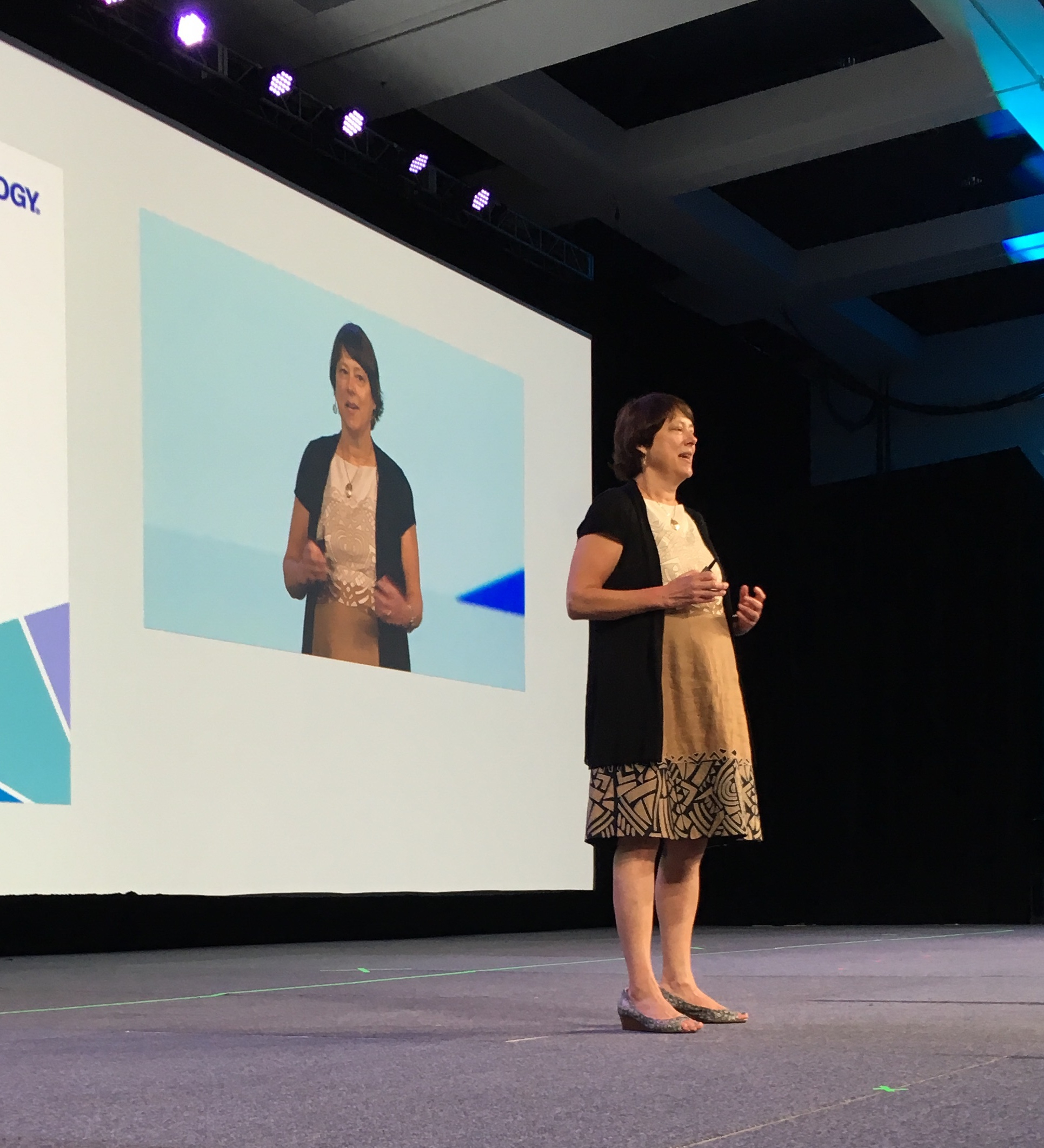 2018 John W. Severinghaus Lecture on Translational Science: Mixed research methods help improve patient health and safetyKaren B. Domino, M.D., M.P.H., presents the 2018 John W. Severinghaus Lecture on Translational Science.Read More
2018 John W. Severinghaus Lecture on Translational Science: Mixed research methods help improve patient health and safetyKaren B. Domino, M.D., M.P.H., presents the 2018 John W. Severinghaus Lecture on Translational Science.Read More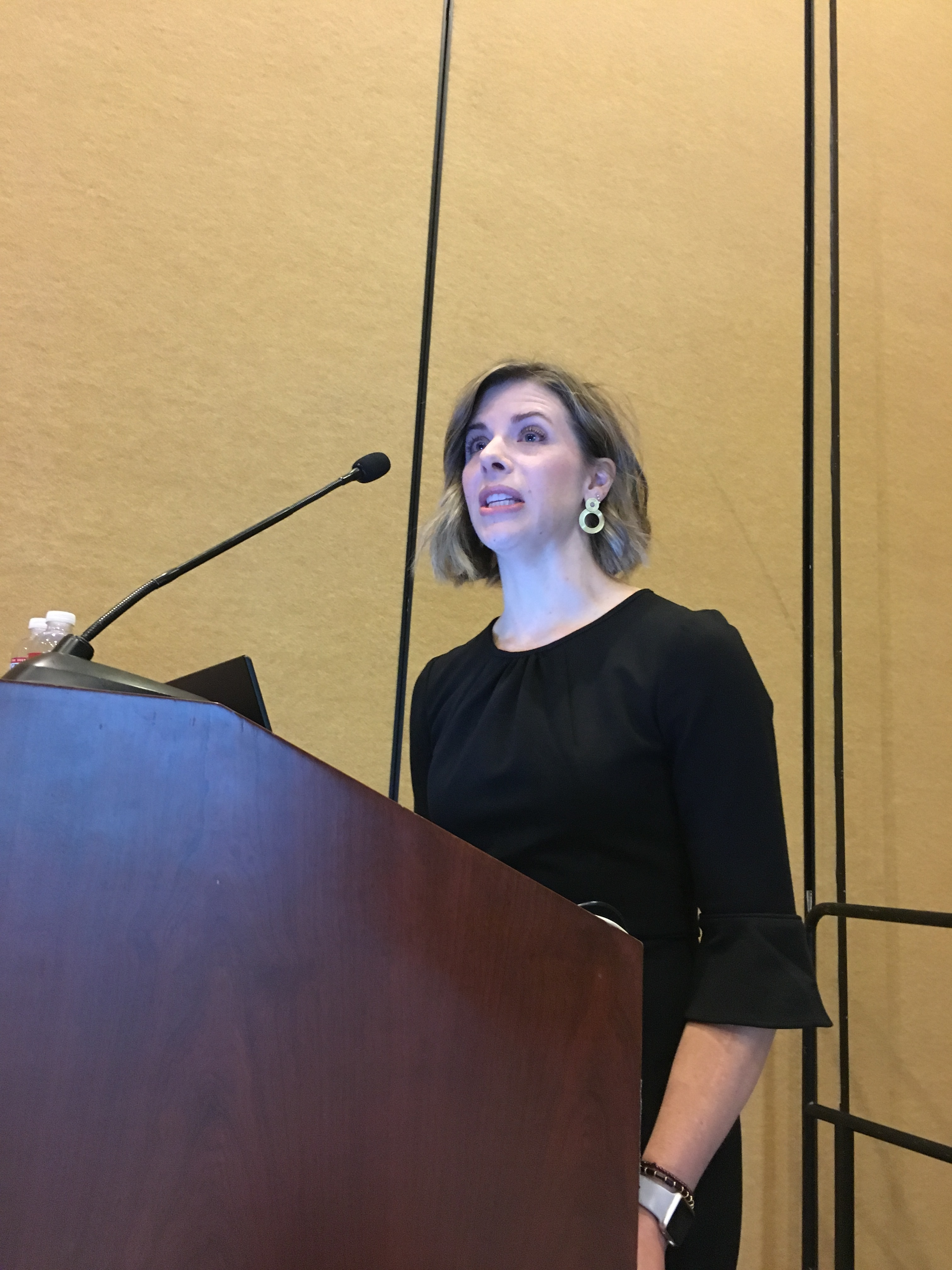 Recognizing differences in pain perceptionNot all patients with pain are the same. But what makes them different? Two pain medicine experts addressed that question in Tuesday’s session “Pain Perception and Treatment: We Are Not All the Same.” Read More
Recognizing differences in pain perceptionNot all patients with pain are the same. But what makes them different? Two pain medicine experts addressed that question in Tuesday’s session “Pain Perception and Treatment: We Are Not All the Same.” Read More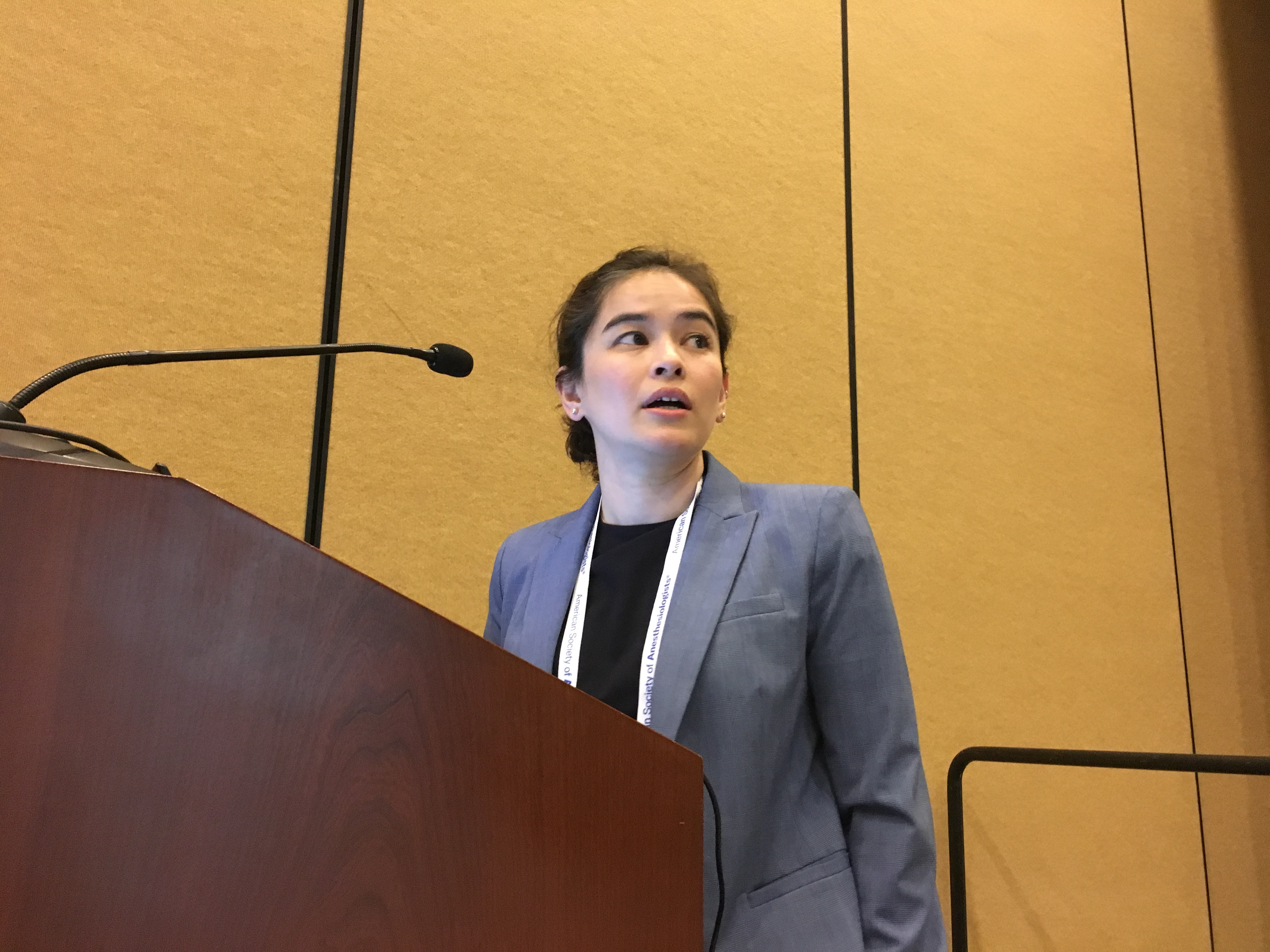 To tweet or not to tweetThe use of social media has increased dramatically over the past decade, with about 70 percent of U.S. adults using at least one social media site. Should physicians join the social media bandwagon? What’s in it for them and their patients? Read More
To tweet or not to tweetThe use of social media has increased dramatically over the past decade, with about 70 percent of U.S. adults using at least one social media site. Should physicians join the social media bandwagon? What’s in it for them and their patients? Read More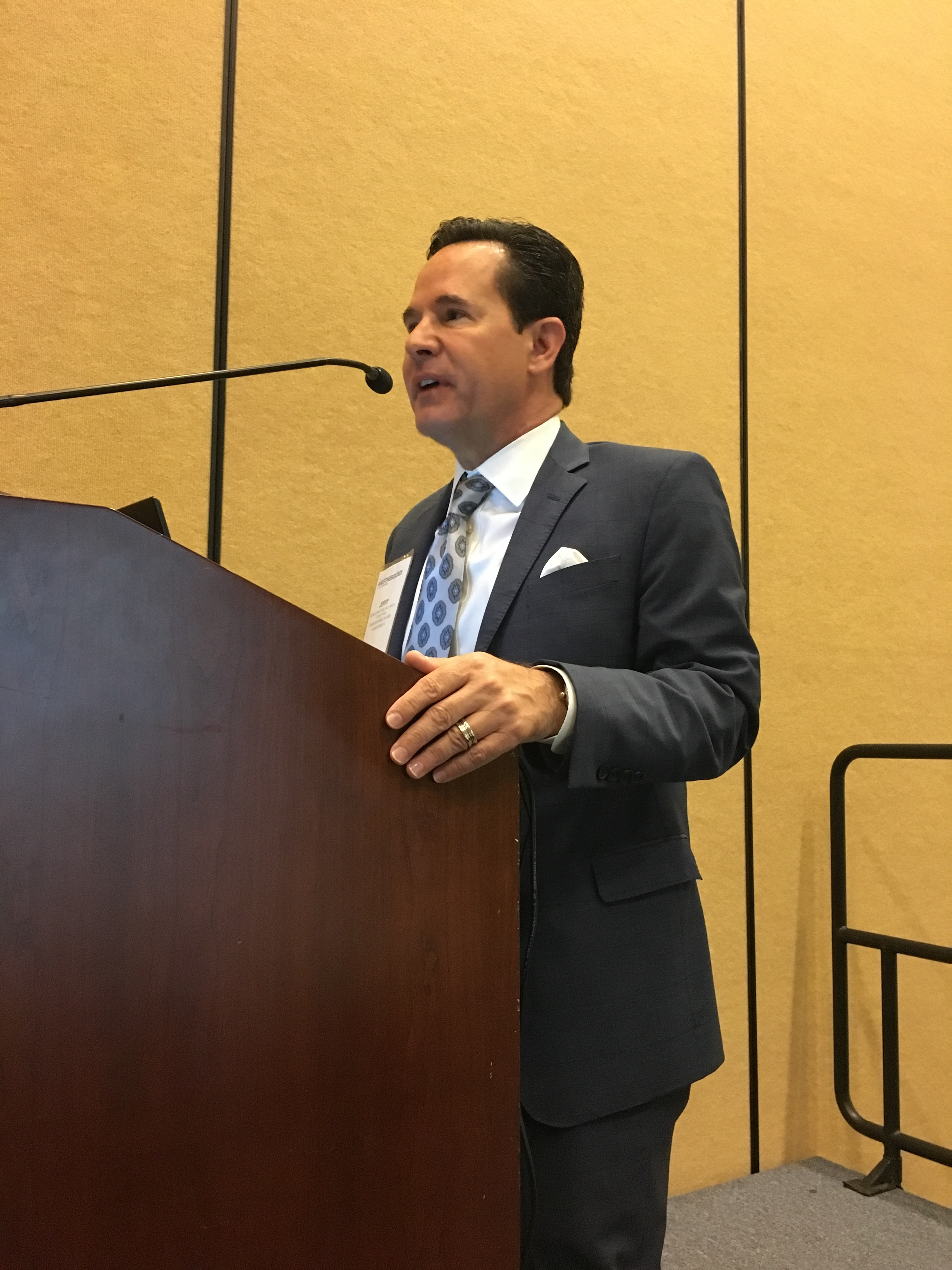 Large group consolidation enjoys a healthy debateDoes large group consolidation benefit anesthesiology as a specialty? Read More
Large group consolidation enjoys a healthy debateDoes large group consolidation benefit anesthesiology as a specialty? Read More Question of the Day: What new idea will you take back to your practice?“I just came from the Committee on Communications meeting and discovered the “When Seconds Count” toolkit to educate patients at the point of care. I don’t have to think, because the toolkit does it for me. I did not know about this tool. I can’t wait to use it myself and tell others about it.”Read More
Question of the Day: What new idea will you take back to your practice?“I just came from the Committee on Communications meeting and discovered the “When Seconds Count” toolkit to educate patients at the point of care. I don’t have to think, because the toolkit does it for me. I did not know about this tool. I can’t wait to use it myself and tell others about it.”Read More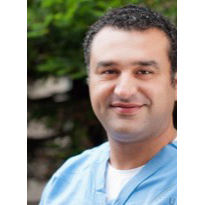 Anesthetic management of patients with acute aortic syndromesOn-call anesthesiologists must know the types of general and acute cardiovascular aortic emergencies they are likely to encounter and how to optimize perioperative management to improve outcomes. Read More
Anesthetic management of patients with acute aortic syndromesOn-call anesthesiologists must know the types of general and acute cardiovascular aortic emergencies they are likely to encounter and how to optimize perioperative management to improve outcomes. Read More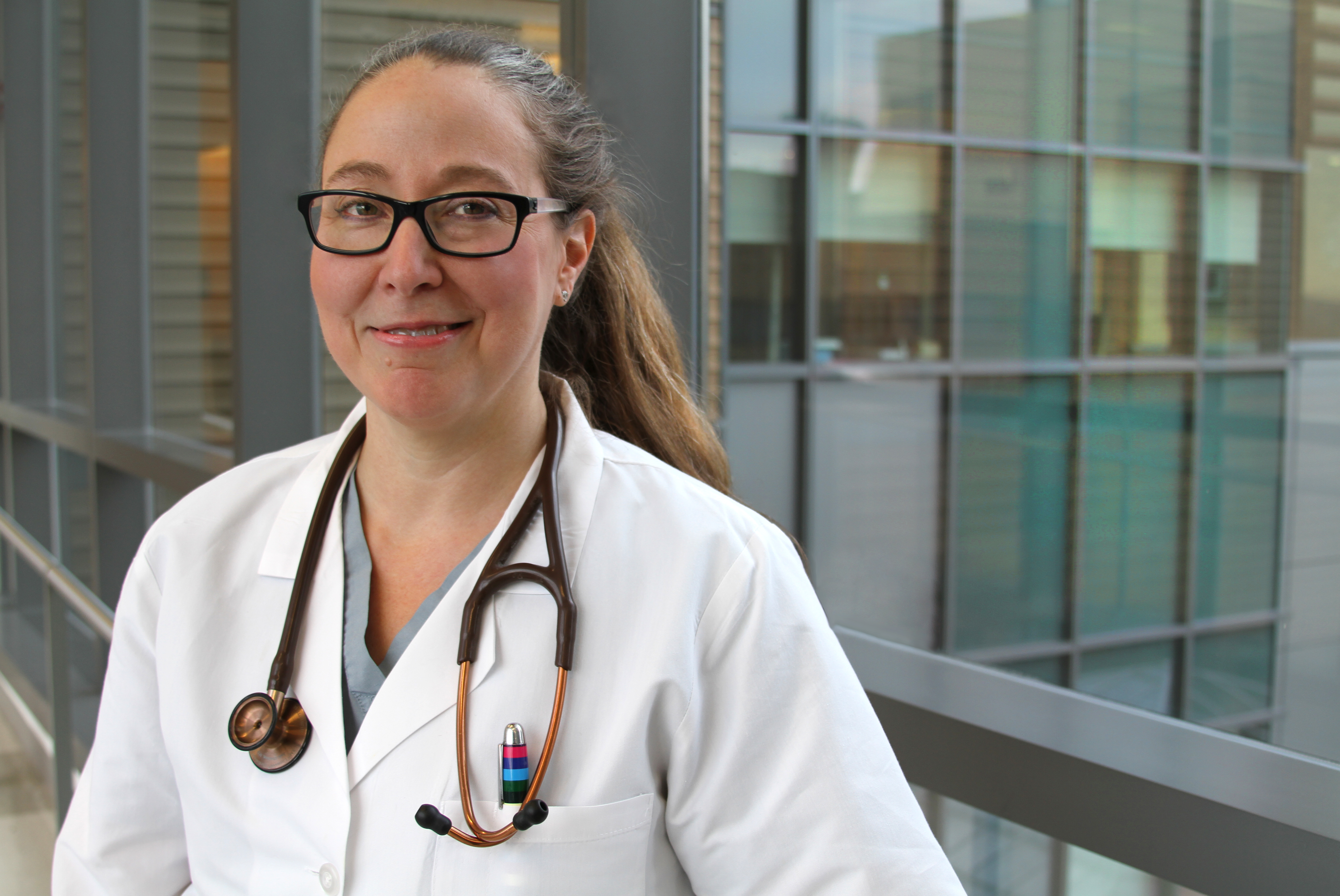 Balancing patient safety and pollution preventionHealth care is a top contributor to pollution in the world – and unfortunately, anesthesiology is a contributor as well. Read More
Balancing patient safety and pollution preventionHealth care is a top contributor to pollution in the world – and unfortunately, anesthesiology is a contributor as well. Read More
October 16, 2016
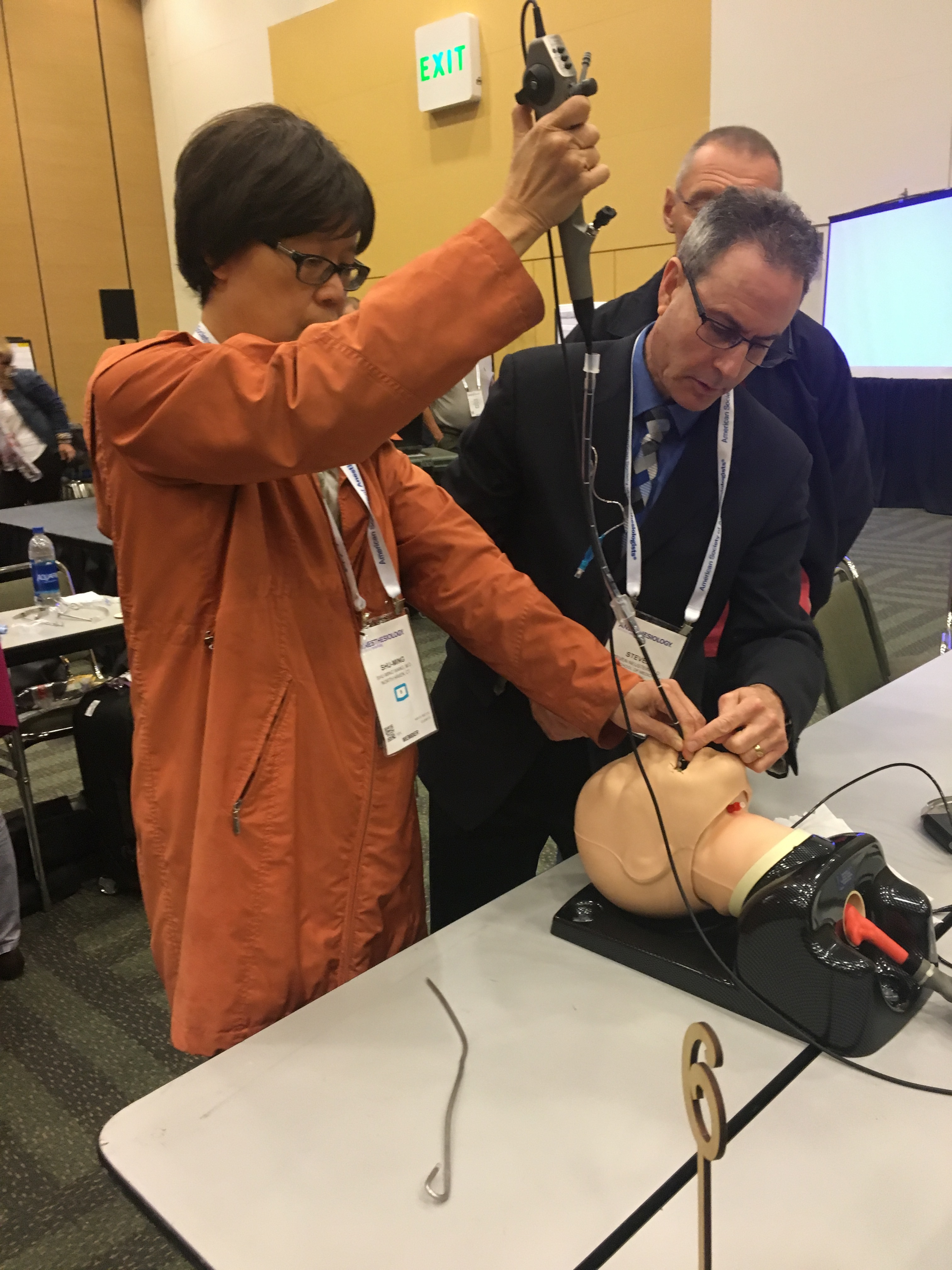 Workshop focuses on recommendations, devices for managing difficult airwaysCareful assessment and planning can help anesthesiologists have strategies in place before the induction of anesthesia, which saves crucial time if an emergency occurs. Read More
Workshop focuses on recommendations, devices for managing difficult airwaysCareful assessment and planning can help anesthesiologists have strategies in place before the induction of anesthesia, which saves crucial time if an emergency occurs. Read More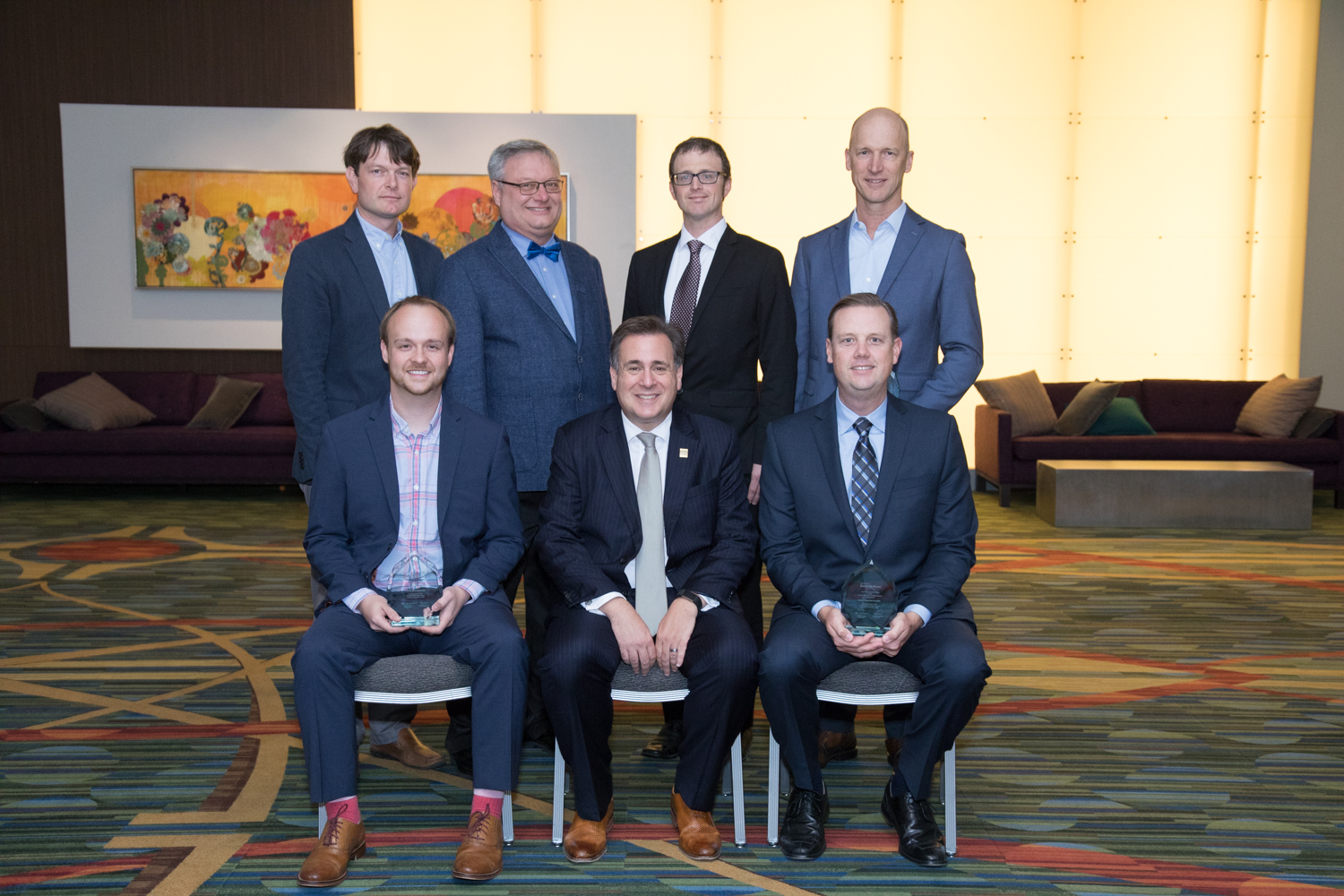 PSH Scholarship Program participants celebrate first-ever ASA scholarships, share successes and challengesThe PSH Scholarship Event brought together representatives from the three inaugural scholarship winners along with industry sponsors. The scholarships are the first of their kind for ASA and speak to the level of support ASA and industry leaders have extended to the PSH model.Read More
PSH Scholarship Program participants celebrate first-ever ASA scholarships, share successes and challengesThe PSH Scholarship Event brought together representatives from the three inaugural scholarship winners along with industry sponsors. The scholarships are the first of their kind for ASA and speak to the level of support ASA and industry leaders have extended to the PSH model.Read More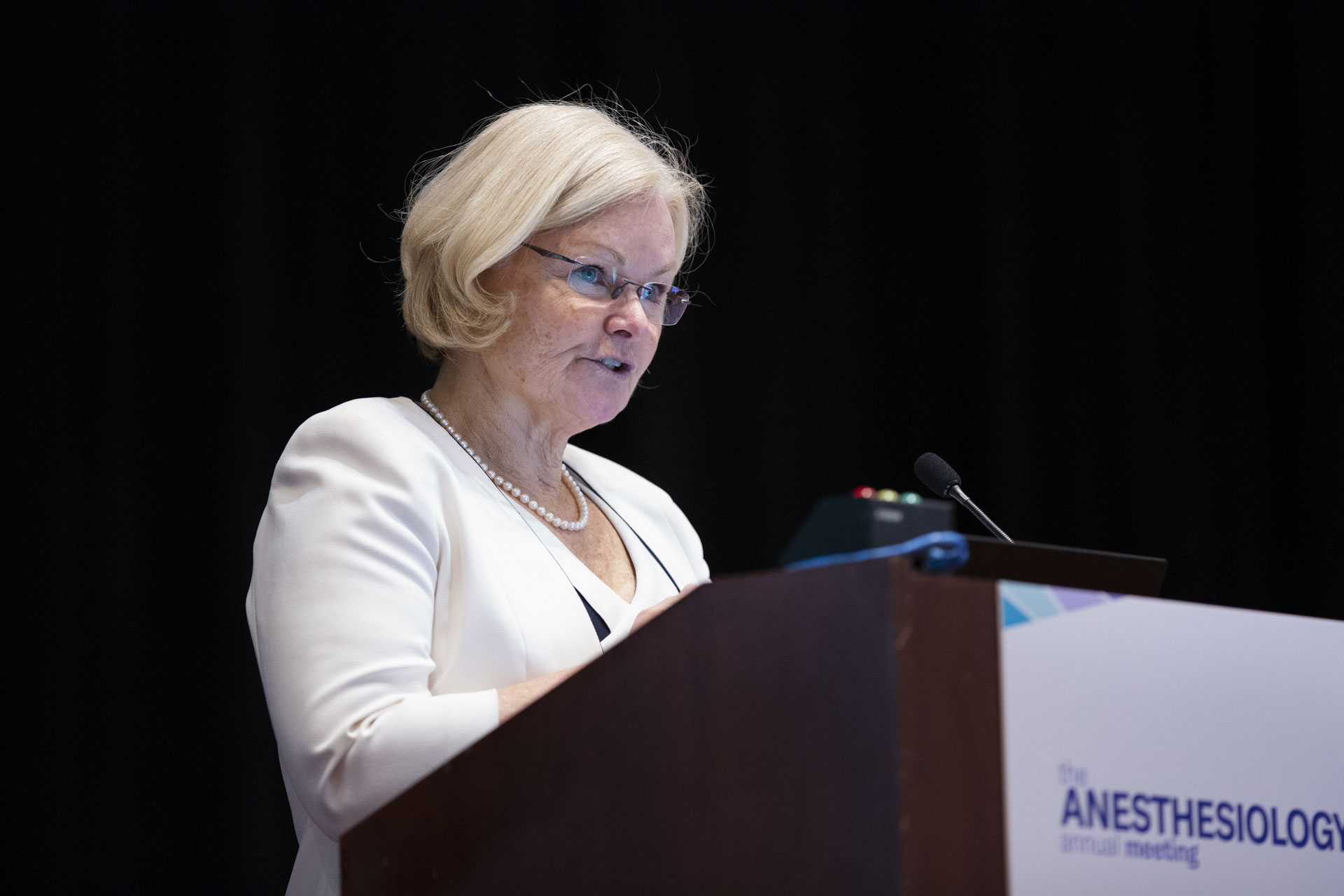 Celebration of Research honors outstanding contributors to the science of anesthesiologyLeading anesthesiologists who have dedicated their careers to scientific inquiry and the achievements they’ve brought to the specialty and practice of anesthesiology were acknowledged during Monday’s Celebration of Research. Read More
Celebration of Research honors outstanding contributors to the science of anesthesiologyLeading anesthesiologists who have dedicated their careers to scientific inquiry and the achievements they’ve brought to the specialty and practice of anesthesiology were acknowledged during Monday’s Celebration of Research. Read More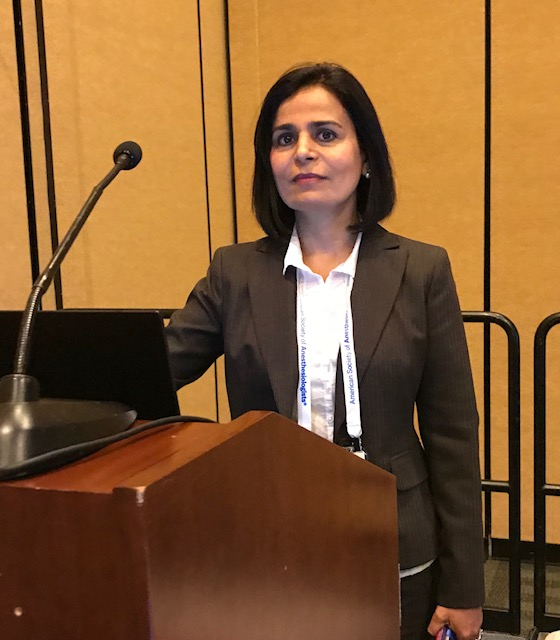 Decision-making for patients with coronary stentsAn increasing number of patients with coronary stents have a noncardiac operation each year. Approximately 5 to 15 percent of patients will present for a surgical procedure within the first year after stent placement. Read More
Decision-making for patients with coronary stentsAn increasing number of patients with coronary stents have a noncardiac operation each year. Approximately 5 to 15 percent of patients will present for a surgical procedure within the first year after stent placement. Read More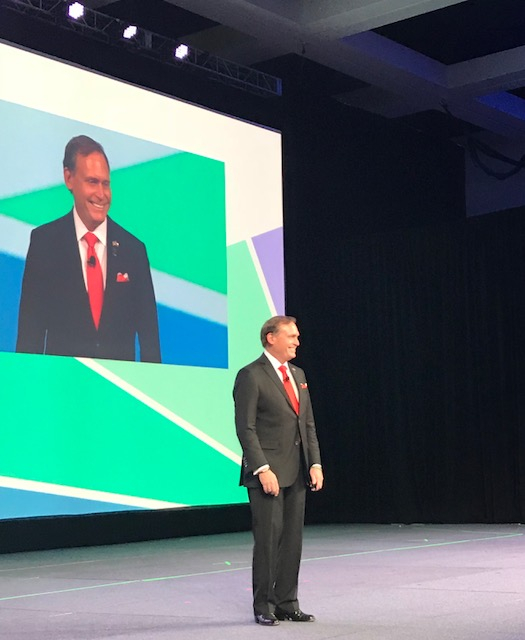 2018 Emery A. Rovenstine Memorial Lecture: Mentorship is a critical part of what we doIn his inspirational presentation “Mentoring the Next Generation of Leaders,” Dr. Zerwas, who is serving his sixth legislative term in the Texas House of Representatives, encouraged anesthesiologists to develop their leadership skills at a grassroots level by seeking opportunities to mentor the next generation and propel the field of anesthesiology forward within health care and their individual careers.Read More
2018 Emery A. Rovenstine Memorial Lecture: Mentorship is a critical part of what we doIn his inspirational presentation “Mentoring the Next Generation of Leaders,” Dr. Zerwas, who is serving his sixth legislative term in the Texas House of Representatives, encouraged anesthesiologists to develop their leadership skills at a grassroots level by seeking opportunities to mentor the next generation and propel the field of anesthesiology forward within health care and their individual careers.Read More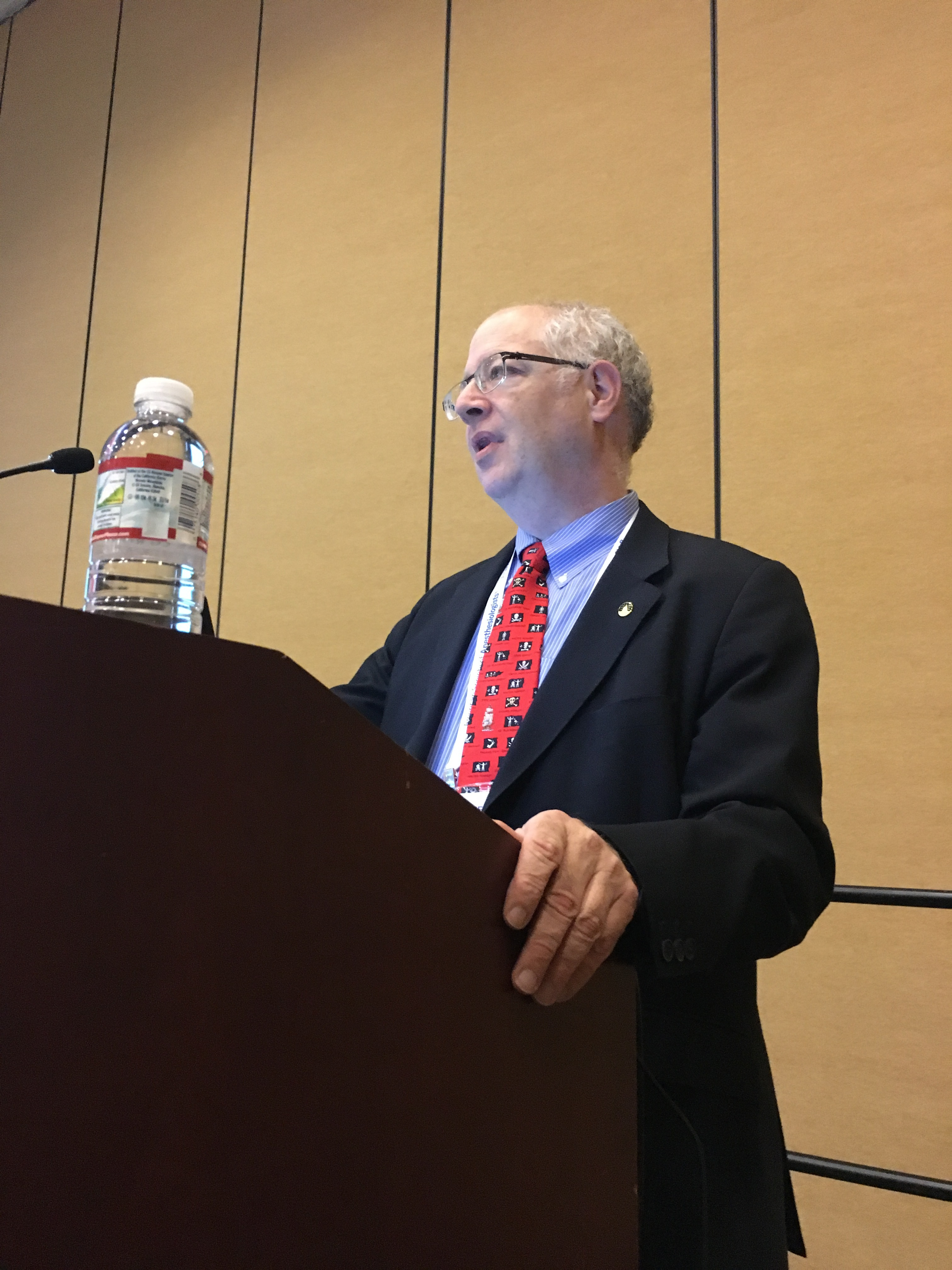 When accidents happenHealth care remains far behind other domains and continues to embrace obsolete ideas about how accidents happen. Further, health care uses a conflicted method for investigating medical accidents, allows political forces to shape the narrative of what happened and the appropriate response, and has learned little from bad outcomes.Read More
When accidents happenHealth care remains far behind other domains and continues to embrace obsolete ideas about how accidents happen. Further, health care uses a conflicted method for investigating medical accidents, allows political forces to shape the narrative of what happened and the appropriate response, and has learned little from bad outcomes.Read More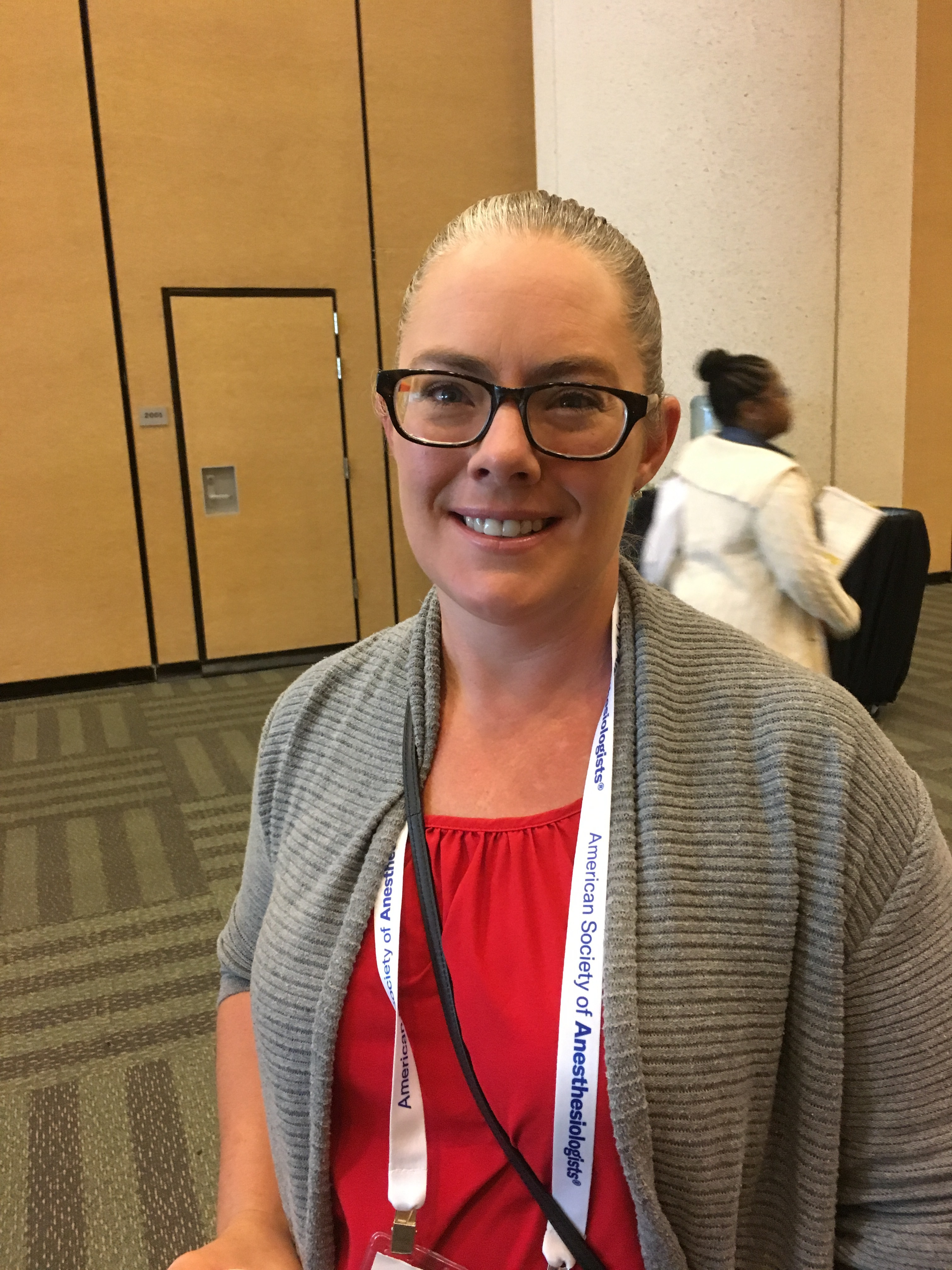 Question of the Day: What do you do to combat physician burnout?More than half of all physicians report at least one major symptom of burnout, and anesthesiologists seem to be especially affected, with a rate of burnout higher than the mean rate for all physicians. These statistics prompted the ASA Daily News staff to ask the question:
Question of the Day: What do you do to combat physician burnout?More than half of all physicians report at least one major symptom of burnout, and anesthesiologists seem to be especially affected, with a rate of burnout higher than the mean rate for all physicians. These statistics prompted the ASA Daily News staff to ask the question:
What do you do to combat physician burnout?Read More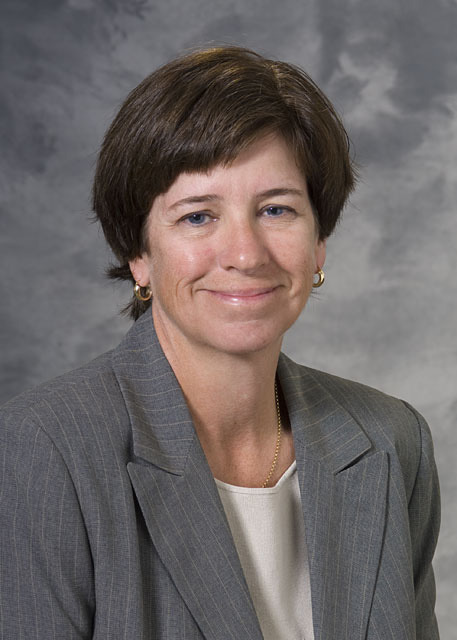 Update on anesthesia and stroke outcomesPerioperative anesthetic management can have profound effects on patient outcomes for those who are either at risk for stroke during noncardiac surgery or who have had acute ischemic stroke (AIS) and are having endovascular thrombectomy (EVT). Read More
Update on anesthesia and stroke outcomesPerioperative anesthetic management can have profound effects on patient outcomes for those who are either at risk for stroke during noncardiac surgery or who have had acute ischemic stroke (AIS) and are having endovascular thrombectomy (EVT). Read More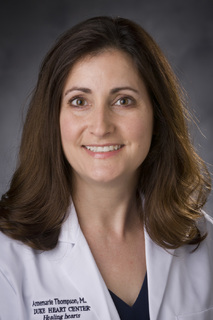 The transition to perioperative medicineLeading institutions have made the shift to perioperative medicine and are sharing the lessons they have learned along the way.Read More
The transition to perioperative medicineLeading institutions have made the shift to perioperative medicine and are sharing the lessons they have learned along the way.Read More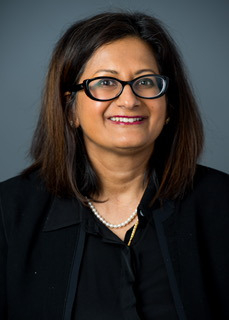 Surgeon champion key to ERAS, PHS adoptionEnhanced Recovery After Surgery (ERAS) and Perioperative Surgical Home (PSH) models offer important advantages in patient outcomes, satisfaction, length of stay, cost and other measures in both adult and pediatric populations.Read More
Surgeon champion key to ERAS, PHS adoptionEnhanced Recovery After Surgery (ERAS) and Perioperative Surgical Home (PSH) models offer important advantages in patient outcomes, satisfaction, length of stay, cost and other measures in both adult and pediatric populations.Read More
October 15, 2016
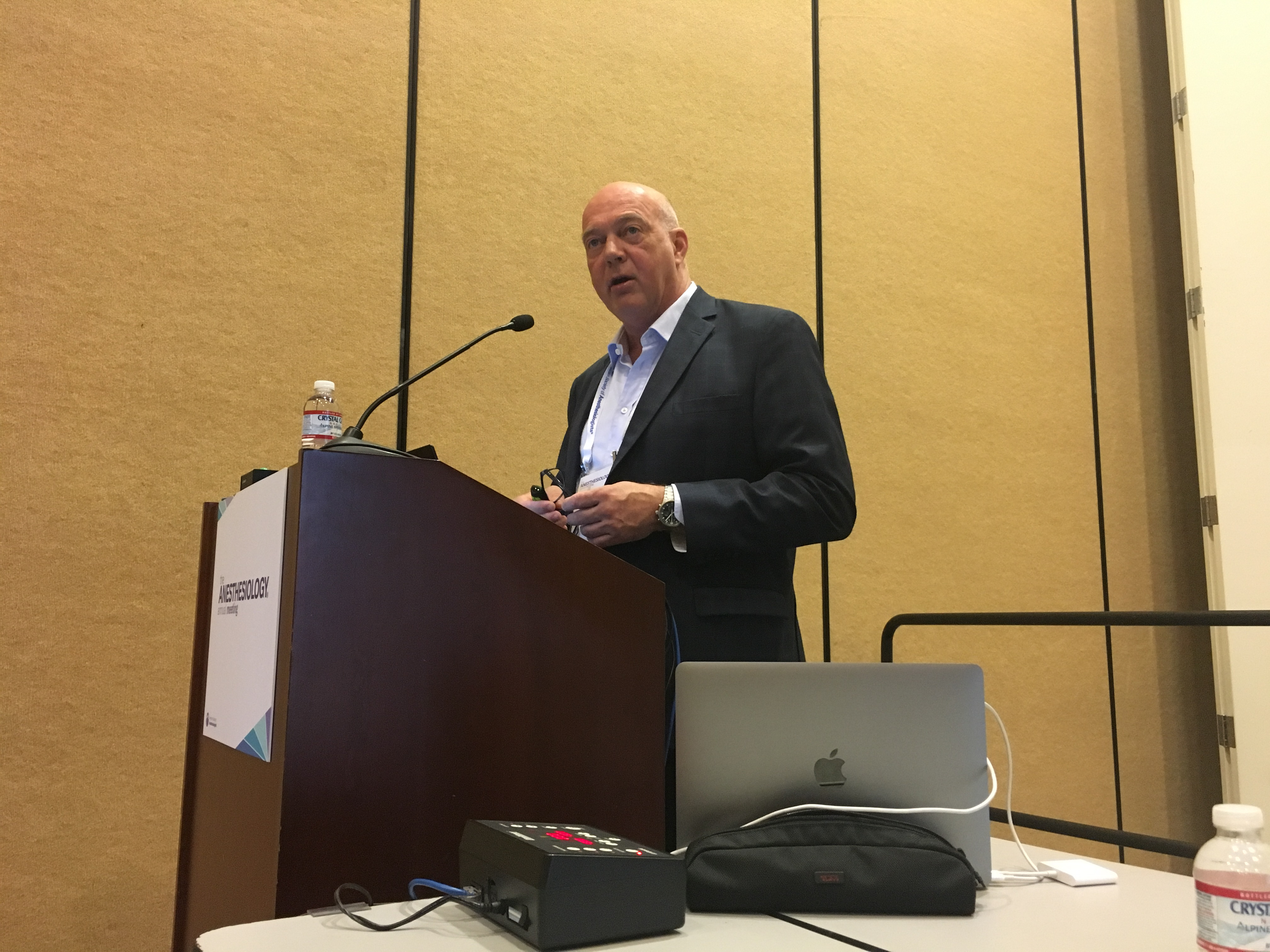 Importing practices from Europe to improve the perioperative processTo improve the perioperative trajectory of patients, particularly for those with multiple comorbidities and increased risk for postoperative complications, the Sunday session “ESA Panel: Perioperative Medicine: Role of Anesthesiologists in Europe” spanned the globe. It showcased recent advances and programs anesthesiologists from around the world are implementing to optimize outcomes for surgical patients during the […]Read More
Importing practices from Europe to improve the perioperative processTo improve the perioperative trajectory of patients, particularly for those with multiple comorbidities and increased risk for postoperative complications, the Sunday session “ESA Panel: Perioperative Medicine: Role of Anesthesiologists in Europe” spanned the globe. It showcased recent advances and programs anesthesiologists from around the world are implementing to optimize outcomes for surgical patients during the […]Read More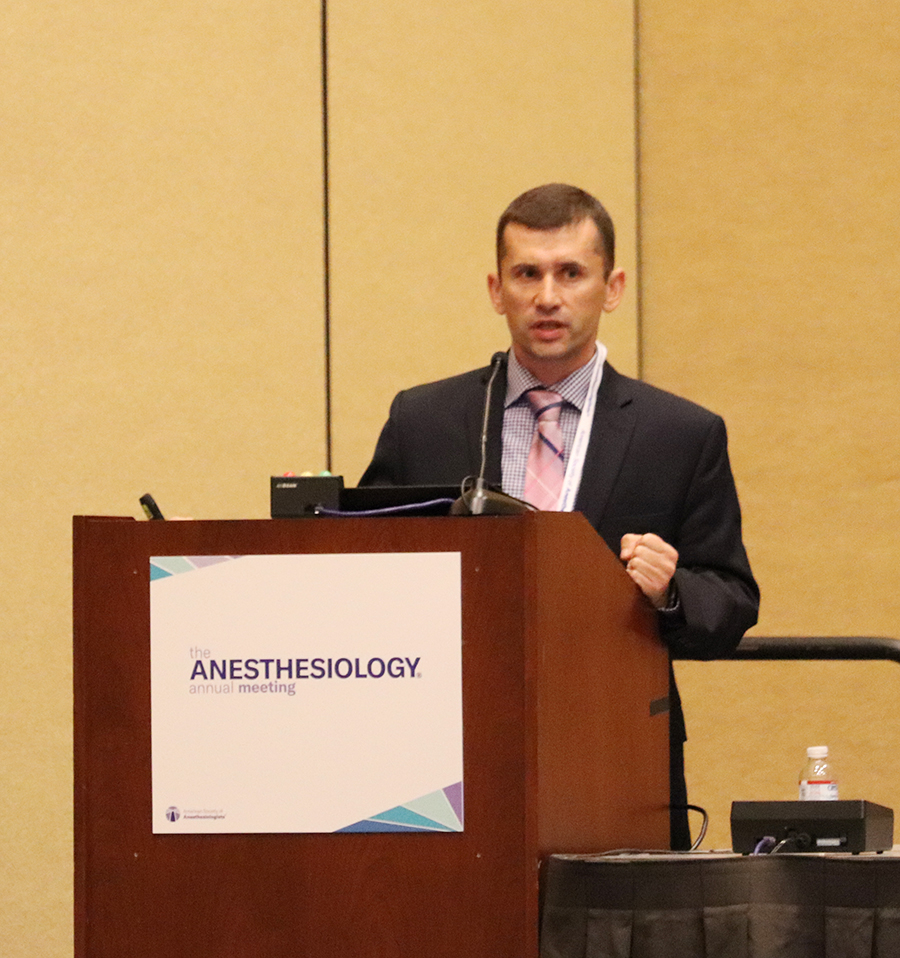 Managing cardiac arrest and other challenging O.R. situationsExtremely challenging situations can develop in the O.R. that affect what happens in the ICU later on. But the more familiar you are with the core tenets of ICU management, the better prepared you’ll be when challenging situations happen. Read More
Managing cardiac arrest and other challenging O.R. situationsExtremely challenging situations can develop in the O.R. that affect what happens in the ICU later on. But the more familiar you are with the core tenets of ICU management, the better prepared you’ll be when challenging situations happen. Read More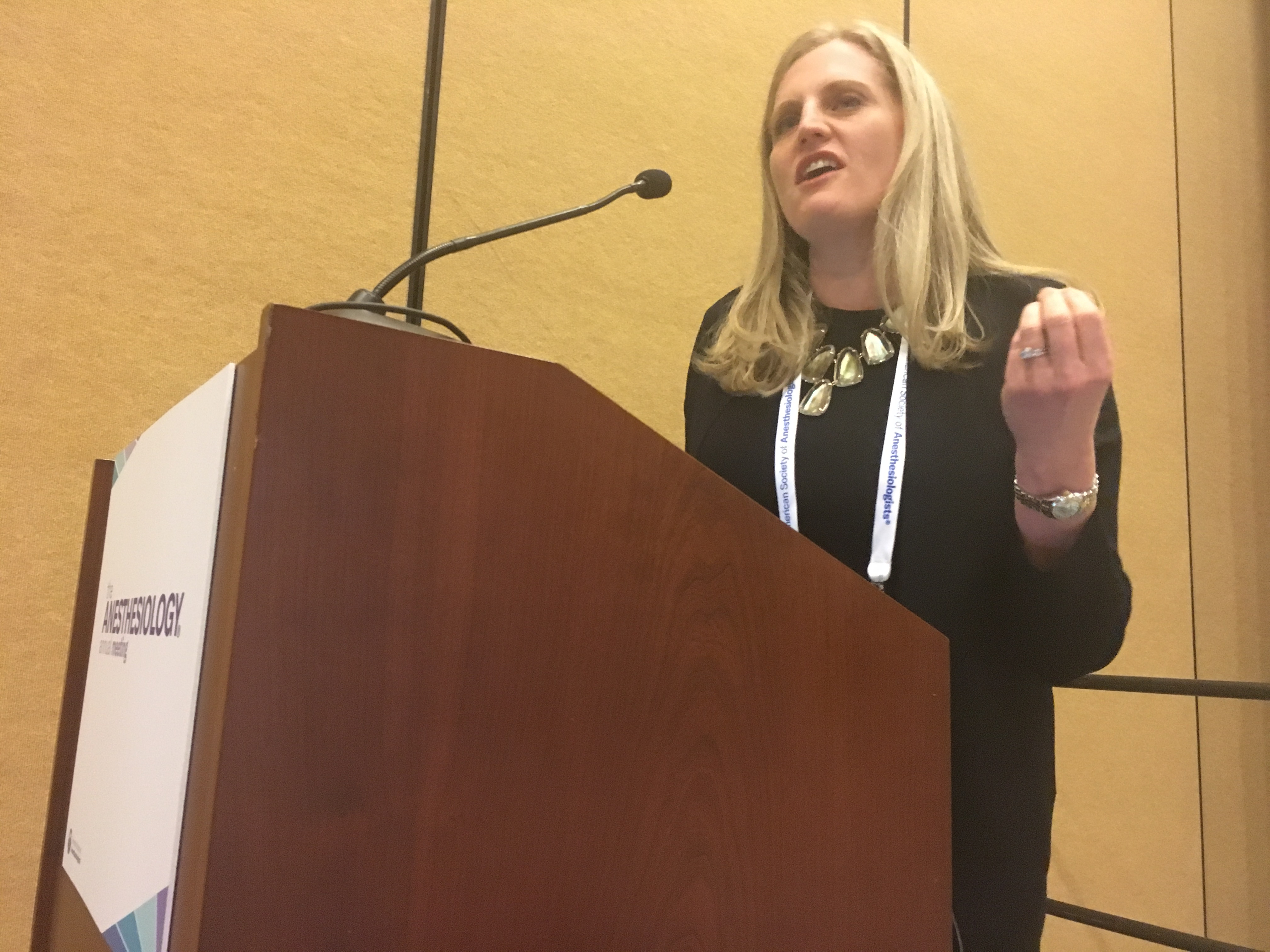 Challenges in comparing MAC and GAMonitored anesthesia care (MAC) has increased exponentially over the past decade, but questions remain about its safety compared with a general anesthetic (GA). Read More
Challenges in comparing MAC and GAMonitored anesthesia care (MAC) has increased exponentially over the past decade, but questions remain about its safety compared with a general anesthetic (GA). Read More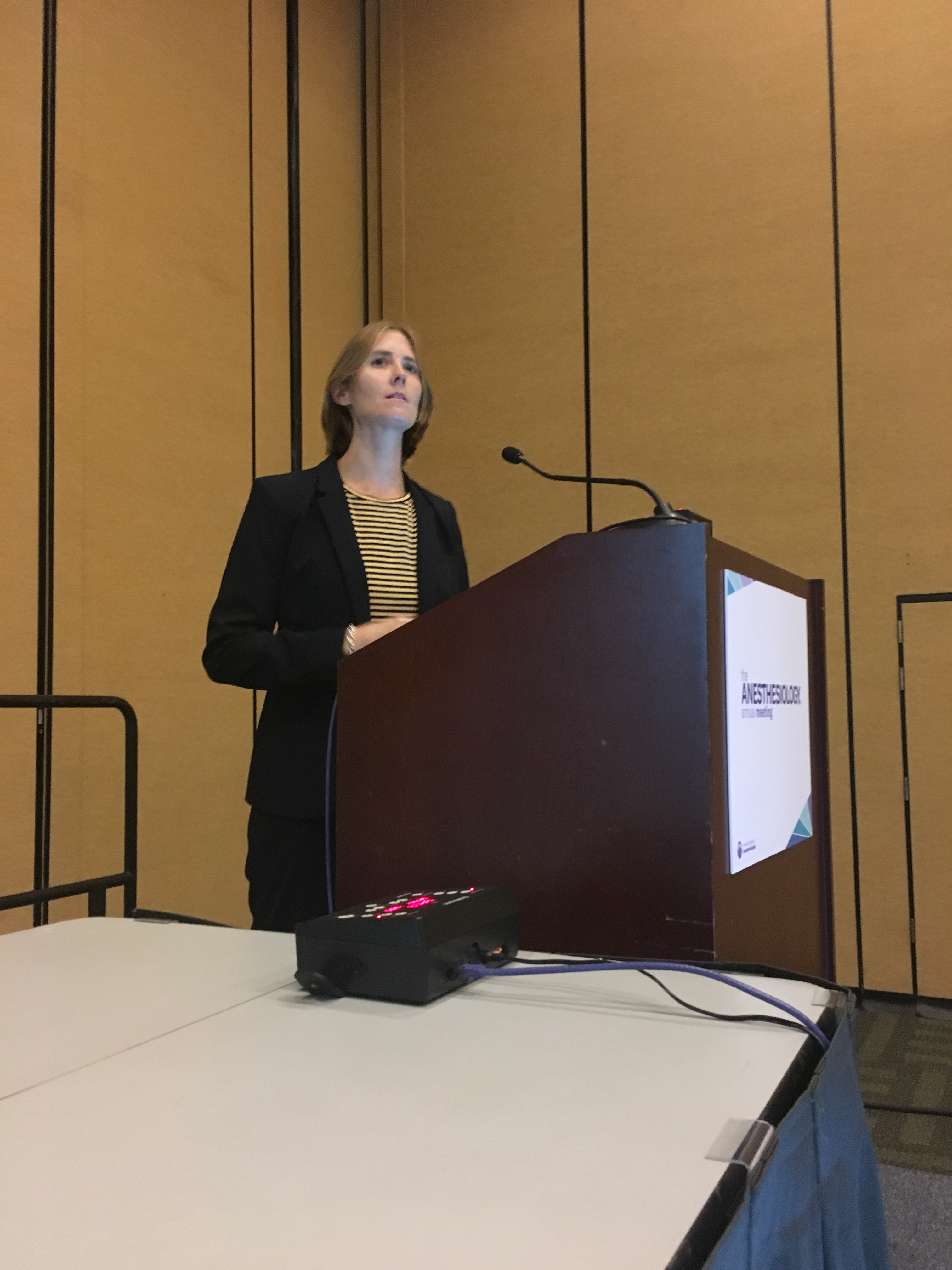 Individual interventions not enough to alleviate burnoutPhysician burnout causes a variety of physical and psychosocial symptoms that contribute to high rates of early retirement, substance abuse and suicide. Read More
Individual interventions not enough to alleviate burnoutPhysician burnout causes a variety of physical and psychosocial symptoms that contribute to high rates of early retirement, substance abuse and suicide. Read More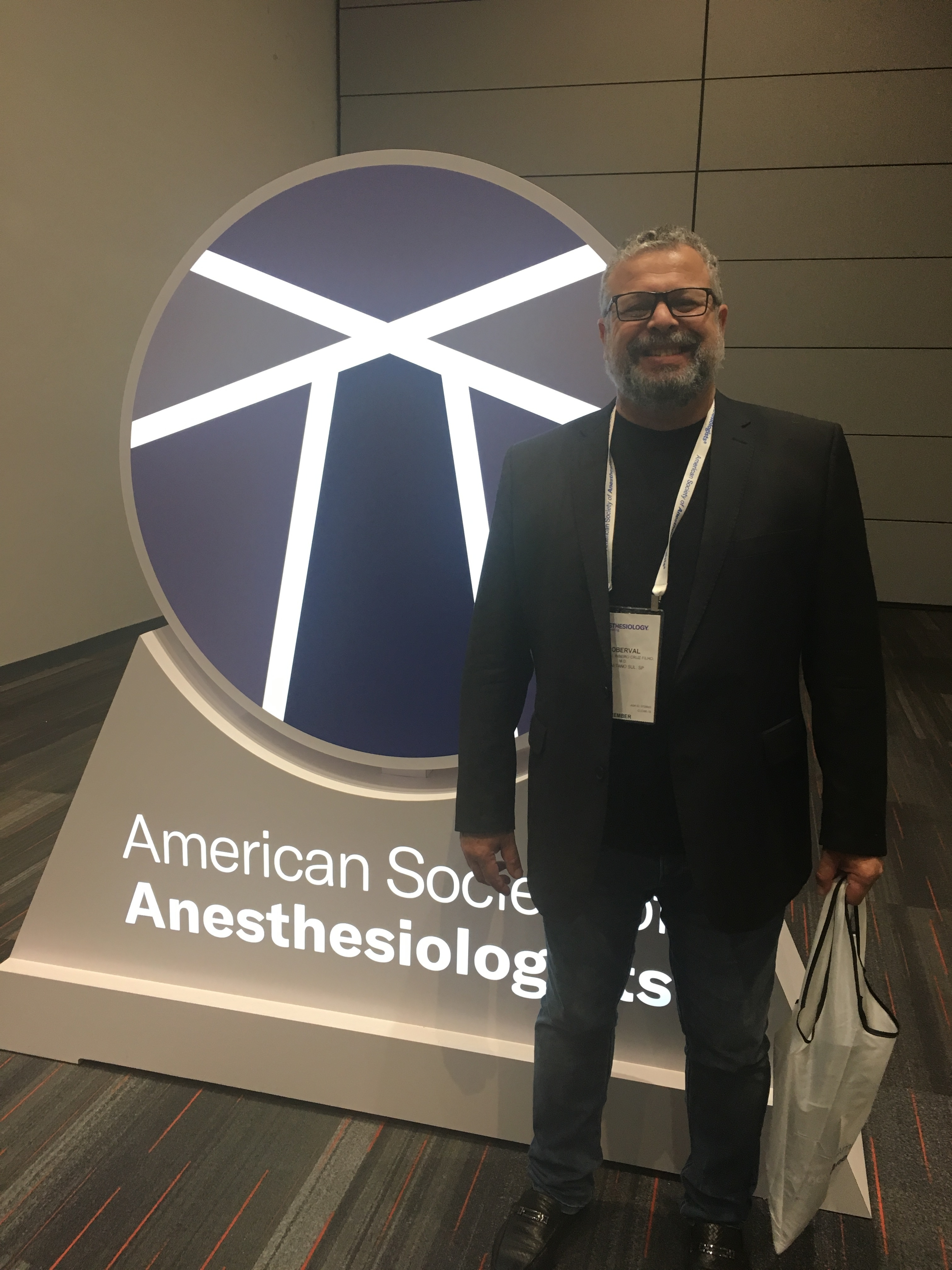 Question of the Day: What do you think of ASA’s new look?Question of the Day: What do you think of ASA’s new look?Read More
Question of the Day: What do you think of ASA’s new look?Question of the Day: What do you think of ASA’s new look?Read More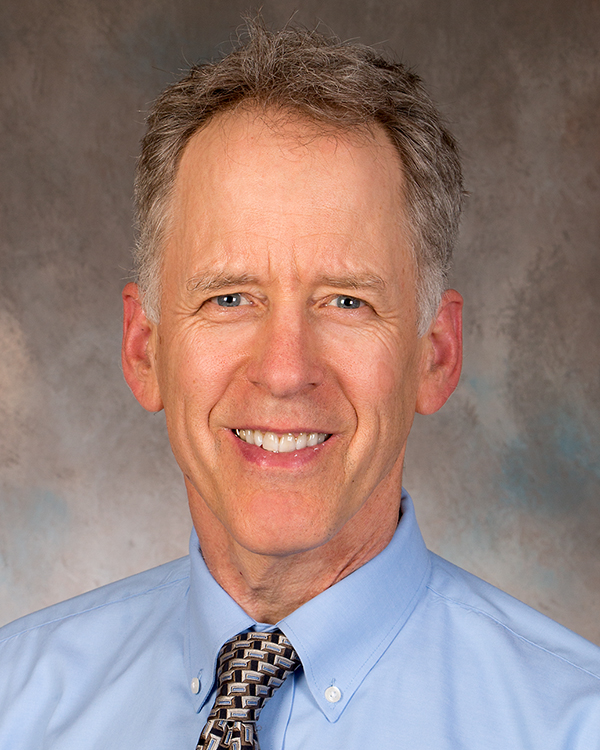 ACE and SEE live: An interactive patient safety sessionA new, fast-paced, interactive panel will now offer members a convenient way to add safety CME credits. Read More
ACE and SEE live: An interactive patient safety sessionA new, fast-paced, interactive panel will now offer members a convenient way to add safety CME credits. Read More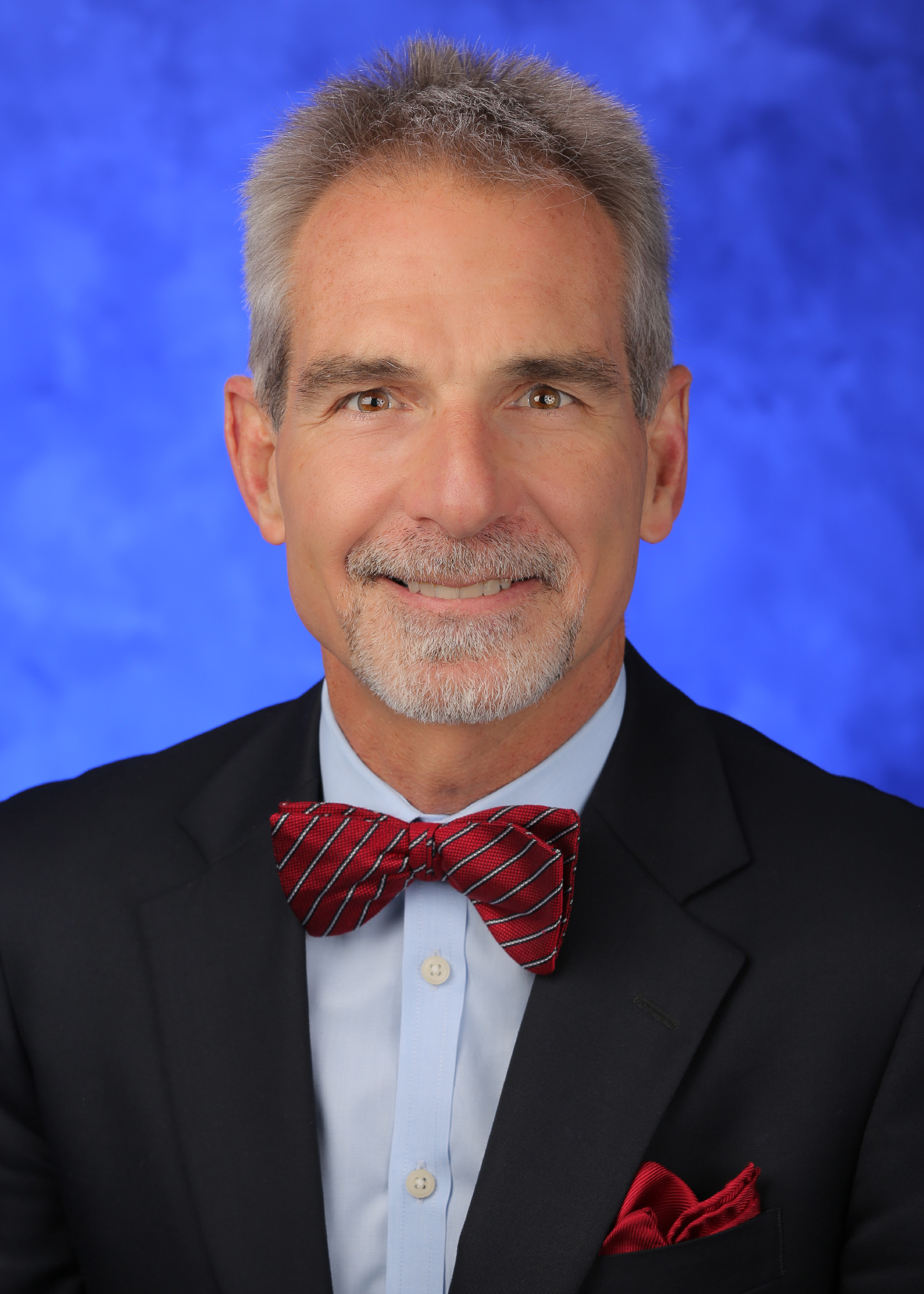 How to make leadership work in anesthesiologyBringing change and improving patient care are central to anesthesiology’s role in health care. But implementing and managing change requires leadership.Read More
How to make leadership work in anesthesiologyBringing change and improving patient care are central to anesthesiology’s role in health care. But implementing and managing change requires leadership.Read More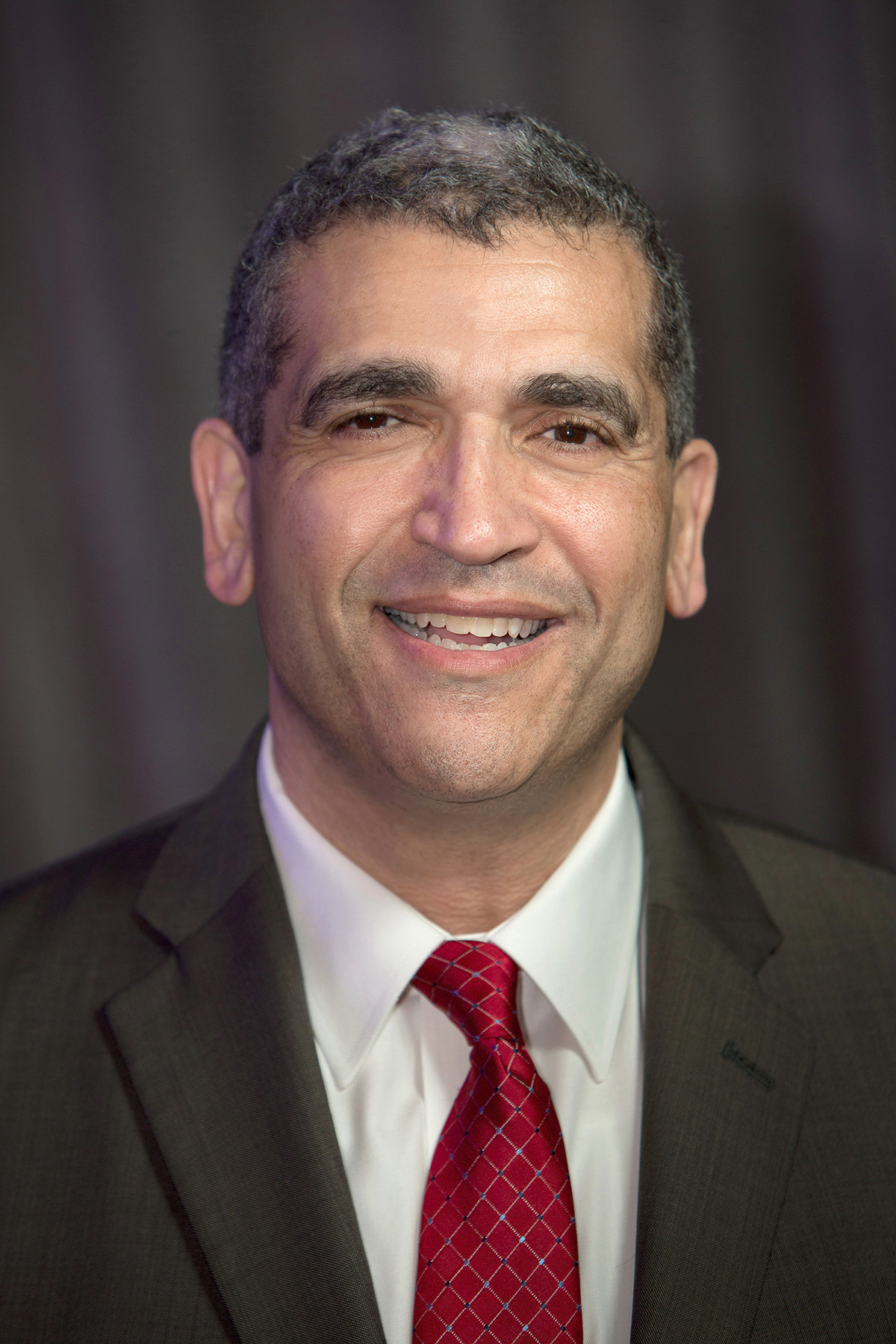 Urban legends in anesthesia economicsEvidence-based arguments refute four of the most common urban legends about anesthesiology and economics.Read More
Urban legends in anesthesia economicsEvidence-based arguments refute four of the most common urban legends about anesthesiology and economics.Read More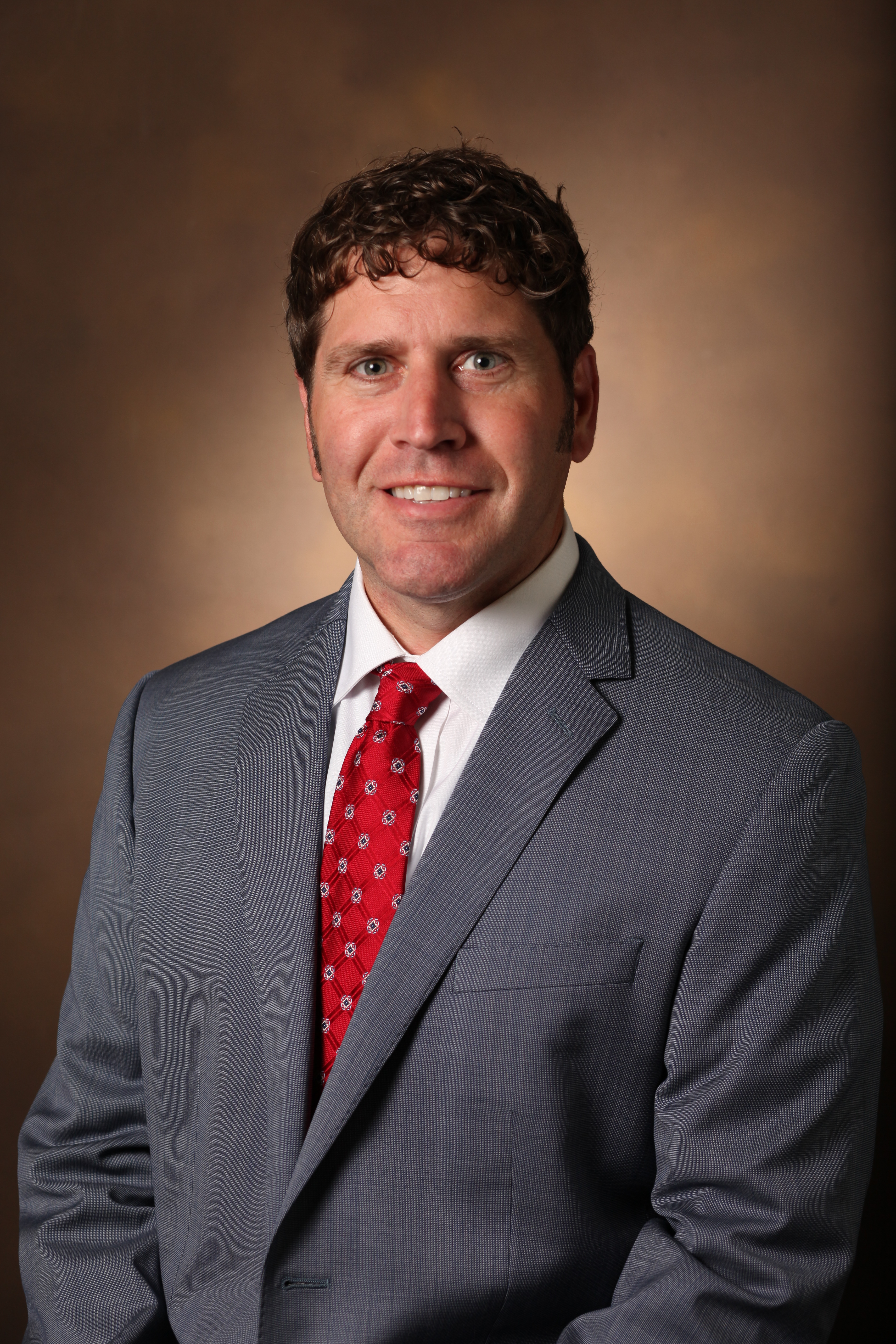 What do we know – and not know – about postoperative delirium?Postoperative delirium affects a wide range of the general surgical population and has been associated with increases in length of hospital stay, likelihood of being discharged to a rehabilitation center or nursing facility rather than home, mortality and higher cost of care.Read More
What do we know – and not know – about postoperative delirium?Postoperative delirium affects a wide range of the general surgical population and has been associated with increases in length of hospital stay, likelihood of being discharged to a rehabilitation center or nursing facility rather than home, mortality and higher cost of care.Read More
October 14, 2016
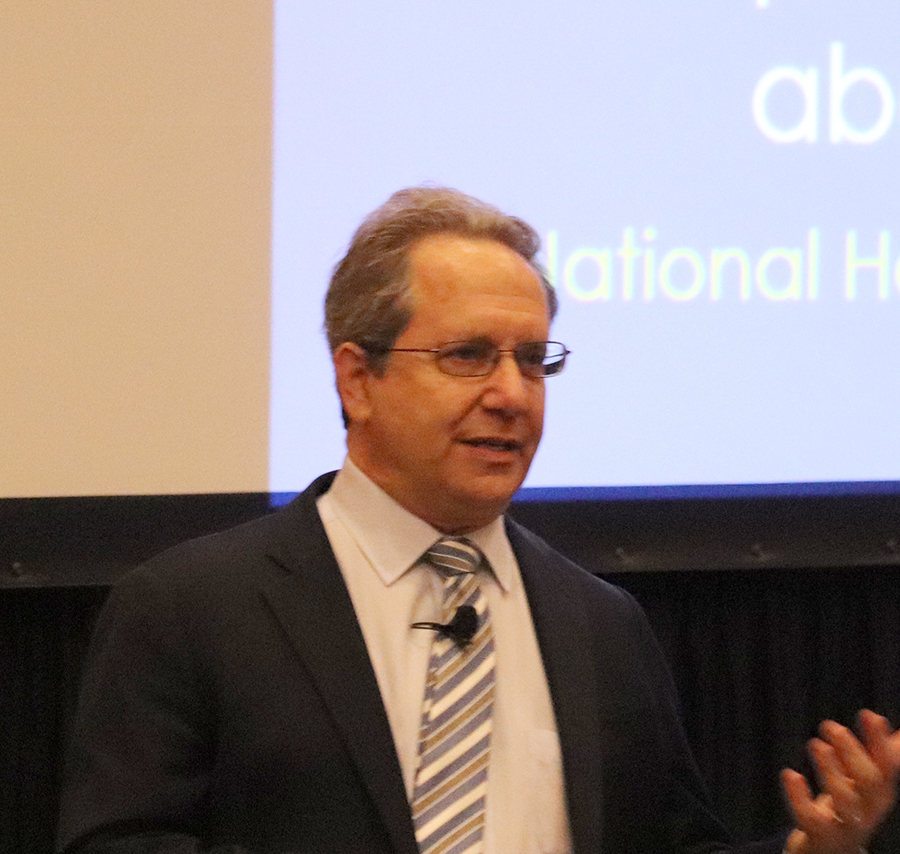 Exploring the evidence, measures to reduce surgical site infectionsSurgical site infections (SSIs) account for approximately 20 percent of all hospital-acquired infections, and nearly 60 percent of these infections are preventable. Established guidelines help reduce the rate of SSIs, but are these guidelines effective?Read More
Exploring the evidence, measures to reduce surgical site infectionsSurgical site infections (SSIs) account for approximately 20 percent of all hospital-acquired infections, and nearly 60 percent of these infections are preventable. Established guidelines help reduce the rate of SSIs, but are these guidelines effective?Read More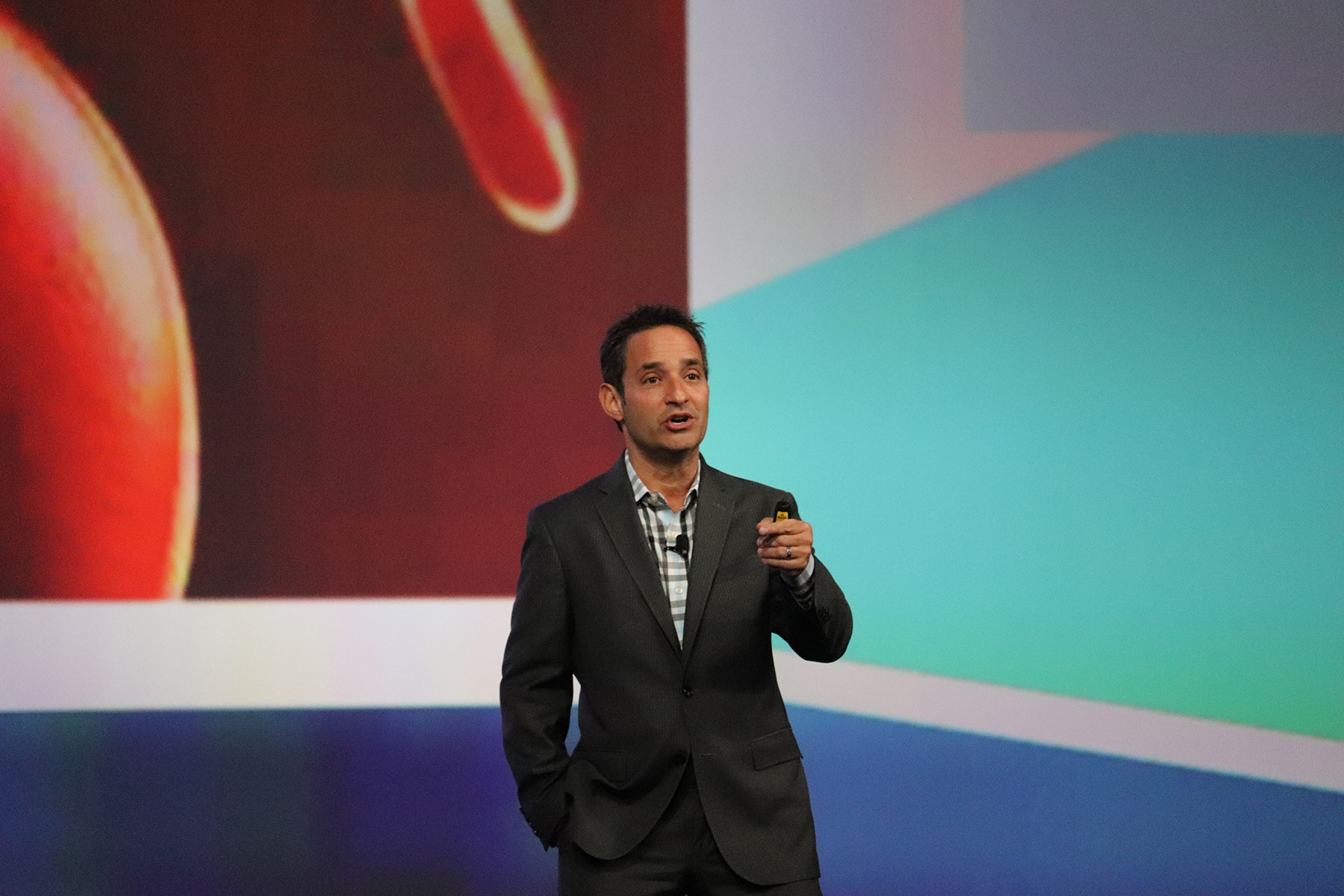 Josh Linkner inspires anesthesiologists to be innovators“Health care is in the midst of upheaval, with new technology and trends in patient care. By applying fresh and proven approaches to innovation, anesthesiologists can drive more meaningful results and adapt to changes in the field,” said best-selling author and entrepreneur Josh Linkner.Read More
Josh Linkner inspires anesthesiologists to be innovators“Health care is in the midst of upheaval, with new technology and trends in patient care. By applying fresh and proven approaches to innovation, anesthesiologists can drive more meaningful results and adapt to changes in the field,” said best-selling author and entrepreneur Josh Linkner.Read More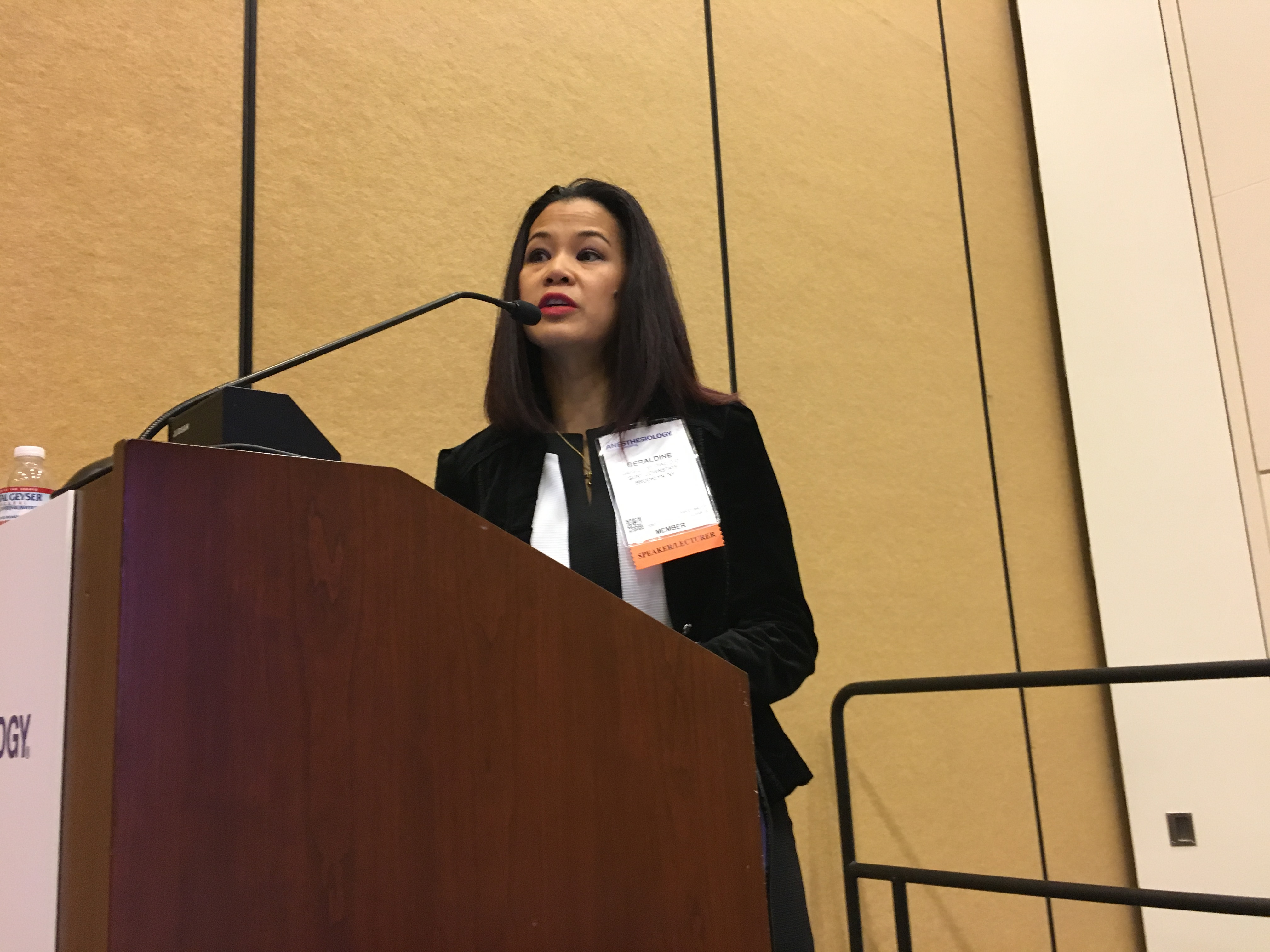 Cirrhotic patients undergoing elective surgery present unique challengesCirrhosis is on the rise in the U.S., and yet the risk of dying from the disease is less than half of what it was in 1970. Anesthesiologists will likely encounter more patients with cirrhosis presenting for elective surgery as they await a liver transplant. This may include arthroscopy, head and neck surgery, hernia repair and cardiac surgery.Read More
Cirrhotic patients undergoing elective surgery present unique challengesCirrhosis is on the rise in the U.S., and yet the risk of dying from the disease is less than half of what it was in 1970. Anesthesiologists will likely encounter more patients with cirrhosis presenting for elective surgery as they await a liver transplant. This may include arthroscopy, head and neck surgery, hernia repair and cardiac surgery.Read More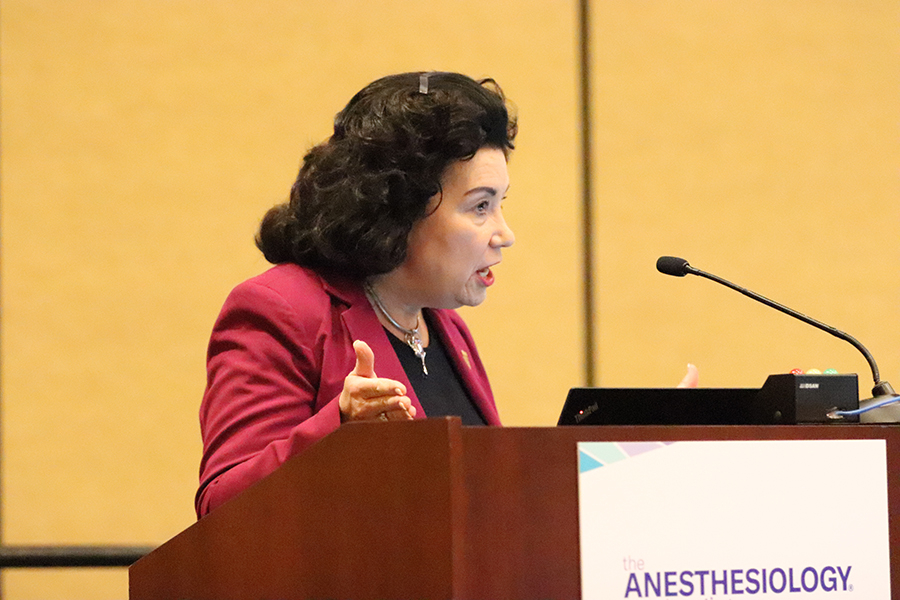 Preventing anesthesia-related complications in childrenKeeping children safe during anesthesia requires evidence-based knowledge of how to prevent, identify and manage anesthesia-related complications. Read More
Preventing anesthesia-related complications in childrenKeeping children safe during anesthesia requires evidence-based knowledge of how to prevent, identify and manage anesthesia-related complications. Read More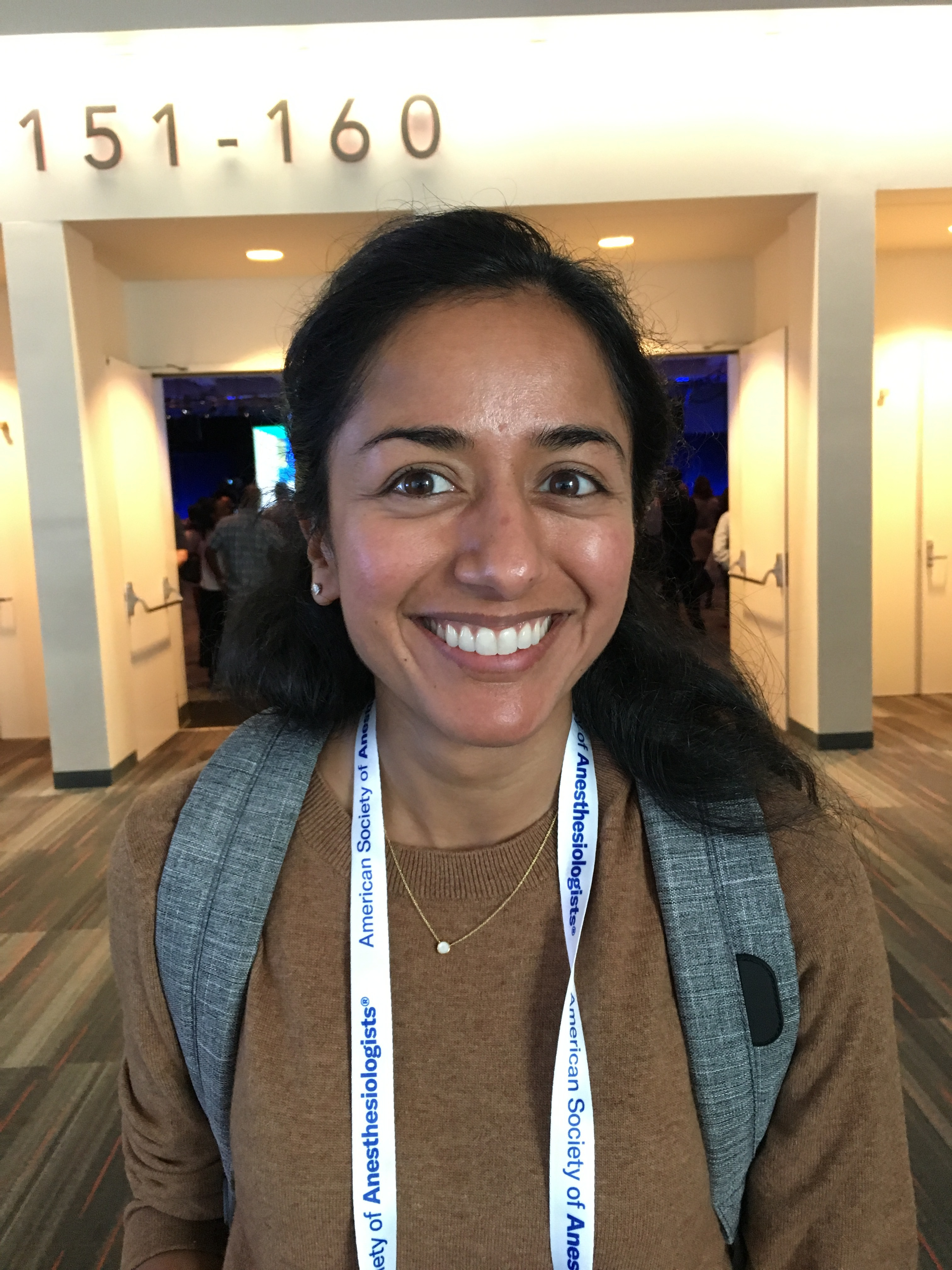 Question of the Day: How did Josh Linkner’s remarks inspire you?Question of the Day: How did Josh Linkner’s remarks inspire you?Read More
Question of the Day: How did Josh Linkner’s remarks inspire you?Question of the Day: How did Josh Linkner’s remarks inspire you?Read More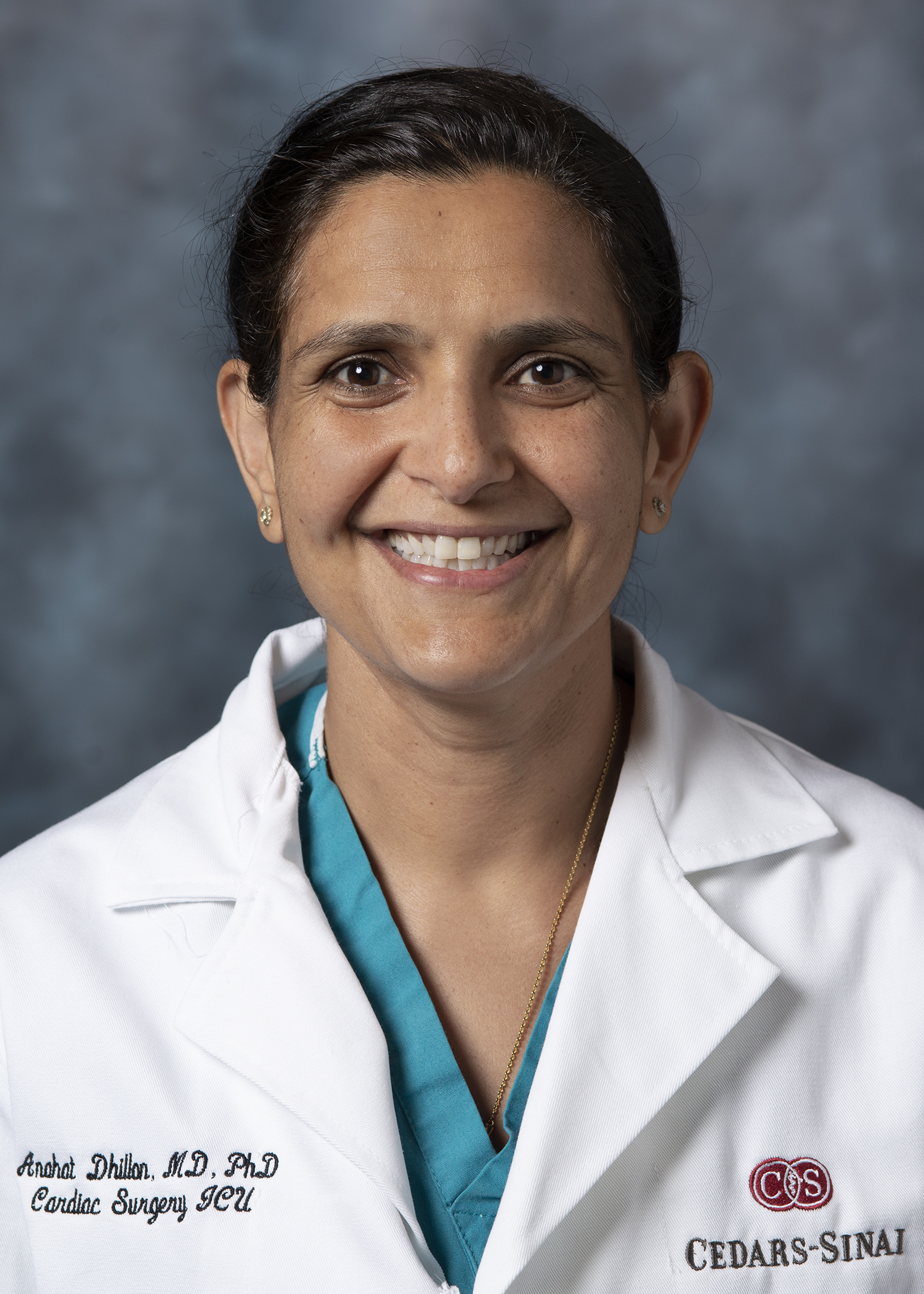 Tips to deal with angry patients…and colleaguesExploring the latest findings in the causes, manifestations and management of anger can help anesthesiologists deal with angry patients, their families and colleagues. Read More
Tips to deal with angry patients…and colleaguesExploring the latest findings in the causes, manifestations and management of anger can help anesthesiologists deal with angry patients, their families and colleagues. Read More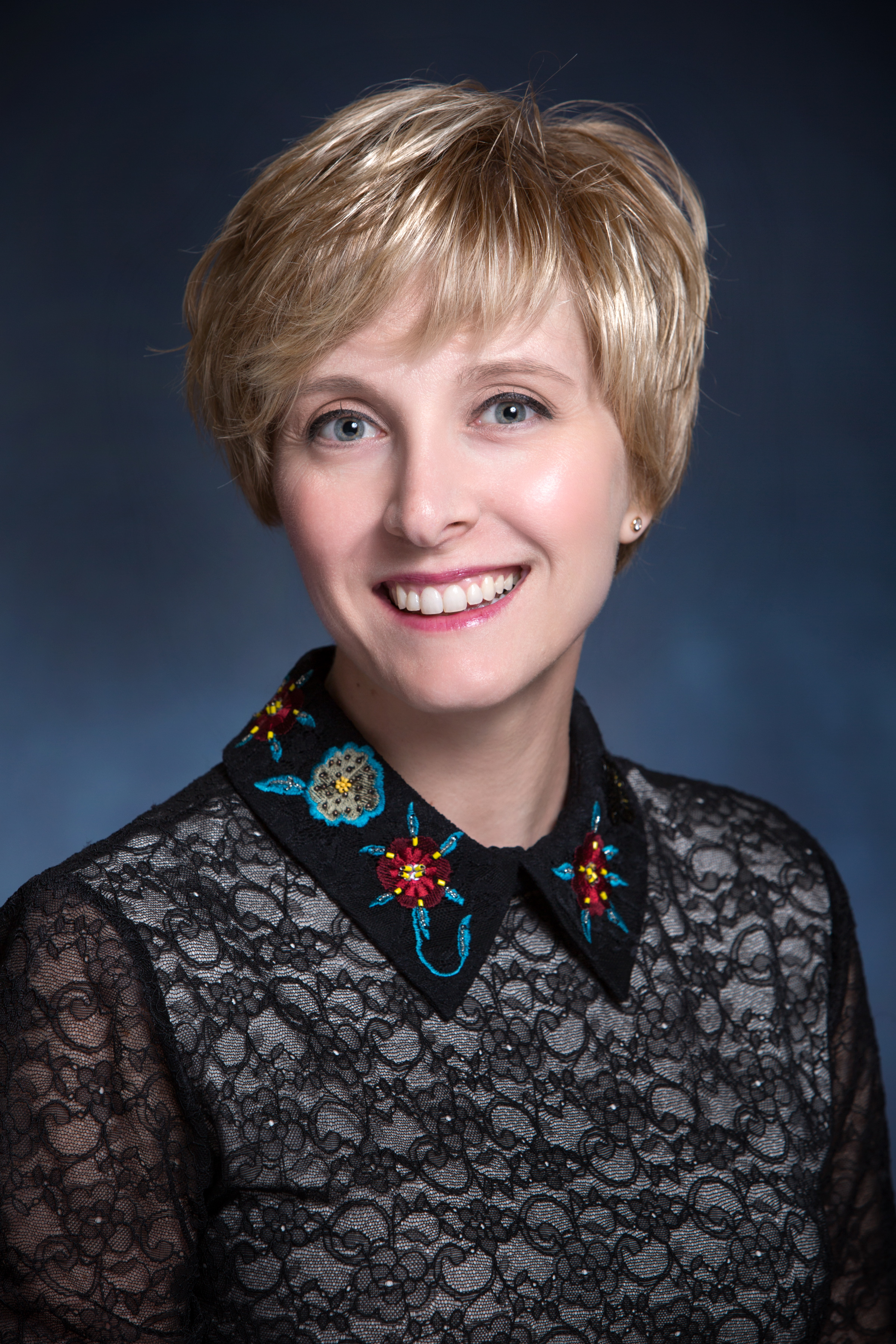 Creating a personal brandA personal brand helps professionals define and express their unique value. Monday’s session “Define Yourself! Your Brand Value in the Workplace” sets the framework for building brand awareness and credibility.Read More
Creating a personal brandA personal brand helps professionals define and express their unique value. Monday’s session “Define Yourself! Your Brand Value in the Workplace” sets the framework for building brand awareness and credibility.Read More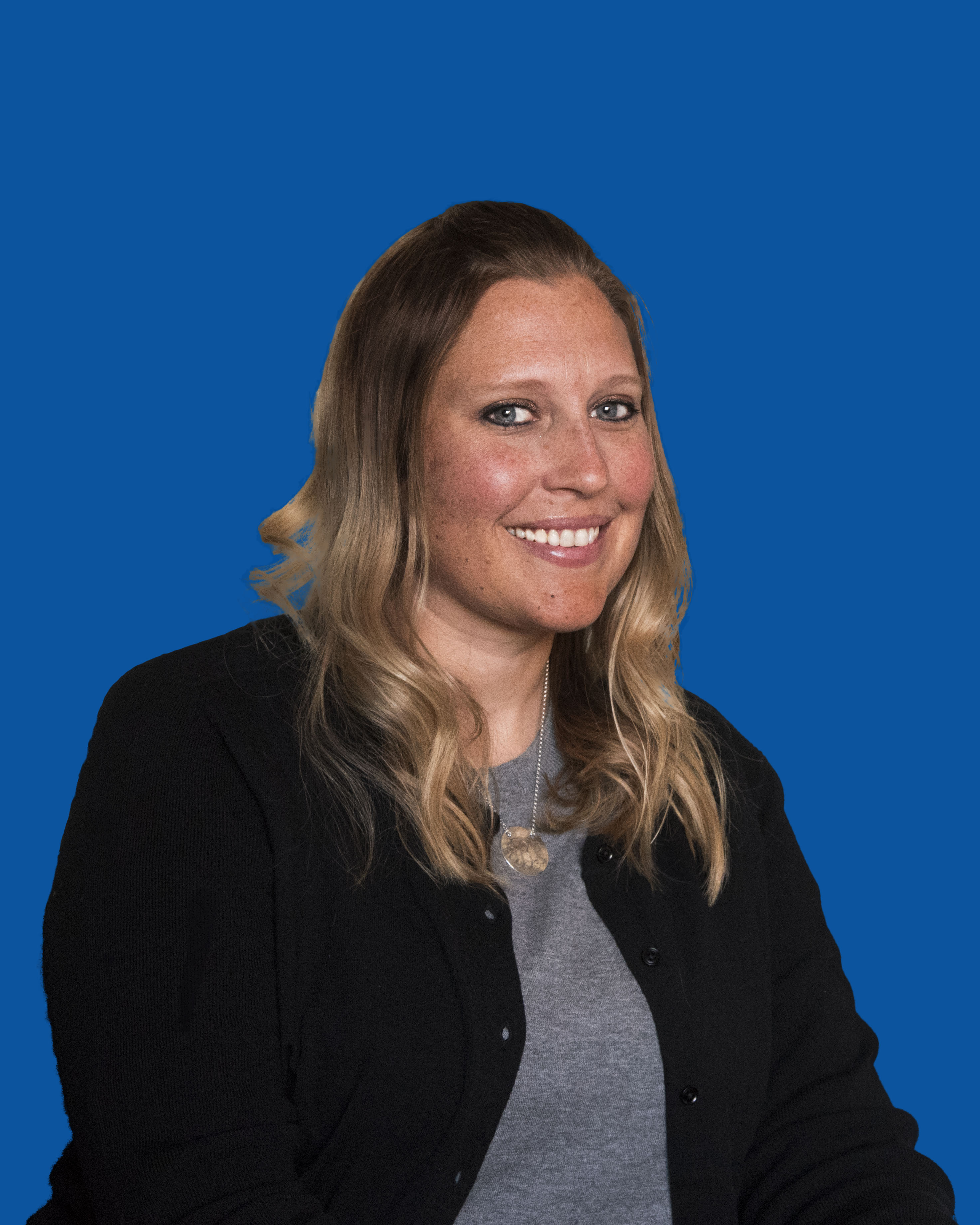 Fast-track pathways can improve outcomes in older hip fracture patientsFast-tracking older hip fracture patients using enhanced recovery protocols and Perioperative Surgical Home care models may enable improvement in morbidity, mortality, quality of life and other outcomes.Read More
Fast-track pathways can improve outcomes in older hip fracture patientsFast-tracking older hip fracture patients using enhanced recovery protocols and Perioperative Surgical Home care models may enable improvement in morbidity, mortality, quality of life and other outcomes.Read More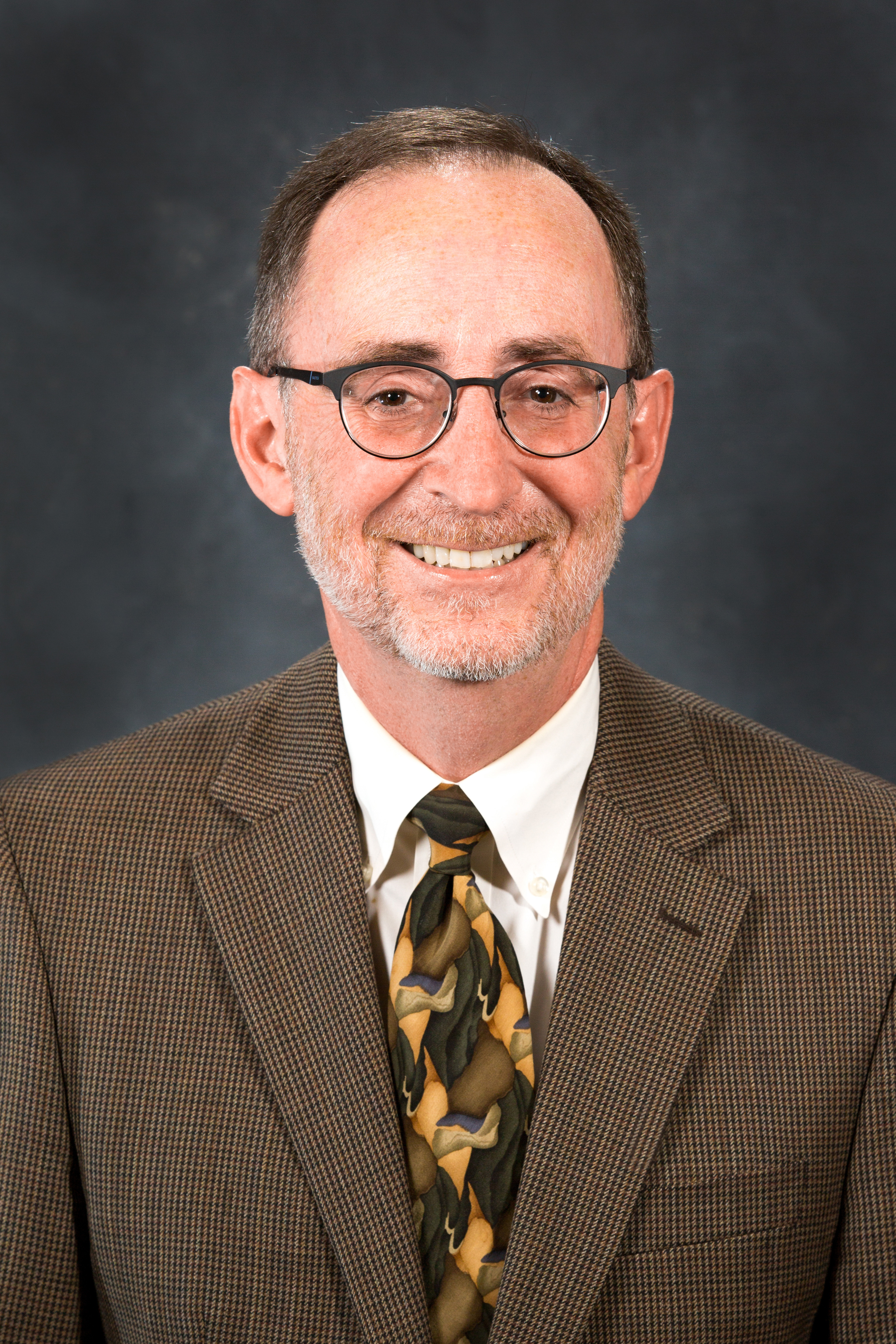 FAER-Helrich Lecture: Translating research into practiceThis year's FAER-Helrich Research Lecture spotlights translational research in anesthesiology. Read More
FAER-Helrich Lecture: Translating research into practiceThis year's FAER-Helrich Research Lecture spotlights translational research in anesthesiology. Read More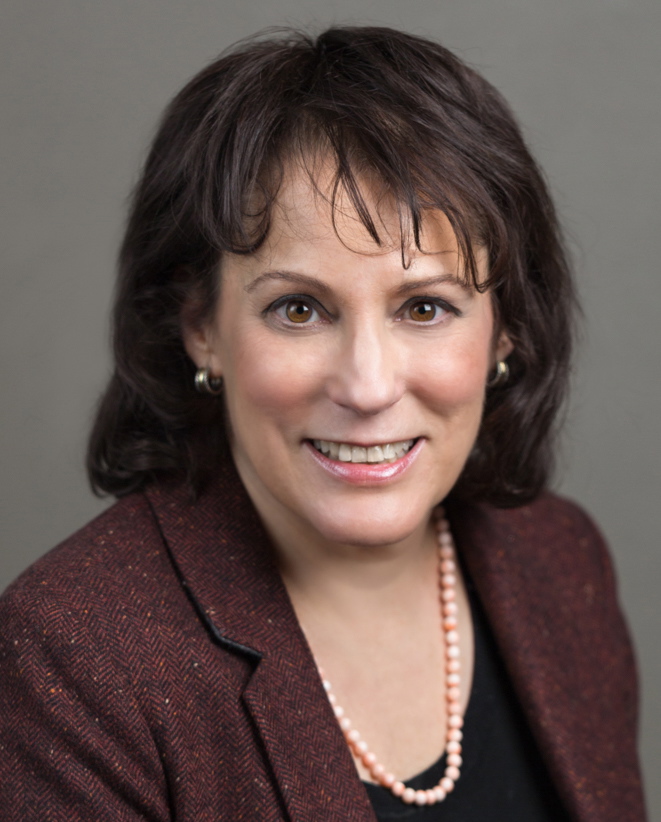 Multiple pathways lead to the topWhen it comes to stepping into the top leadership role in state anesthesiology associations, one path does not fit all. There are many different paths to the top.Read More
Multiple pathways lead to the topWhen it comes to stepping into the top leadership role in state anesthesiology associations, one path does not fit all. There are many different paths to the top.Read More
October 13, 2016
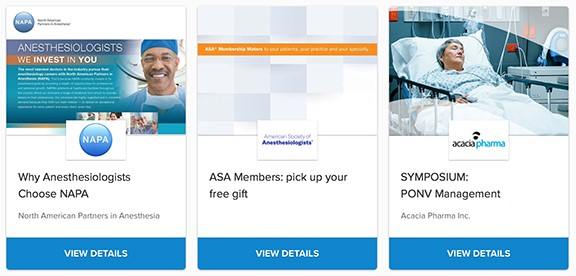 Exciting events and opportunities are a click away with Virtual Event BagAs you arrive in San Francisco for ANESTHESIOLOGY 2018, be sure to check out our first-ever Virtual Event Bag. Read More
Exciting events and opportunities are a click away with Virtual Event BagAs you arrive in San Francisco for ANESTHESIOLOGY 2018, be sure to check out our first-ever Virtual Event Bag. Read More Question of the Day: What are you most looking forward to during ANESTHESIOLOGY 2018?Question of the Day: What are you most looking forward to during ANESTHESIOLOGY 2018?Read More
Question of the Day: What are you most looking forward to during ANESTHESIOLOGY 2018?Question of the Day: What are you most looking forward to during ANESTHESIOLOGY 2018?Read More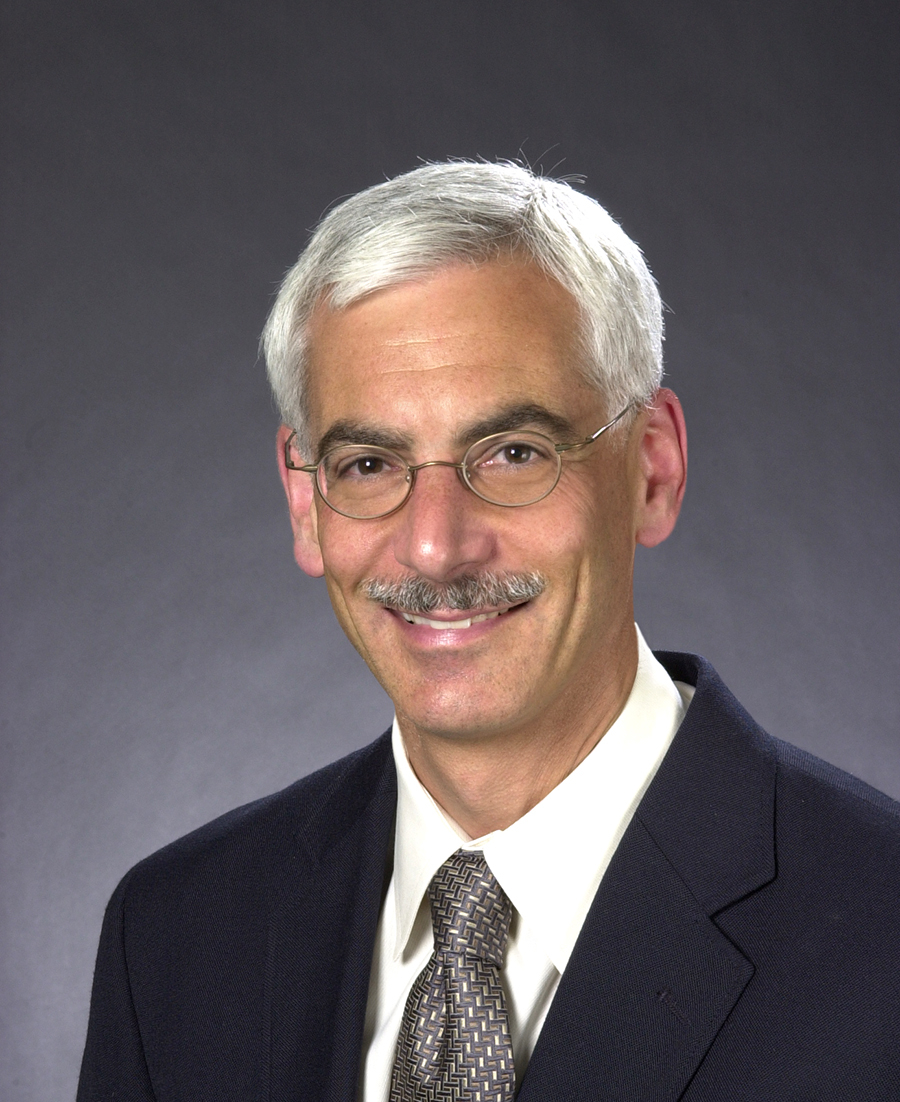 Pierce lecture honors patient safety movementRobert A. Caplan, M.D., will lead this year’s honorary ASA/APSF Ellison C. (Jeep) Pierce, Jr., Patient Safety Memorial Lecture “Sharpening the Vision to Do No Harm.” Read More
Pierce lecture honors patient safety movementRobert A. Caplan, M.D., will lead this year’s honorary ASA/APSF Ellison C. (Jeep) Pierce, Jr., Patient Safety Memorial Lecture “Sharpening the Vision to Do No Harm.” Read More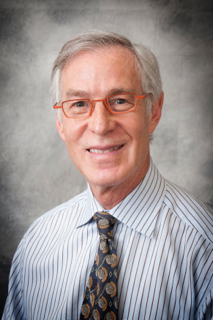 Evaluate risk and strategize to reduce the need for reintubationReintubation is required relatively infrequently for most adult patients. However, certain surgical procedures and medical conditions can significantly increase the probability of reintubation. Read More
Evaluate risk and strategize to reduce the need for reintubationReintubation is required relatively infrequently for most adult patients. However, certain surgical procedures and medical conditions can significantly increase the probability of reintubation. Read More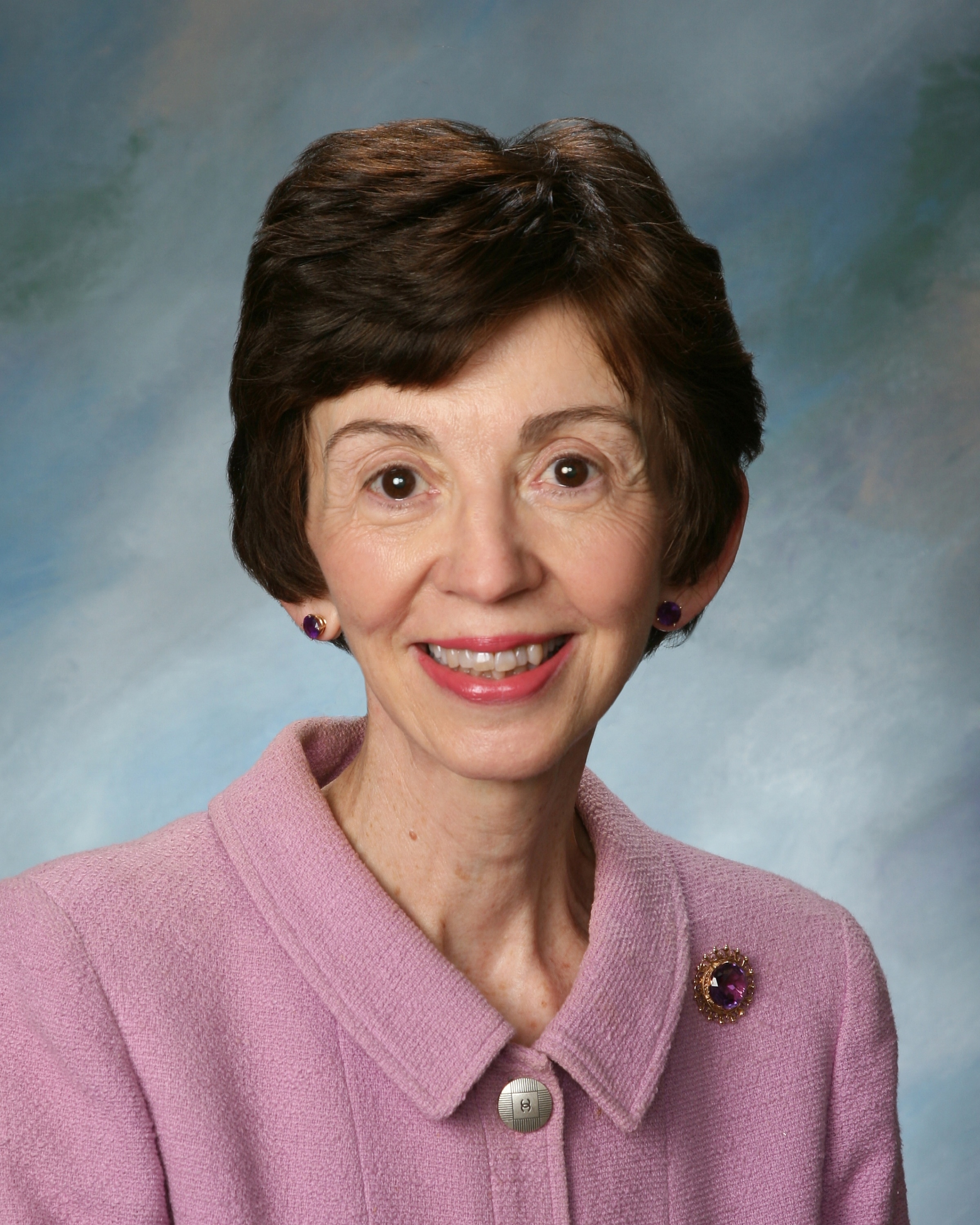 The evolution of airway managementThe success of airway management has as much to do with our willingness to turn scientific advances into medical practice as it does on medical research and development. Read More
The evolution of airway managementThe success of airway management has as much to do with our willingness to turn scientific advances into medical practice as it does on medical research and development. Read More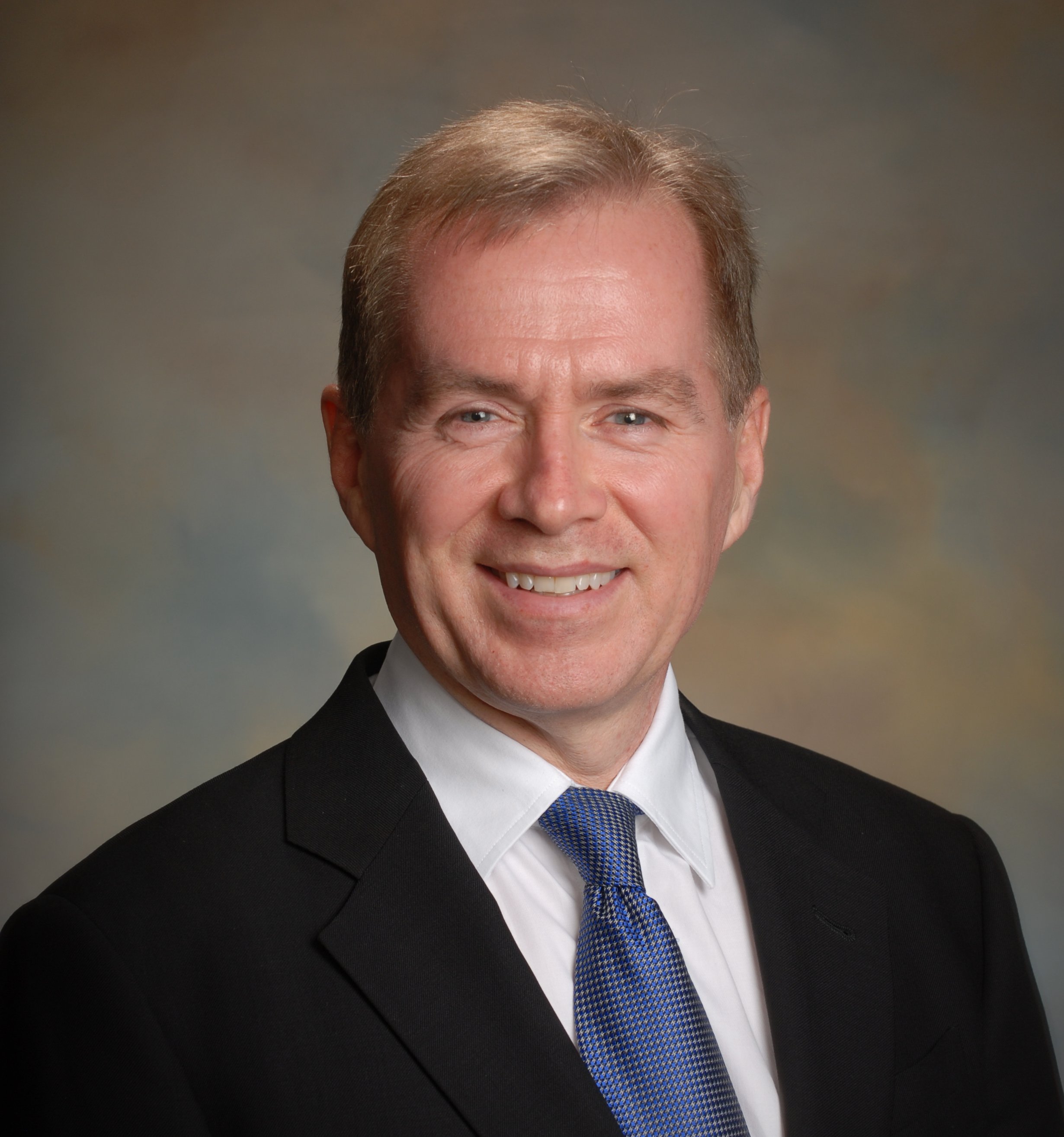 Promoting brain health before, during and after surgeryPatients 65 and older undergoing surgery are at increased risk for developing perioperative neurocognitive disorders, including postoperative delirium (POD), with detrimental effects on their recovery. Read More
Promoting brain health before, during and after surgeryPatients 65 and older undergoing surgery are at increased risk for developing perioperative neurocognitive disorders, including postoperative delirium (POD), with detrimental effects on their recovery. Read More Supporting physician mental health with prevention protocolsSuicide among anesthesiologists is a major issue in this country. Male anesthesiologists are at high risk of death by suicide, potentially higher than any other physician cohort. Read More
Supporting physician mental health with prevention protocolsSuicide among anesthesiologists is a major issue in this country. Male anesthesiologists are at high risk of death by suicide, potentially higher than any other physician cohort. Read More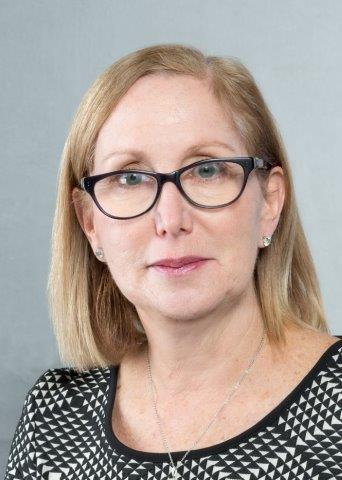 First look at new Snap Talk formatASA will unveil Snap Talks, a new lecture format that provides a quick look at the most important elements of five different topics. Read More
First look at new Snap Talk formatASA will unveil Snap Talks, a new lecture format that provides a quick look at the most important elements of five different topics. Read More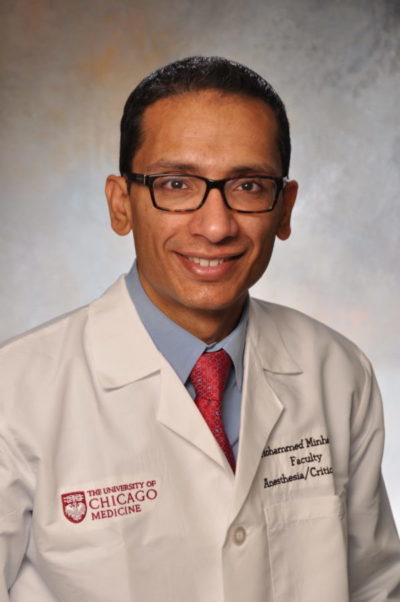 The path toward leadership in anesthesiologyGiven the unique nature of anesthesiology as a specialty, anesthesiologists are well-positioned to make contributions as physician-executives in health care systems, private industry and public service.Read More
The path toward leadership in anesthesiologyGiven the unique nature of anesthesiology as a specialty, anesthesiologists are well-positioned to make contributions as physician-executives in health care systems, private industry and public service.Read More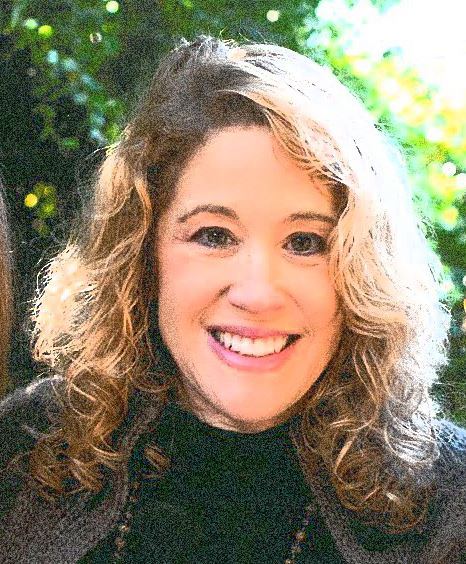 Entrepreneur anesthesiologists pitch their productsEntrepreneurial anesthesiologists will have the opportunity to pitch their best innovative, medical device and drug product ideas during “Swimming with Sharks: How Anesthesiologist Inventors Can Move Their Ideas Forward.” Read More
Entrepreneur anesthesiologists pitch their productsEntrepreneurial anesthesiologists will have the opportunity to pitch their best innovative, medical device and drug product ideas during “Swimming with Sharks: How Anesthesiologist Inventors Can Move Their Ideas Forward.” Read More
October 12, 2016
 Welcome to ANESTHESIOLOGY® 2018!Stay in touch during ANESTHESIOLOGY® 2018 with the ASA Daily News.Read More
Welcome to ANESTHESIOLOGY® 2018!Stay in touch during ANESTHESIOLOGY® 2018 with the ASA Daily News.Read More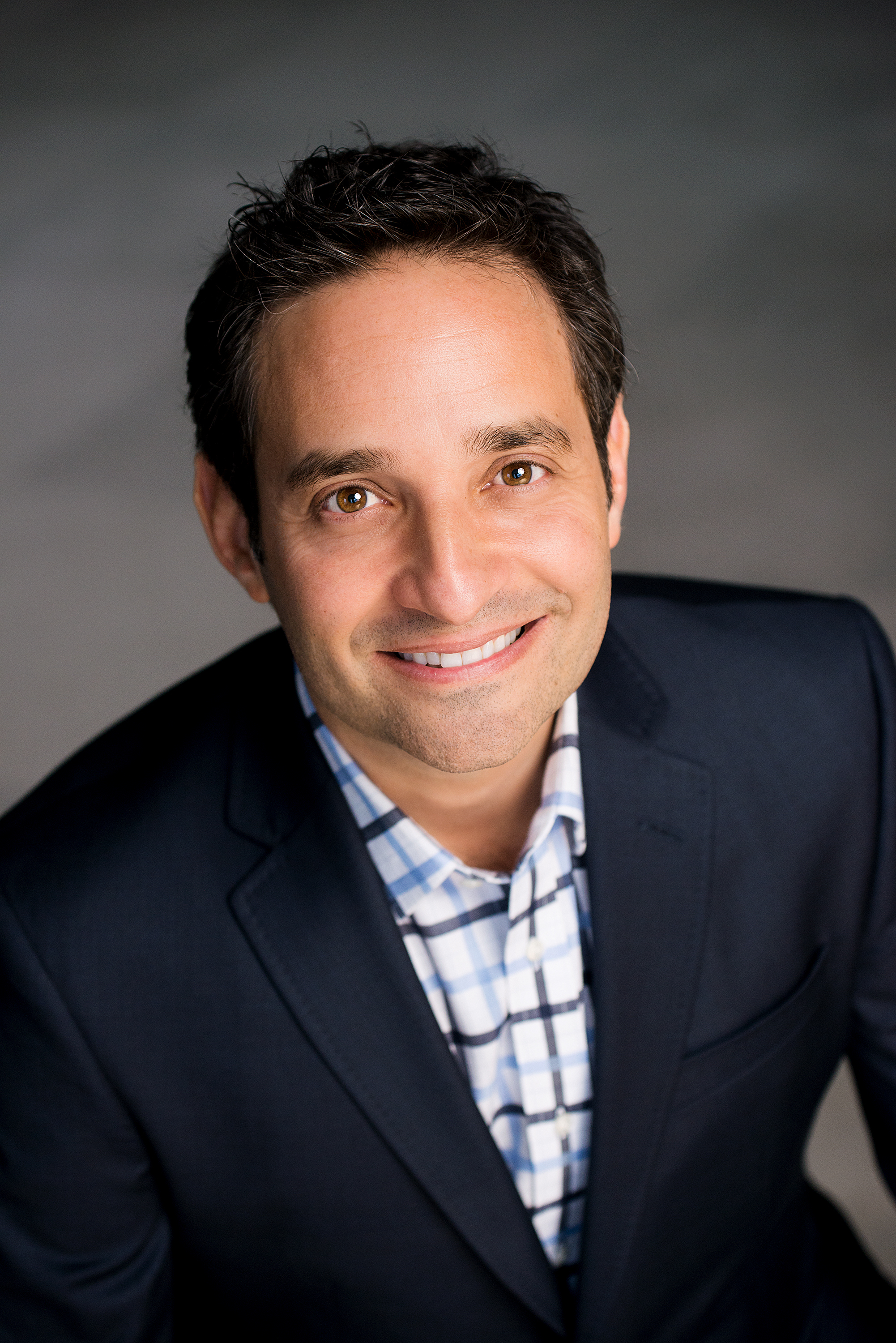 Keynote speaker Josh Linkner to deliver powerful call to actionOpening Session speaker Joh Linkner discusses the role physician anesthesiologists can play in disrupting the health care environment. Read More
Keynote speaker Josh Linkner to deliver powerful call to actionOpening Session speaker Joh Linkner discusses the role physician anesthesiologists can play in disrupting the health care environment. Read More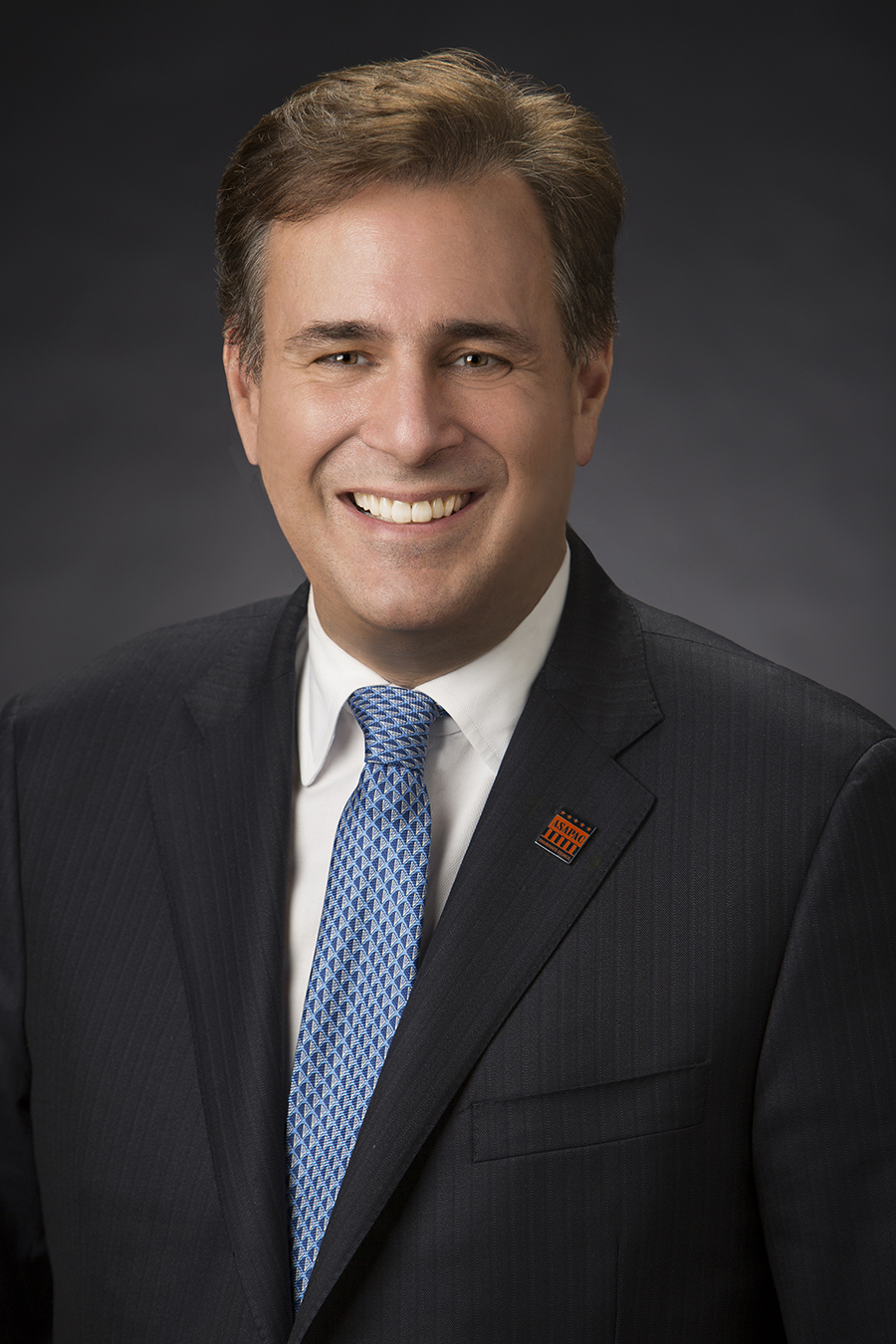 ASA leads charge to address drug shortage crisisA shortage of injectable opioids and local anesthetics is one of the most urgent challenges facing ASA members today.Read More
ASA leads charge to address drug shortage crisisA shortage of injectable opioids and local anesthetics is one of the most urgent challenges facing ASA members today.Read More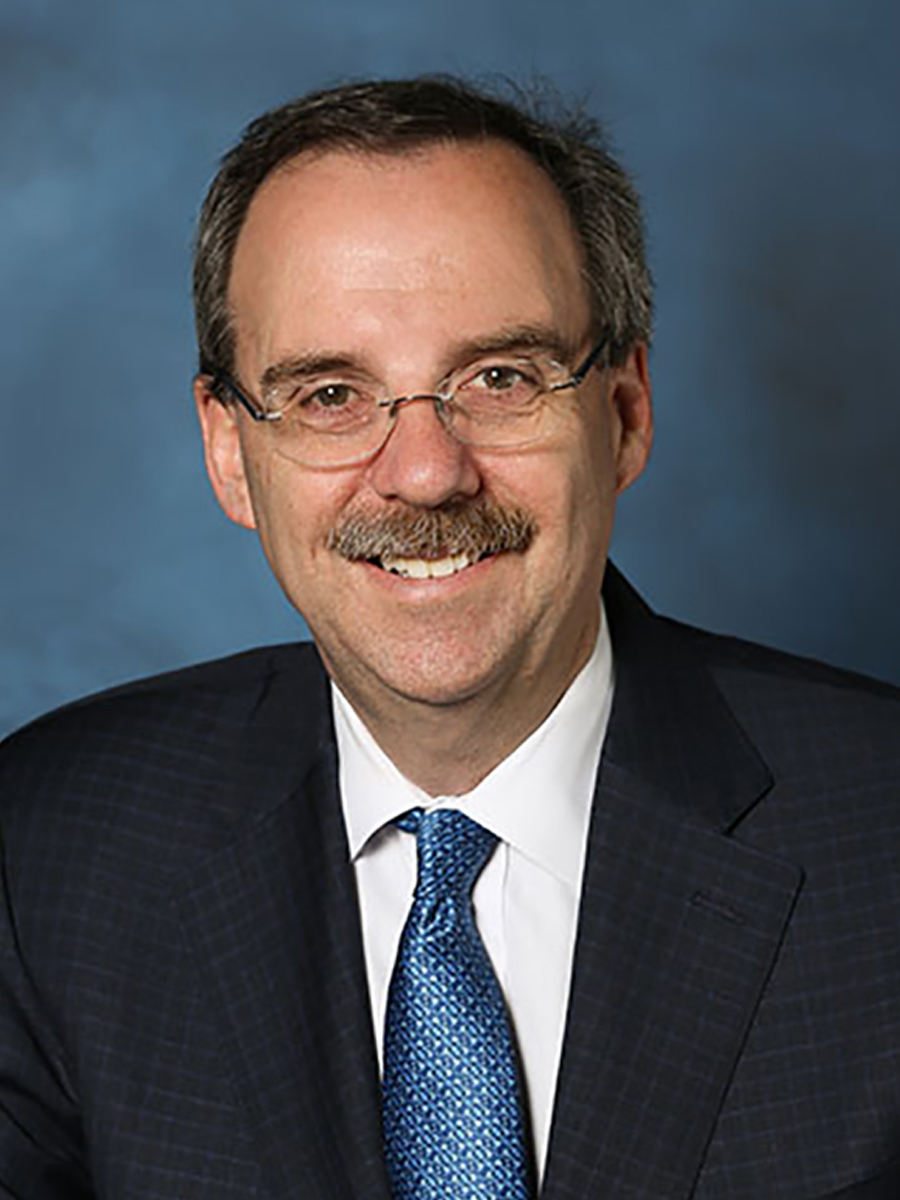 A meeting of the mindsASA and AARP have joined forces to improve the brain health of older patients undergoing surgery. The two hosted the Perioperative Brain Health Initiative Summit: Innovations to Promote Brain Health Before, During and After Surgery in June to discuss the science and prevention of perioperative neurocognitive disorders (PND). Read More
A meeting of the mindsASA and AARP have joined forces to improve the brain health of older patients undergoing surgery. The two hosted the Perioperative Brain Health Initiative Summit: Innovations to Promote Brain Health Before, During and After Surgery in June to discuss the science and prevention of perioperative neurocognitive disorders (PND). Read More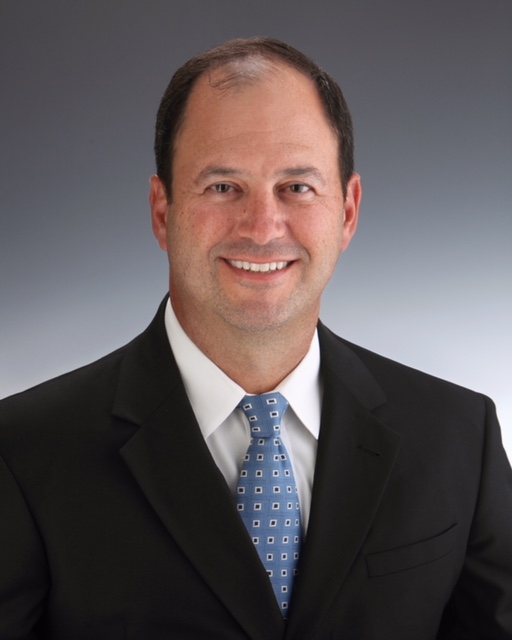 Blazing the PSH trailThe PSH is a patient-centric, team-based model of care created by ASA to help meet the demands of a rapidly approaching health care paradigm that will emphasize gratified providers, improved population health, reduced care costs and satisfied patients. Read More
Blazing the PSH trailThe PSH is a patient-centric, team-based model of care created by ASA to help meet the demands of a rapidly approaching health care paradigm that will emphasize gratified providers, improved population health, reduced care costs and satisfied patients. Read More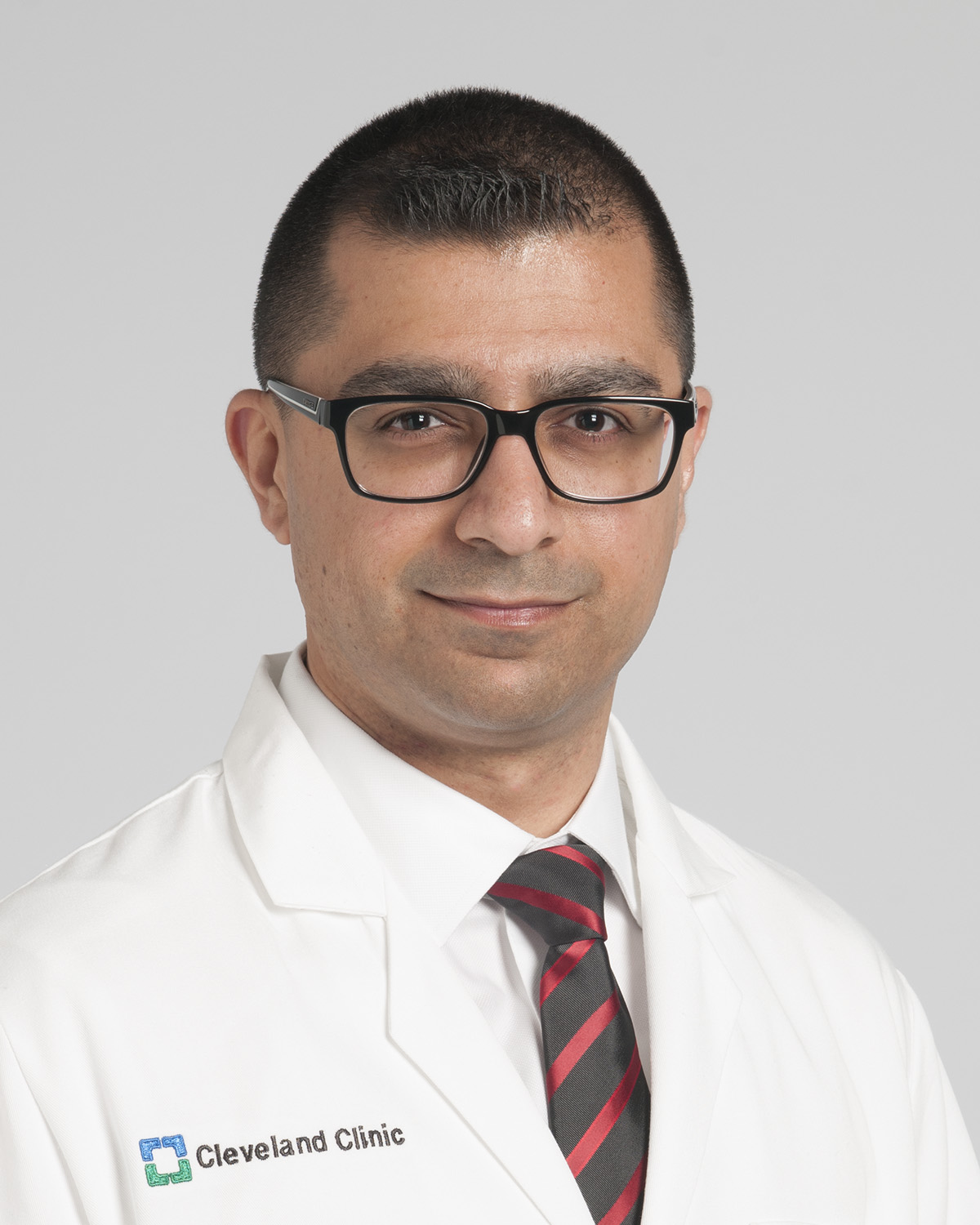 Hypotension: Training for improved postoperative careTo raise awareness of intraoperative hypotension, ANESTHESIOLOGY 2018 features a virtual patient safety module that gives attendees a self-directed learning opportunity to navigate three scenarios of hypotension — preoperatively, intraoperatively and postoperatively.Read More
Hypotension: Training for improved postoperative careTo raise awareness of intraoperative hypotension, ANESTHESIOLOGY 2018 features a virtual patient safety module that gives attendees a self-directed learning opportunity to navigate three scenarios of hypotension — preoperatively, intraoperatively and postoperatively.Read More- Learn how to react in a mass casualty situation at your institutionANESTHESIOLOGY® 2018 will feature two live demonstrations to train clinicians how to react in a mass casualty situation.Read More
- Enhance your skills and compete for daily prizes at the Simul8 ChallengeThe Simul8 Challenge invites attendees to compete in video games to increase their skills and knowledge. Read More
 Supporting ASA-related foundations positively impacts the specialty at largeASA supports several organizations that align with its mission to advance the practice and secure the future of anesthesiology. Read More
Supporting ASA-related foundations positively impacts the specialty at largeASA supports several organizations that align with its mission to advance the practice and secure the future of anesthesiology. Read More
June, 2016
- Registration is now open …Register NowRead More
- ASA makes travel planning simplePlan your trip to San FranciscoRead More
- Kick off the ANESTHESIOLOGY™ 2013 annual meeting with the Opening SessionOpening SessionRead More
- New workshops added to the ANESTHESIOLOGY™ 2013 annual meetingEducational workshopsRead More
- Earn up to 42 AMA PRA Category 1 Credits™CME eventsRead More
- The ANESTHESIOLOGY™ 2013 annual meeting is a global meeting of the mindsInternational servicesRead More
- Special events and lectures you can’t missSpecial events and lecturesRead More
- What’s new at the ANESTHESIOLOGY™ 2013 annual meeting?What’s newRead More
- ASA Resource Center: Your one-stop shop at the ANESTHESIOLOGY™ 2013 annual meetingResource CenterRead More
- Take advantage of the ASA Career ConnectionCareer ConnectionRead More
July, 2016
- Registration is now open …Register NowRead More
- Travel to the ANESTHESIOLOGY™ 2013 annual meeting with easeHousing and TravelRead More
- Kick off the meeting with the Opening SessionOpening SessionRead More
- Hands-on workshopsHands-On WorkshopsRead More
- International panelsInternational PanelsRead More
- New to the meetingNew to the Meeting Read More
- ASA Resource Center: your one-stop shop at the ANESTHESIOLOGY™ 2013 annual meetingASA Resource CenterRead More
- Take advantage of the ASA Career ConnectionCareer ConnectionRead More
- See San Francisco at its bestSan Francisco Tours and HotspotsRead More
August, 2016
- The ANESTHESIOLOGY™ 2013 annual meeting is quickly approaching — register and plan nowRegister TodayRead More
- Get current with more than 700 engaging, in-depth sessions focused on anesthesiologyBuild Your Meeting AgendaRead More
- What’s hot at the ANESTHESIOLOGY™ 2013 annual meeting?Patient Safety SessionsRead More
- Problem-Based Learning DiscussionsProblem-Based Learning DiscussionsRead More
- Make your next big move: ASA Career ConnectionASA Career ConnectionRead More
- ASA Run for the Warriors®ASA Run for the Warriors®Read More
- Experience San Francisco!Experience San FranciscoRead More
- ASA Run for the Warriors®ASA Run for the Warriors®Read More
ASA Preview, 2016
- The ANESTHESIOLOGY 2013 annual meeting is right around the corner – just three days left to save!The ANESTHESIOLOGY™ 2013 annual meeting is right around the cornerRead More
- Hands-on training on a variety of cutting-edge topics in anesthesiologyHands-on training on a variety of cutting-edge topicsRead More
- Meet and greet colleagues and the ASA leadershipMeet and greet colleagues and the ASA leadershipRead More
- ASA takes you to the cloudASA takes you to the cloudRead More
- ASA Resource Center: The nerve center at the ANESTHESIOLOGY™ Annual MeetingASA Resource Center: The nerve center at the annual meetingRead More
- ASA extends a warm welcome to global attendeesASA extends a warm welcome to global attendeesRead More
- Top 5 must do’s while in San FranciscoTop 5 must do’s while in San FranciscoRead More
- The ANESTHESIOLOGY™ 2013 annual meeting is quickly approaching — register and plan nowRegister TodayRead More
- Get current with more than 700 engaging, in-depth sessions focused on anesthesiologyBuild Your Meeting AgendaRead More
- What’s hot at the ANESTHESIOLOGY™ 2013 annual meeting?Patient Safety SessionsRead More
ANESTHESIOLOGY 2020 Daily, 2016
 Anesthesiologists must step out and step up to leadNow is time for anesthesiologists to lead the way to gender equity and patient safety. Not despite all of the disruptions that have occurred in 2020, but because of them. “The pandemic is an example of what broad disruption looks like. It has changed our lives,” said Joanne M. Conroy, MD, President and CEO of Dartmouth-Hitchcock and Dartmouth-Hitchcock Health, during yesterday’s Rovenstine Lecture.Read More
Anesthesiologists must step out and step up to leadNow is time for anesthesiologists to lead the way to gender equity and patient safety. Not despite all of the disruptions that have occurred in 2020, but because of them. “The pandemic is an example of what broad disruption looks like. It has changed our lives,” said Joanne M. Conroy, MD, President and CEO of Dartmouth-Hitchcock and Dartmouth-Hitchcock Health, during yesterday’s Rovenstine Lecture.Read More Reducing the risk of neurocognitive disorders associated with postoperative complicationsIn yesterday’s John W. Severinghaus Lecture on Translational Science, Beverley Orser, MD, PhD, FRCPC, FRSC, of the University of Toronto, encouraged anesthesiologists to reset their sights on long-term outcomes. It’s her answer to the question of how we, as anesthesiologists, can achieve our full potential.Read More
Reducing the risk of neurocognitive disorders associated with postoperative complicationsIn yesterday’s John W. Severinghaus Lecture on Translational Science, Beverley Orser, MD, PhD, FRCPC, FRSC, of the University of Toronto, encouraged anesthesiologists to reset their sights on long-term outcomes. It’s her answer to the question of how we, as anesthesiologists, can achieve our full potential.Read More Welcome to Day 4 of ANESTHESIOLOGY 2020It’s the last day of ANESTHESIOLOGY 2020, but a full day of educational panels, Corporate Partner sessions, networking, and governance activities awaits you.Read More
Welcome to Day 4 of ANESTHESIOLOGY 2020It’s the last day of ANESTHESIOLOGY 2020, but a full day of educational panels, Corporate Partner sessions, networking, and governance activities awaits you.Read More Correctly identify toxicology prior to treatmentUp to 40% of patients presenting to the emergency department may have an intoxication, but they’re not always easy to recognize. It’s important for anesthesiologists to know that there are really very few intoxications that have classic toxidromes, said Robert W. Gould, MD, Chief of Critical Care Anesthesiology and Associate Professor of Anesthesiology at the University of Minnesota in Minneapolis.Read More
Correctly identify toxicology prior to treatmentUp to 40% of patients presenting to the emergency department may have an intoxication, but they’re not always easy to recognize. It’s important for anesthesiologists to know that there are really very few intoxications that have classic toxidromes, said Robert W. Gould, MD, Chief of Critical Care Anesthesiology and Associate Professor of Anesthesiology at the University of Minnesota in Minneapolis.Read More Choosing Wisely builds momentumThe Choosing Wisely campaign continues to bring improvements to health care and even shape today’s medical students who will carry out the campaign’s mission well into the future. The state of the global initiative, now eight years strong, was the focus of the Sunday session “Choosing Wisely in 2020: A Global Perspective.”Read More
Choosing Wisely builds momentumThe Choosing Wisely campaign continues to bring improvements to health care and even shape today’s medical students who will carry out the campaign’s mission well into the future. The state of the global initiative, now eight years strong, was the focus of the Sunday session “Choosing Wisely in 2020: A Global Perspective.”Read More Advancing clinical trial know-howNews of clinical trials has captured the attention of the general public for months, as COVID-19 vaccines advance at record pace. That same thirst for knowledge is expected to captivate seasoned clinicians attending the annual meeting who already have a moderate to advanced understanding of clinical trials in anesthesiology.Read More
Advancing clinical trial know-howNews of clinical trials has captured the attention of the general public for months, as COVID-19 vaccines advance at record pace. That same thirst for knowledge is expected to captivate seasoned clinicians attending the annual meeting who already have a moderate to advanced understanding of clinical trials in anesthesiology.Read More Global efforts aim to end preventable maternal deathProtecting maternal health is a priority of health care providers worldwide. Despite that, maternal morbidity and mortality rates are on the rise, even in the United States. Rachel M. Kacmar, MD, Associate Professor of Anesthesiology at the University of Colorado School of Medicine in Aurora, will address this health crisis during Monday’s session “Maternal Morbidity and Mortality: An Anesthesiologist’s Role and Perspective.”Read More
Global efforts aim to end preventable maternal deathProtecting maternal health is a priority of health care providers worldwide. Despite that, maternal morbidity and mortality rates are on the rise, even in the United States. Rachel M. Kacmar, MD, Associate Professor of Anesthesiology at the University of Colorado School of Medicine in Aurora, will address this health crisis during Monday’s session “Maternal Morbidity and Mortality: An Anesthesiologist’s Role and Perspective.”Read More Keep the conversation going in the new ASA CommunityWe hope you agree that ANESTHESIOLOGY 2020 offered more ways to converse with more colleagues than any meeting before it. We’re pleased to inform you that you can extend those conversations, and much more, with our new ASA Community – an easy-to-use networking tool where you can tap into the collective knowledge of our 50,000-plus membership.Read More
Keep the conversation going in the new ASA CommunityWe hope you agree that ANESTHESIOLOGY 2020 offered more ways to converse with more colleagues than any meeting before it. We’re pleased to inform you that you can extend those conversations, and much more, with our new ASA Community – an easy-to-use networking tool where you can tap into the collective knowledge of our 50,000-plus membership.Read More Anesthesiologists reevaluate risk reductionPerioperative infections are always a concern for anesthesiologists. Now, in the presence of COVID-19, even more effort and energy are being directed at this topic as anesthesiologists lead multidisciplinary initiatives to prevent hospital-acquired infections (HAI) by PPE, hand sanitation, and OR procedures.Read More
Anesthesiologists reevaluate risk reductionPerioperative infections are always a concern for anesthesiologists. Now, in the presence of COVID-19, even more effort and energy are being directed at this topic as anesthesiologists lead multidisciplinary initiatives to prevent hospital-acquired infections (HAI) by PPE, hand sanitation, and OR procedures.Read More COVID-19 updates from the NIHNIH Director Francis S. Collins, MD, PhD, said in yesterday’s opening session that he’s got a “smorgasbord of issues” he’s been wanting to discuss with anesthesiologists. In what he dubbed a “romp through the NIH,” Dr. Collins walked the audience through NIH biomedical research updates in categories that included advancing neurotechnology, the opioid crisis, the need for a more diverse and innovative research workforce, and COVID-19.Read More
COVID-19 updates from the NIHNIH Director Francis S. Collins, MD, PhD, said in yesterday’s opening session that he’s got a “smorgasbord of issues” he’s been wanting to discuss with anesthesiologists. In what he dubbed a “romp through the NIH,” Dr. Collins walked the audience through NIH biomedical research updates in categories that included advancing neurotechnology, the opioid crisis, the need for a more diverse and innovative research workforce, and COVID-19.Read More
ANESTHESIOLOGY 2019 Daily, 2016
 Anesthesiologists: Be physicians, not proceduralistsU.S. Surgeon General Jerome Adams, M.D., M.P.H., is calling on anesthesiologists to improve the health in their communities by championing their roles as physicians over that of proceduralists.Read More
Anesthesiologists: Be physicians, not proceduralistsU.S. Surgeon General Jerome Adams, M.D., M.P.H., is calling on anesthesiologists to improve the health in their communities by championing their roles as physicians over that of proceduralists.Read More Severinghaus Lecture: No two lungs are alikeJeanine P. Wiener-Kronish, M.D., understands physiology from bench to bedside to operating table. For 11 years, she’s been Chair of Anesthesia, Critical Care and Pain Medicine at Massachusetts General Hospital. But she also spent 35 years doing clinical research.Read More
Severinghaus Lecture: No two lungs are alikeJeanine P. Wiener-Kronish, M.D., understands physiology from bench to bedside to operating table. For 11 years, she’s been Chair of Anesthesia, Critical Care and Pain Medicine at Massachusetts General Hospital. But she also spent 35 years doing clinical research.Read More The power of women anesthesiologistsFemale physician anesthesiologists shouldn’t have to break a glass ceiling to achieve success. Women can stand shoulder-to-shoulder with their male counterparts with confidence and improved negotiation skills.Read More
The power of women anesthesiologistsFemale physician anesthesiologists shouldn’t have to break a glass ceiling to achieve success. Women can stand shoulder-to-shoulder with their male counterparts with confidence and improved negotiation skills.Read More Question of the Day: What has been the highlight of the meeting for you?On this final day of ANESTHESIOLOGY® 2019, the ASA Daily News staff asked attendees to reflect on their time at the annual meeting.Read More
Question of the Day: What has been the highlight of the meeting for you?On this final day of ANESTHESIOLOGY® 2019, the ASA Daily News staff asked attendees to reflect on their time at the annual meeting.Read More Does MIPS reporting improve quality?Health care professionals are divided over the current Merit-Based Incentive Payment System (MIPS) program that determines Medicare payment adjustments based on provider care. Read More
Does MIPS reporting improve quality?Health care professionals are divided over the current Merit-Based Incentive Payment System (MIPS) program that determines Medicare payment adjustments based on provider care. Read More Having a plan and sticking to it can help reduce extubation failuresDeath and permanent brain damage still occur in a number of patients with extubation failure. That’s the word from the ASA Closed Claims Project Database and the focus of Monday’s session “Extubation of the Difficult Airway with a Focus on Patient Outcomes.”Read More
Having a plan and sticking to it can help reduce extubation failuresDeath and permanent brain damage still occur in a number of patients with extubation failure. That’s the word from the ASA Closed Claims Project Database and the focus of Monday’s session “Extubation of the Difficult Airway with a Focus on Patient Outcomes.”Read More The anesthesiologist’s role in reducing maternal mortality and morbidityIt could be a headline straight out of the pioneer days, when maternal mortality rates were abysmal. Yet in 2019, news headlines about maternal morbidity and mortality remain modern-day health care problems.Read More
The anesthesiologist’s role in reducing maternal mortality and morbidityIt could be a headline straight out of the pioneer days, when maternal mortality rates were abysmal. Yet in 2019, news headlines about maternal morbidity and mortality remain modern-day health care problems.Read More A spoonful of honeyA spoonful of sugar may help the medicine go down, but two spoonfuls of honey every 10 minutes on the way to the emergency department can minimize necrotic damage in a child who has ingested a button battery.Read More
A spoonful of honeyA spoonful of sugar may help the medicine go down, but two spoonfuls of honey every 10 minutes on the way to the emergency department can minimize necrotic damage in a child who has ingested a button battery.Read More Reducing same-day nausea and cognitive declineIn and out the same day might sound nice to patients undergoing ambulatory surgery. But it may put them at a risk of post-discharge nausea and vomiting (PDNV) and post-operative cognitive dysfunction (POCD).Read More
Reducing same-day nausea and cognitive declineIn and out the same day might sound nice to patients undergoing ambulatory surgery. But it may put them at a risk of post-discharge nausea and vomiting (PDNV) and post-operative cognitive dysfunction (POCD).Read More Anesthesiology and Pixar: An unlikely but fitting pair in Gertie Marx LectureDisney and Pixar are not only popular in Orlando, each was a part of the theme for Sunday’s “SOAP Gertie Marx Honorary Lecture – Obstetric Anesthesia: Are We There Yet?”Read More
Anesthesiology and Pixar: An unlikely but fitting pair in Gertie Marx LectureDisney and Pixar are not only popular in Orlando, each was a part of the theme for Sunday’s “SOAP Gertie Marx Honorary Lecture – Obstetric Anesthesia: Are We There Yet?”Read More
ANESTHESIOLOGY 2018 Daily, 2016
 2018 John W. Severinghaus Lecture on Translational Science: Mixed research methods help improve patient health and safetyKaren B. Domino, M.D., M.P.H., presents the 2018 John W. Severinghaus Lecture on Translational Science.Read More
2018 John W. Severinghaus Lecture on Translational Science: Mixed research methods help improve patient health and safetyKaren B. Domino, M.D., M.P.H., presents the 2018 John W. Severinghaus Lecture on Translational Science.Read More Recognizing differences in pain perceptionNot all patients with pain are the same. But what makes them different? Two pain medicine experts addressed that question in Tuesday’s session “Pain Perception and Treatment: We Are Not All the Same.” Read More
Recognizing differences in pain perceptionNot all patients with pain are the same. But what makes them different? Two pain medicine experts addressed that question in Tuesday’s session “Pain Perception and Treatment: We Are Not All the Same.” Read More To tweet or not to tweetThe use of social media has increased dramatically over the past decade, with about 70 percent of U.S. adults using at least one social media site. Should physicians join the social media bandwagon? What’s in it for them and their patients? Read More
To tweet or not to tweetThe use of social media has increased dramatically over the past decade, with about 70 percent of U.S. adults using at least one social media site. Should physicians join the social media bandwagon? What’s in it for them and their patients? Read More Large group consolidation enjoys a healthy debateDoes large group consolidation benefit anesthesiology as a specialty? Read More
Large group consolidation enjoys a healthy debateDoes large group consolidation benefit anesthesiology as a specialty? Read More Question of the Day: What new idea will you take back to your practice?“I just came from the Committee on Communications meeting and discovered the “When Seconds Count” toolkit to educate patients at the point of care. I don’t have to think, because the toolkit does it for me. I did not know about this tool. I can’t wait to use it myself and tell others about it.”Read More
Question of the Day: What new idea will you take back to your practice?“I just came from the Committee on Communications meeting and discovered the “When Seconds Count” toolkit to educate patients at the point of care. I don’t have to think, because the toolkit does it for me. I did not know about this tool. I can’t wait to use it myself and tell others about it.”Read More Workshop focuses on recommendations, devices for managing difficult airwaysCareful assessment and planning can help anesthesiologists have strategies in place before the induction of anesthesia, which saves crucial time if an emergency occurs. Read More
Workshop focuses on recommendations, devices for managing difficult airwaysCareful assessment and planning can help anesthesiologists have strategies in place before the induction of anesthesia, which saves crucial time if an emergency occurs. Read More PSH Scholarship Program participants celebrate first-ever ASA scholarships, share successes and challengesThe PSH Scholarship Event brought together representatives from the three inaugural scholarship winners along with industry sponsors. The scholarships are the first of their kind for ASA and speak to the level of support ASA and industry leaders have extended to the PSH model.Read More
PSH Scholarship Program participants celebrate first-ever ASA scholarships, share successes and challengesThe PSH Scholarship Event brought together representatives from the three inaugural scholarship winners along with industry sponsors. The scholarships are the first of their kind for ASA and speak to the level of support ASA and industry leaders have extended to the PSH model.Read More Celebration of Research honors outstanding contributors to the science of anesthesiologyLeading anesthesiologists who have dedicated their careers to scientific inquiry and the achievements they’ve brought to the specialty and practice of anesthesiology were acknowledged during Monday’s Celebration of Research. Read More
Celebration of Research honors outstanding contributors to the science of anesthesiologyLeading anesthesiologists who have dedicated their careers to scientific inquiry and the achievements they’ve brought to the specialty and practice of anesthesiology were acknowledged during Monday’s Celebration of Research. Read More Decision-making for patients with coronary stentsAn increasing number of patients with coronary stents have a noncardiac operation each year. Approximately 5 to 15 percent of patients will present for a surgical procedure within the first year after stent placement. Read More
Decision-making for patients with coronary stentsAn increasing number of patients with coronary stents have a noncardiac operation each year. Approximately 5 to 15 percent of patients will present for a surgical procedure within the first year after stent placement. Read More 2018 Emery A. Rovenstine Memorial Lecture: Mentorship is a critical part of what we doIn his inspirational presentation “Mentoring the Next Generation of Leaders,” Dr. Zerwas, who is serving his sixth legislative term in the Texas House of Representatives, encouraged anesthesiologists to develop their leadership skills at a grassroots level by seeking opportunities to mentor the next generation and propel the field of anesthesiology forward within health care and their individual careers.Read More
2018 Emery A. Rovenstine Memorial Lecture: Mentorship is a critical part of what we doIn his inspirational presentation “Mentoring the Next Generation of Leaders,” Dr. Zerwas, who is serving his sixth legislative term in the Texas House of Representatives, encouraged anesthesiologists to develop their leadership skills at a grassroots level by seeking opportunities to mentor the next generation and propel the field of anesthesiology forward within health care and their individual careers.Read More
ANESTHESIOLOGY 2017 Daily, 2016
 Severinghaus Lecture: EEG a key to understanding anesthesiaMany mysteries about the brain and its workings remain to be solved, and anesthesiologists play a big role in increasing that understanding. Emery N. Brown, M.D., Ph.D., is a leader in that effort, and one of his key tools is the EEG. Wednesday, he used the John W. Severinghaus Lecture on Translational Science to explain what we have learned through EEGs.Read More
Severinghaus Lecture: EEG a key to understanding anesthesiaMany mysteries about the brain and its workings remain to be solved, and anesthesiologists play a big role in increasing that understanding. Emery N. Brown, M.D., Ph.D., is a leader in that effort, and one of his key tools is the EEG. Wednesday, he used the John W. Severinghaus Lecture on Translational Science to explain what we have learned through EEGs.Read More ‘Swimming with the Sharks’ is a big success“Swimming With the Sharks” showcased to a packed audience the medical device or drug products of five anesthesiologist inventors. The first session of its kind at the ANESTHESIOLOGY meeting, the Tuesday session simulated how pharmaceutical and medical devices are developed and brought to market in real life. No winner was selected from the presentations.Read More
‘Swimming with the Sharks’ is a big success“Swimming With the Sharks” showcased to a packed audience the medical device or drug products of five anesthesiologist inventors. The first session of its kind at the ANESTHESIOLOGY meeting, the Tuesday session simulated how pharmaceutical and medical devices are developed and brought to market in real life. No winner was selected from the presentations.Read More Better monitoring, guidelines key to reducing complicationsPostoperative complications are a problem area in anesthesia, but studies define a road to help reduce them. During Tuesday’s “Neuromuscular Physiology, Pharmacology and Monitoring: Debunking the Myths,” four anesthesiologists examined the need for better guidelines, the use of scientific methods to assess anesthesia recovery, objective monitoring and debunking myths about operating conditions to improve treatment.Read More
Better monitoring, guidelines key to reducing complicationsPostoperative complications are a problem area in anesthesia, but studies define a road to help reduce them. During Tuesday’s “Neuromuscular Physiology, Pharmacology and Monitoring: Debunking the Myths,” four anesthesiologists examined the need for better guidelines, the use of scientific methods to assess anesthesia recovery, objective monitoring and debunking myths about operating conditions to improve treatment.Read More Colorado Society takes action to help Veterans receive timely careLast week, several articles were published reporting that “since early August” the Denver VA Medical Center has cancelled or postponed “65-90 non-emergent surgeries” because of a “shortage of staff, specifically anesthesiologists and nurse anesthetists.” ASA is committed to ensuring our nations’ Veterans have access to safe, high-quality care and was deeply concerned by these claims.Read More
Colorado Society takes action to help Veterans receive timely careLast week, several articles were published reporting that “since early August” the Denver VA Medical Center has cancelled or postponed “65-90 non-emergent surgeries” because of a “shortage of staff, specifically anesthesiologists and nurse anesthetists.” ASA is committed to ensuring our nations’ Veterans have access to safe, high-quality care and was deeply concerned by these claims.Read More- Dec. 31 is the deadline to claim CME creditsDue to new claiming requirements, all credits for live meetings now must be claimed in the calendar year in which the meeting took place. That means that your credits from ANESTHESIOLOGY 2017 must be claimed by midnight on Dec. 31, 2017.Read More
 Celebration of Research recognizes best and brightestSponsored by the Foundation for Anesthesia Education and Research and the journal Anesthesiology, the 2017 Celebration of Research honored individuals who have made notable contributions to the science that drives our specialty.Read More
Celebration of Research recognizes best and brightestSponsored by the Foundation for Anesthesia Education and Research and the journal Anesthesiology, the 2017 Celebration of Research honored individuals who have made notable contributions to the science that drives our specialty.Read More ‘What has been the highlight of your ANESTHESIOLOGY 2017?’“The hands-on workshops. I have taken more advantage of them this year than in previous years. There were some difficult airway workshops as well as thoracic anesthesia and lung isolation workshops. They had equipment my hospital doesn’t have or have access to, so I was able to touch that for the first time.”Read More
‘What has been the highlight of your ANESTHESIOLOGY 2017?’“The hands-on workshops. I have taken more advantage of them this year than in previous years. There were some difficult airway workshops as well as thoracic anesthesia and lung isolation workshops. They had equipment my hospital doesn’t have or have access to, so I was able to touch that for the first time.”Read More- Limited resources a challenge during inflight medical emergenciesAny medical emergency is challenge, but if it occurs on a plane, the challenges are multiplied. What medical equipment is available? Is an experienced health care professional available to assist you? What is your professional liability? What is your ethical responsibility?Read More
- Ethics review: How to deal with disruptive behaviorsBad behavior in the workplace is difficult to manage, but it becomes more problematic when it has the potential to affect patient outcomes. A Wednesday ethics session will use scenarios and presentations to examine how to deal with disruptive behavior.Read More
 Rovenstine Lecture: Moving beyond measurementUsing measurement to improve outcomes is all the rage in modern medicine. Many medical specialties, including anesthesia, are collecting data, so the next step is to coordinate those measurements and include the feedback of patients, said Lee A. Fleisher, M.D., on Monday during the Emery A. Rovenstine Memorial Lecture.Read More
Rovenstine Lecture: Moving beyond measurementUsing measurement to improve outcomes is all the rage in modern medicine. Many medical specialties, including anesthesia, are collecting data, so the next step is to coordinate those measurements and include the feedback of patients, said Lee A. Fleisher, M.D., on Monday during the Emery A. Rovenstine Memorial Lecture.Read More
ANESTHESIOLOGY 2016 Daily, 2016
 Rovenstine Lecture: Professionalism requires a lifetime commitmentIn a soul-searching Emery A. Rovenstine Memorial Lecture on Monday, David Chestnut, M.D., examined the key attributes of professionalism and his own journey on the road to professionalism in anesthesiology.Read More
Rovenstine Lecture: Professionalism requires a lifetime commitmentIn a soul-searching Emery A. Rovenstine Memorial Lecture on Monday, David Chestnut, M.D., examined the key attributes of professionalism and his own journey on the road to professionalism in anesthesiology.Read More ACT session addresses ratio of anesthesiologists to cases supervisedProblems physician anesthesiologists encounter in implementing anesthesia care teams (ACT) came under scrutiny Tuesday when medical executives from several national and regional anesthesia practices joined 2017 ASA President Jeffrey Plagenhoef, M.D., and Past President John Zerwas, M.D. (2013), to address issues raised by anesthesiologists attending a session, “The Future of the Anesthesia Care Team in the Era of Increased Competition.”Read More
ACT session addresses ratio of anesthesiologists to cases supervisedProblems physician anesthesiologists encounter in implementing anesthesia care teams (ACT) came under scrutiny Tuesday when medical executives from several national and regional anesthesia practices joined 2017 ASA President Jeffrey Plagenhoef, M.D., and Past President John Zerwas, M.D. (2013), to address issues raised by anesthesiologists attending a session, “The Future of the Anesthesia Care Team in the Era of Increased Competition.”Read More Severinghaus Lecture: Anesthesiologists can help reduce postoperative mortalityPreventable mortality associated with anesthesia is almost nonexistent after efforts by anesthesiologists and others to reduce intraoperative mortality over the past 30 years, according to Daniel Sessler, M.D., who presented Tuesday’s John W. Severinghaus Lecture on Translational Science.Read More
Severinghaus Lecture: Anesthesiologists can help reduce postoperative mortalityPreventable mortality associated with anesthesia is almost nonexistent after efforts by anesthesiologists and others to reduce intraoperative mortality over the past 30 years, according to Daniel Sessler, M.D., who presented Tuesday’s John W. Severinghaus Lecture on Translational Science.Read More- Experience a new approach to postoperative pain management!With the opioid epidemic rising in the U.S., it’s imperative to use a multimodal approach to minimize abuse. Four new e-learning modules address the opioid crisis and demonstrate how to best treat patients for better postoperative outcomes. These modules are free to all ANESTHESIOLOGY 2016 annual meeting registrants.Read More
 Lean: Applying manufacturing efficiencies to reduce health care costsThe U.S. has the highest cost of health care in the world, and government and industry have long struggled to find ways to improve efficiency. One option gaining attention is the adoption of lean principles started by auto manufacturers in Japan. A Sunday session, “Kaizen! Employing Lean Principles in the Ambulatory Setting,” looked at the potential of lean.Read More
Lean: Applying manufacturing efficiencies to reduce health care costsThe U.S. has the highest cost of health care in the world, and government and industry have long struggled to find ways to improve efficiency. One option gaining attention is the adoption of lean principles started by auto manufacturers in Japan. A Sunday session, “Kaizen! Employing Lean Principles in the Ambulatory Setting,” looked at the potential of lean.Read More Announcing #ANES16 Social Media StarsNearly 2,000 ANESTHESIOLOGY 2016 attendees tweeted and posted about the scientific program, featured sessions, special events and their overall #ANES16 experience.Read More
Announcing #ANES16 Social Media StarsNearly 2,000 ANESTHESIOLOGY 2016 attendees tweeted and posted about the scientific program, featured sessions, special events and their overall #ANES16 experience.Read More Podcasts help improve teaching to millennialsEducation has changed greatly since most anesthesiology faculty members were students, but many of them continue to use teaching methods from their youth that do not succeed with millennials studying medicine today. To their credit, faculty members are trying to adapt by using digital formats, such as videos and podcasts.Read More
Podcasts help improve teaching to millennialsEducation has changed greatly since most anesthesiology faculty members were students, but many of them continue to use teaching methods from their youth that do not succeed with millennials studying medicine today. To their credit, faculty members are trying to adapt by using digital formats, such as videos and podcasts.Read More FAER Lecture: Changes in culture, technology improving care in ICUsEarly in their history, ICUs were almost a waiting room for mortality, but that attitude is long gone because of changes in culture as much as changes in treatment. In his FAER-Helrich Research Monday, Michael A. Gropper, M.D., Ph.D., reviewed the positive effects of those changes.Read More
FAER Lecture: Changes in culture, technology improving care in ICUsEarly in their history, ICUs were almost a waiting room for mortality, but that attitude is long gone because of changes in culture as much as changes in treatment. In his FAER-Helrich Research Monday, Michael A. Gropper, M.D., Ph.D., reviewed the positive effects of those changes.Read More Controlling BP, glucose key in treating patients with SAHA subarachnoid hemorrhage (SAH) is a life-threatening event that also can cause neurological damage, making quick, effective action vital. Anesthesiologists are at the center of these events in controlling blood pressure and glucose levels that can affect outcomes.Read More
Controlling BP, glucose key in treating patients with SAHA subarachnoid hemorrhage (SAH) is a life-threatening event that also can cause neurological damage, making quick, effective action vital. Anesthesiologists are at the center of these events in controlling blood pressure and glucose levels that can affect outcomes.Read More Academic medical practice undergoing fundamental changeBig changes are taking place in academic medical practice as the line between academic and private practice begins to blur. Today, more and more academic practices are being run by for-profit groups and community practices are being run by academic institutions.Read More
Academic medical practice undergoing fundamental changeBig changes are taking place in academic medical practice as the line between academic and private practice begins to blur. Today, more and more academic practices are being run by for-profit groups and community practices are being run by academic institutions.Read More
ANESTHESIOLOGY 2015 Daily, 2016
 Be recognized as an ASA FellowAre you dedicated to your profession and patients? Are you proud of your years of educational development? Do you see yourself as a leader in medicine? If so, then you deserve to be formally recognized as a Fellow of the American Society of Anesthesiologists Read More
Be recognized as an ASA FellowAre you dedicated to your profession and patients? Are you proud of your years of educational development? Do you see yourself as a leader in medicine? If so, then you deserve to be formally recognized as a Fellow of the American Society of Anesthesiologists Read More Inaugural Charitable Networking Event surpasses expectations, lays strong foundation for futureThere was a moment during Sunday’s first-ever Charitable Networking Event when Alexander A. Hannenberg, M.D., ASA Charitable Foundation Board Member, knew without question that the event’s attendees were getting a take-away message they wouldn’t soon forget:Read More
Inaugural Charitable Networking Event surpasses expectations, lays strong foundation for futureThere was a moment during Sunday’s first-ever Charitable Networking Event when Alexander A. Hannenberg, M.D., ASA Charitable Foundation Board Member, knew without question that the event’s attendees were getting a take-away message they wouldn’t soon forget:Read More Severinghaus lecturer: Computer learning and clinical decision support coming to anesthesiologyClinical decision support from a cognitive computing system called Watson is already a reality in oncology practice. Watson, or one of its successors, will almost certainly be providing anesthesiology recommendations in the very near future.Read More
Severinghaus lecturer: Computer learning and clinical decision support coming to anesthesiologyClinical decision support from a cognitive computing system called Watson is already a reality in oncology practice. Watson, or one of its successors, will almost certainly be providing anesthesiology recommendations in the very near future.Read More Proactive approaches can help in reducing risk of POCDThere is a “silver tsunami” of growing evidence that anesthesia could pose a greater risk of cognitive side effects for the elderly when compared to younger patients, but steps can be taken to proactively identify those patients at risk for postoperative cognitive dysfunction (POCD).Read More
Proactive approaches can help in reducing risk of POCDThere is a “silver tsunami” of growing evidence that anesthesia could pose a greater risk of cognitive side effects for the elderly when compared to younger patients, but steps can be taken to proactively identify those patients at risk for postoperative cognitive dysfunction (POCD).Read More Experience of military helping to treat severe trauma patientsCoagulopathy following traumatic injury is a threat to patients and a challenge for physician anesthesiologists, but treatment refinements — some learned from the military — are making a difference. A few of these advances were explored in a Problem-Based Learning Discussion Tuesday.Read More
Experience of military helping to treat severe trauma patientsCoagulopathy following traumatic injury is a threat to patients and a challenge for physician anesthesiologists, but treatment refinements — some learned from the military — are making a difference. A few of these advances were explored in a Problem-Based Learning Discussion Tuesday.Read More Tuesday PBLD: Down syndrome complicates tonsillectomy, adenoidectomyPediatric tonsillectomy and adenoidectomy (TNA) is a common and usually uncomplicated surgery. But adding Down syndrome to the mix can add significant difficulties.Read More
Tuesday PBLD: Down syndrome complicates tonsillectomy, adenoidectomyPediatric tonsillectomy and adenoidectomy (TNA) is a common and usually uncomplicated surgery. But adding Down syndrome to the mix can add significant difficulties.Read More Announcing #ANES2015 social media starsMany attendees have been tweeting and posting about the ANESTHESIOLOGY 2015 annual meeting education, exhibits, special events and San Diego in general. Thank you to all those who have added meaningful conversation throughout these outlets. We awarded the most active members as our “Social Media Star of the Day.”Read More
Announcing #ANES2015 social media starsMany attendees have been tweeting and posting about the ANESTHESIOLOGY 2015 annual meeting education, exhibits, special events and San Diego in general. Thank you to all those who have added meaningful conversation throughout these outlets. We awarded the most active members as our “Social Media Star of the Day.”Read More Question of the Day: ‘What’s been the highlight of your ANESTHESIOLOGY® 2015 annual meeting experience?’The meeting is almost over, so before they started planning for the 2016 meeting in Chicago, the Daily News asked ASA members to share their highlights while in San Diego.Read More
Question of the Day: ‘What’s been the highlight of your ANESTHESIOLOGY® 2015 annual meeting experience?’The meeting is almost over, so before they started planning for the 2016 meeting in Chicago, the Daily News asked ASA members to share their highlights while in San Diego.Read More- Impact of regional anesthesia on cancer survival to be debatedThere have long been questions about the impact of anesthesia used during cancer surgery on long-term survival. The evidence to date points both ways.Read More
- Better environmental stewardship improves patient safetyModern medicine has made dramatic strides in saving lives. Surgical infection rates, for example, have plummeted from nearly 90 percent in the early 19th century to about 5 percent today. At the same time, pollution from the health care industry continues to be a concern. Research suggests that health care-related pollution may be responsible for about as many deaths as medical errors, yet are currently unaccounted for.Read More
